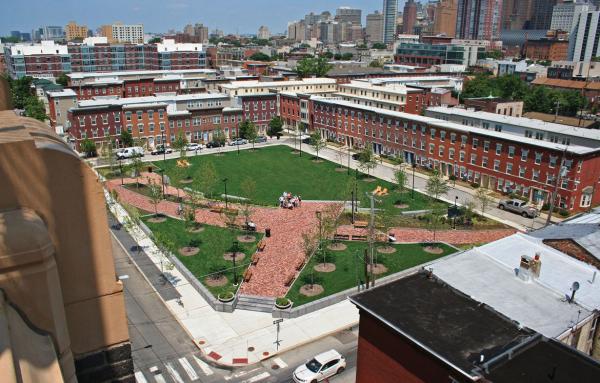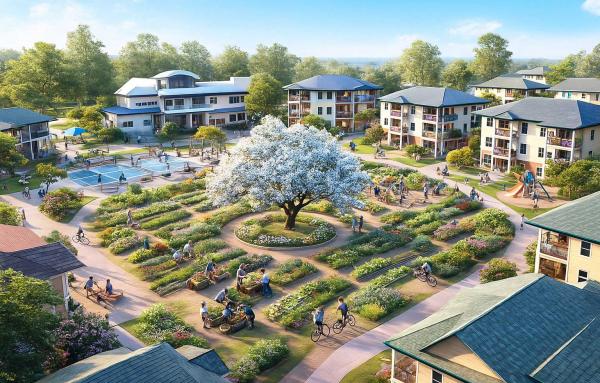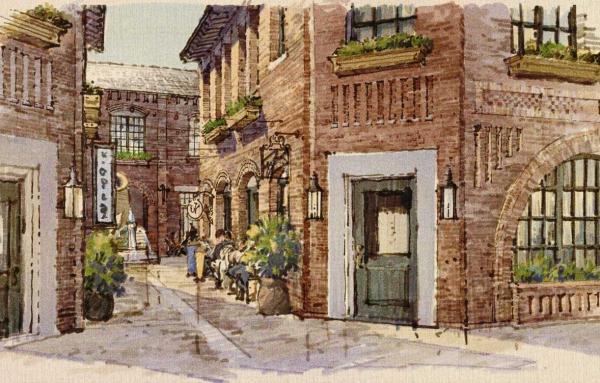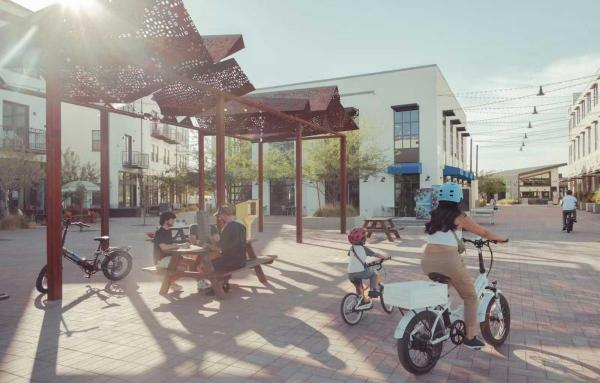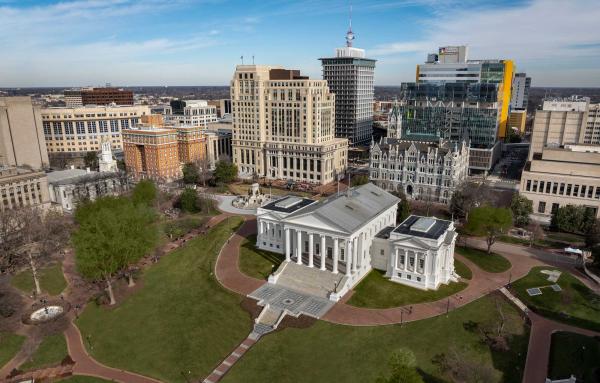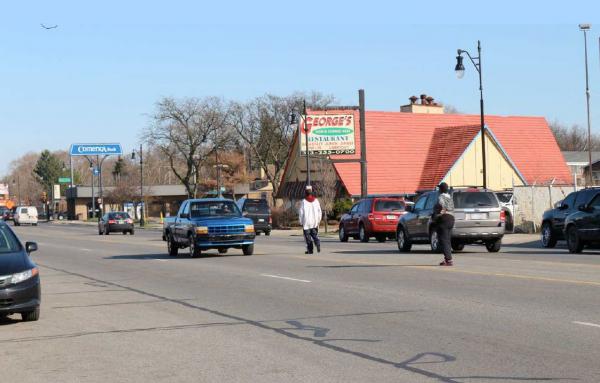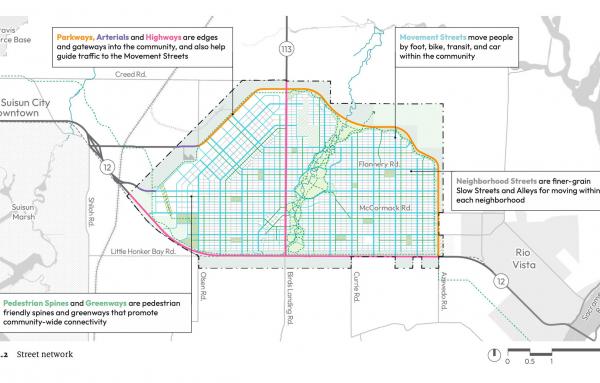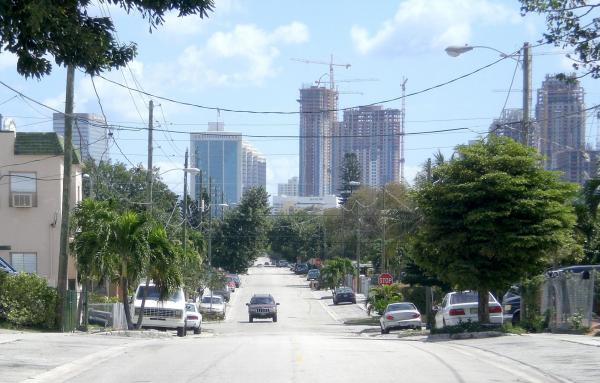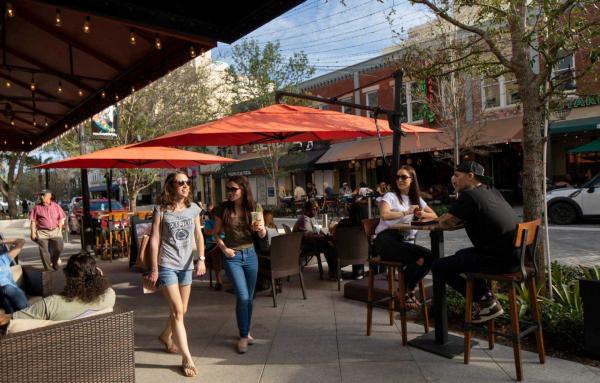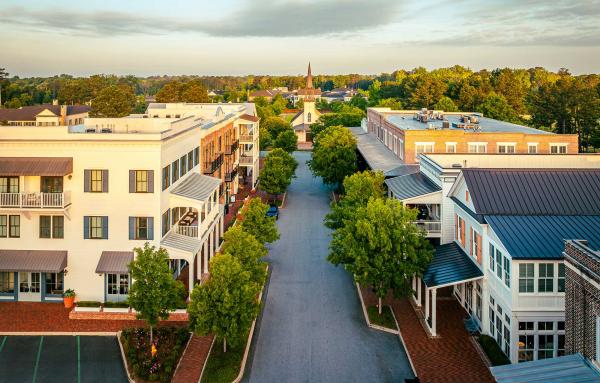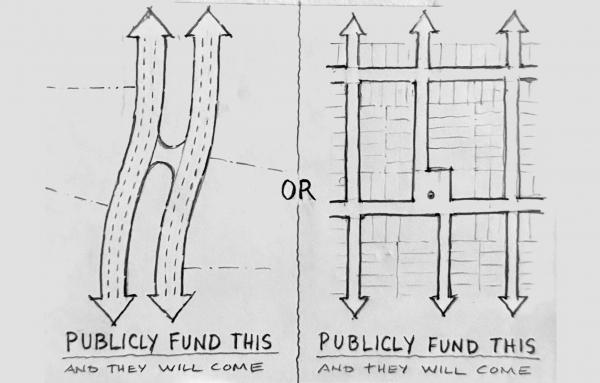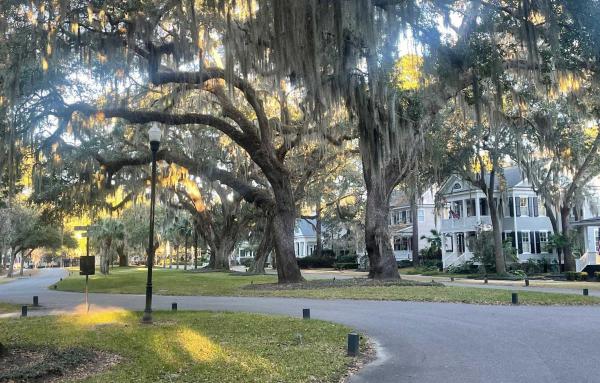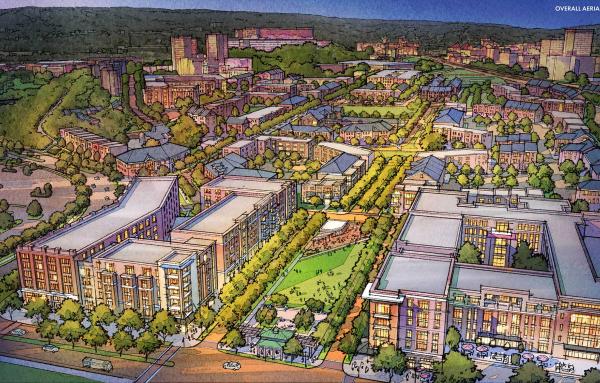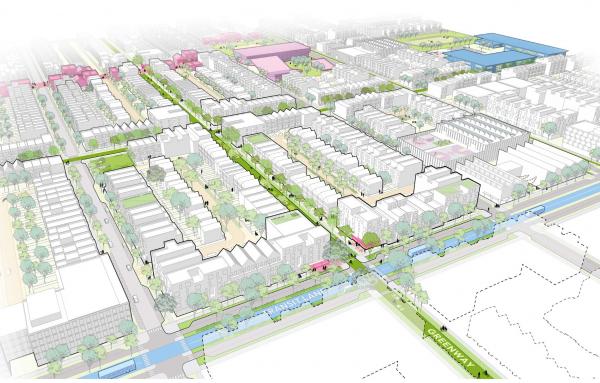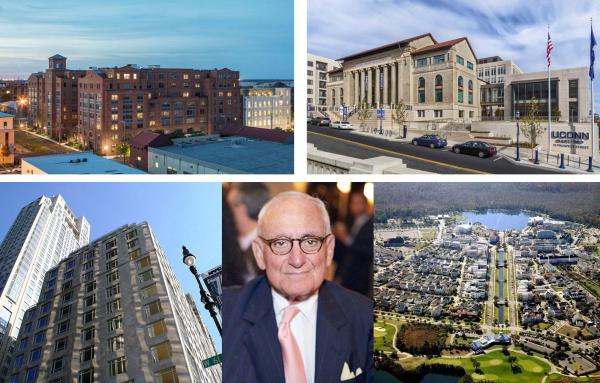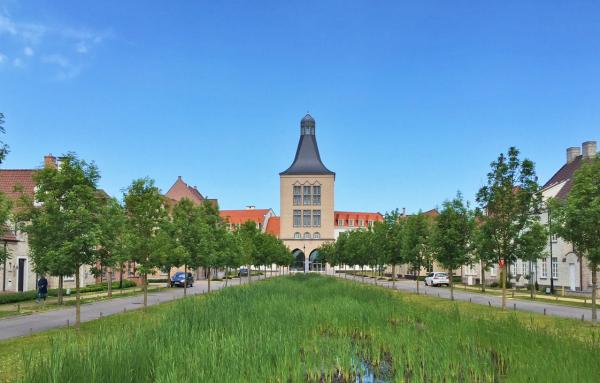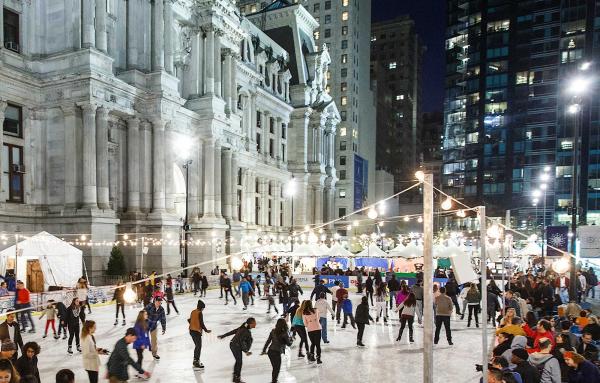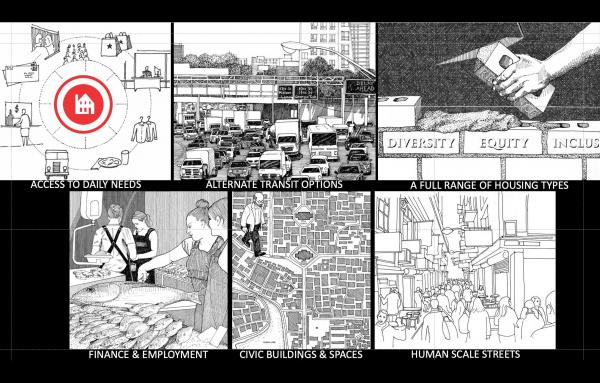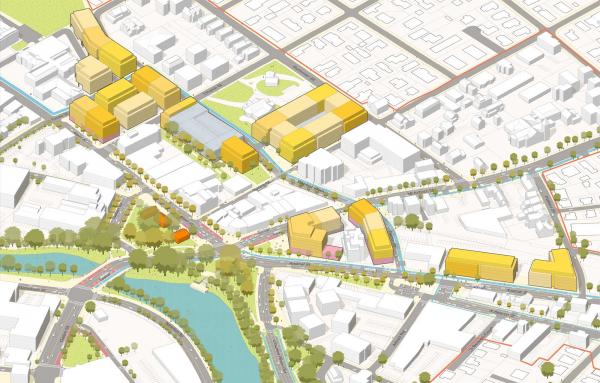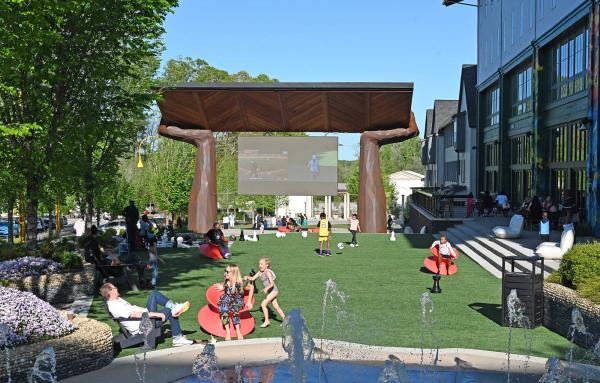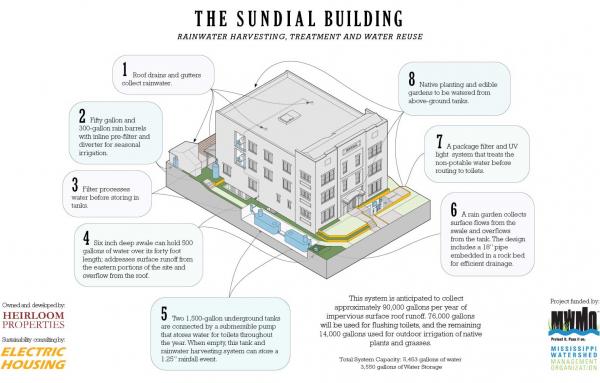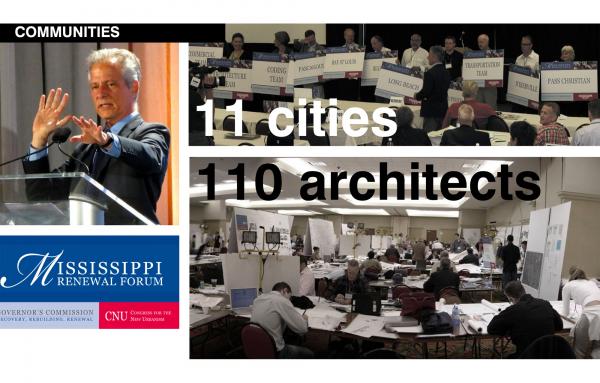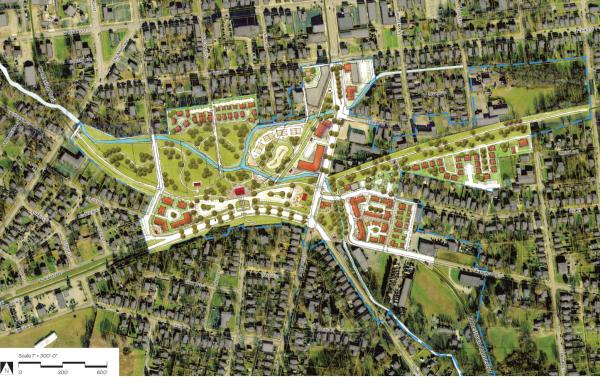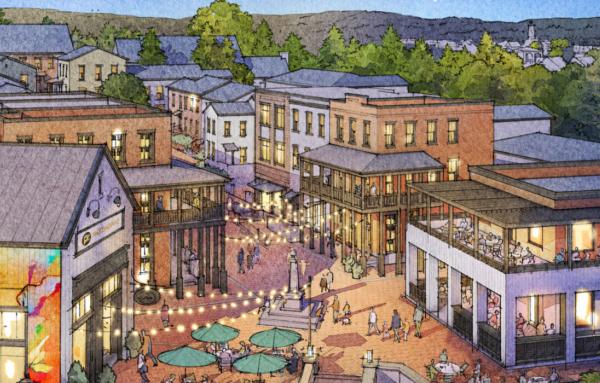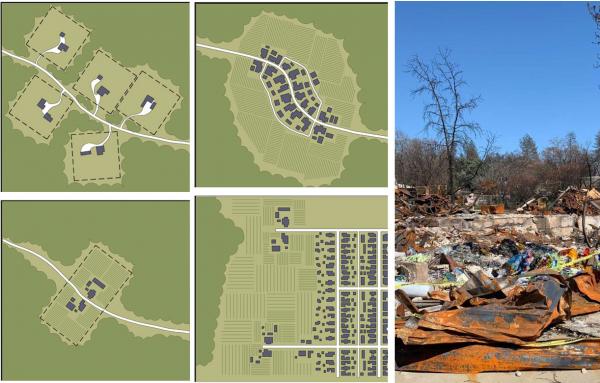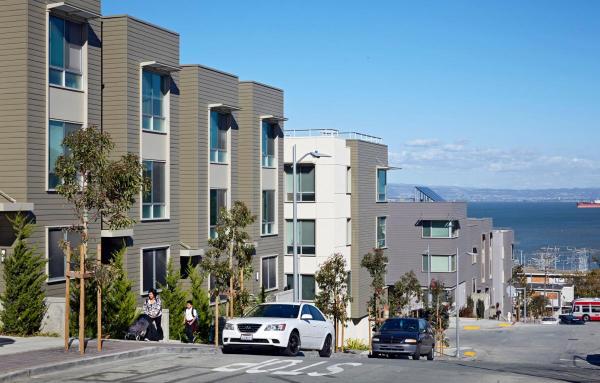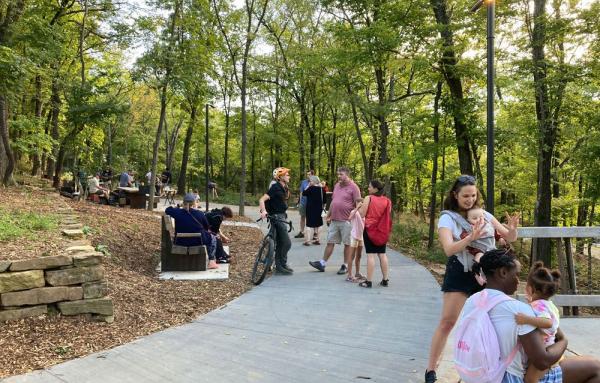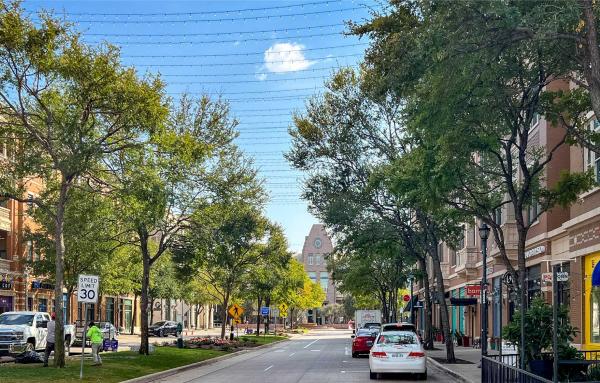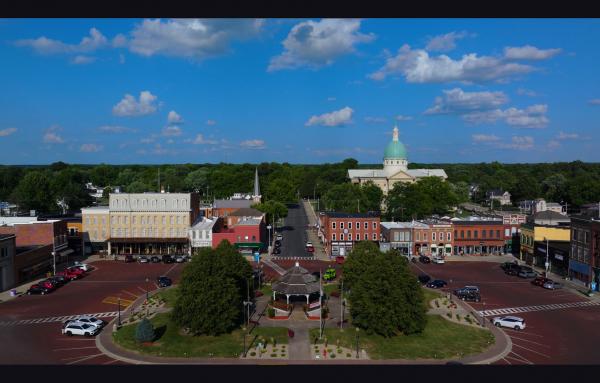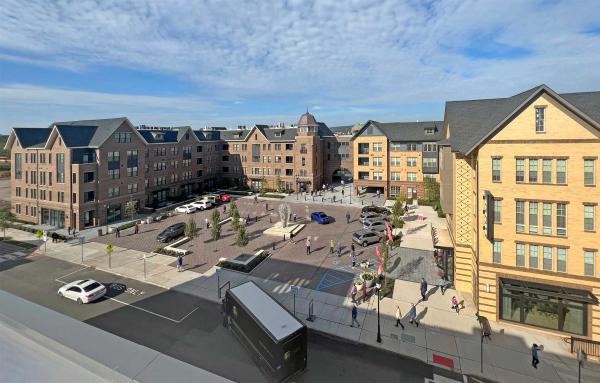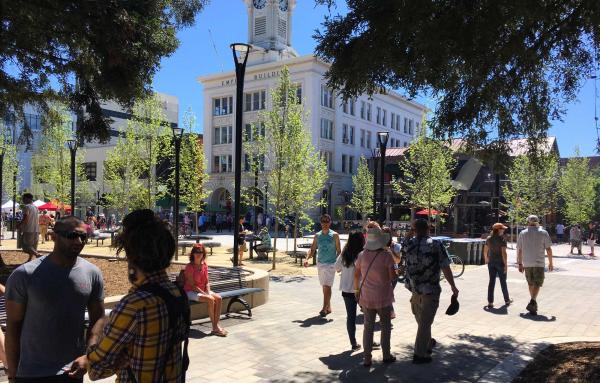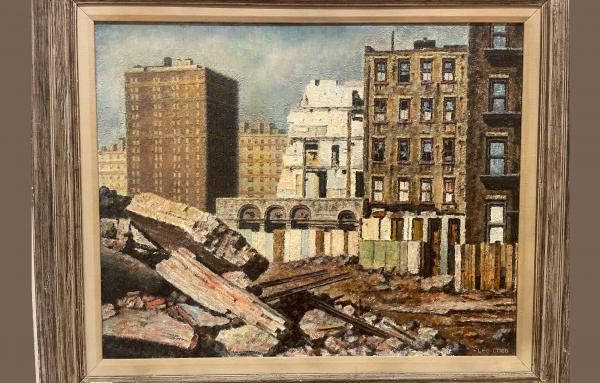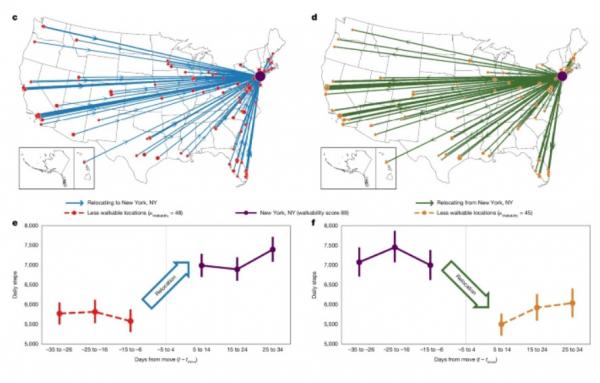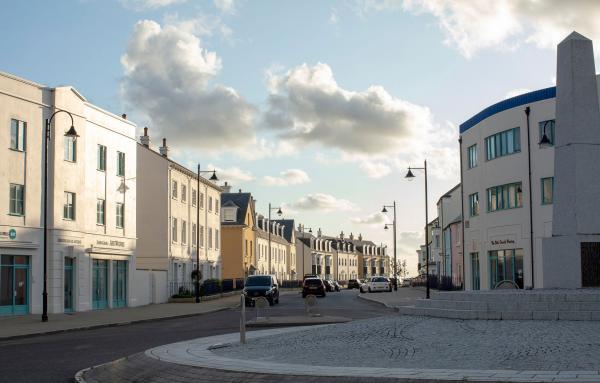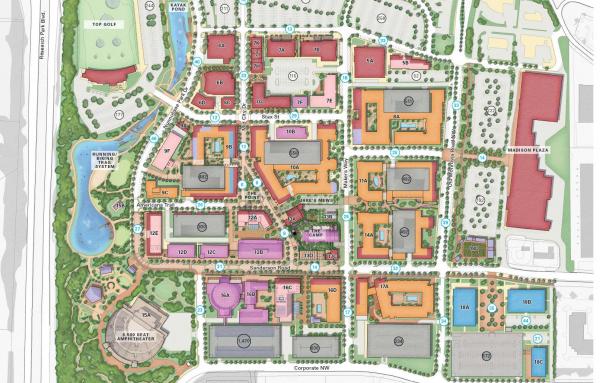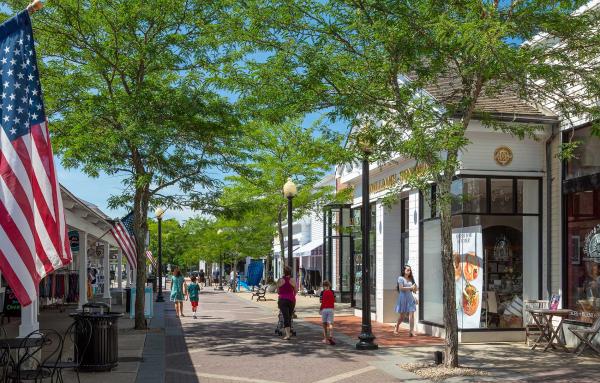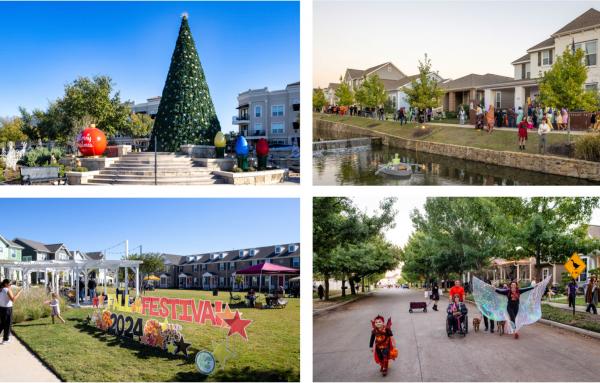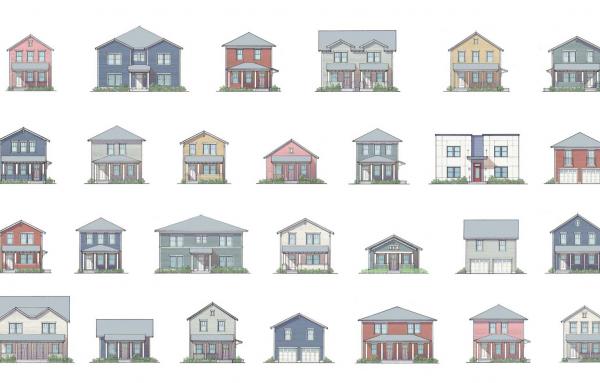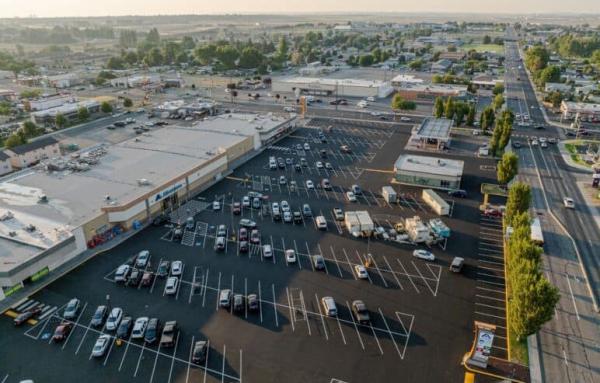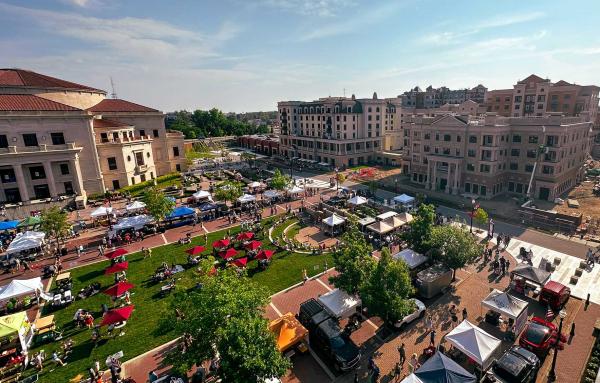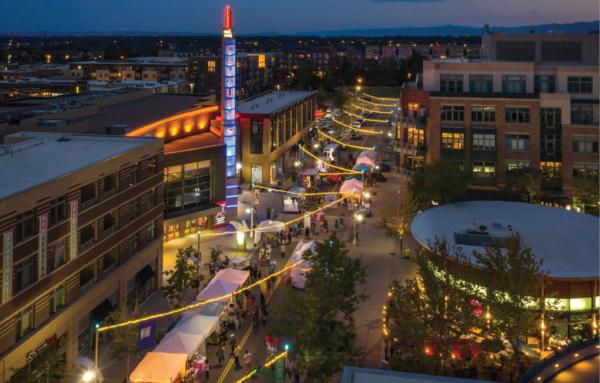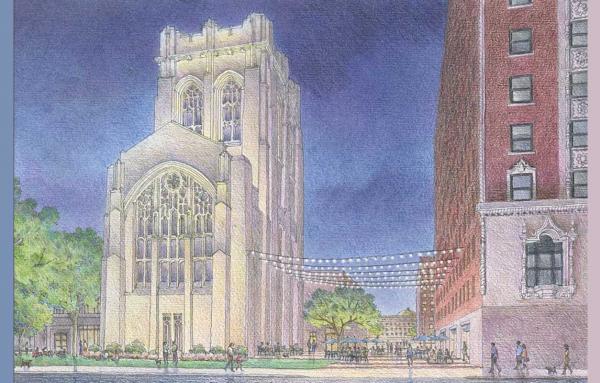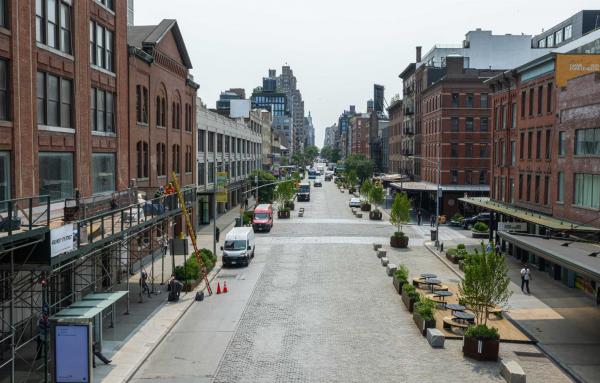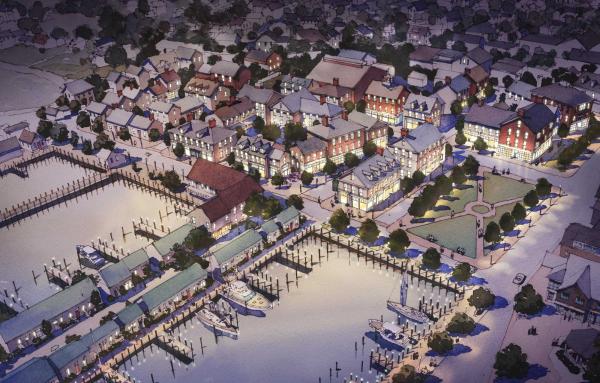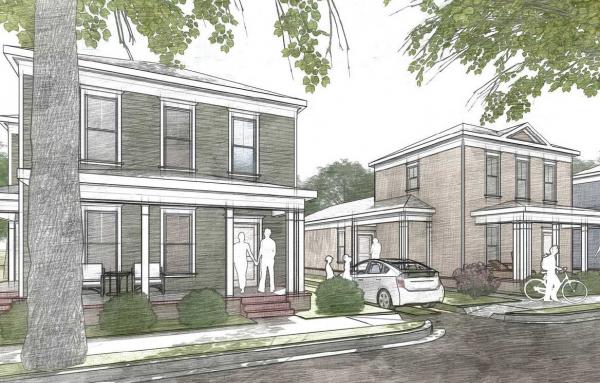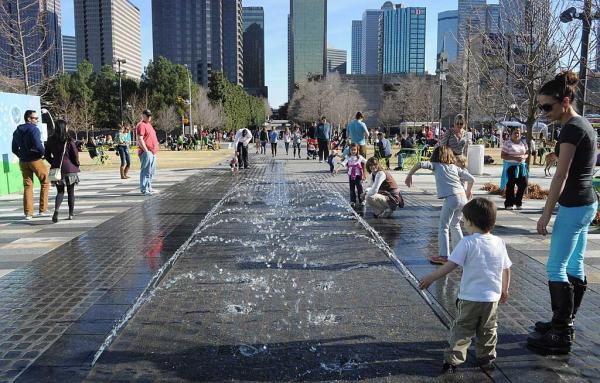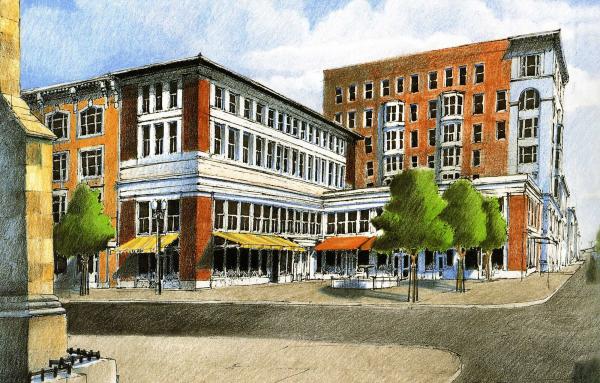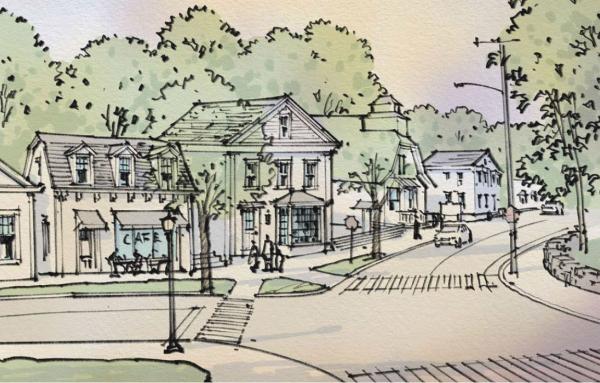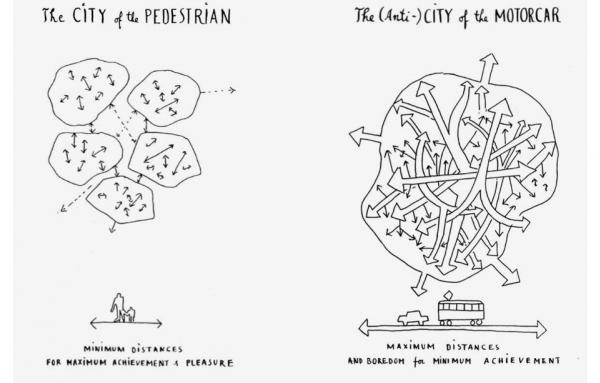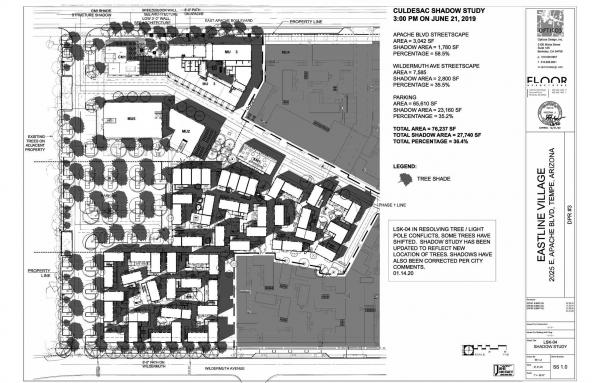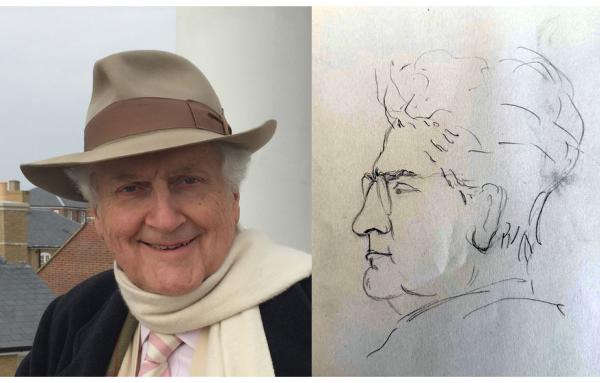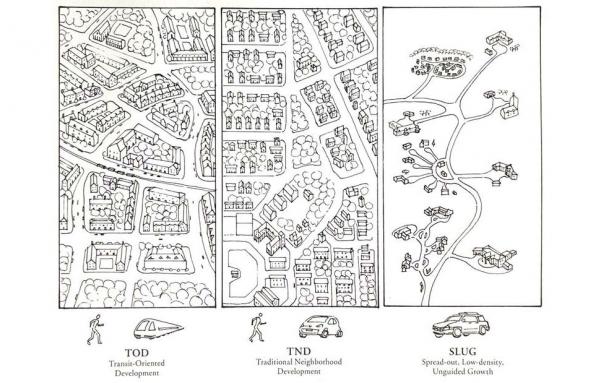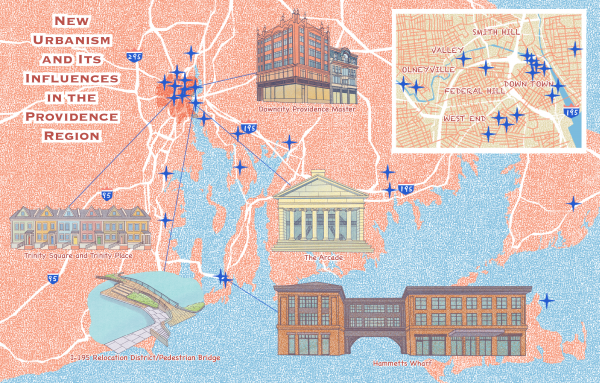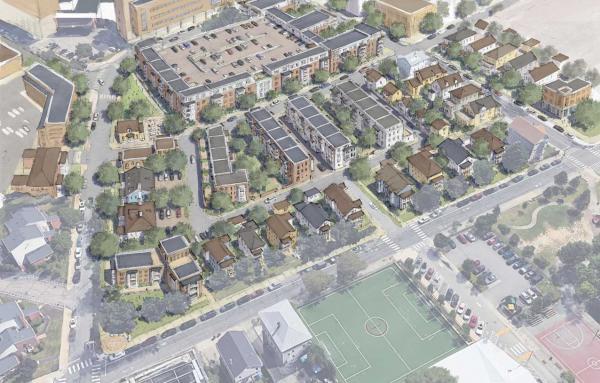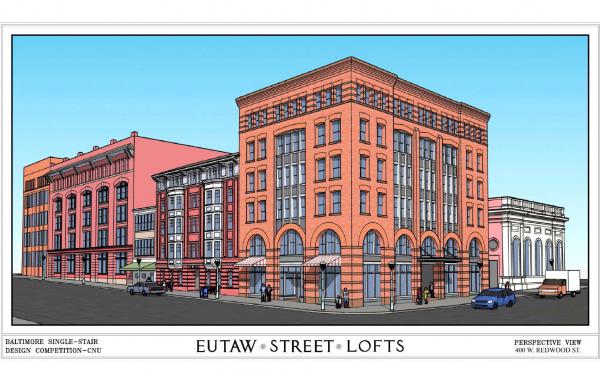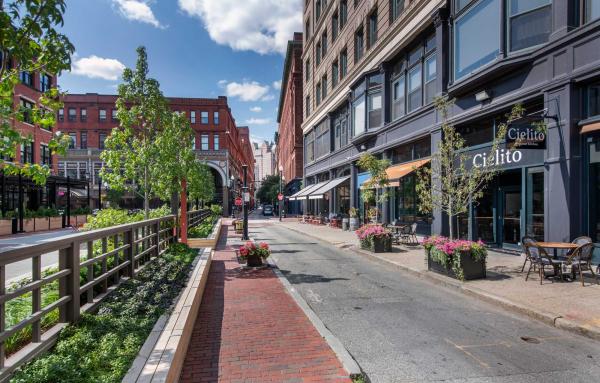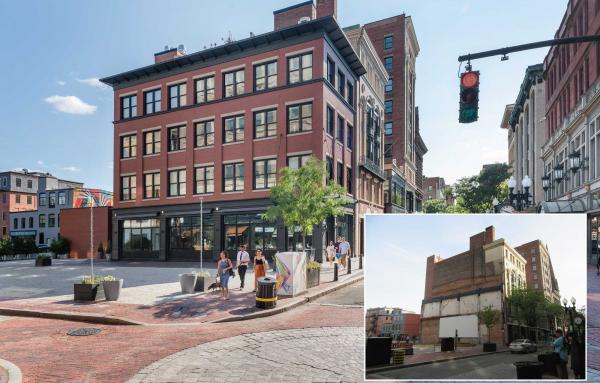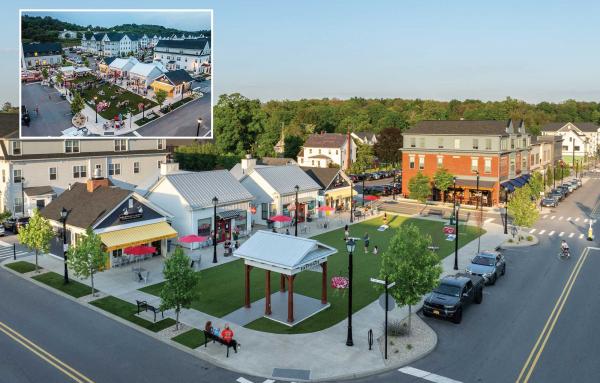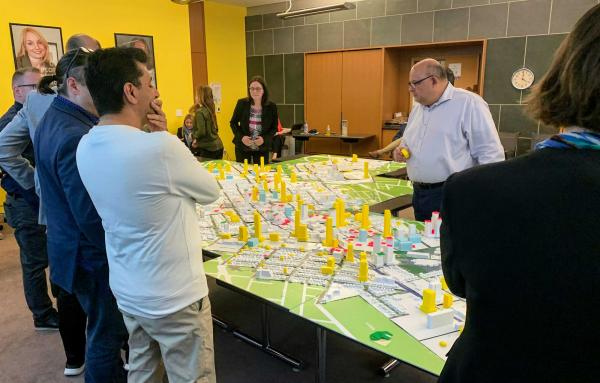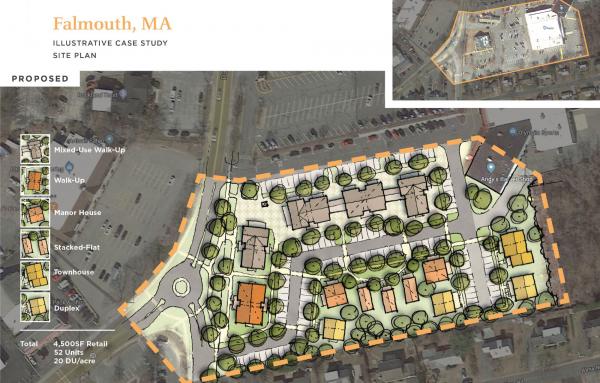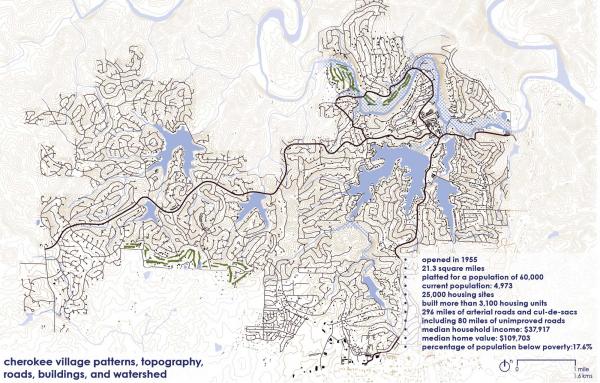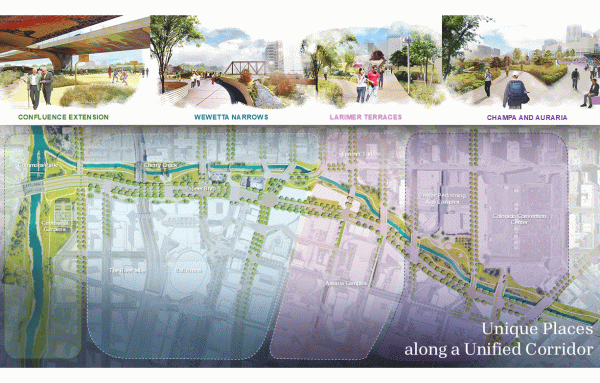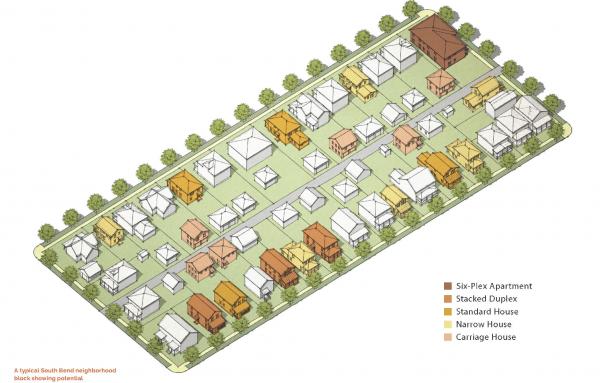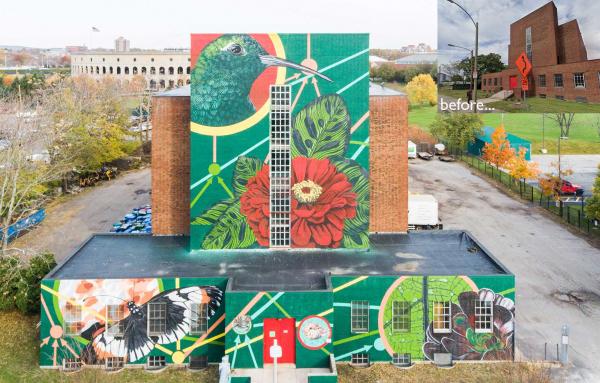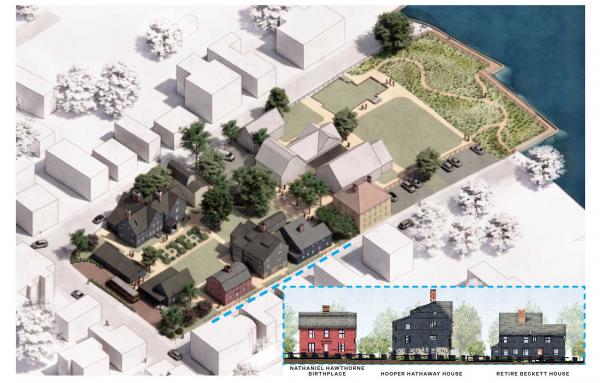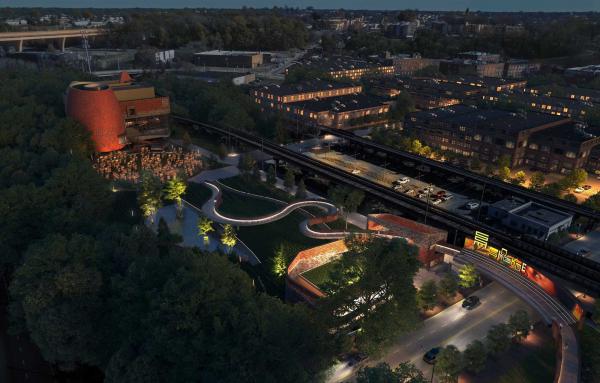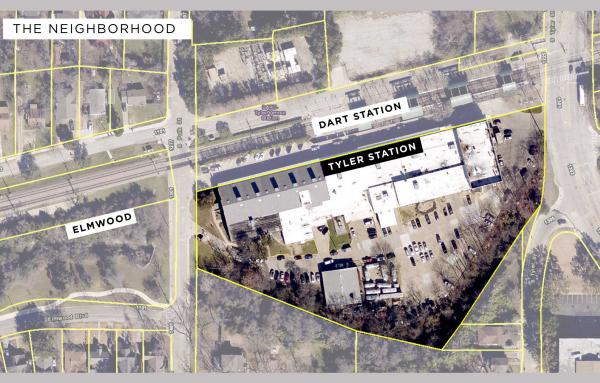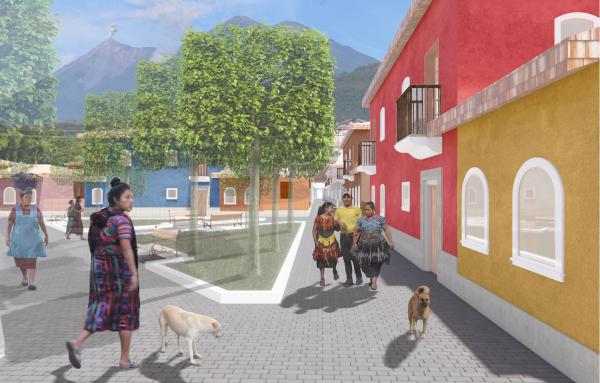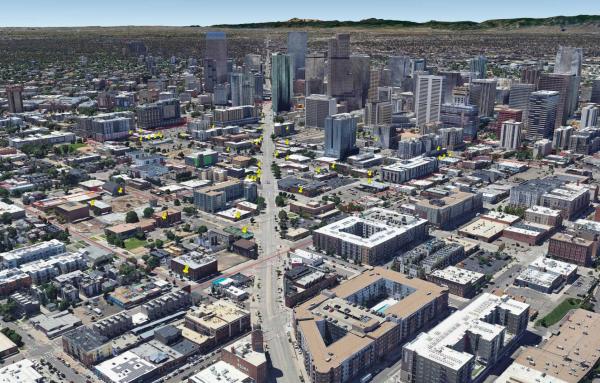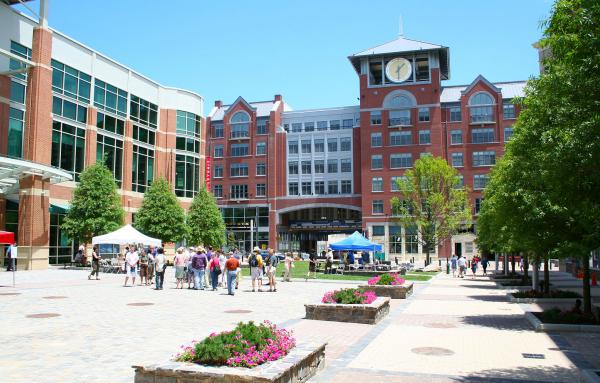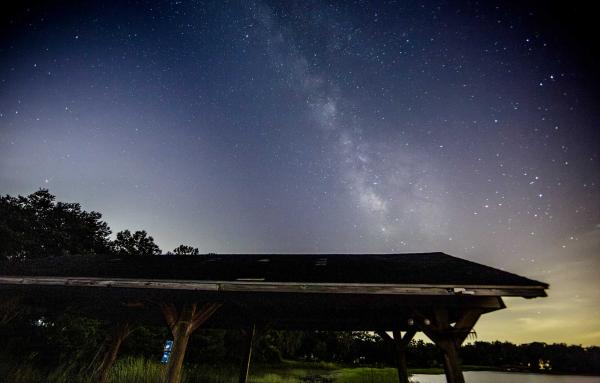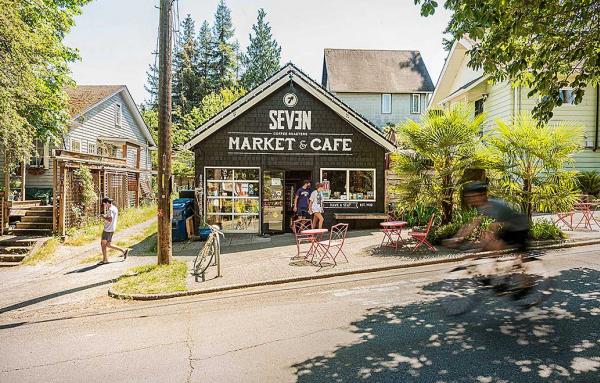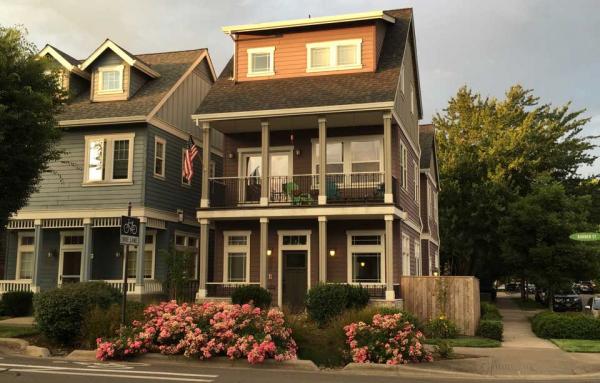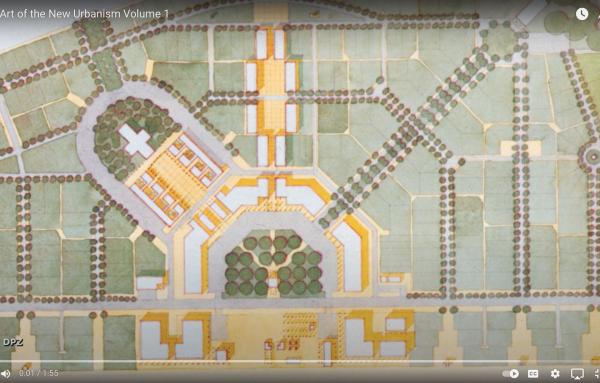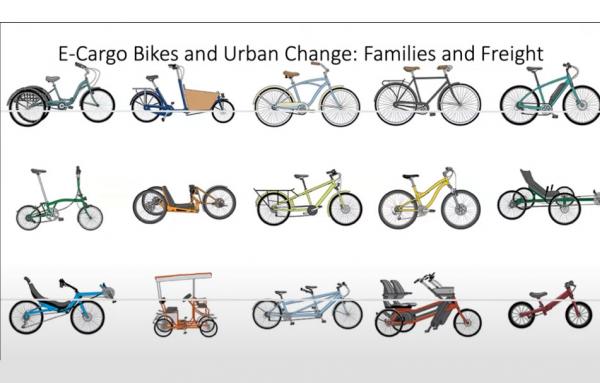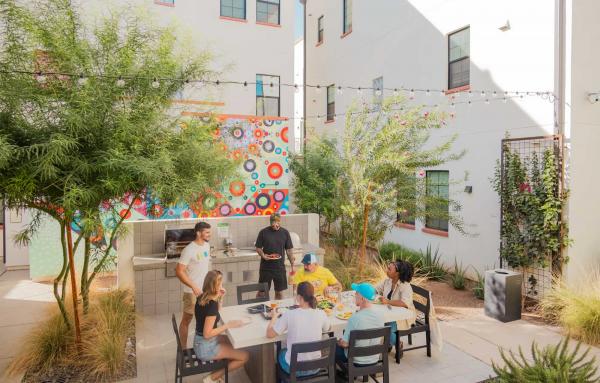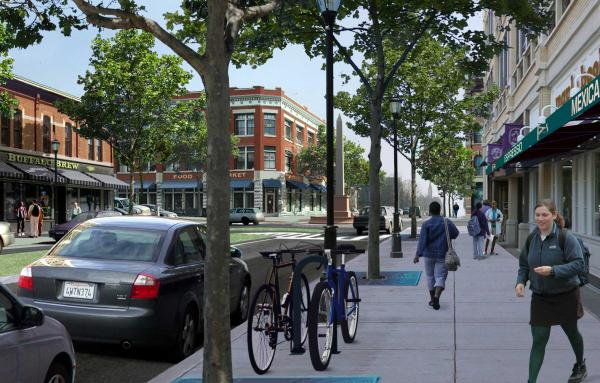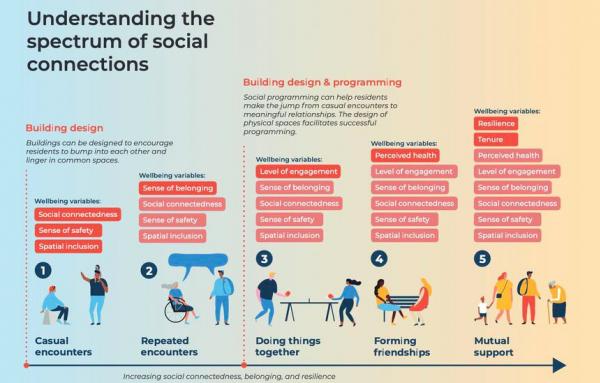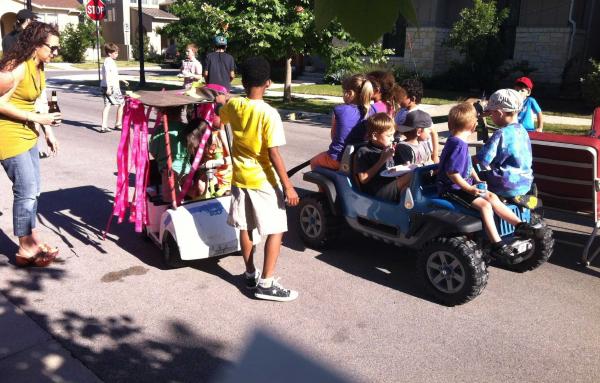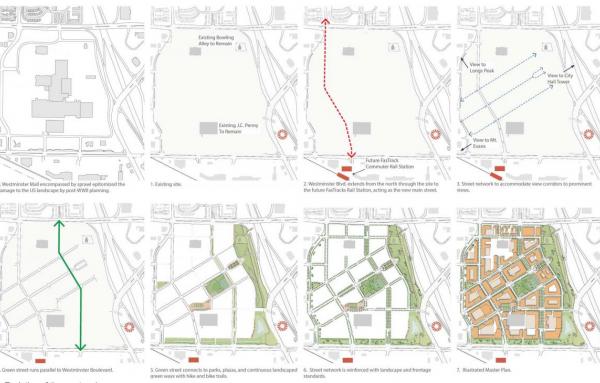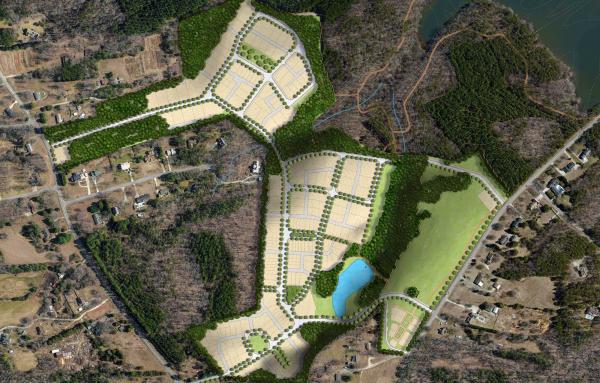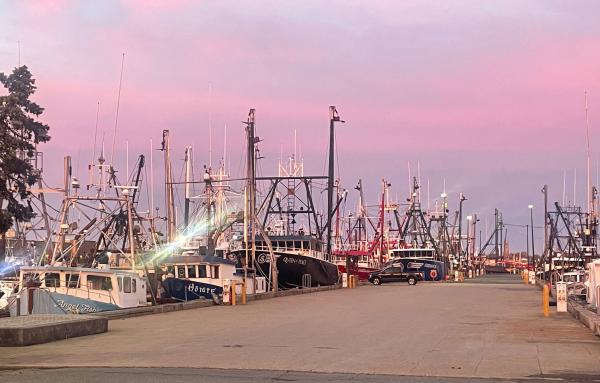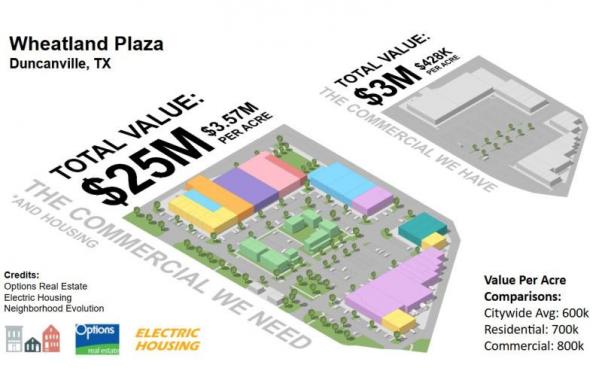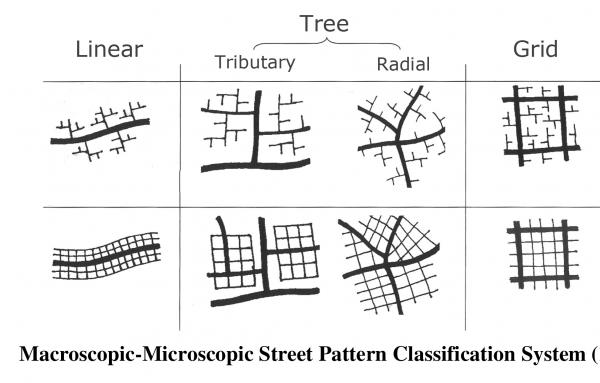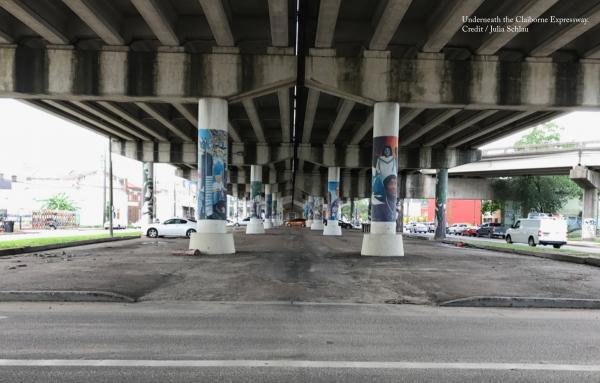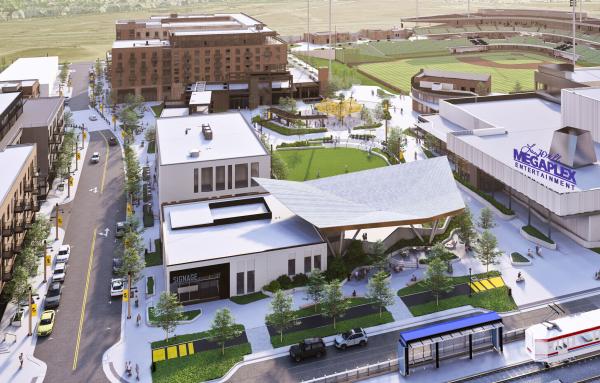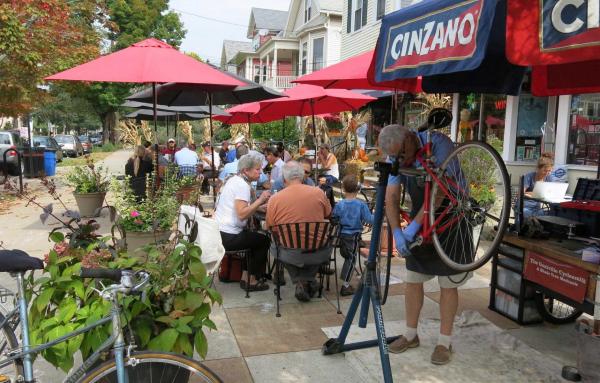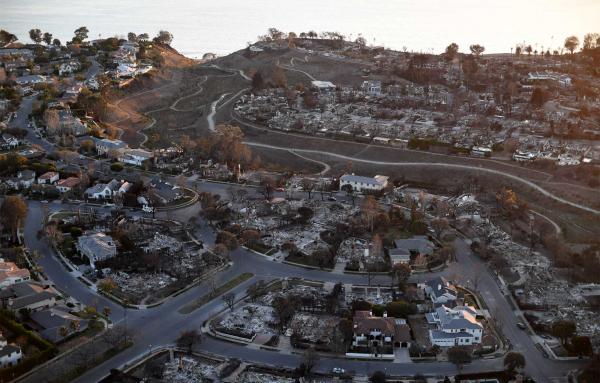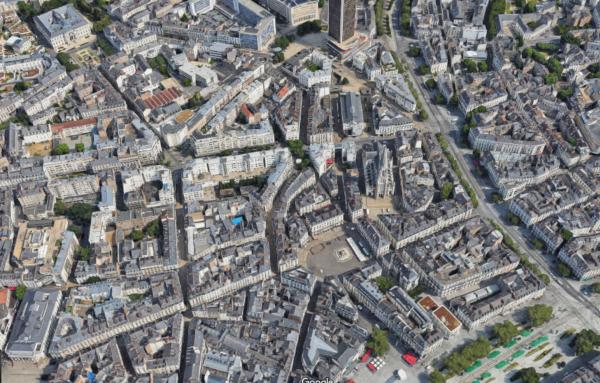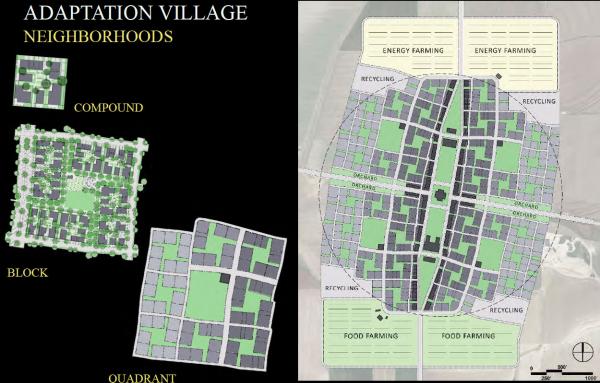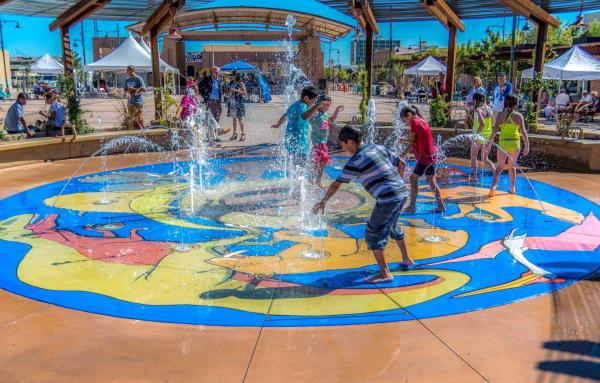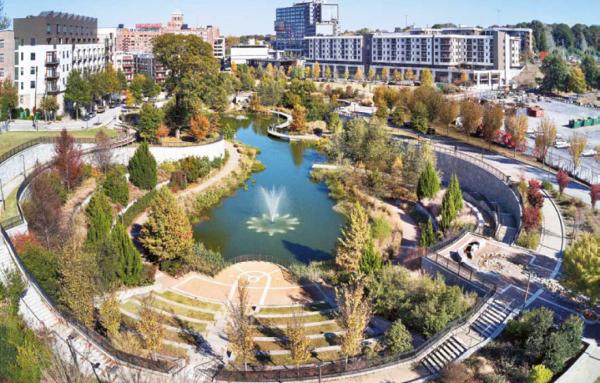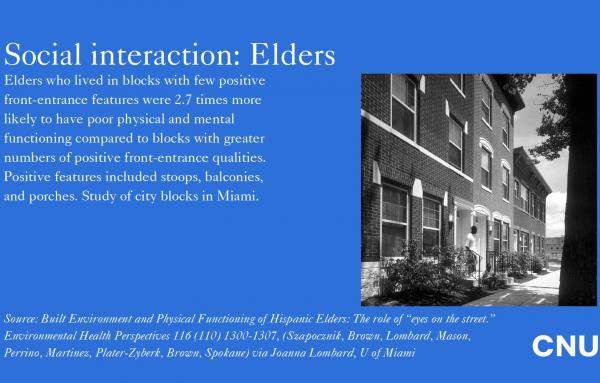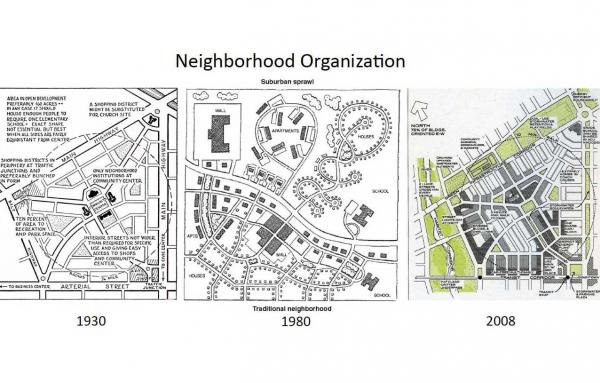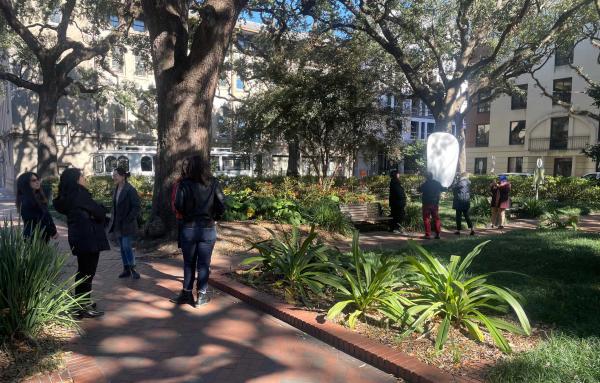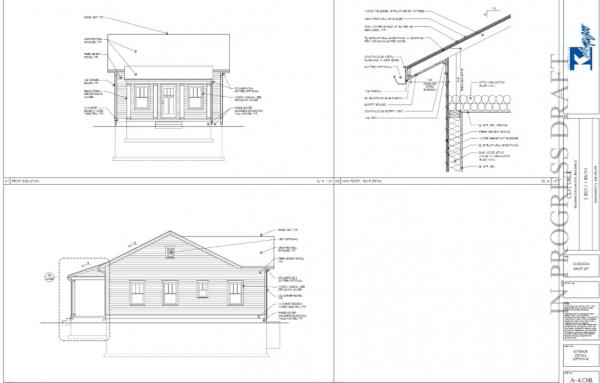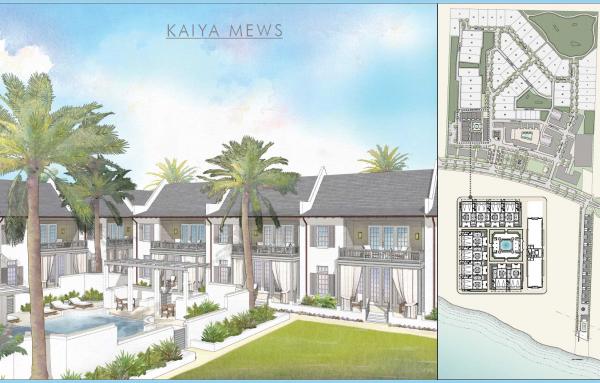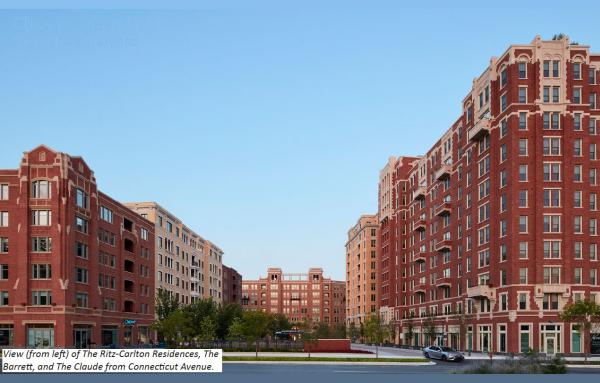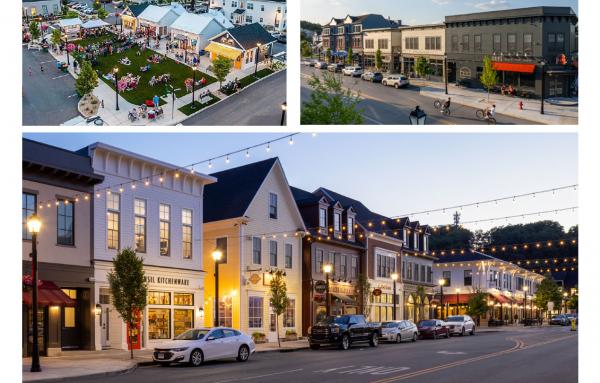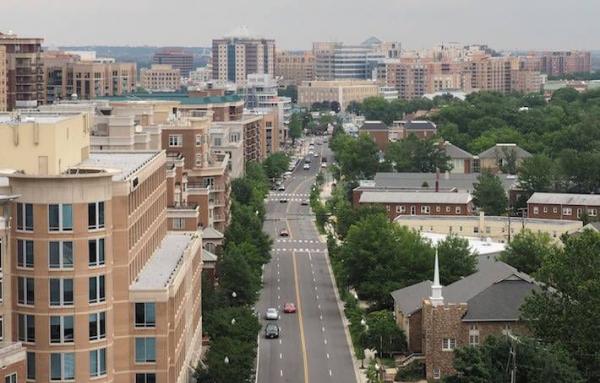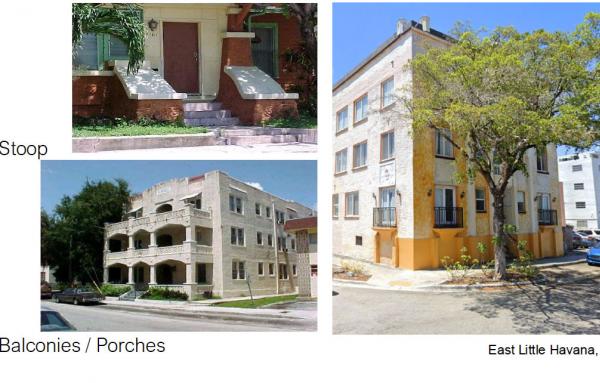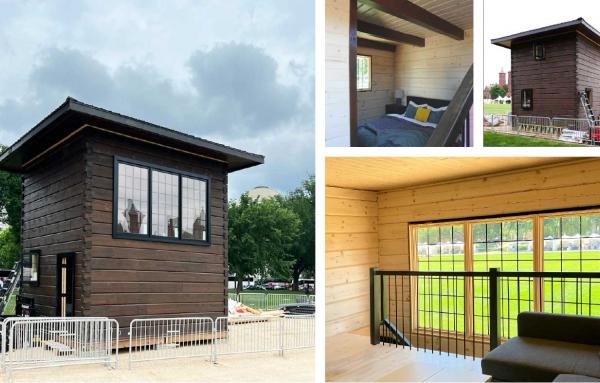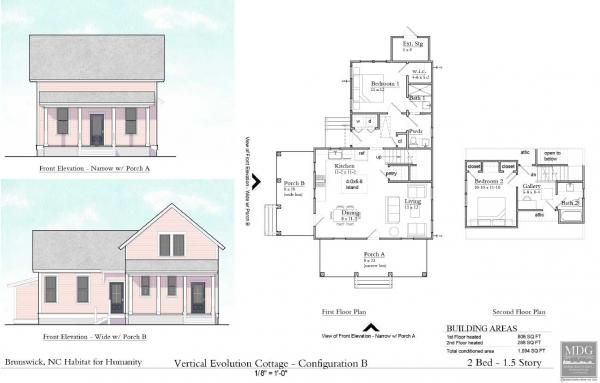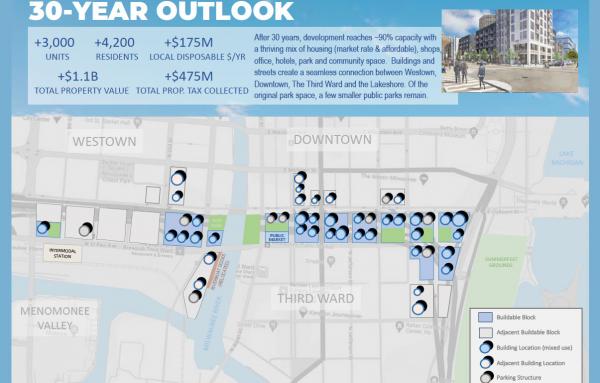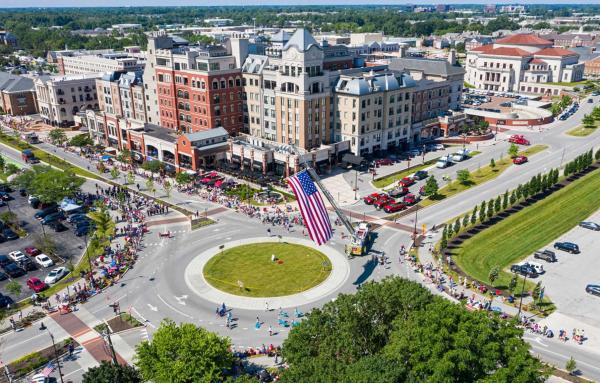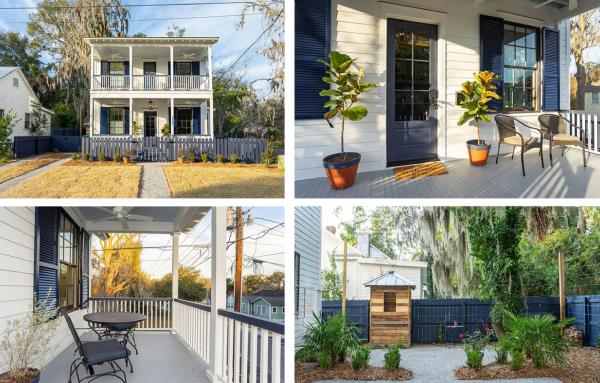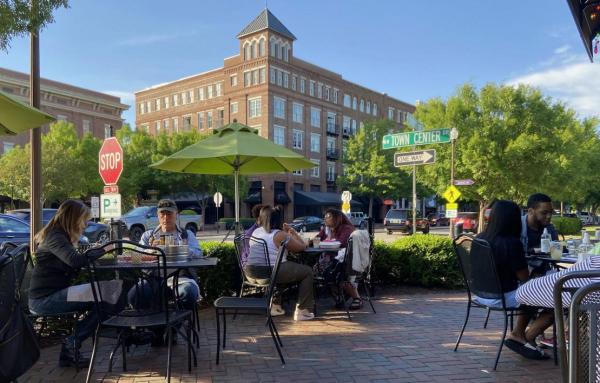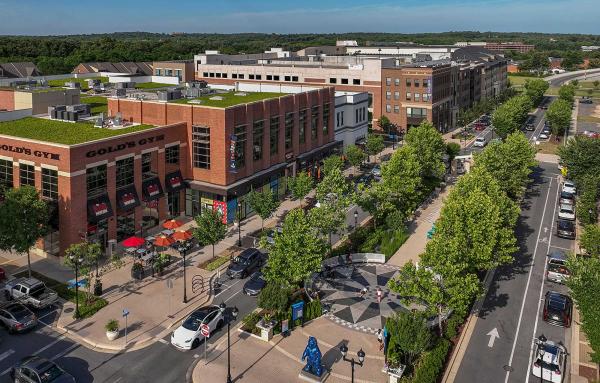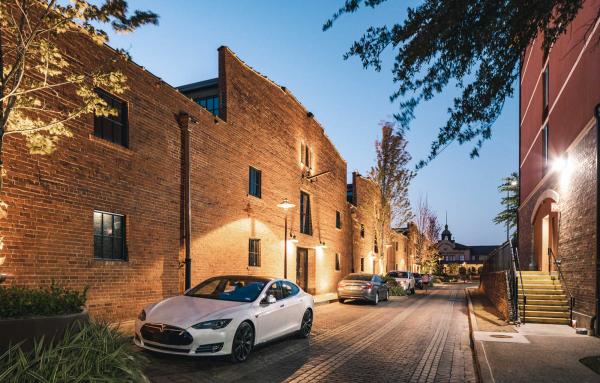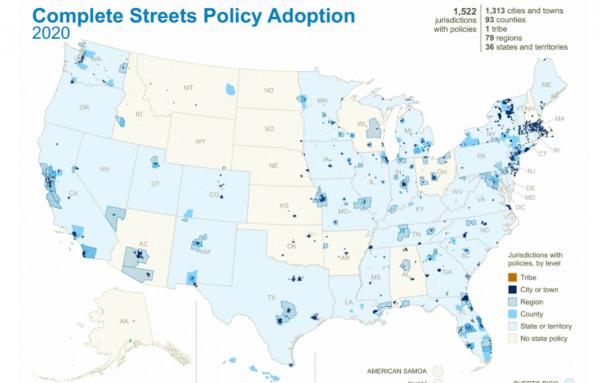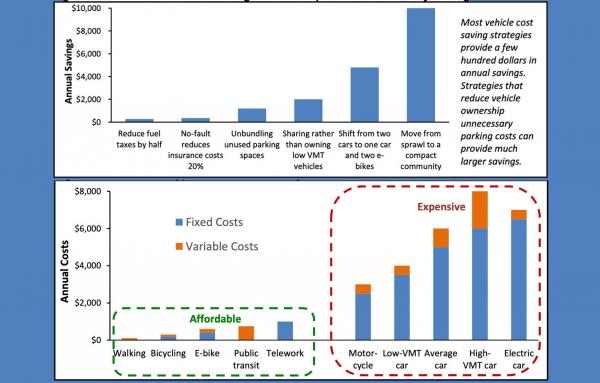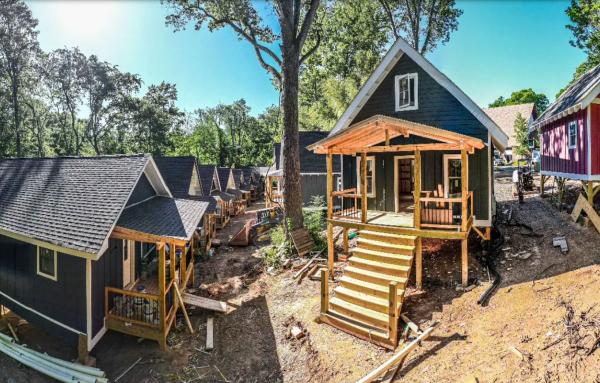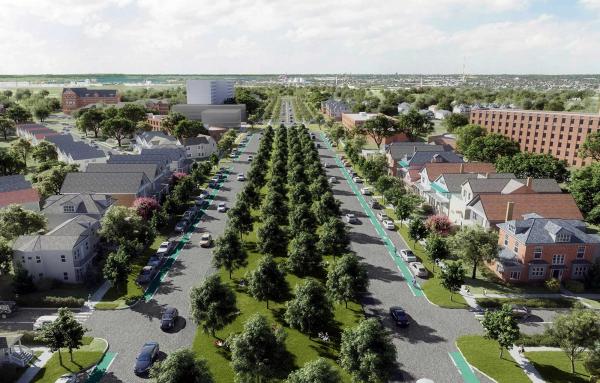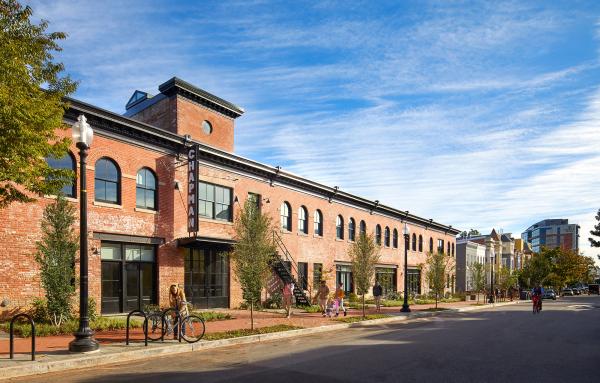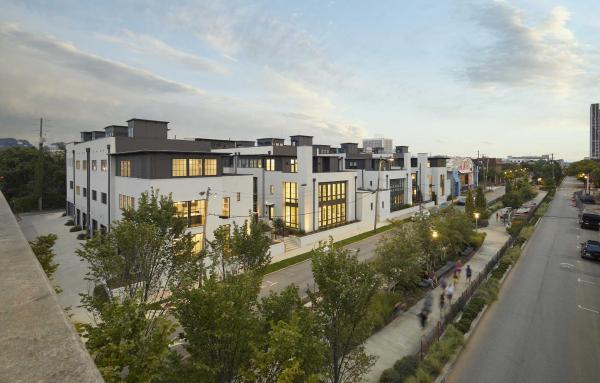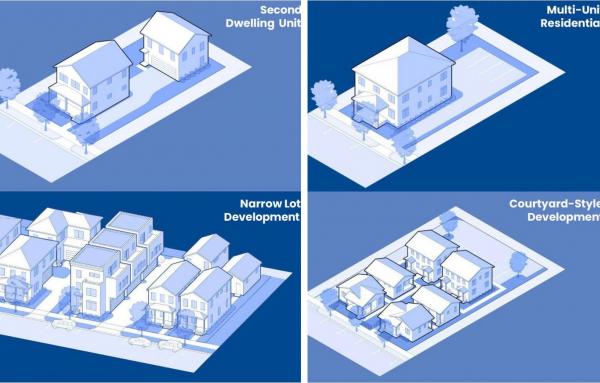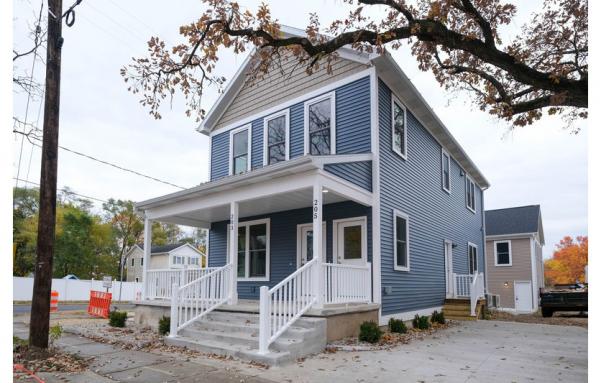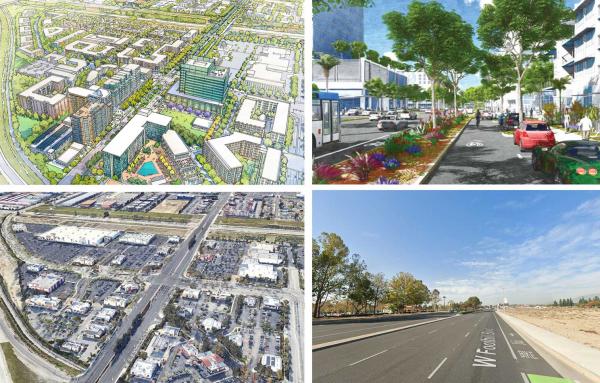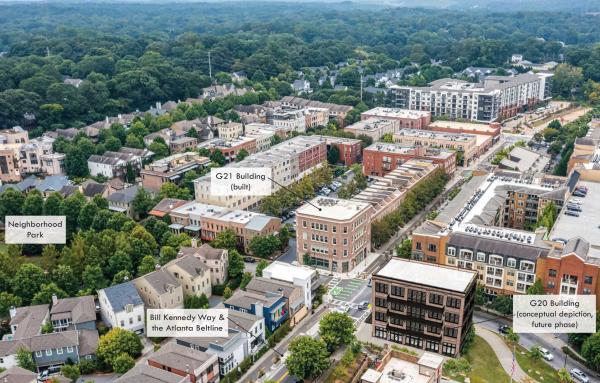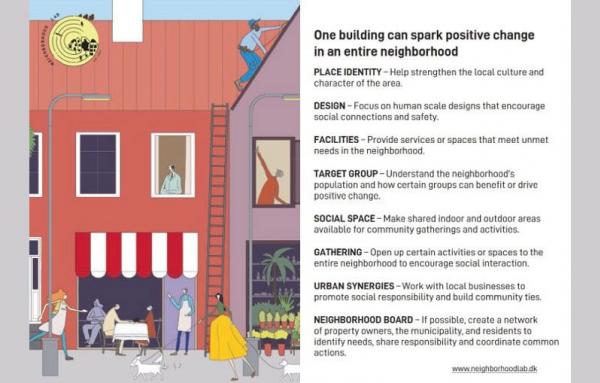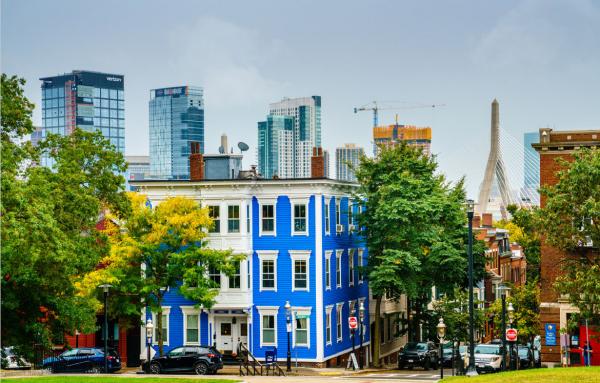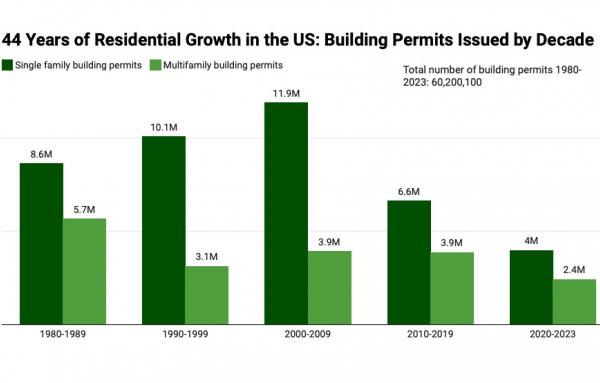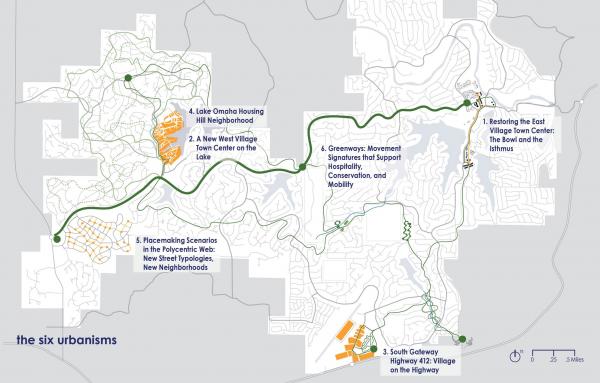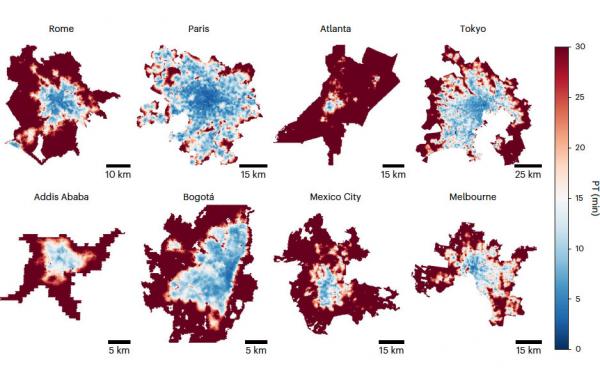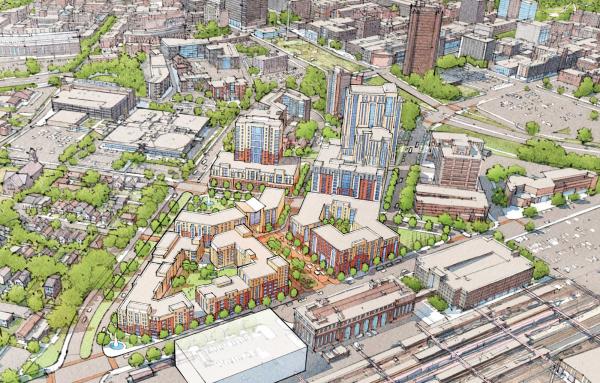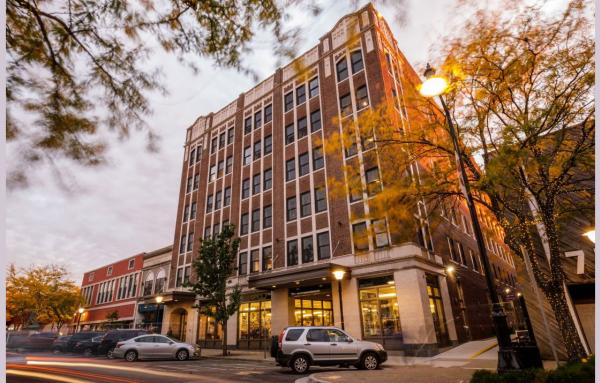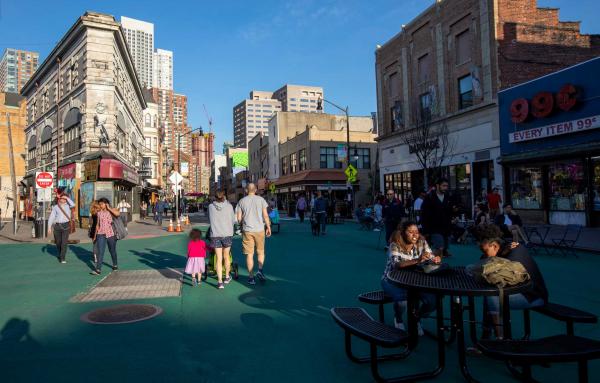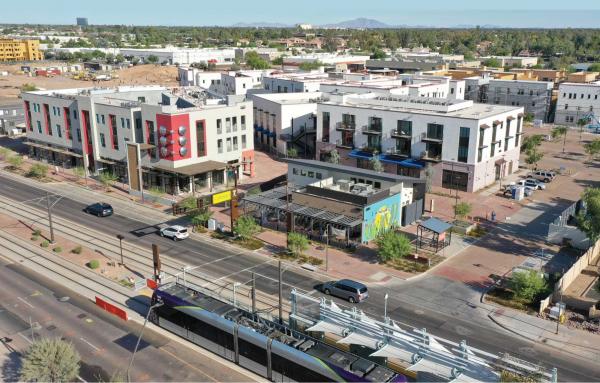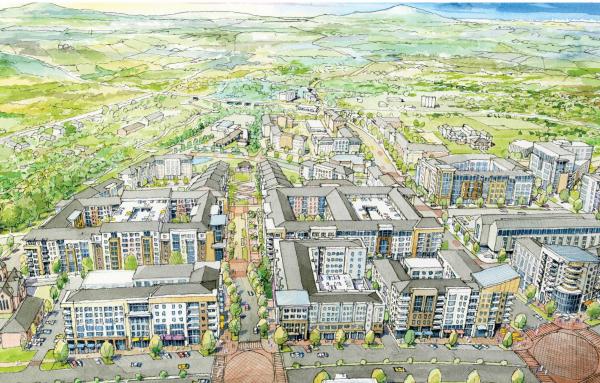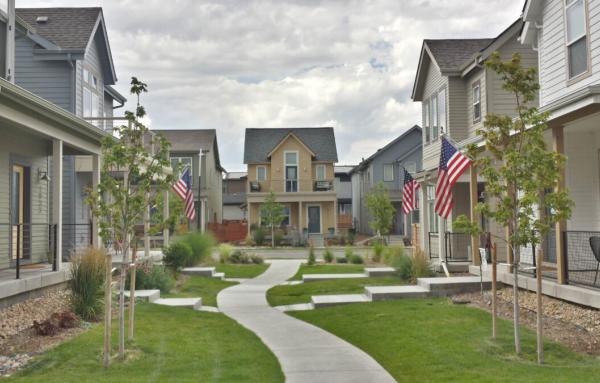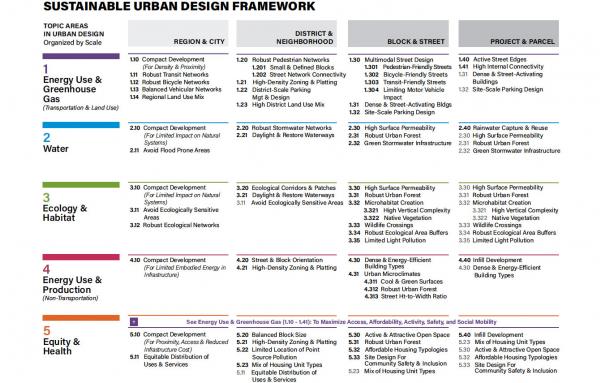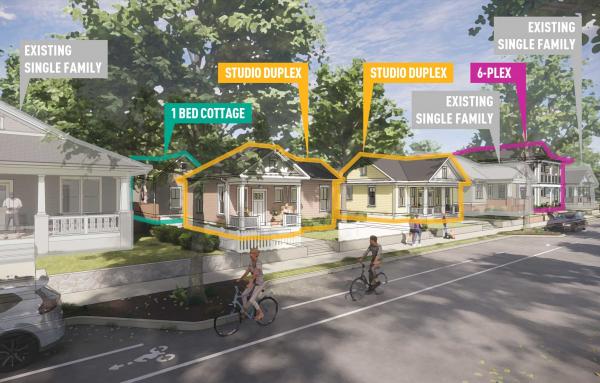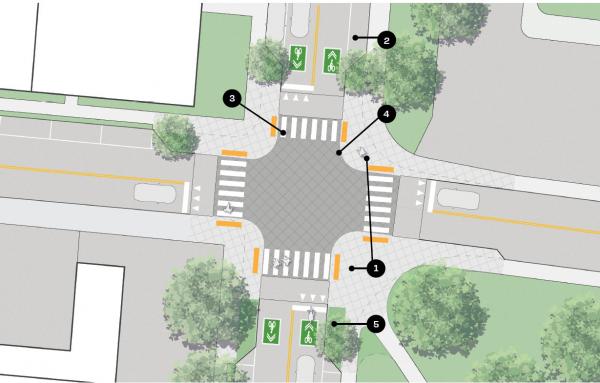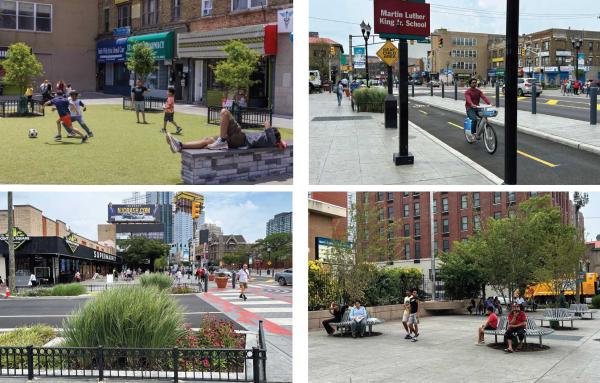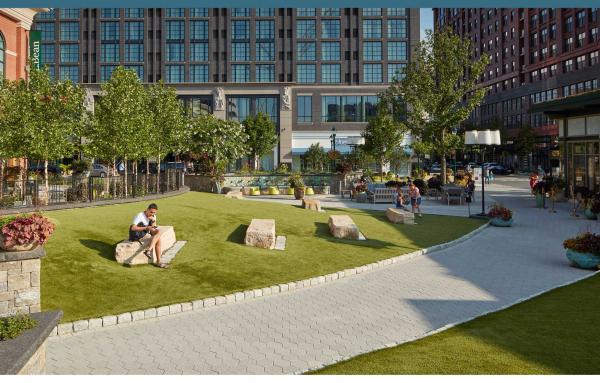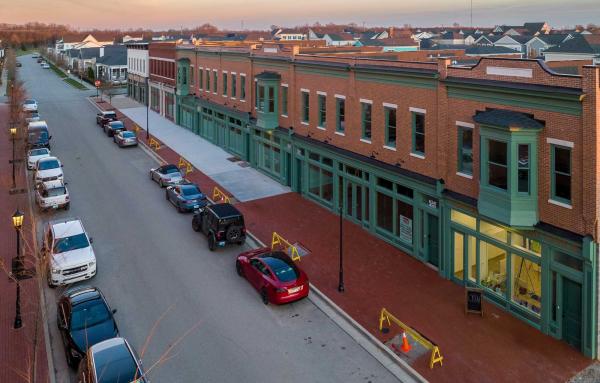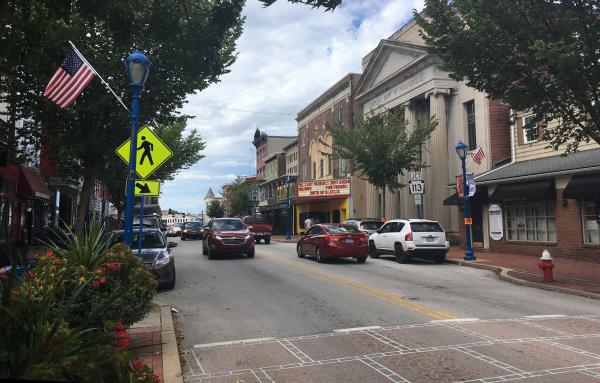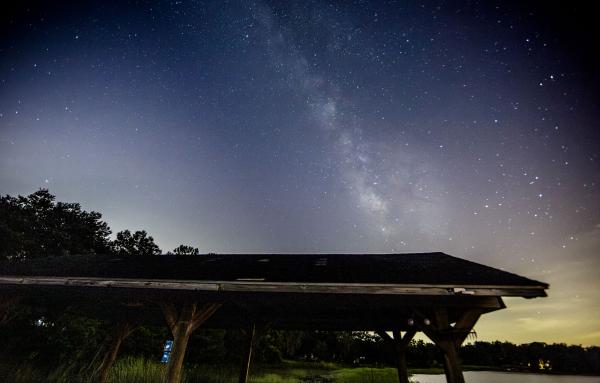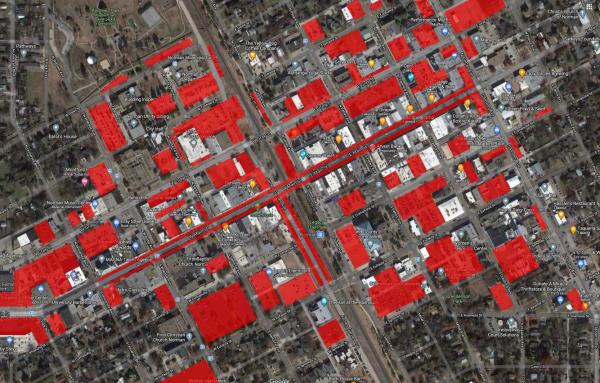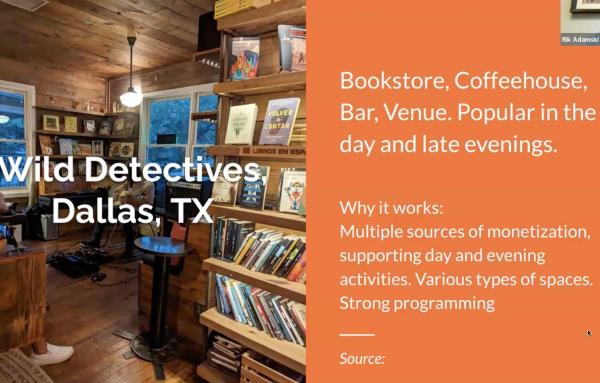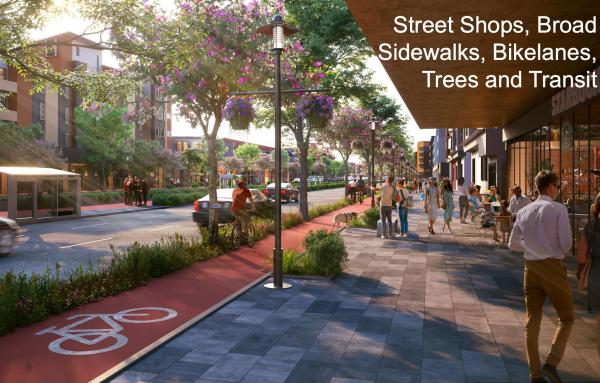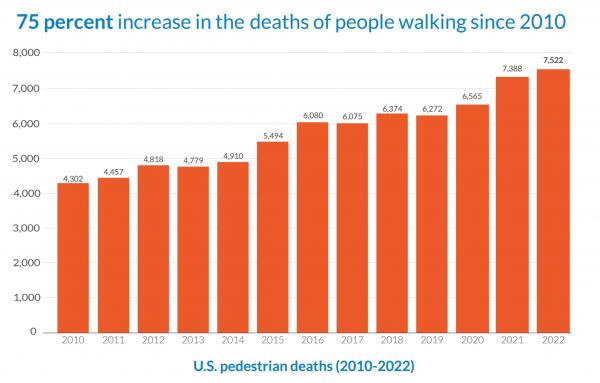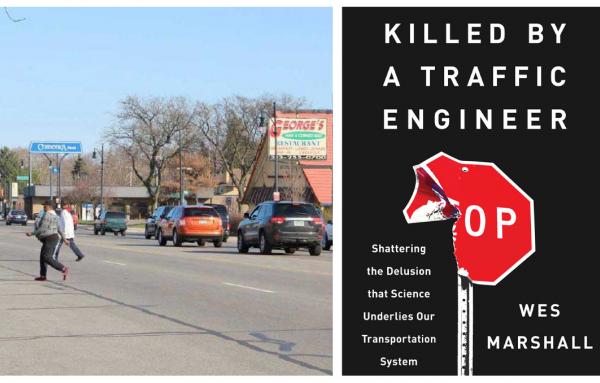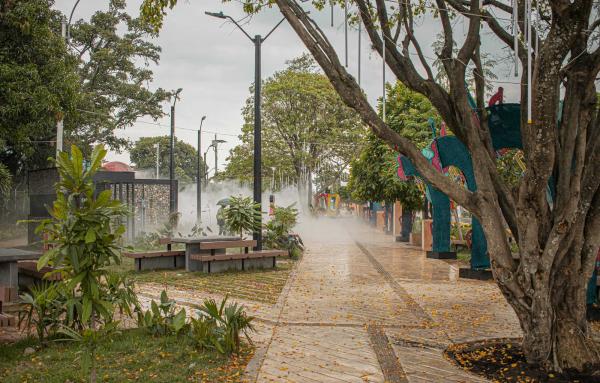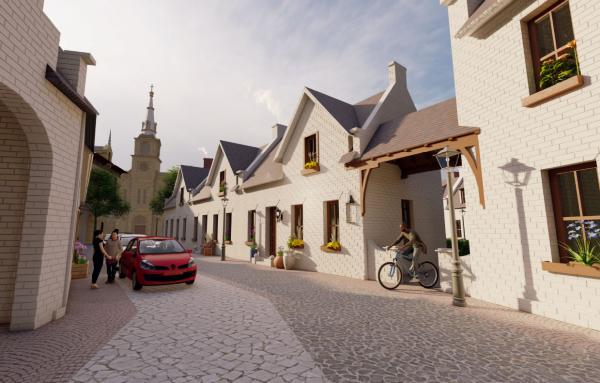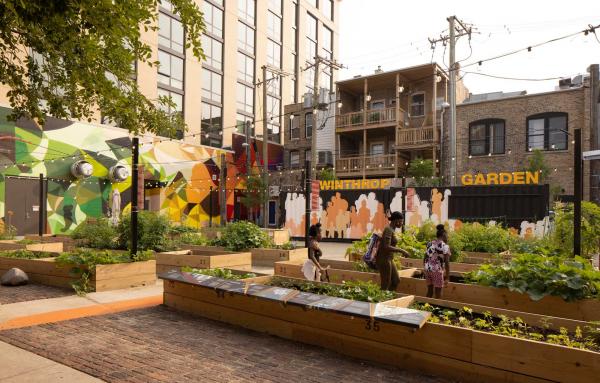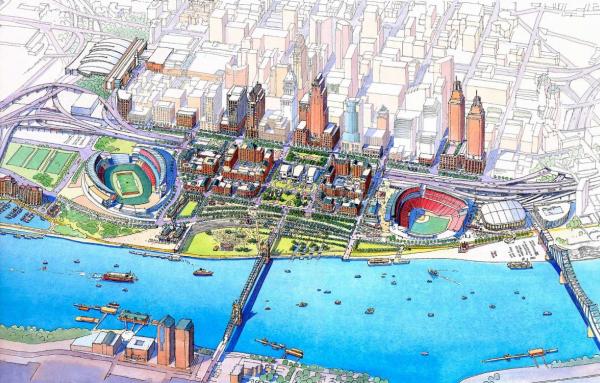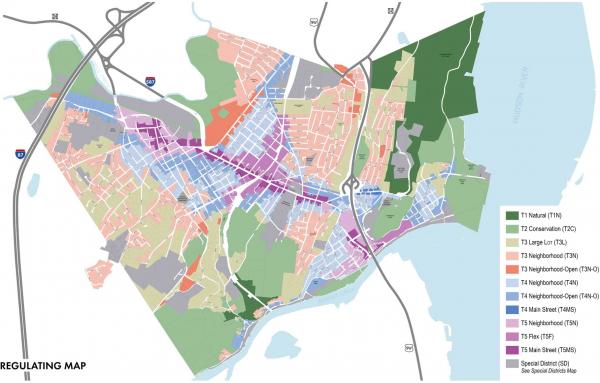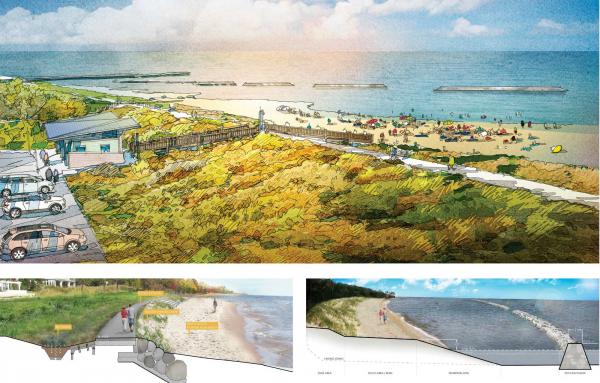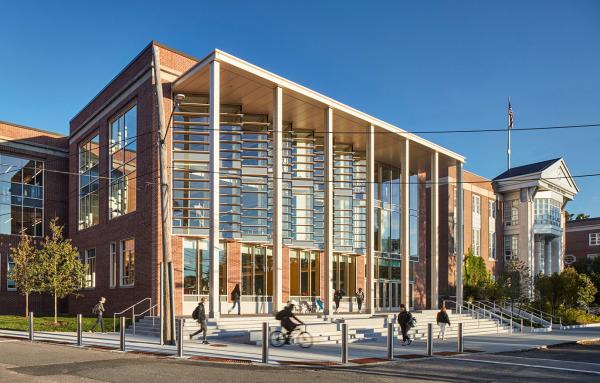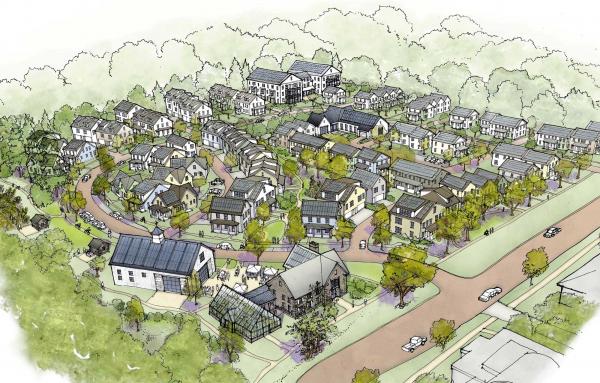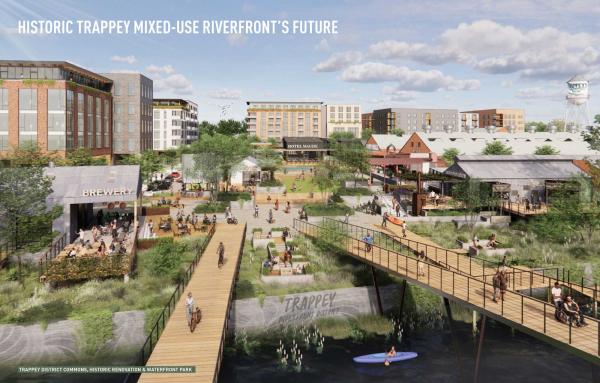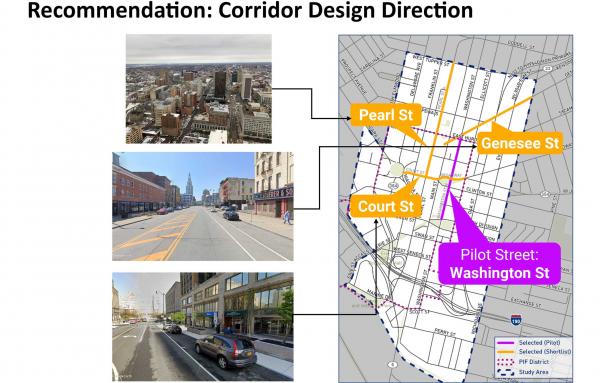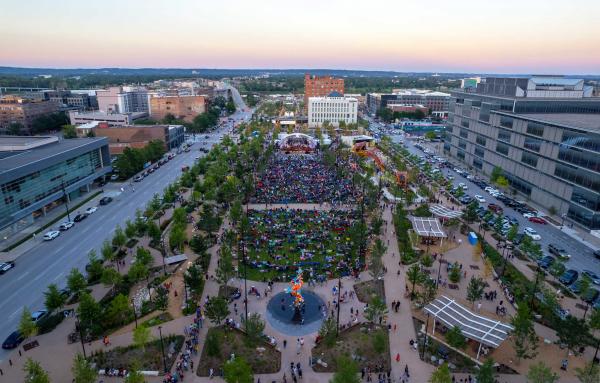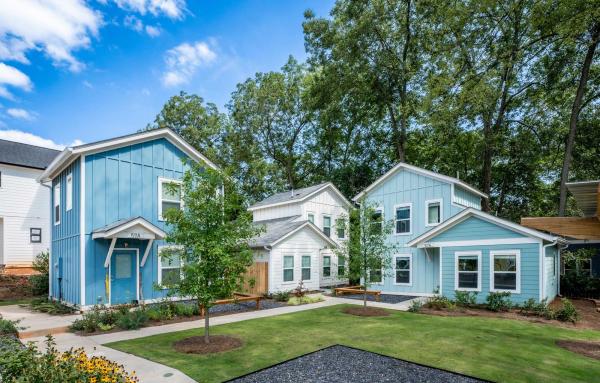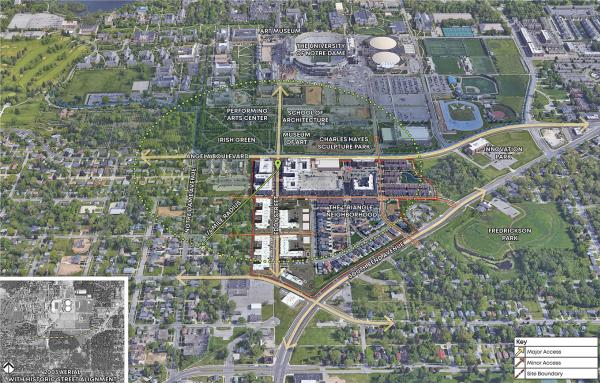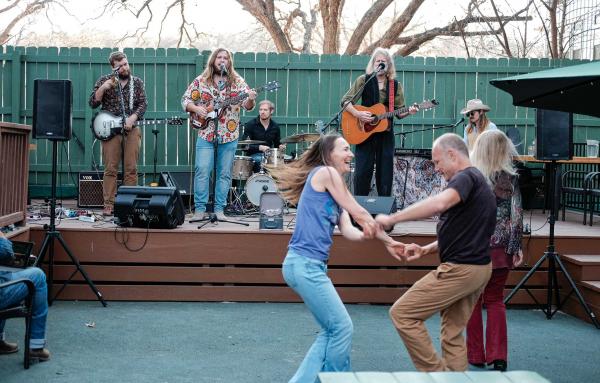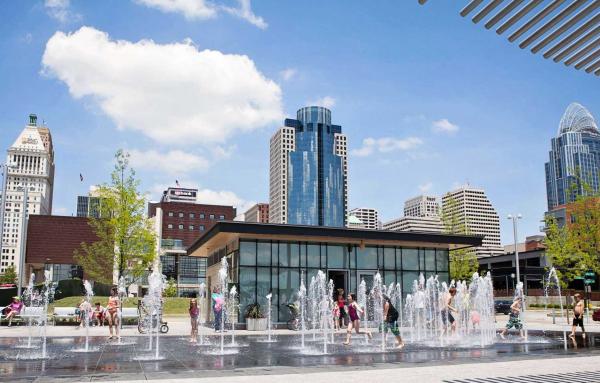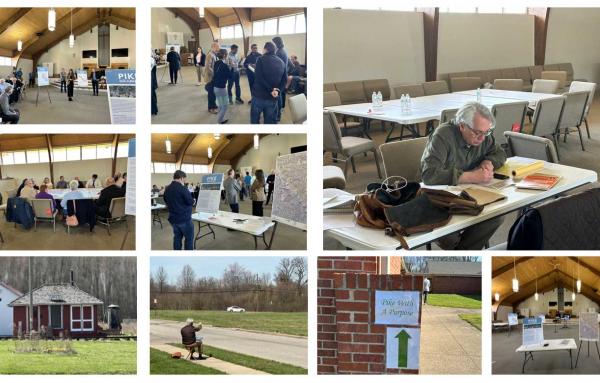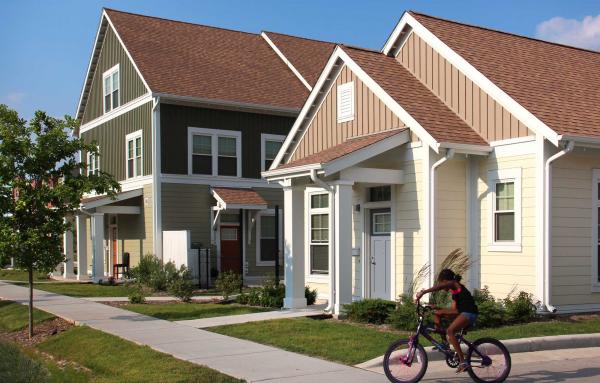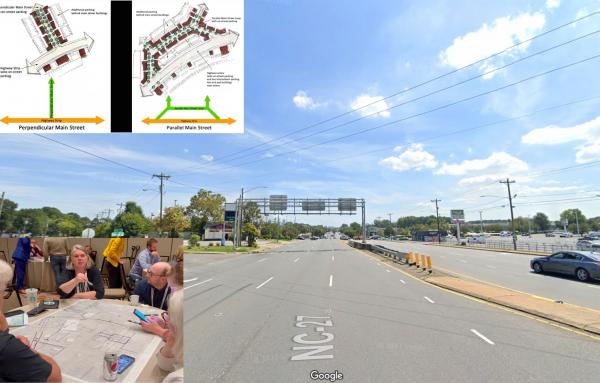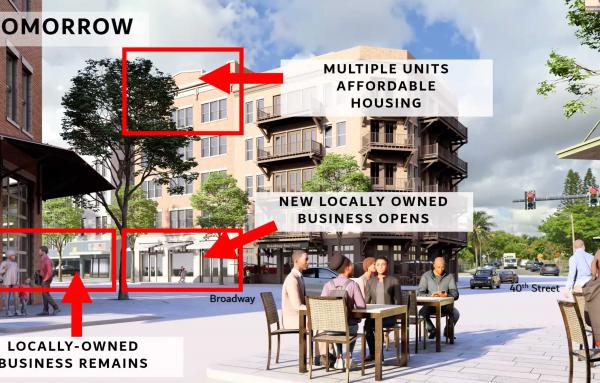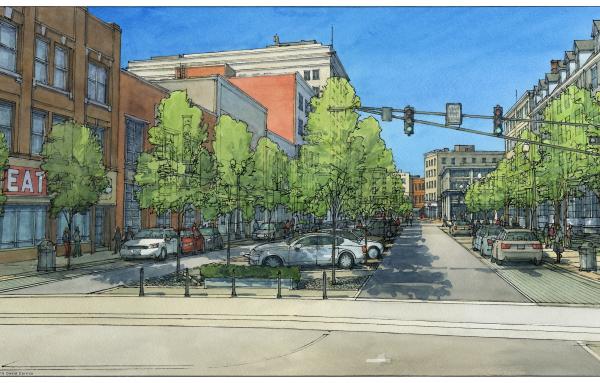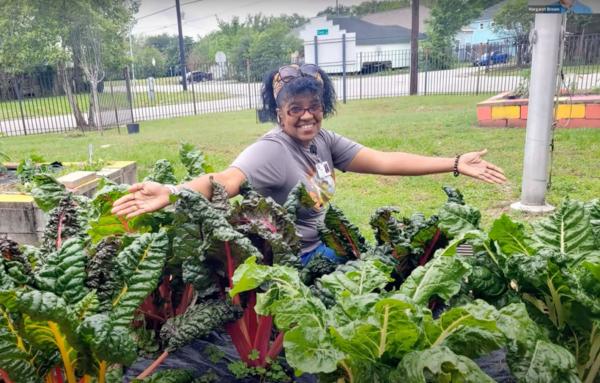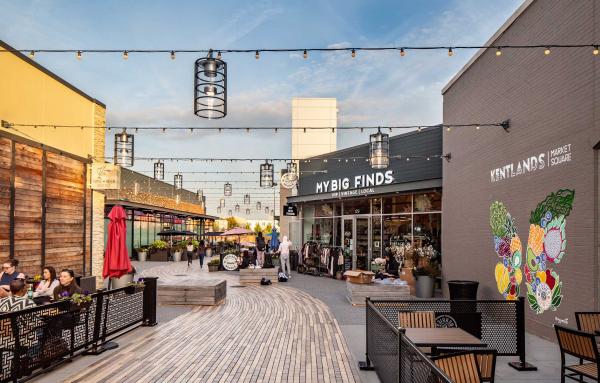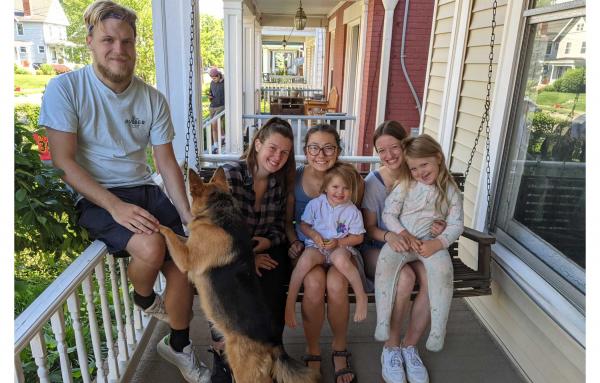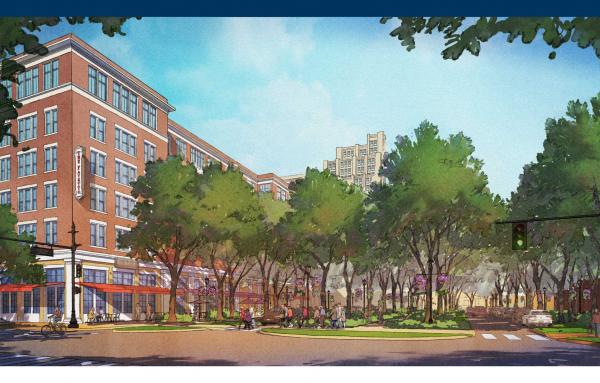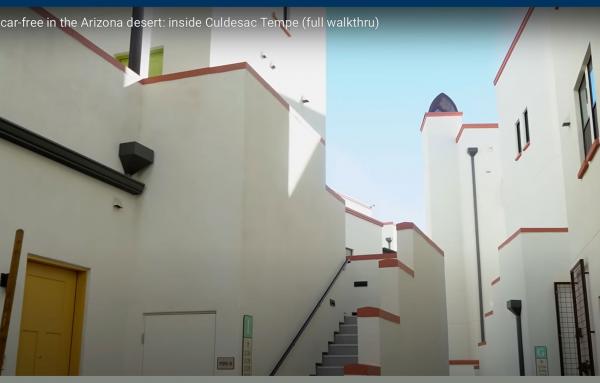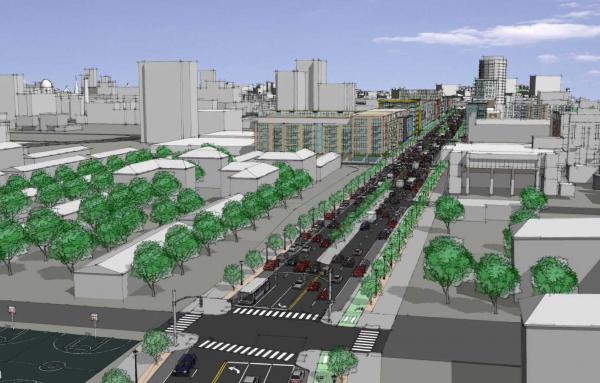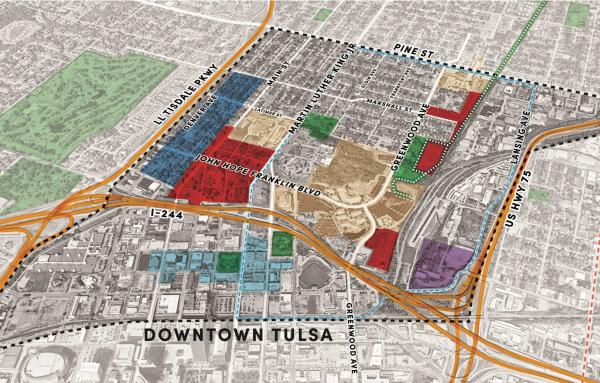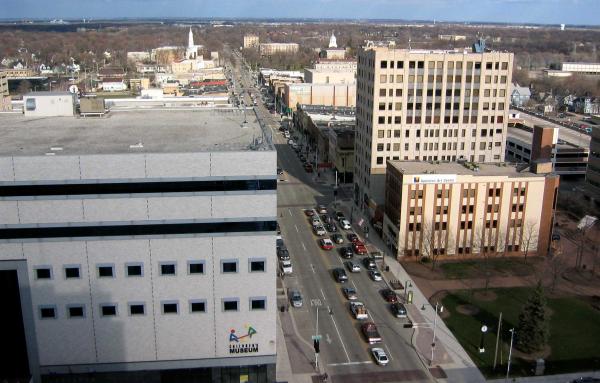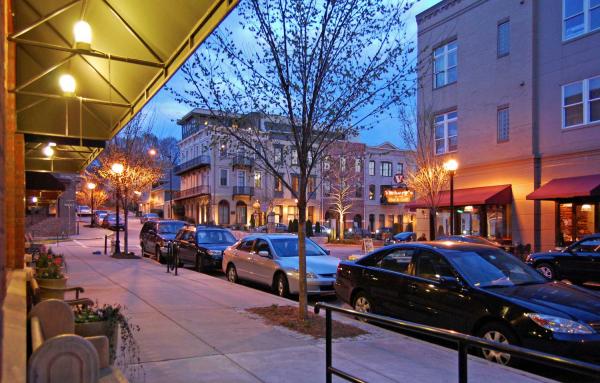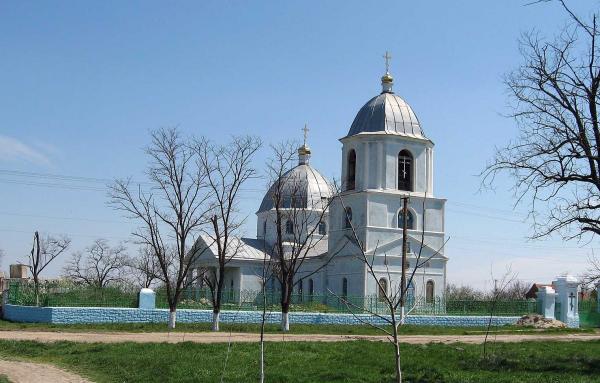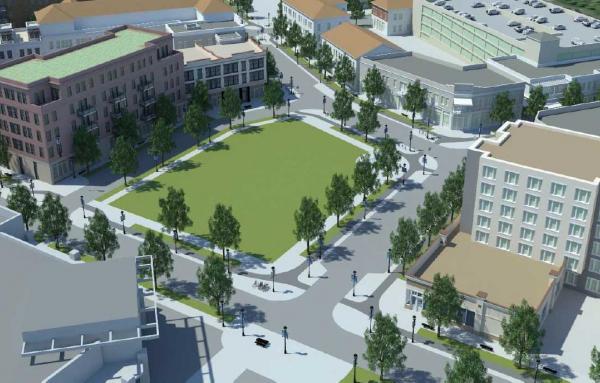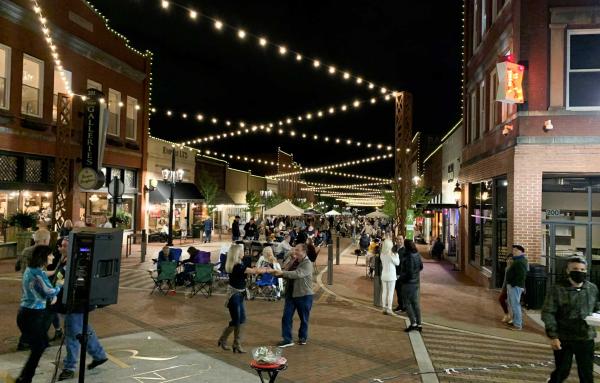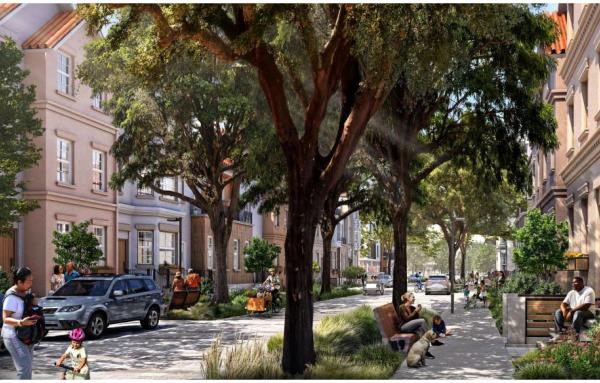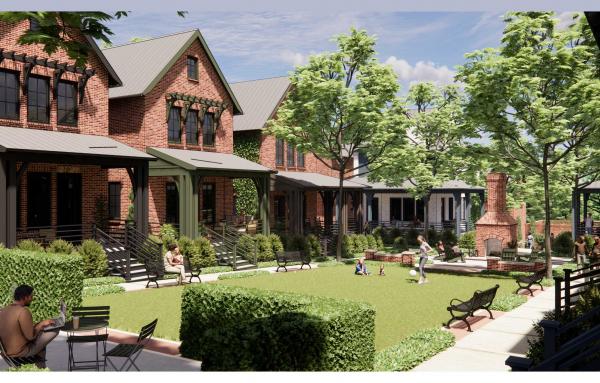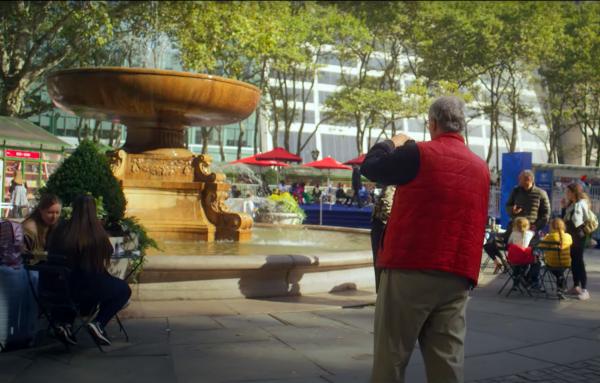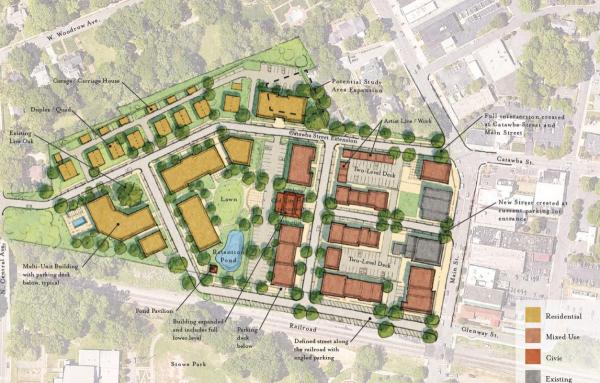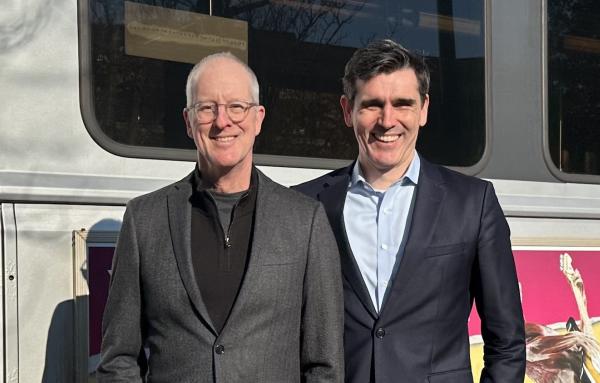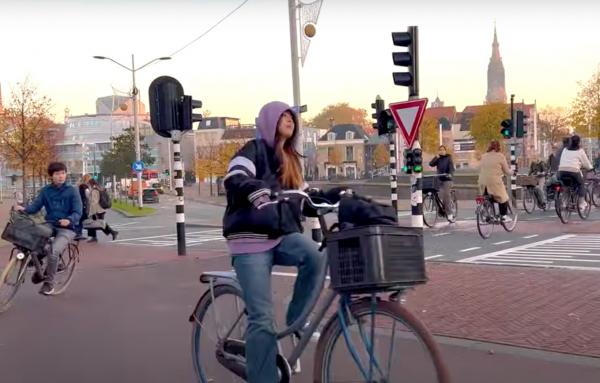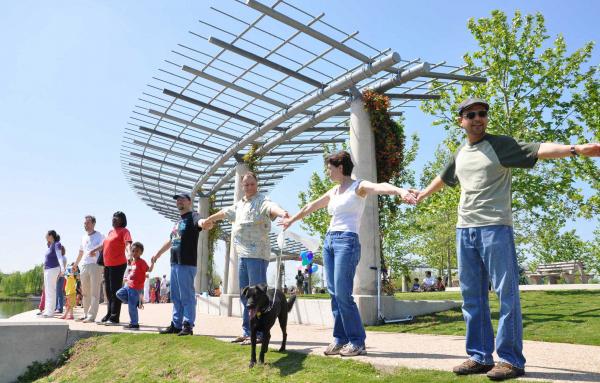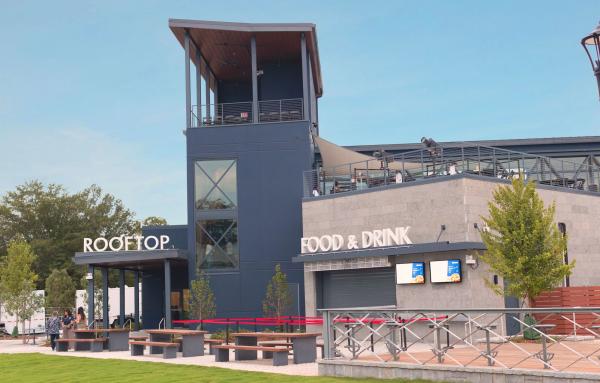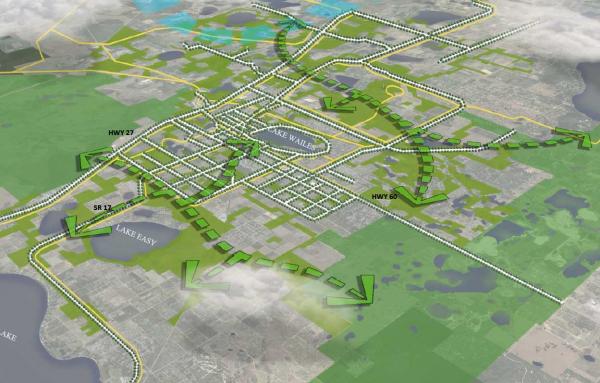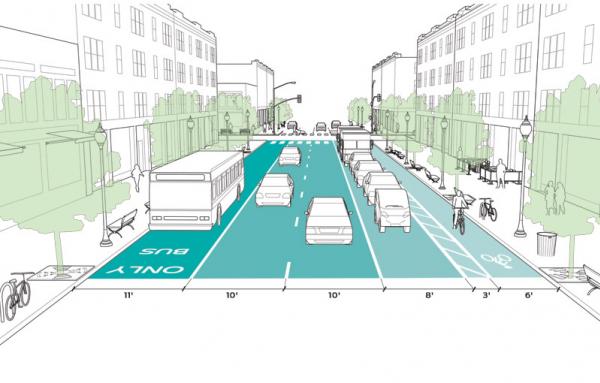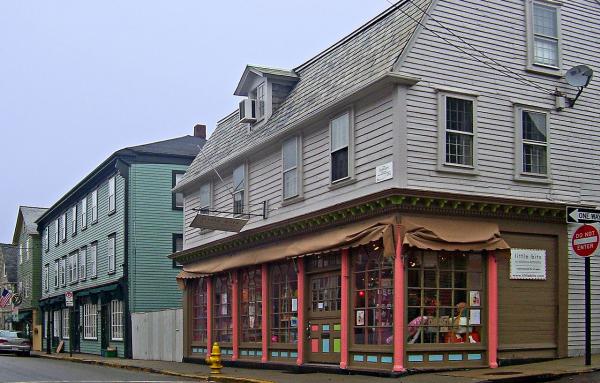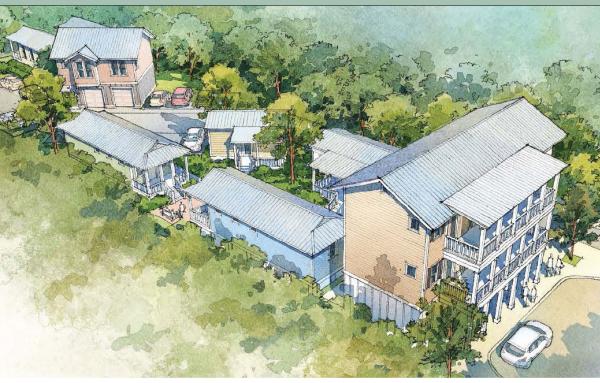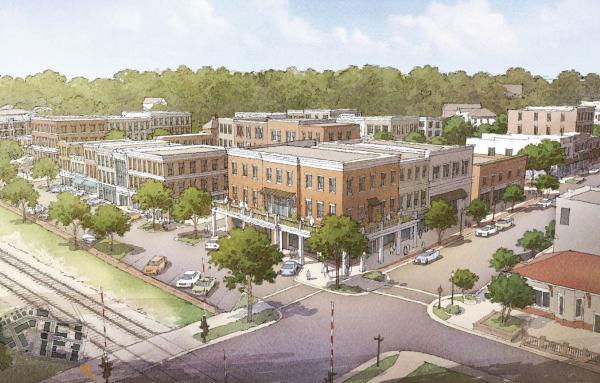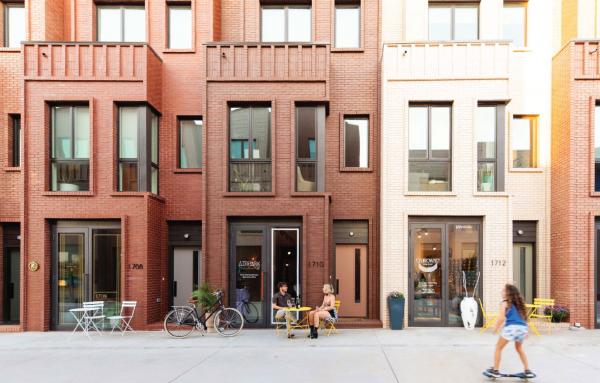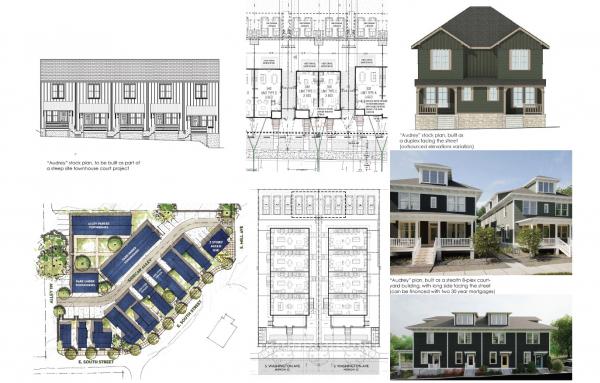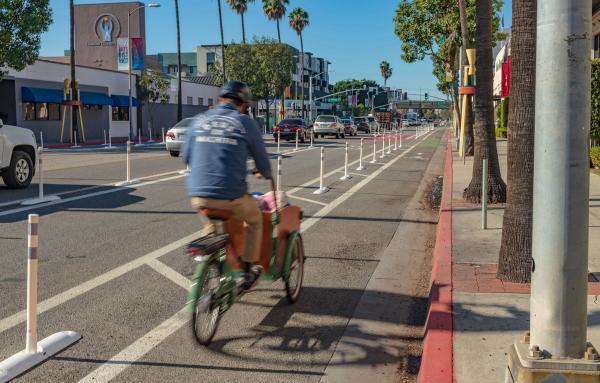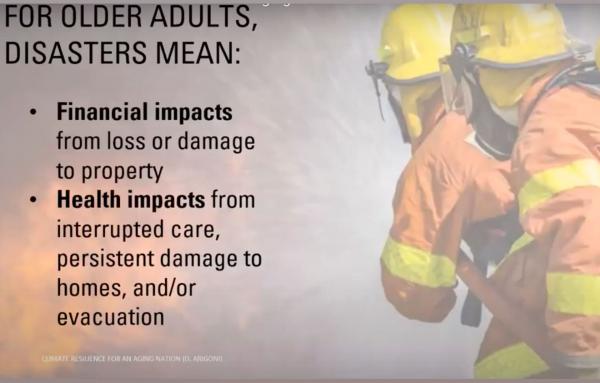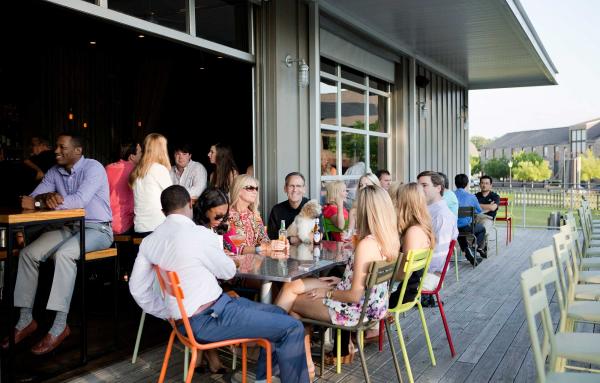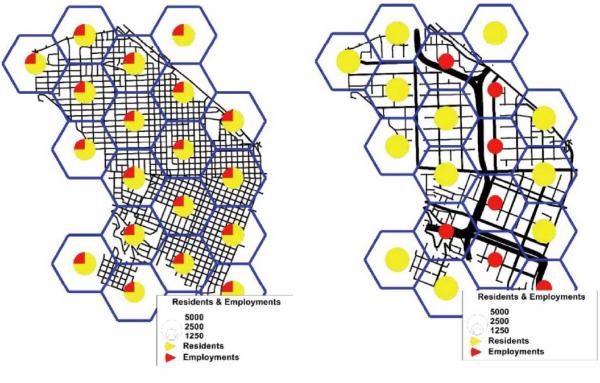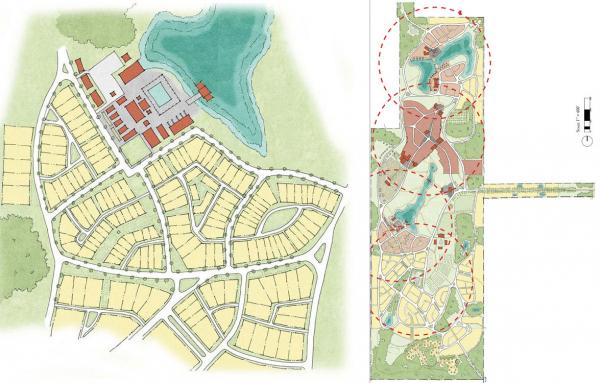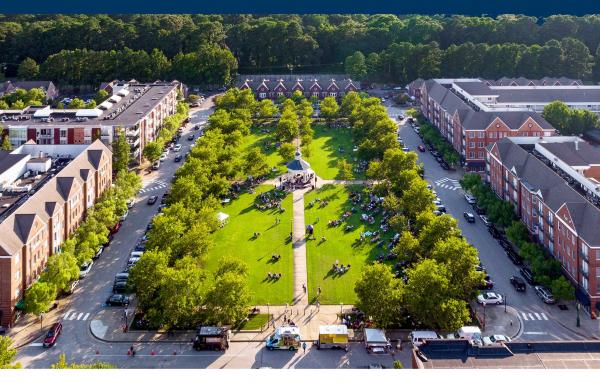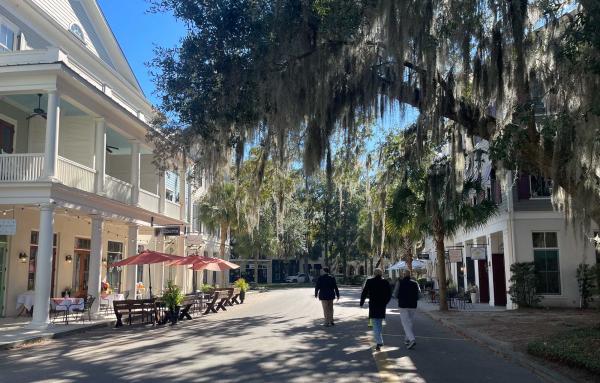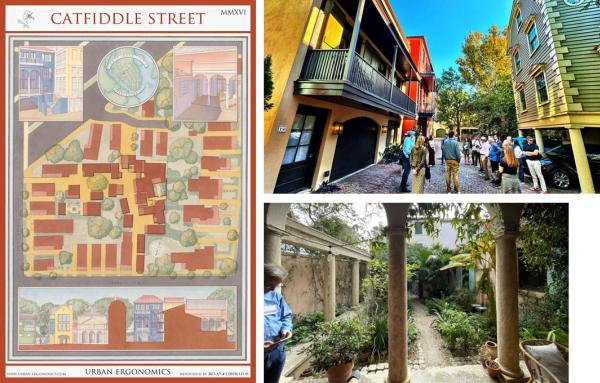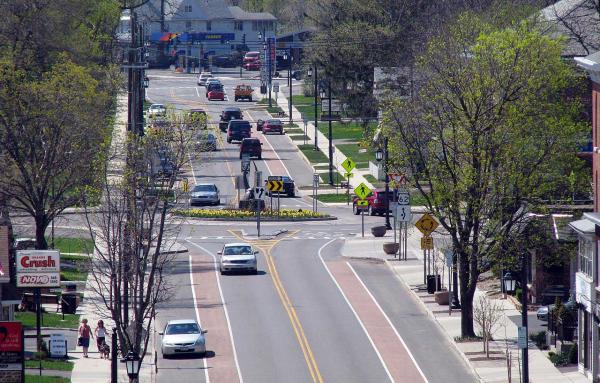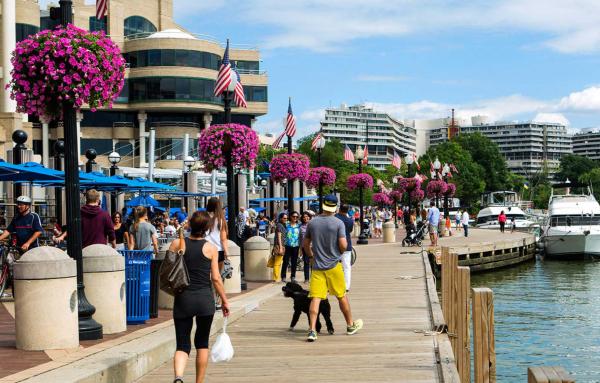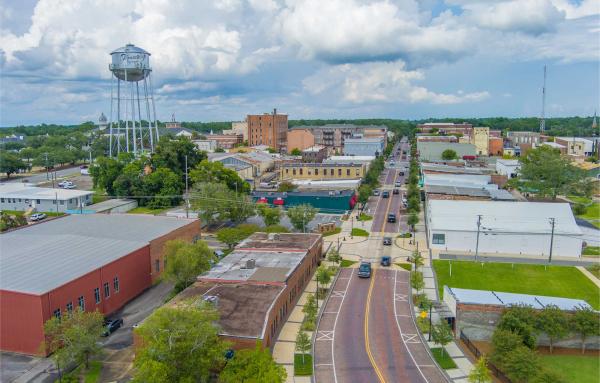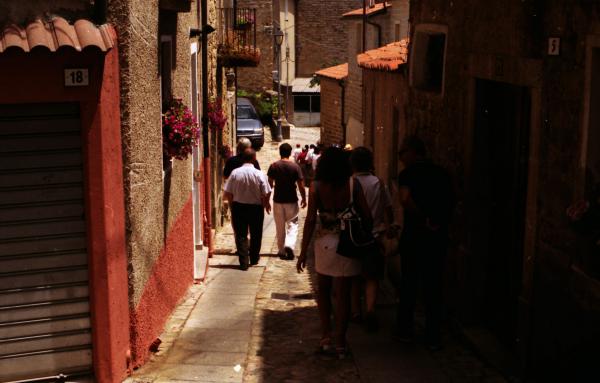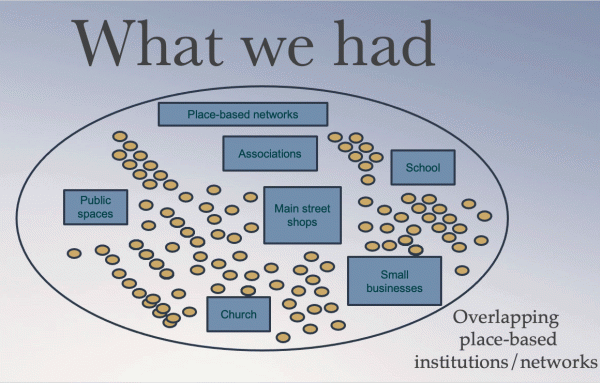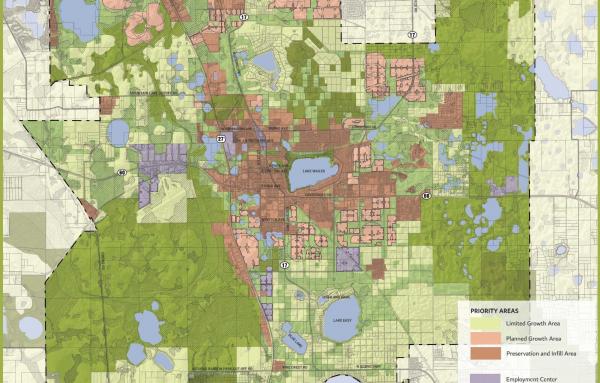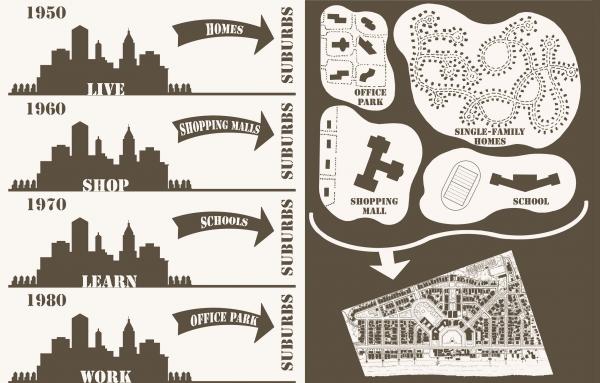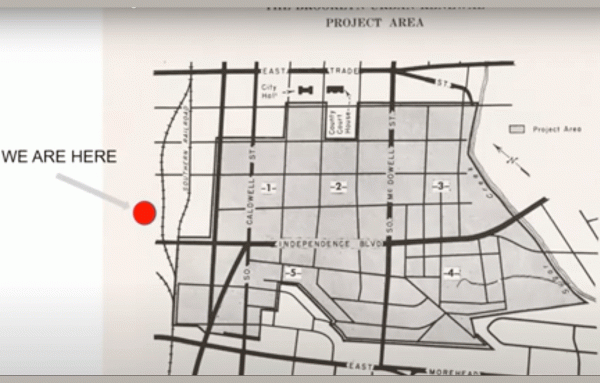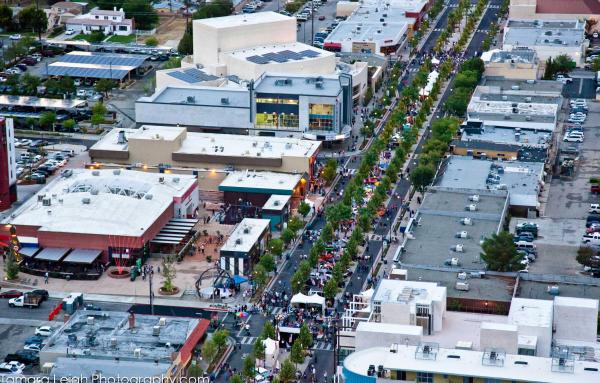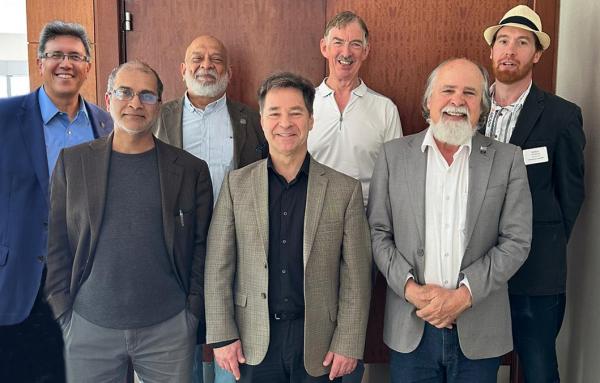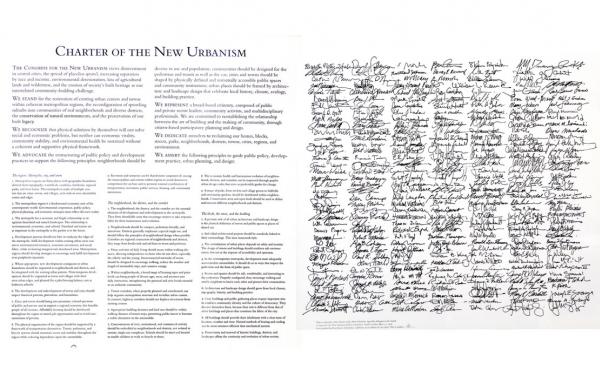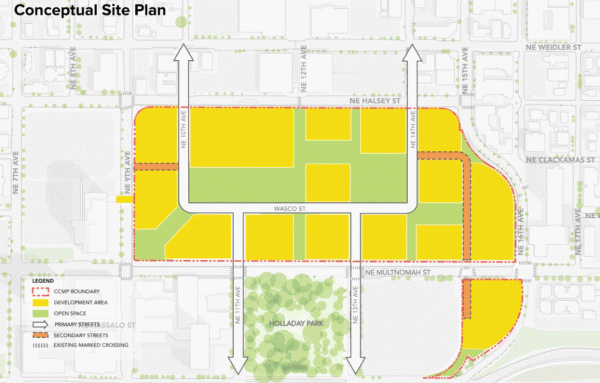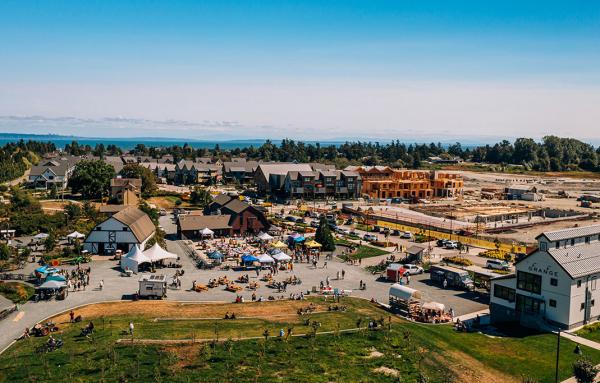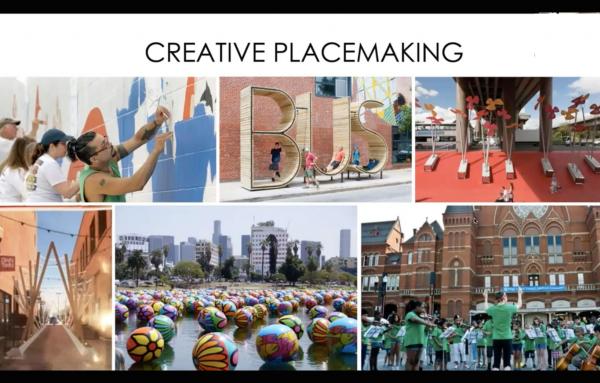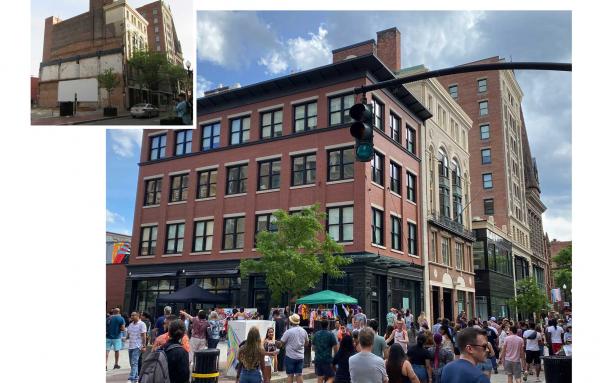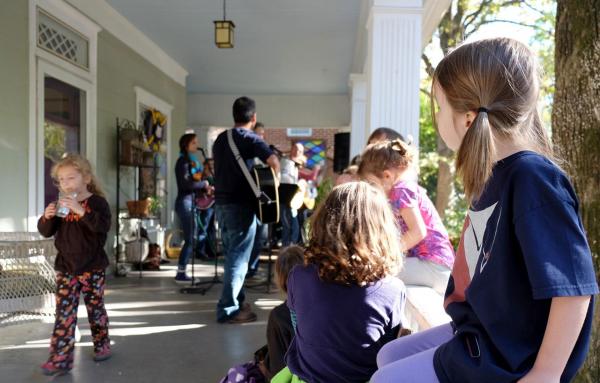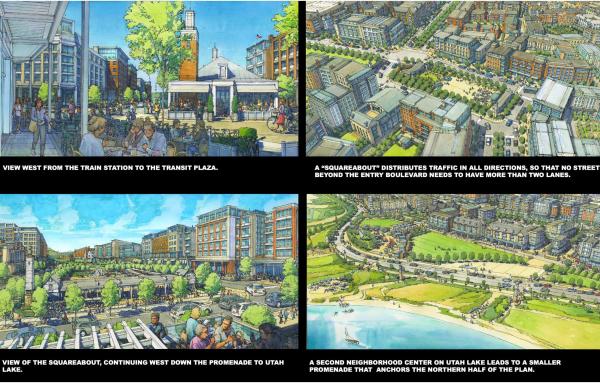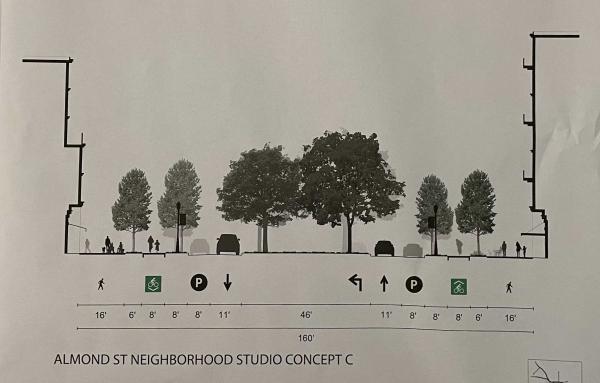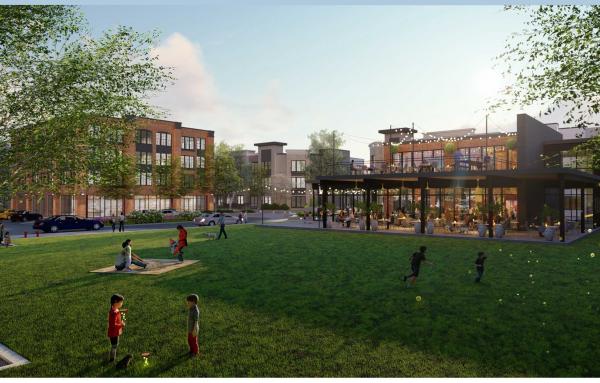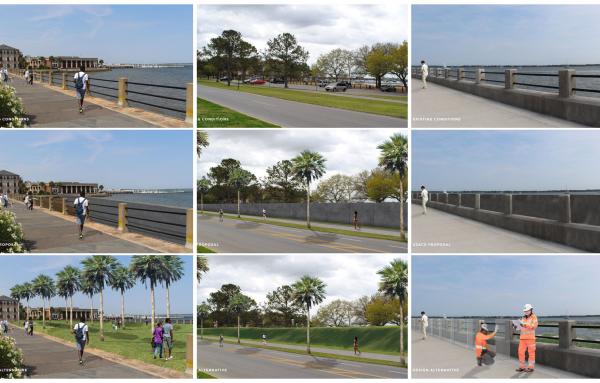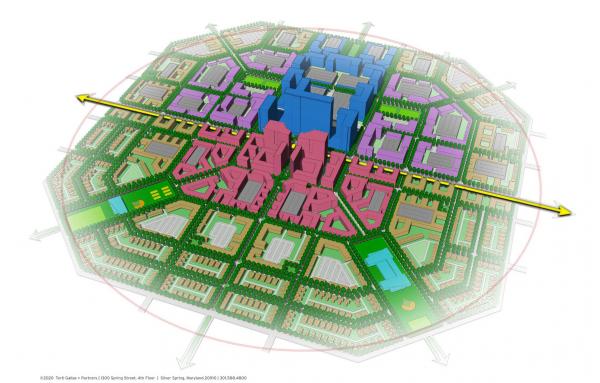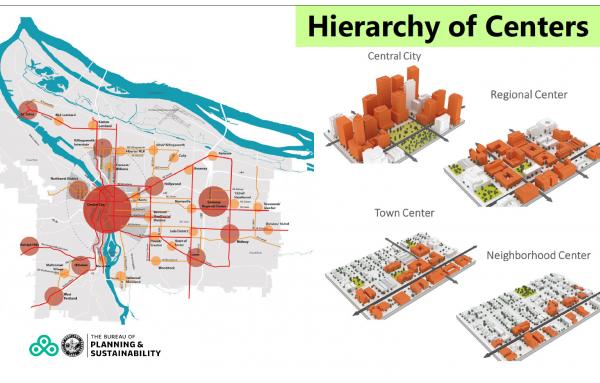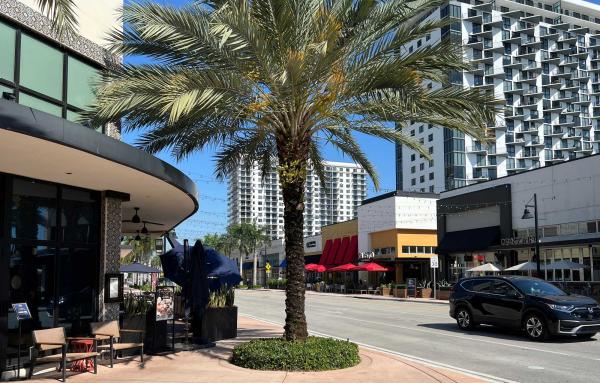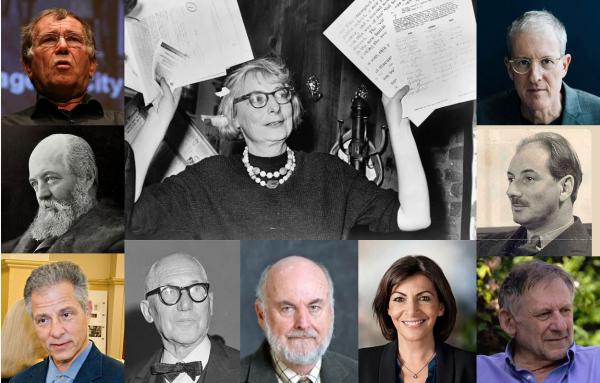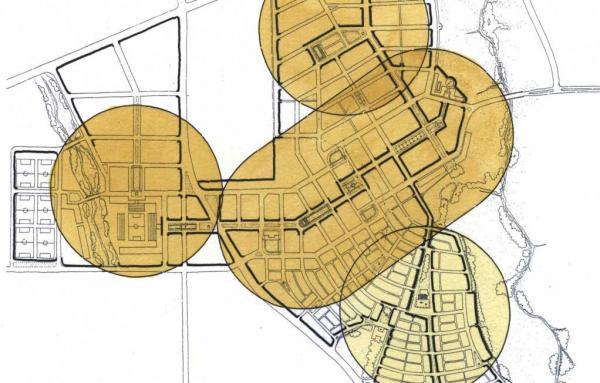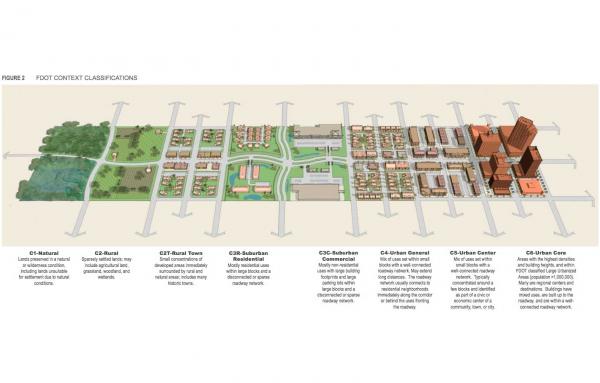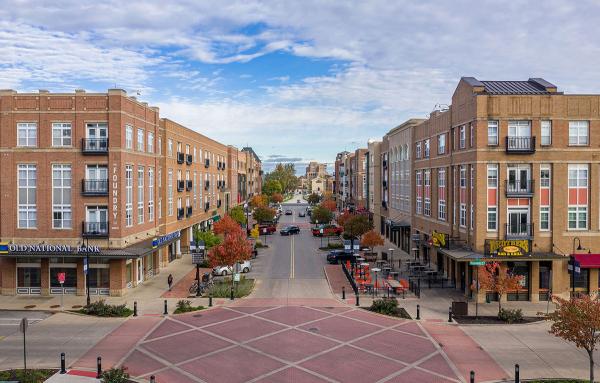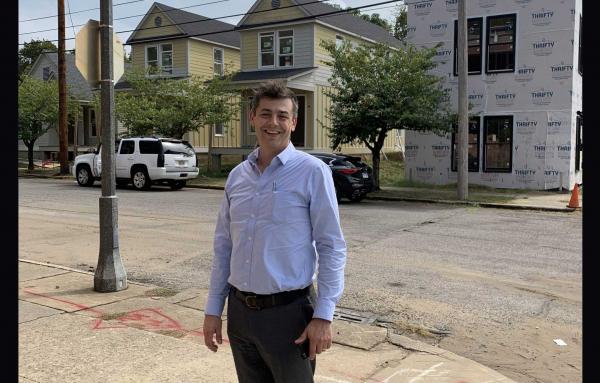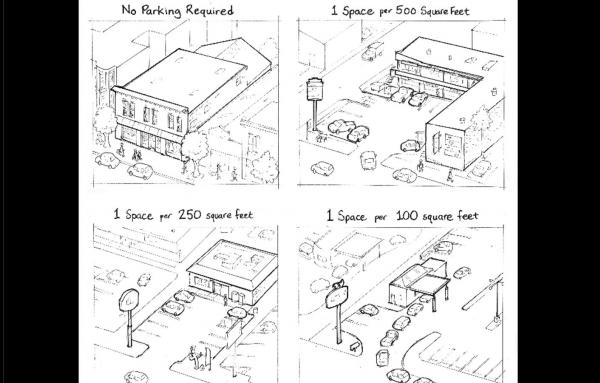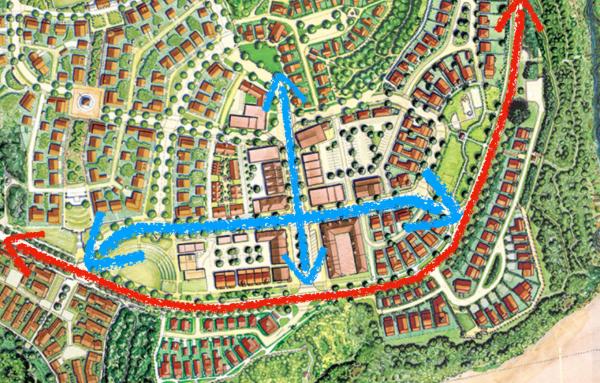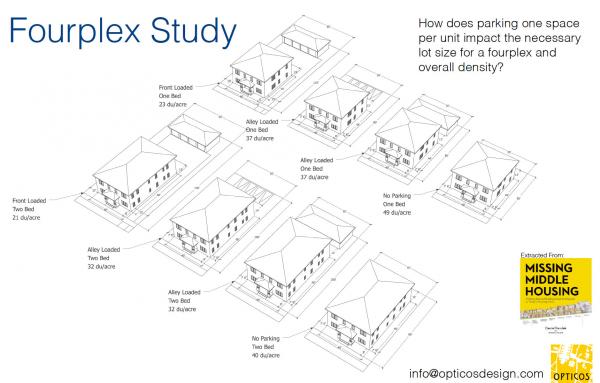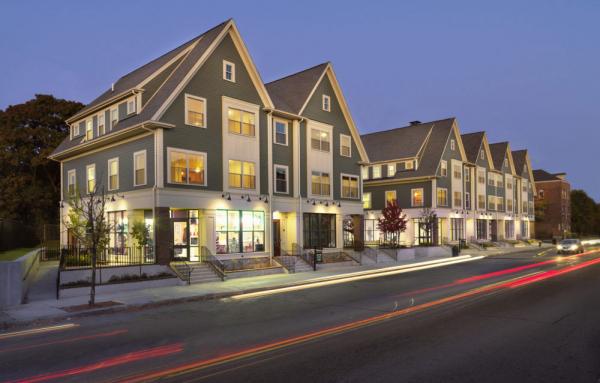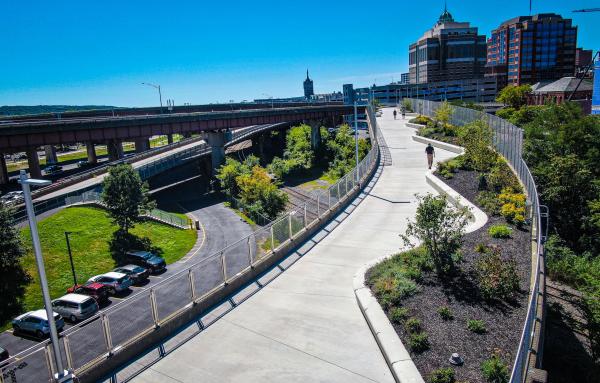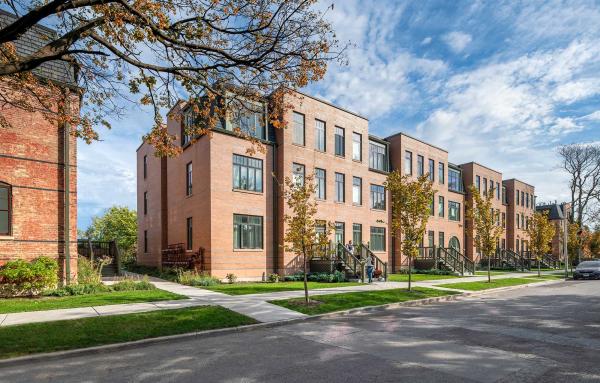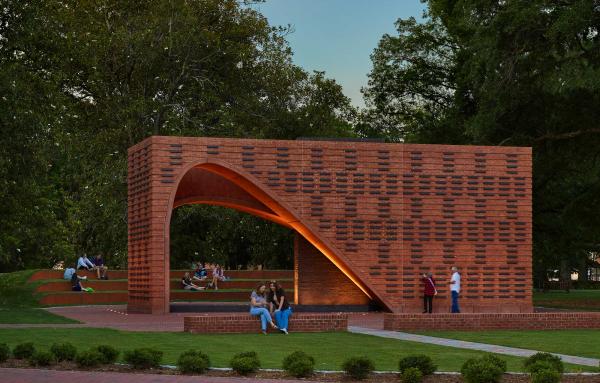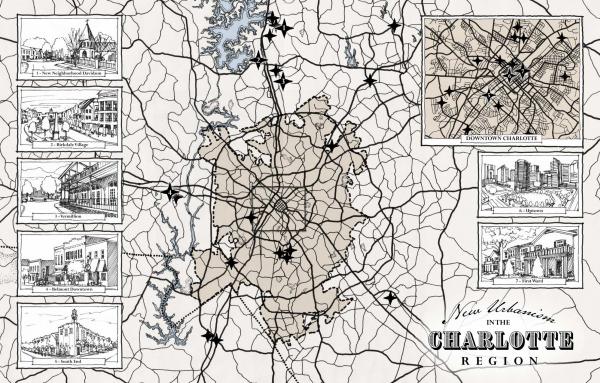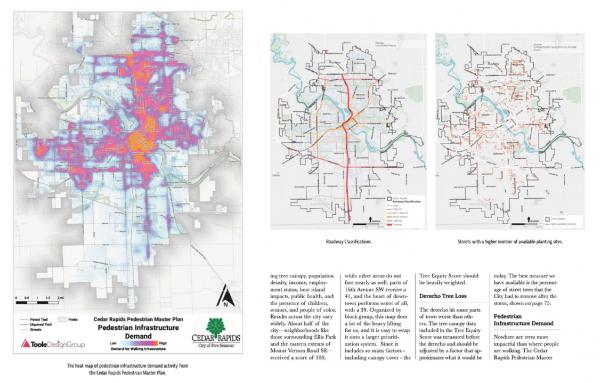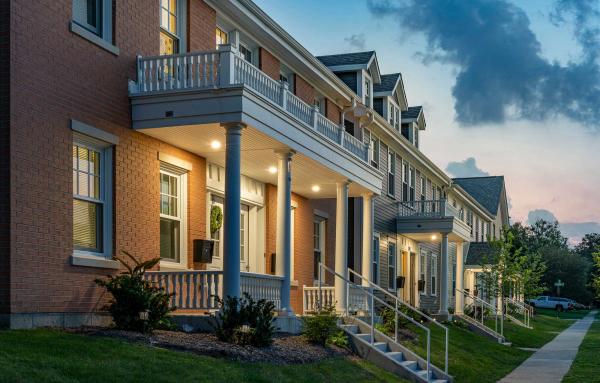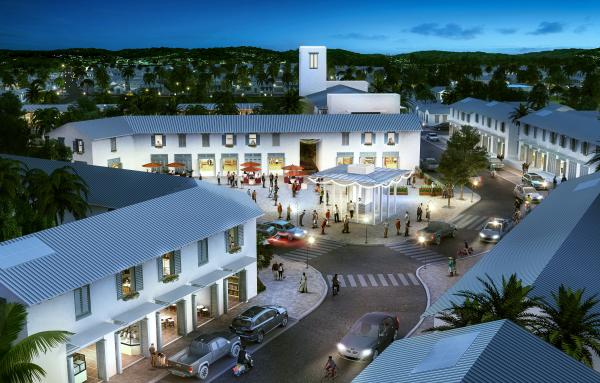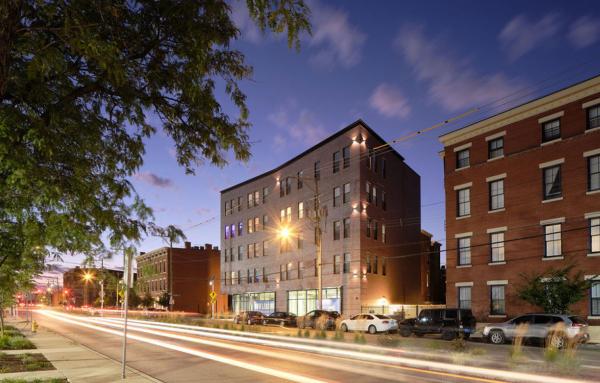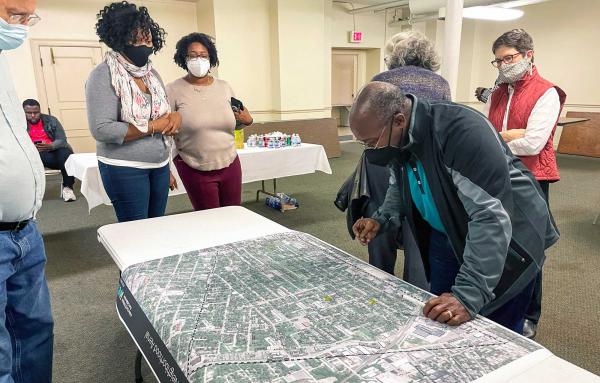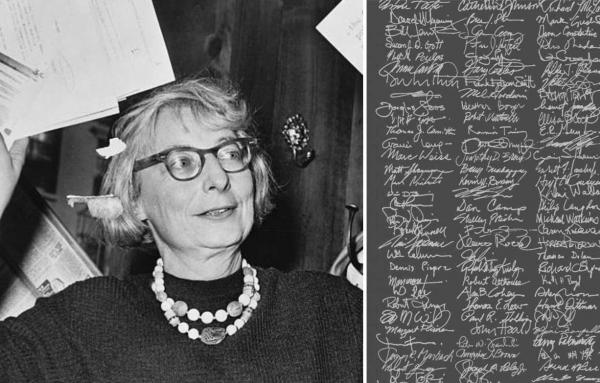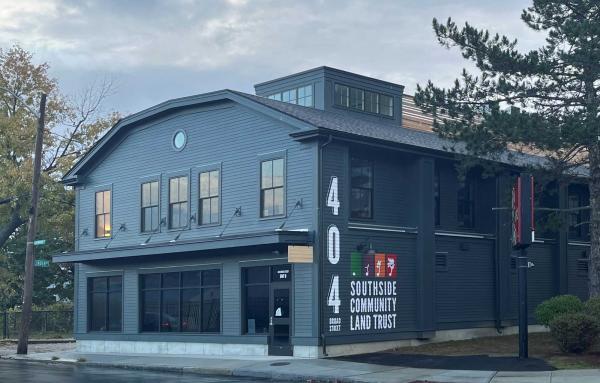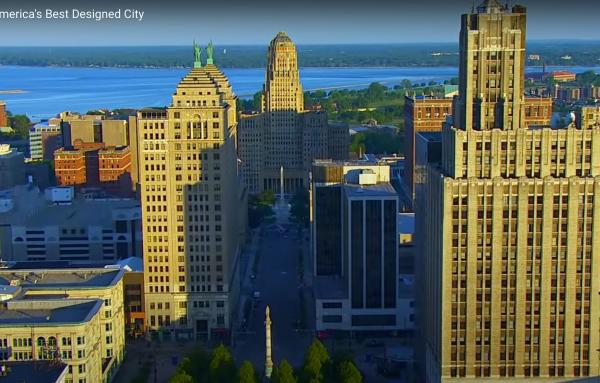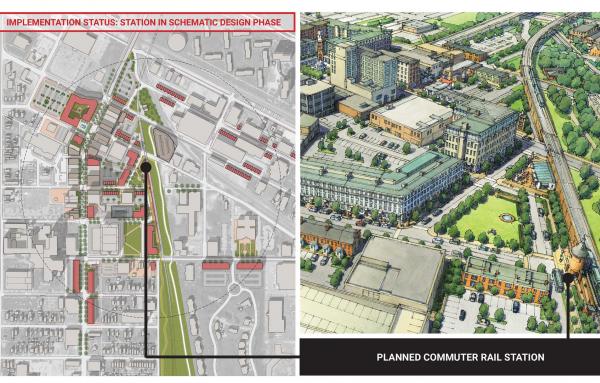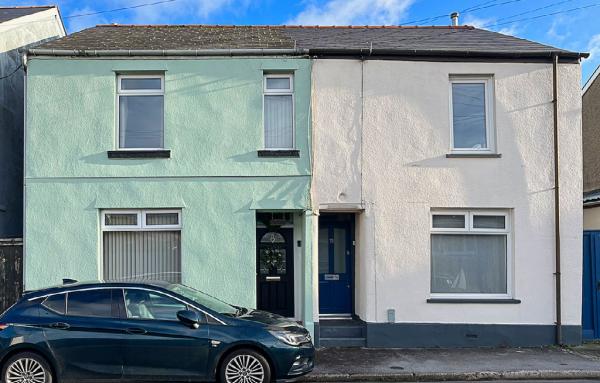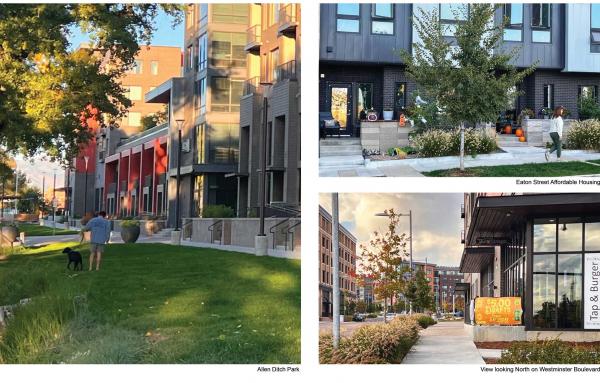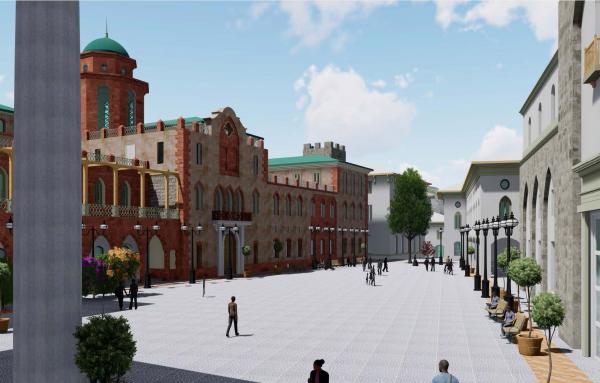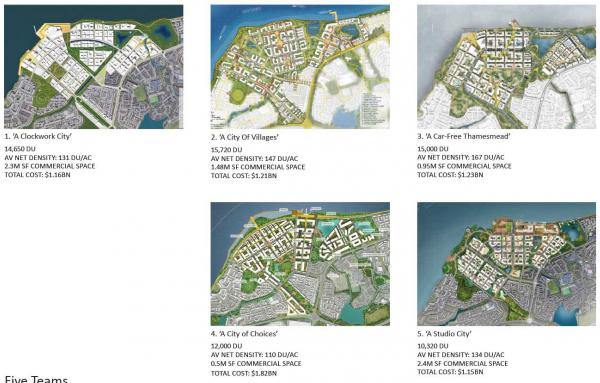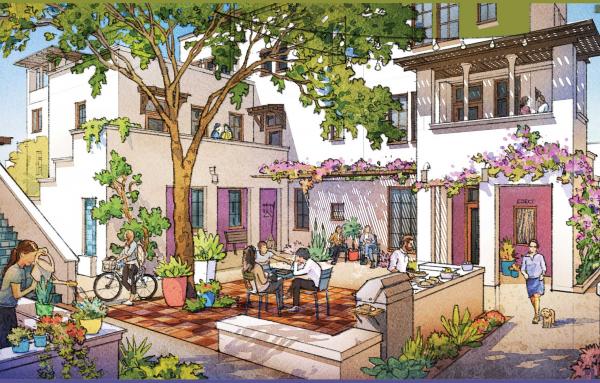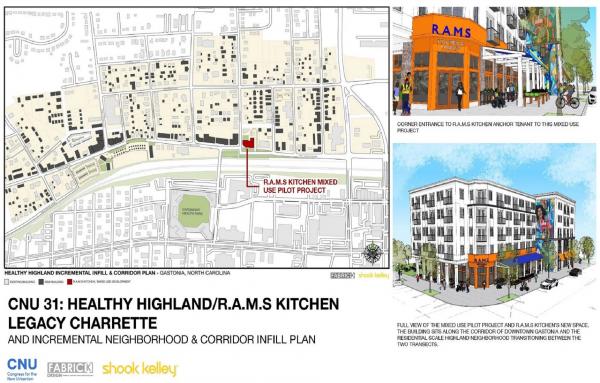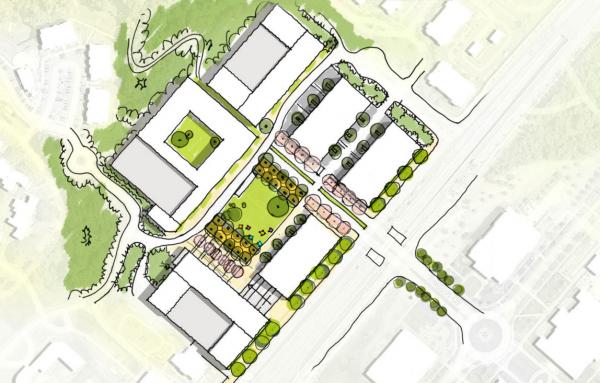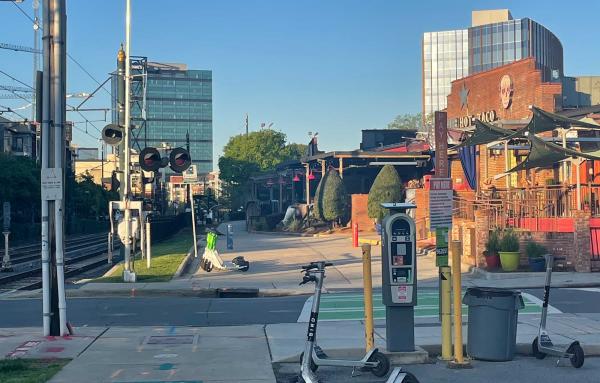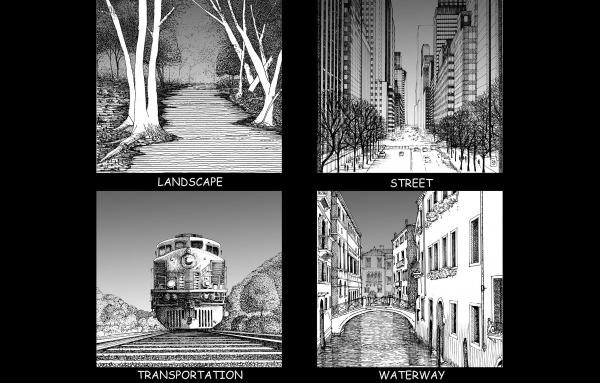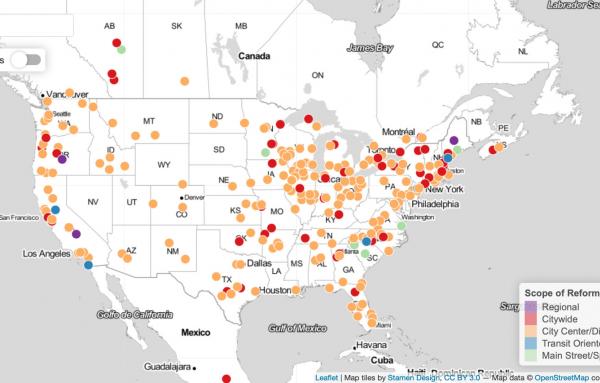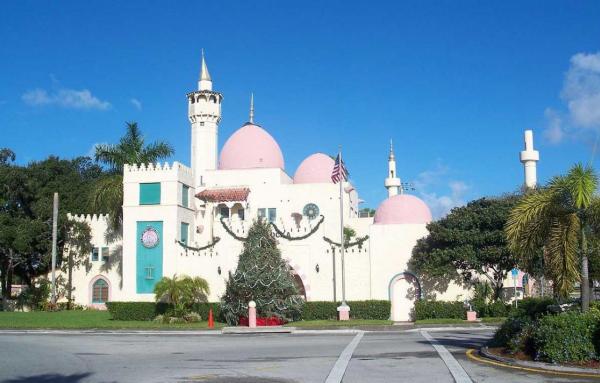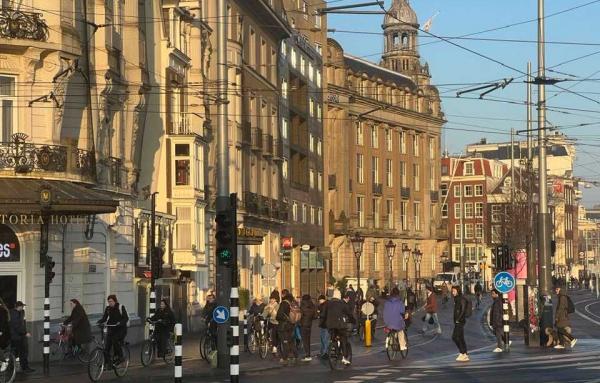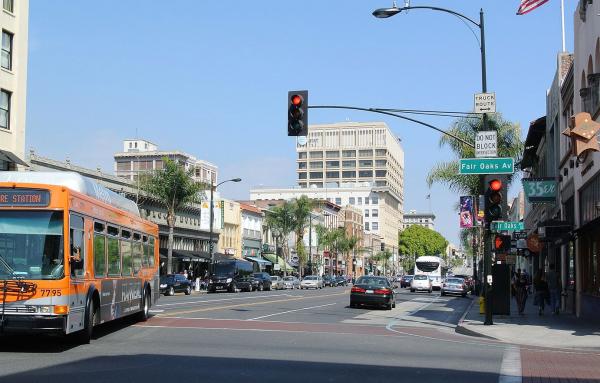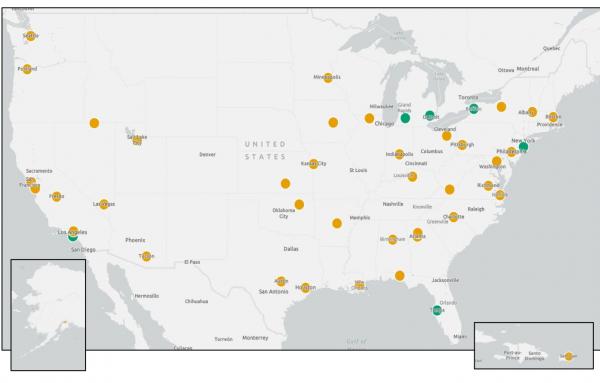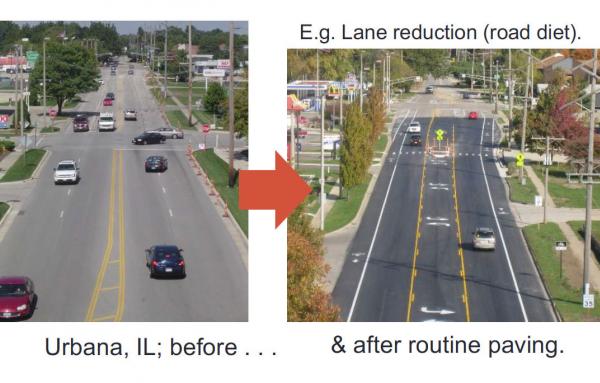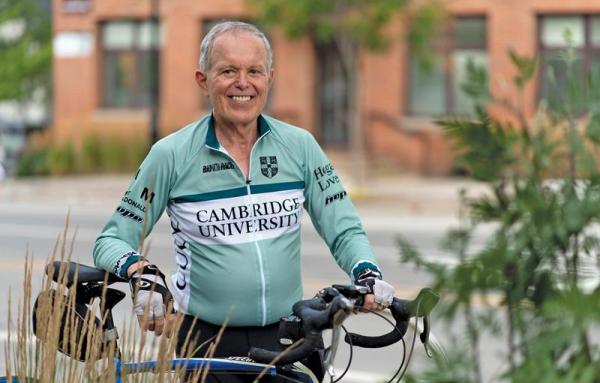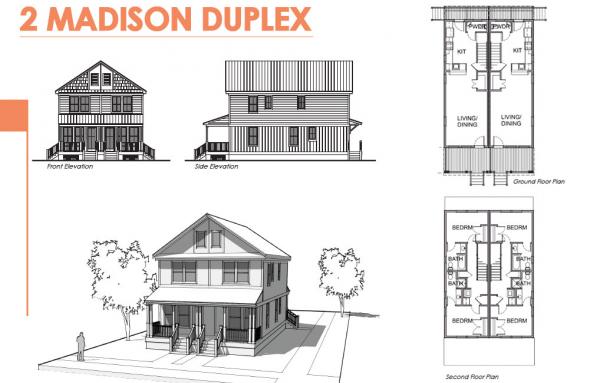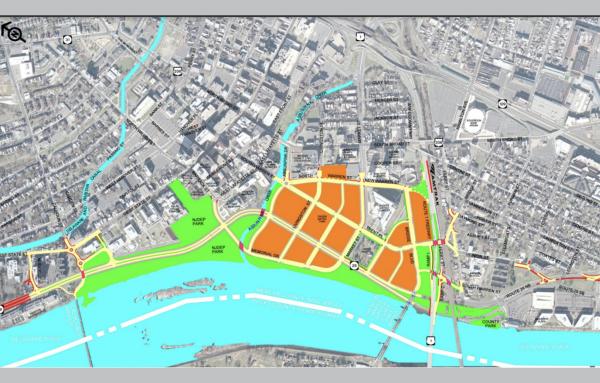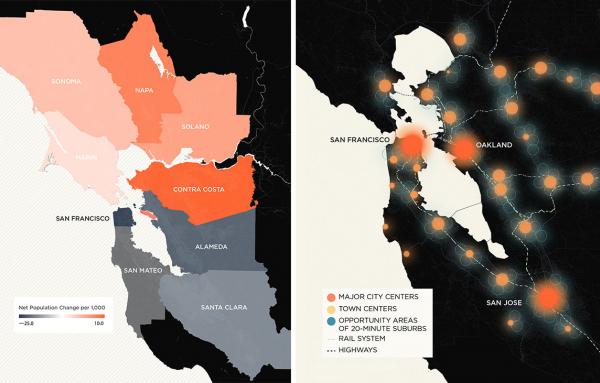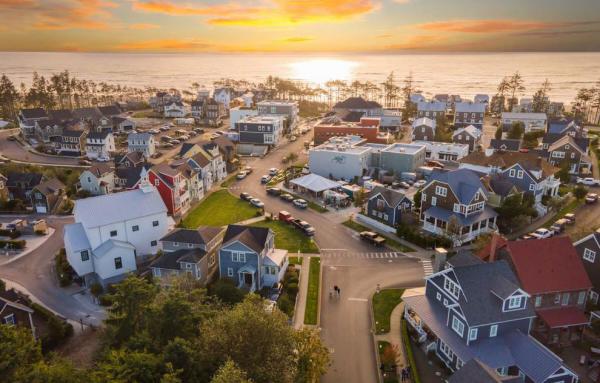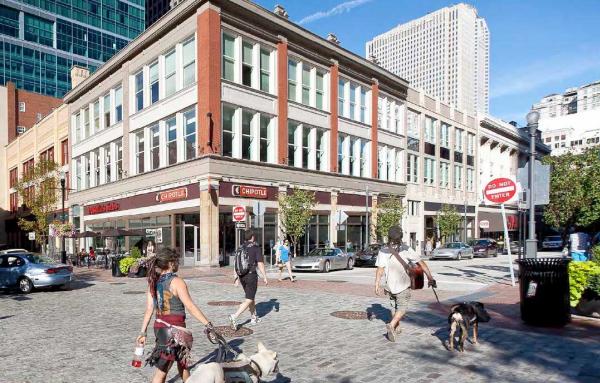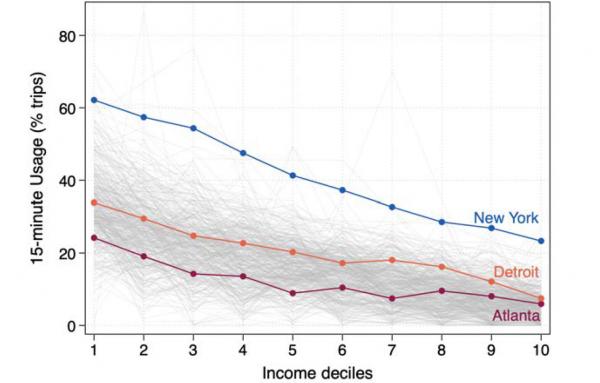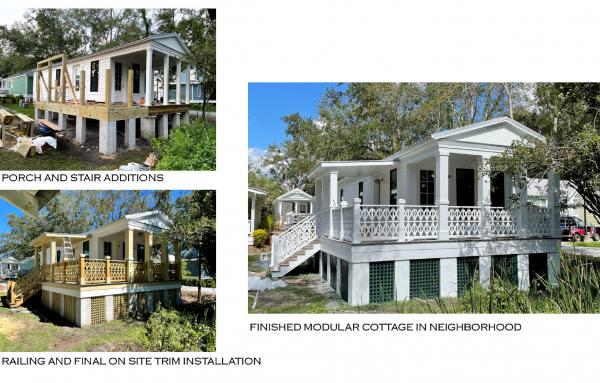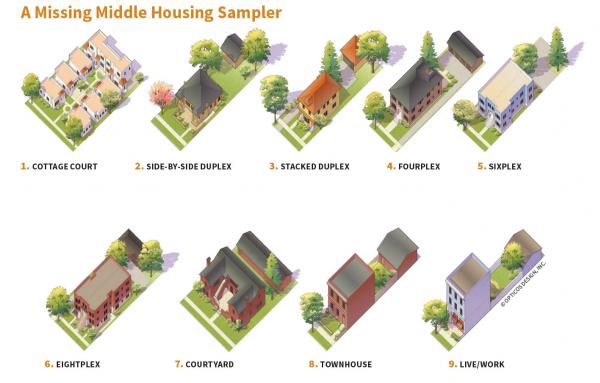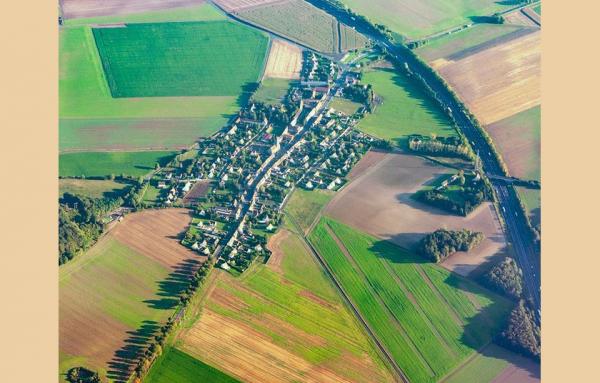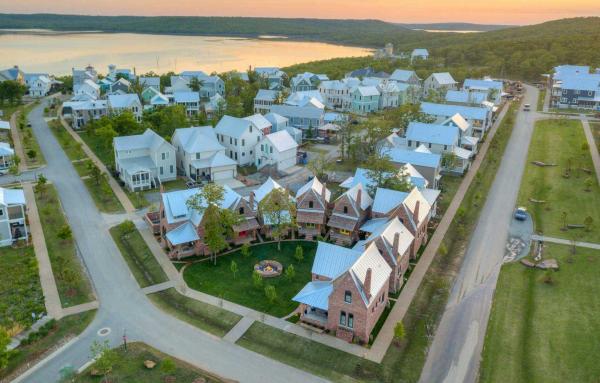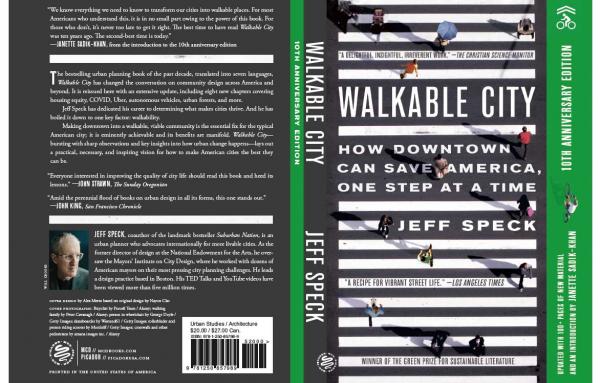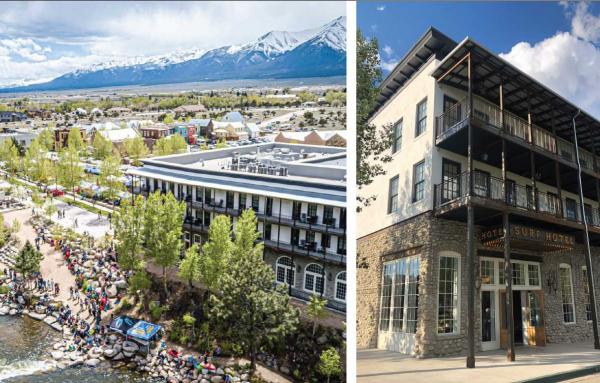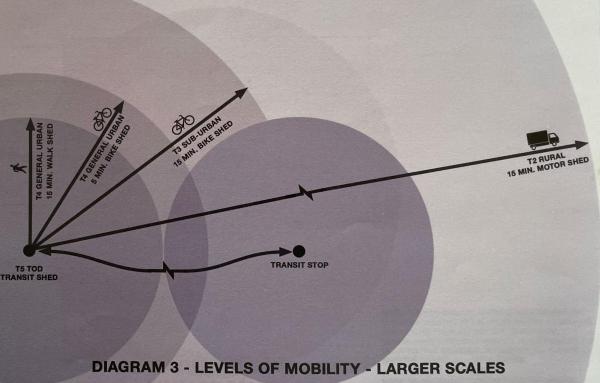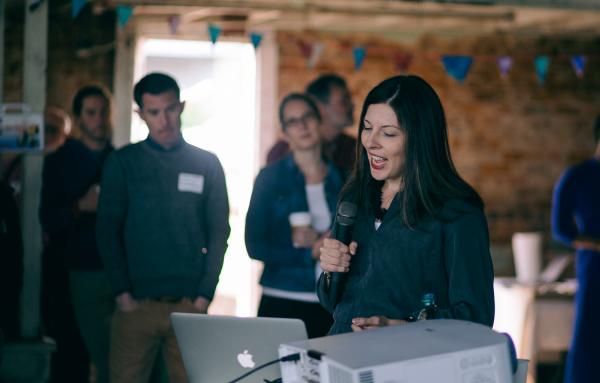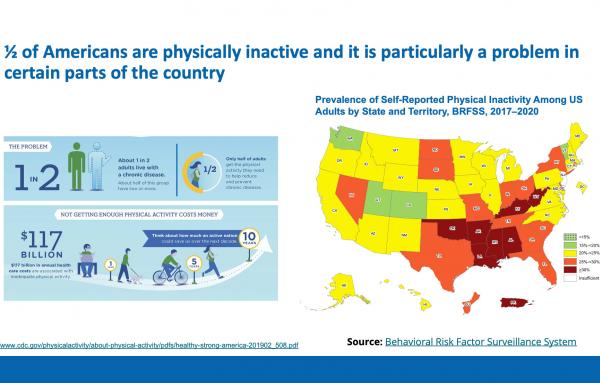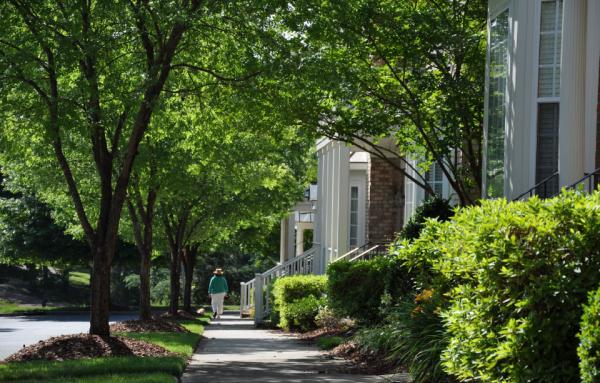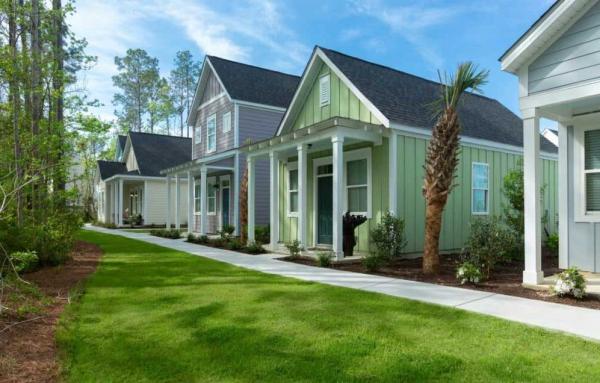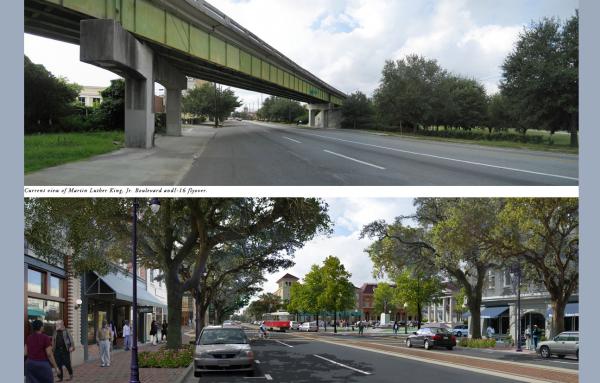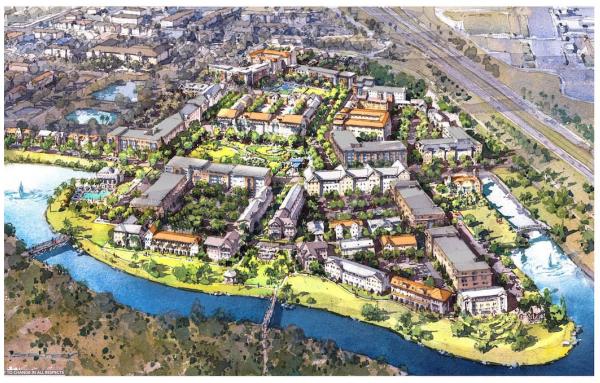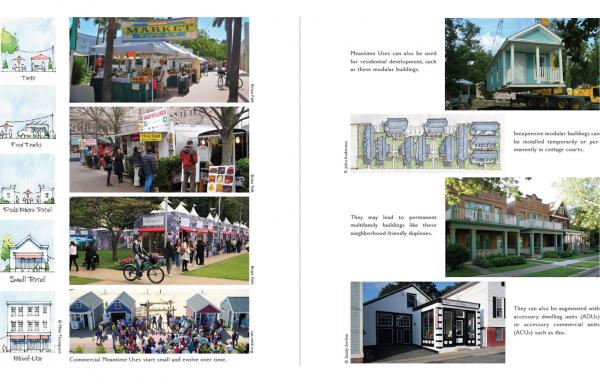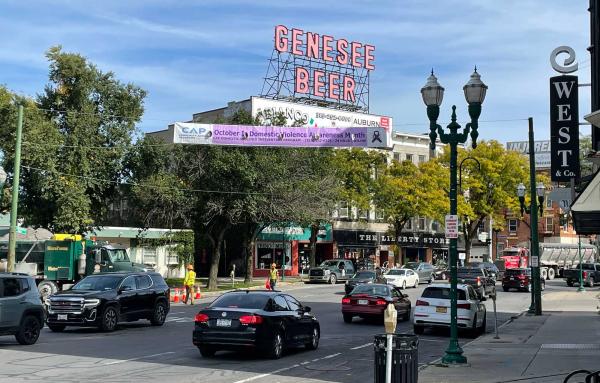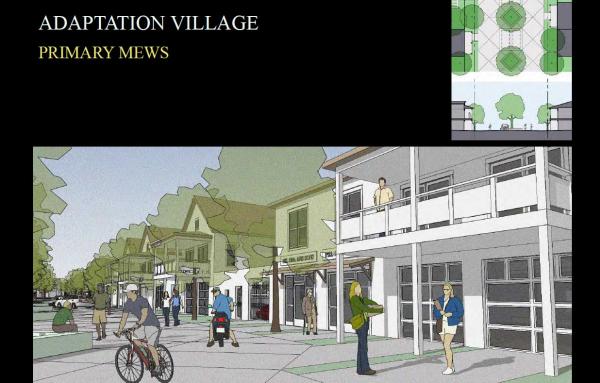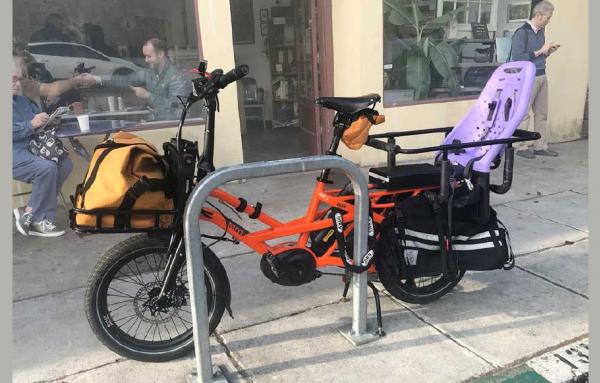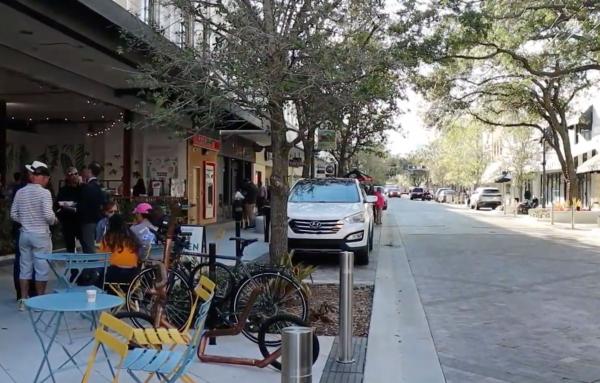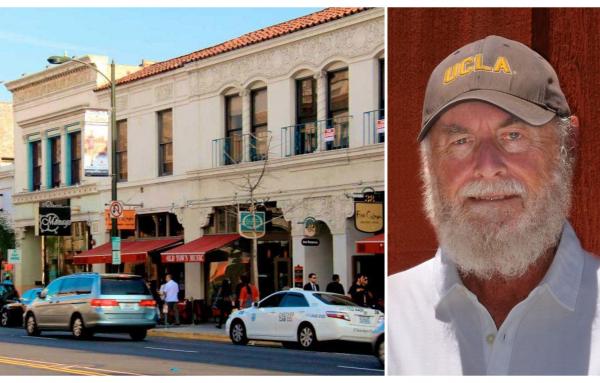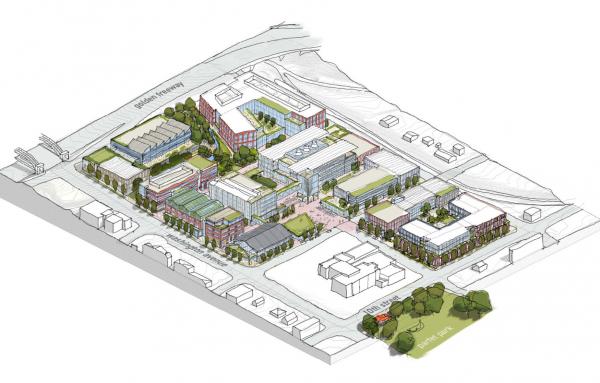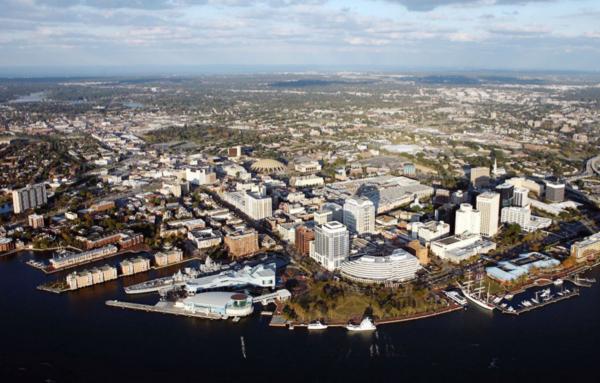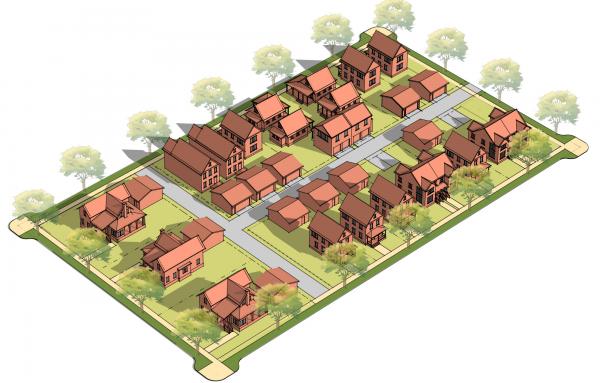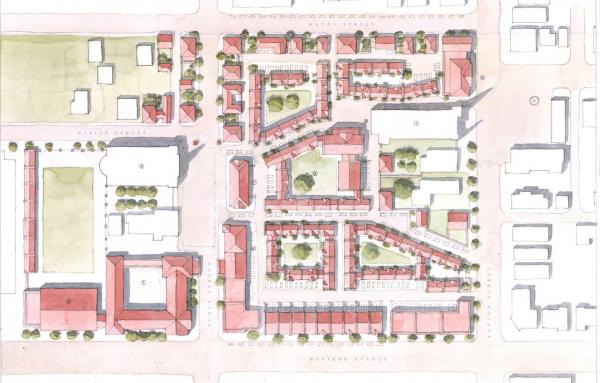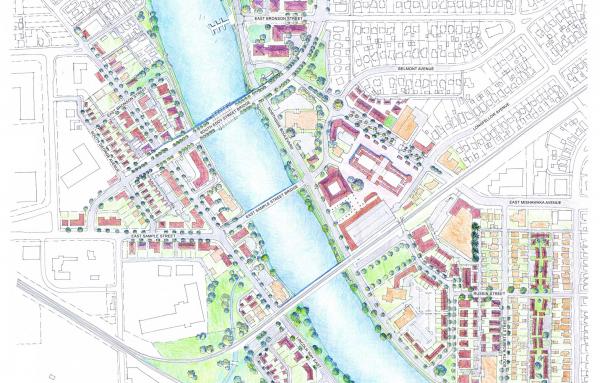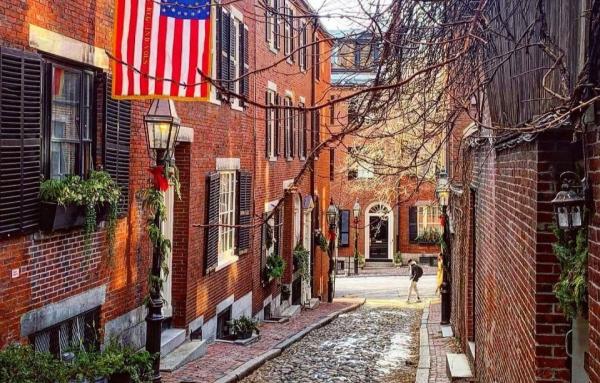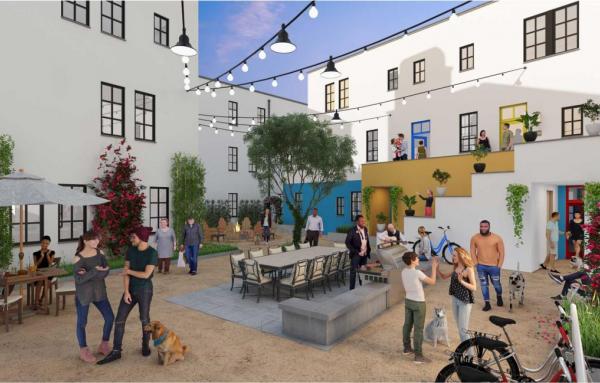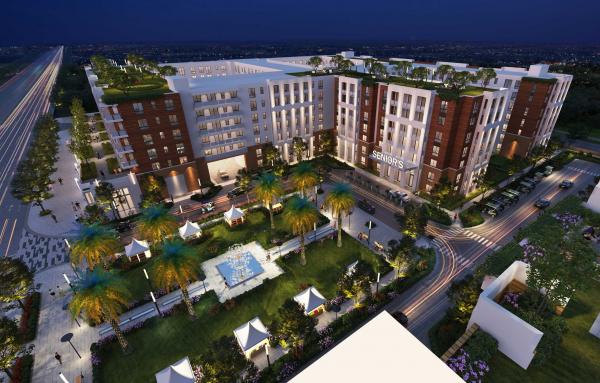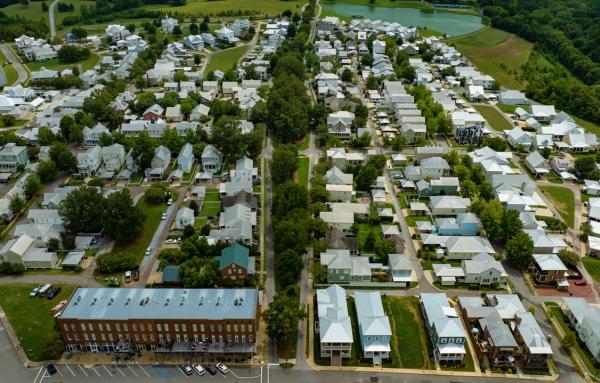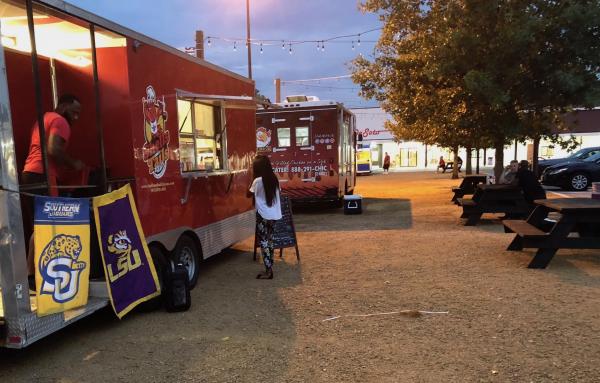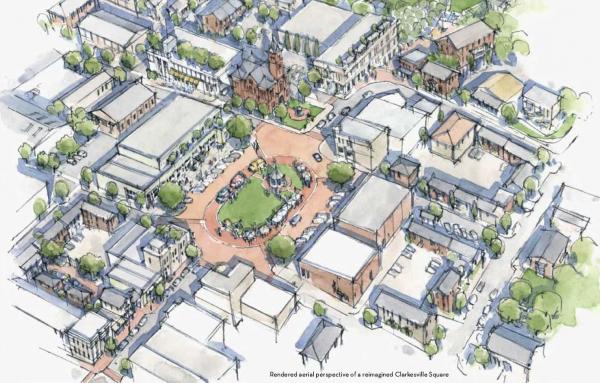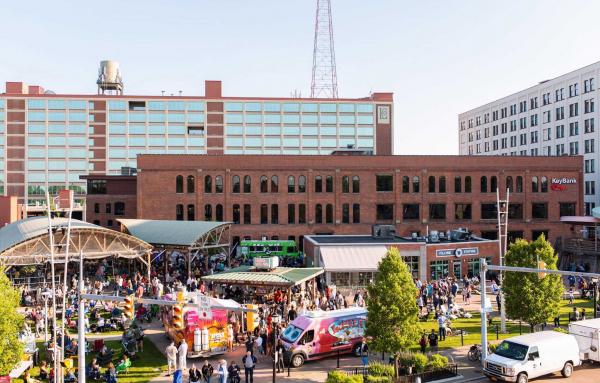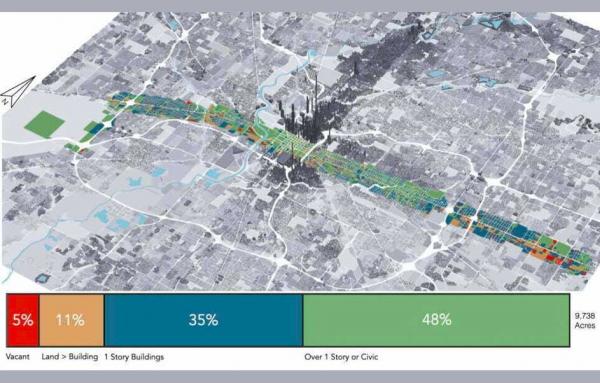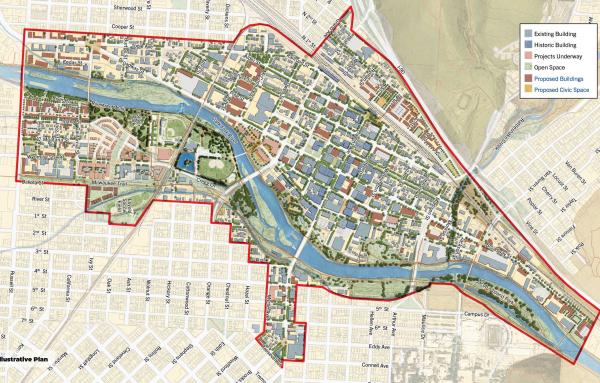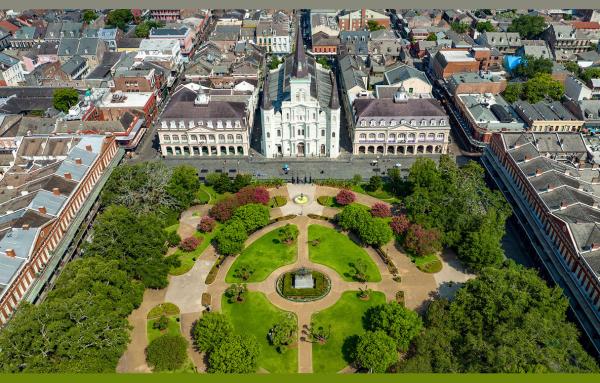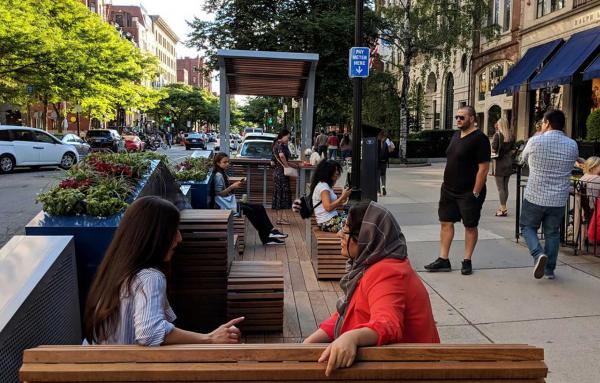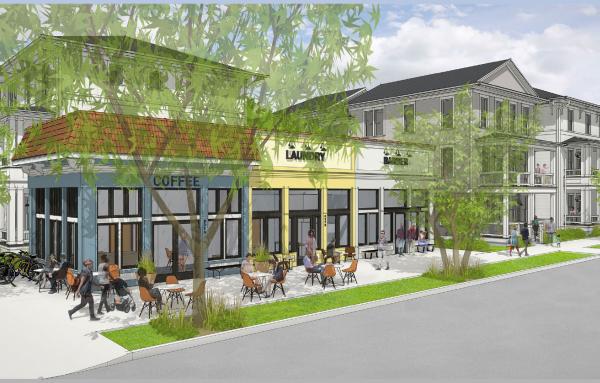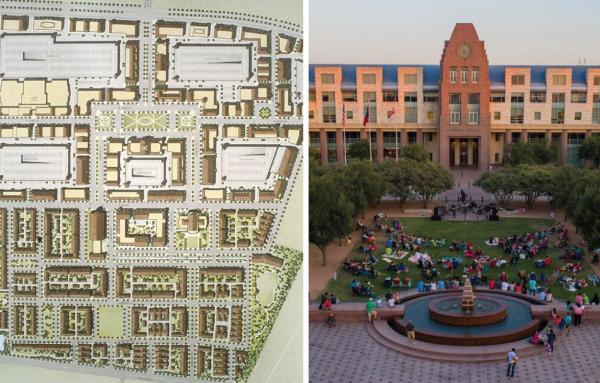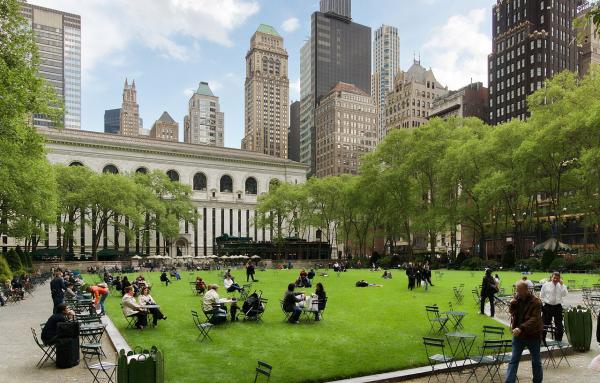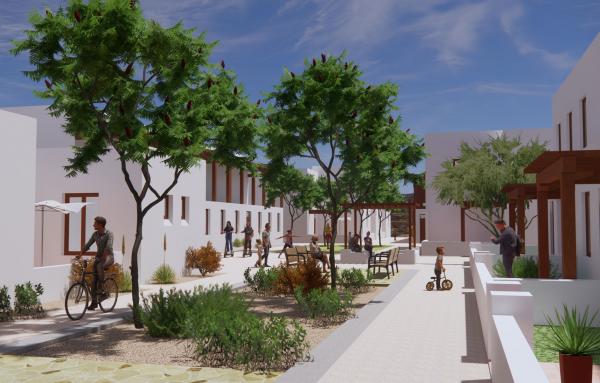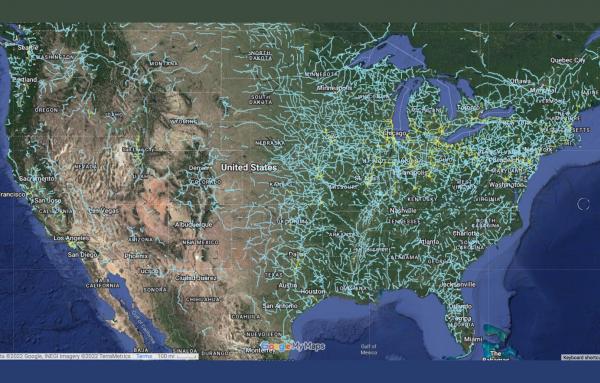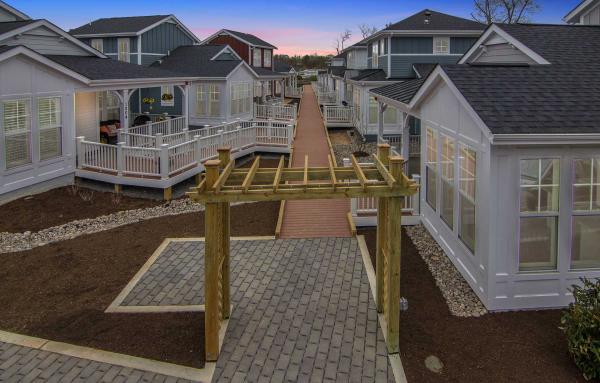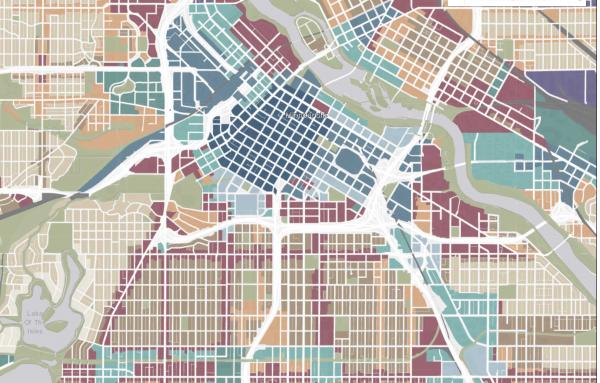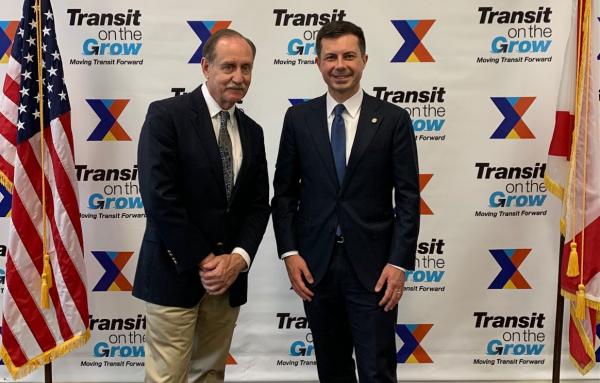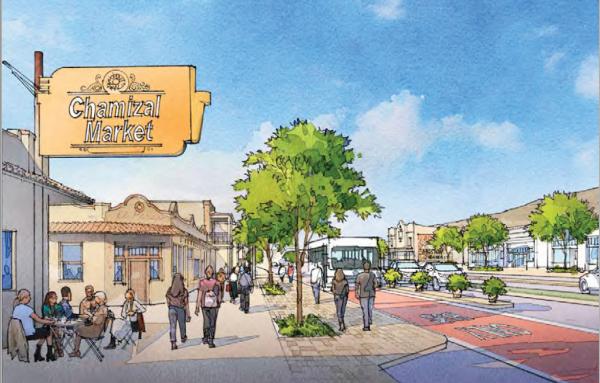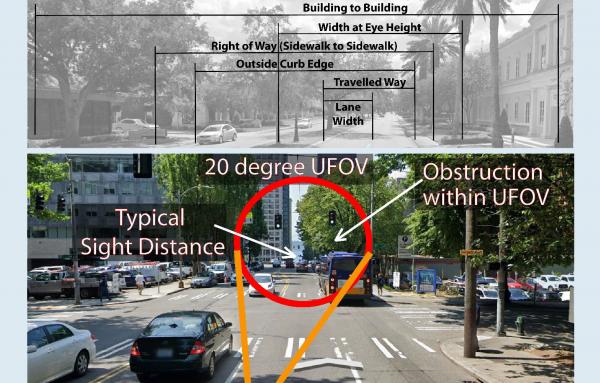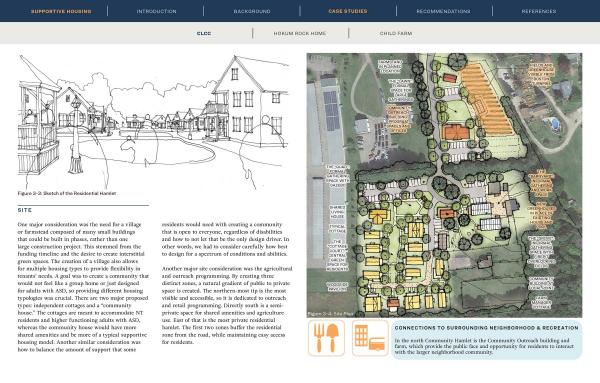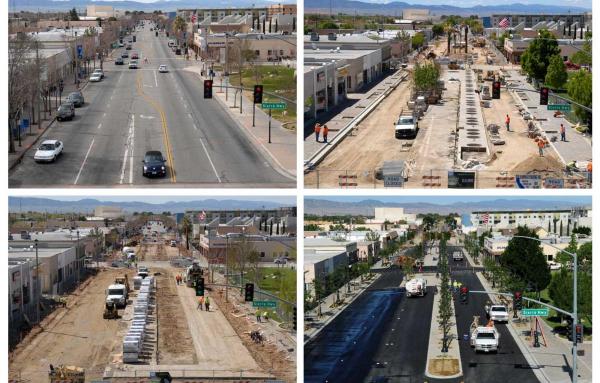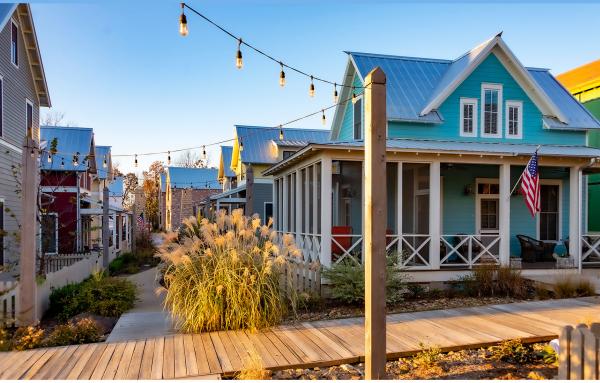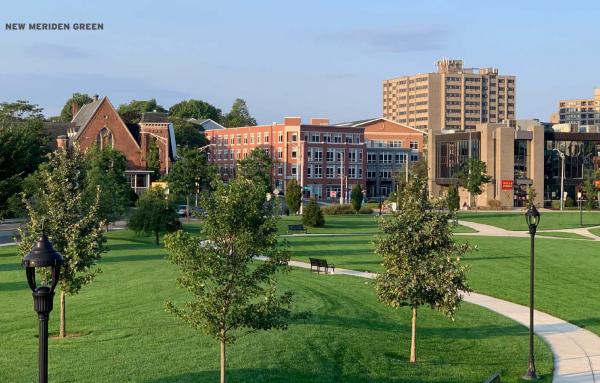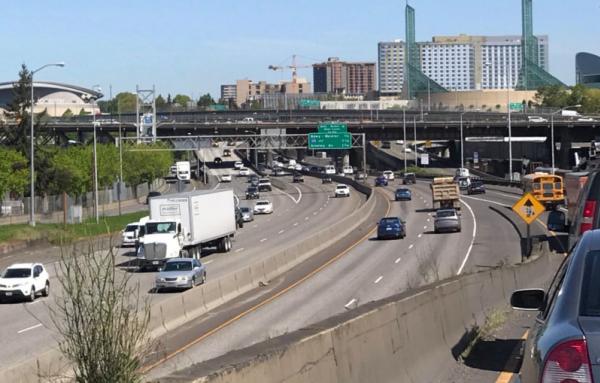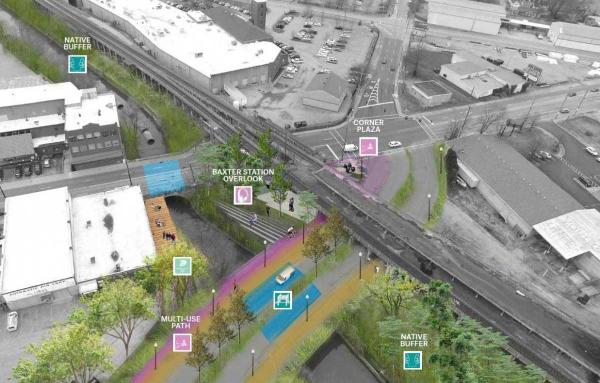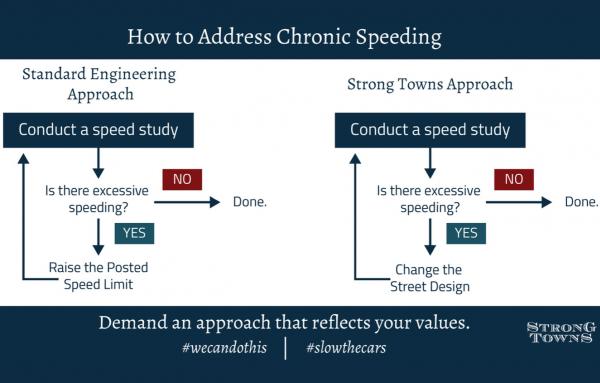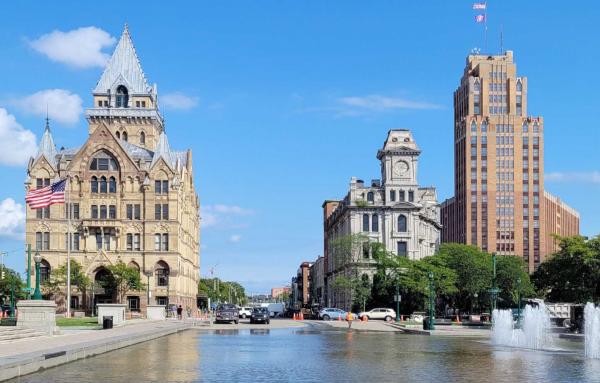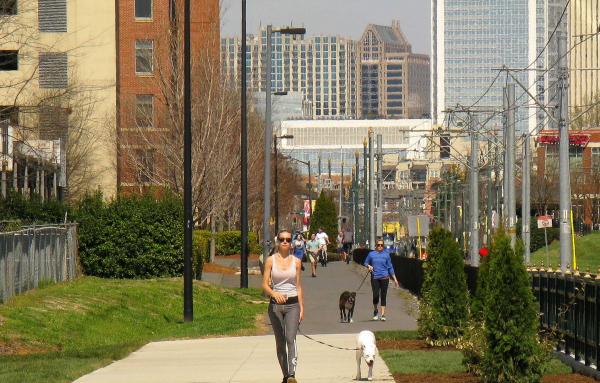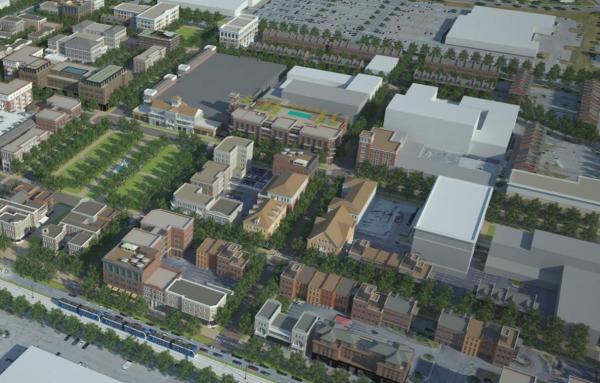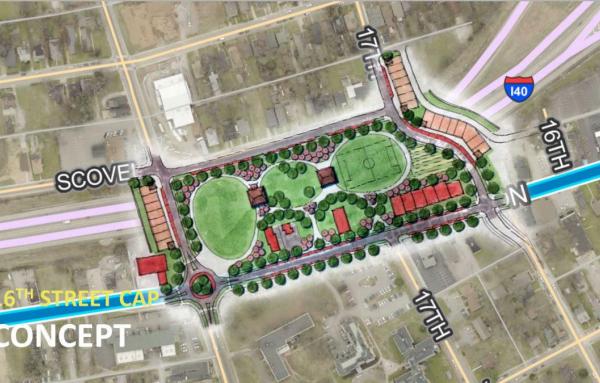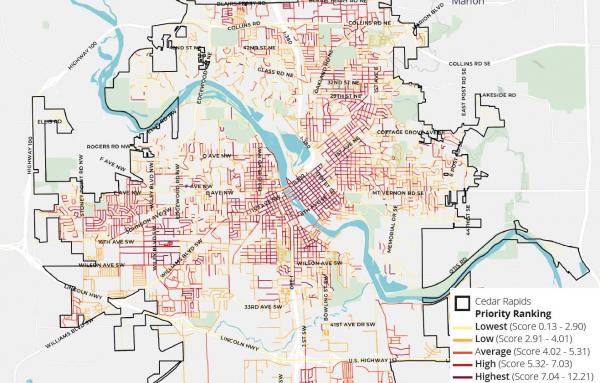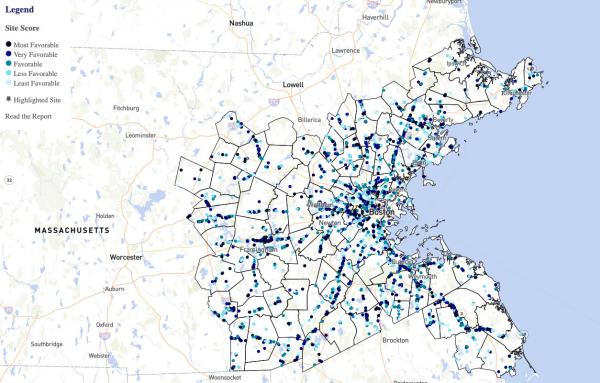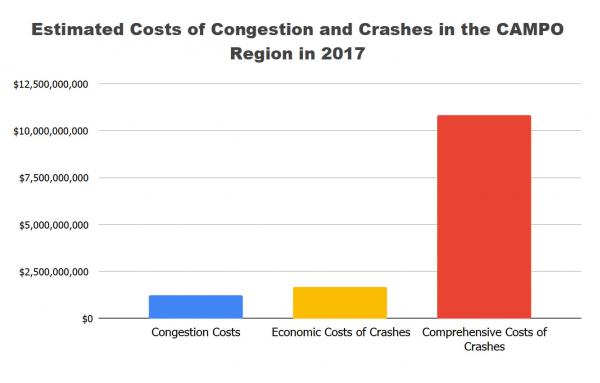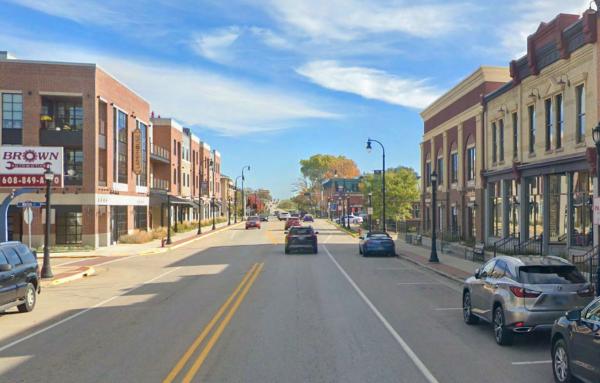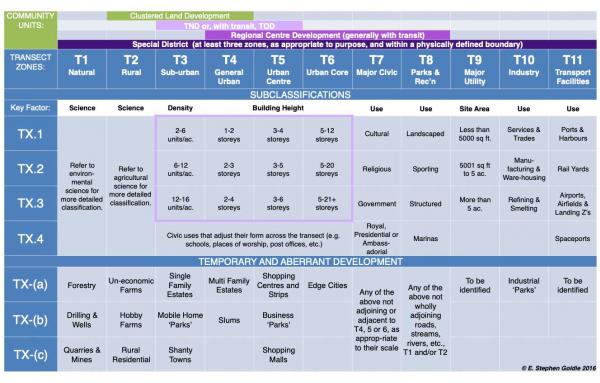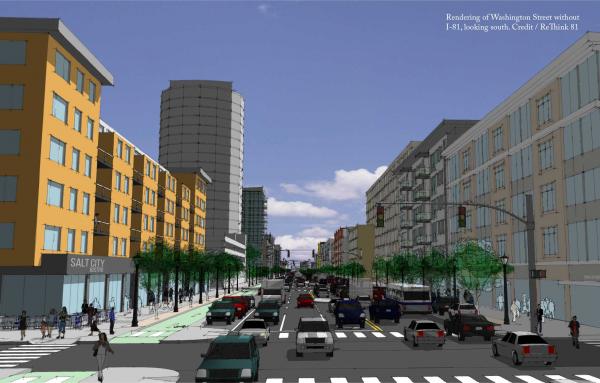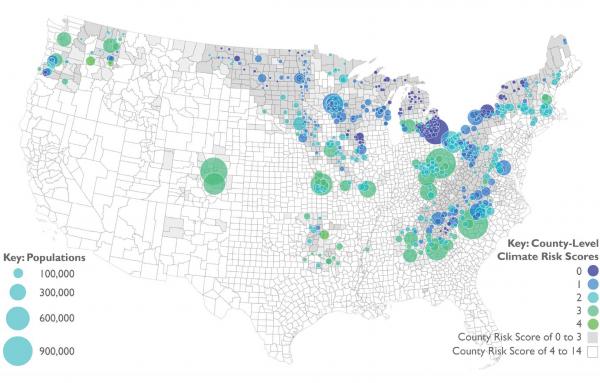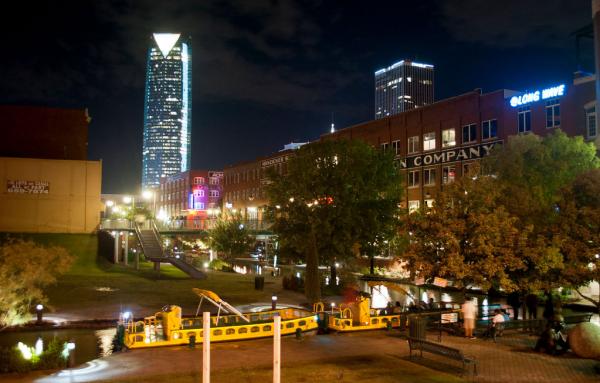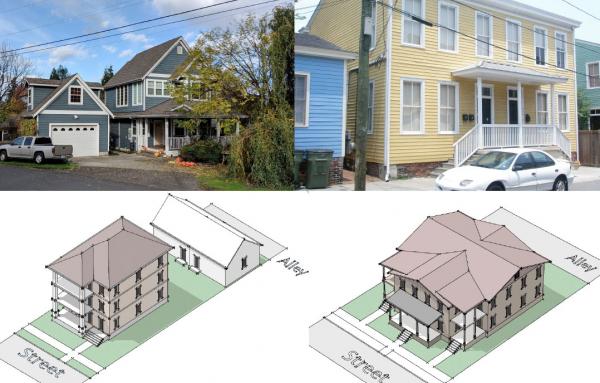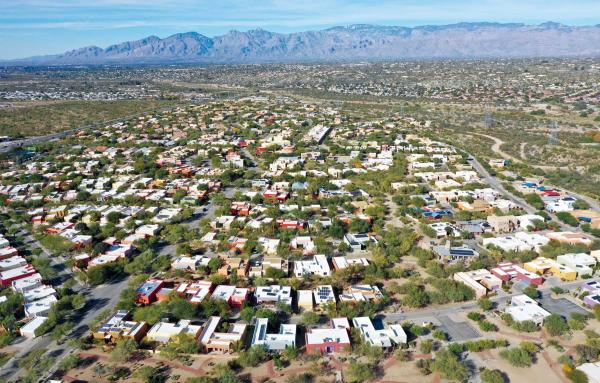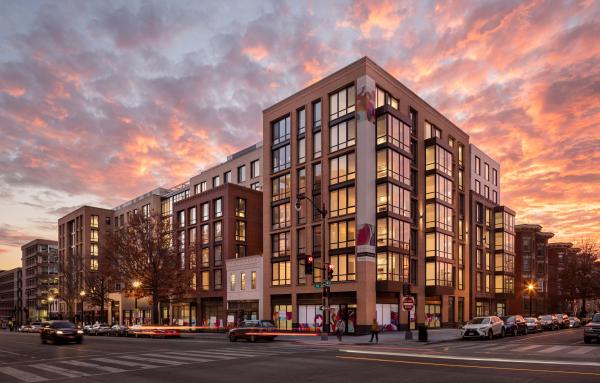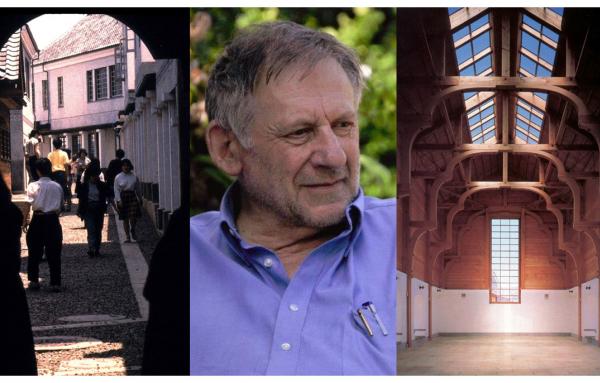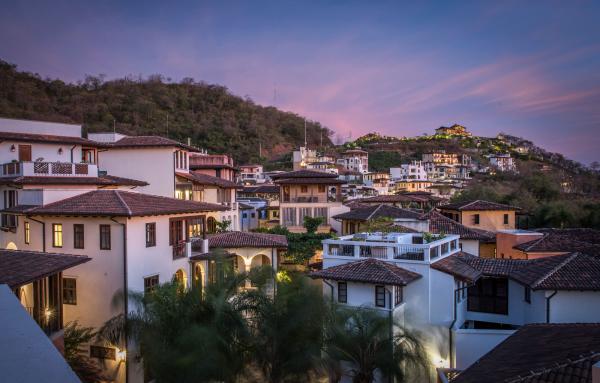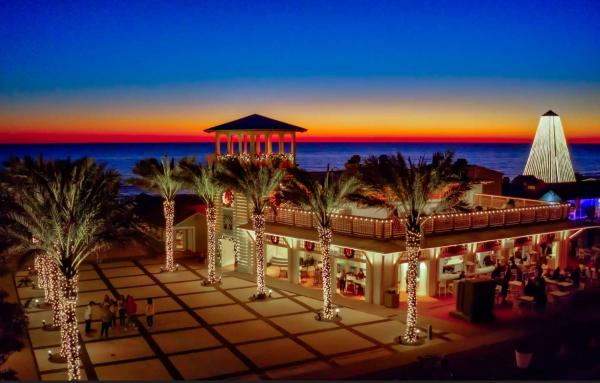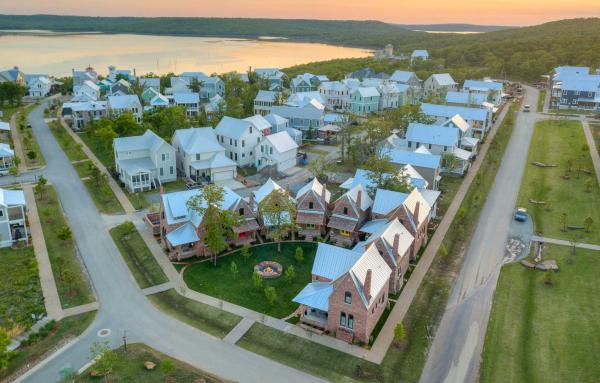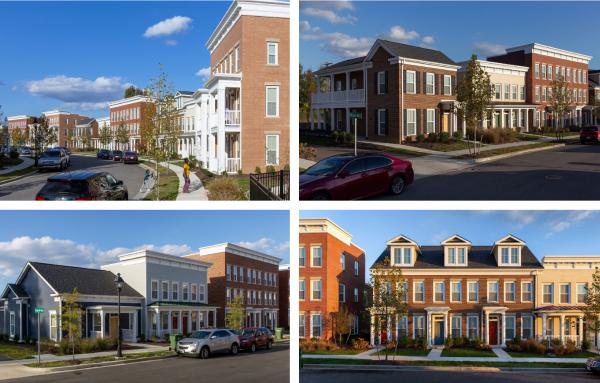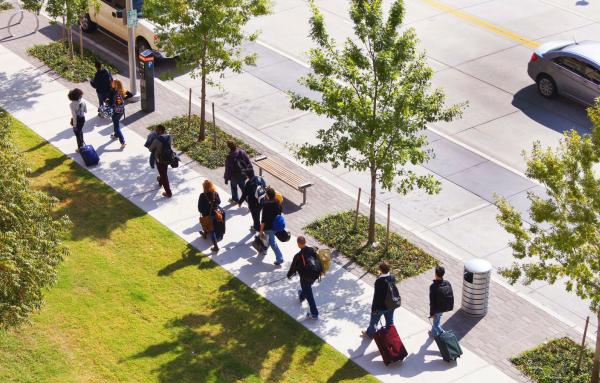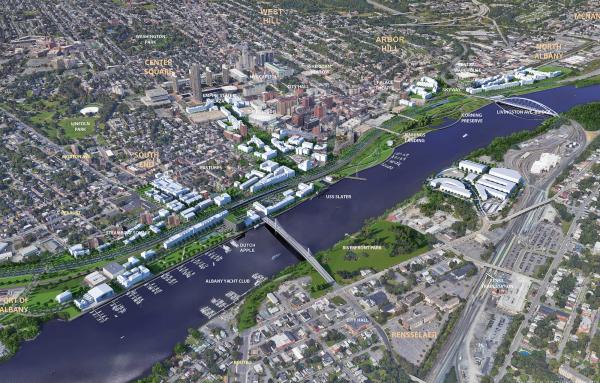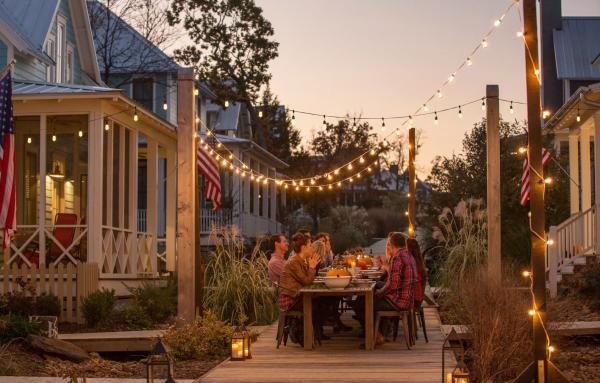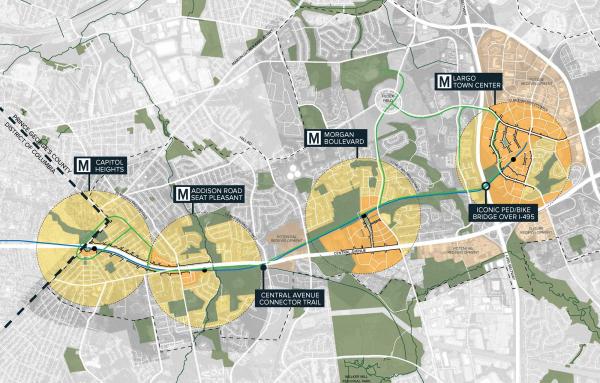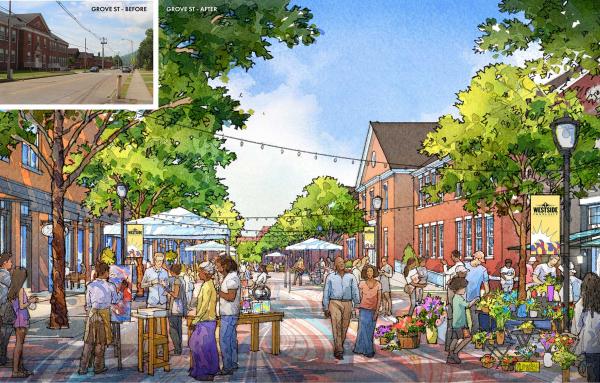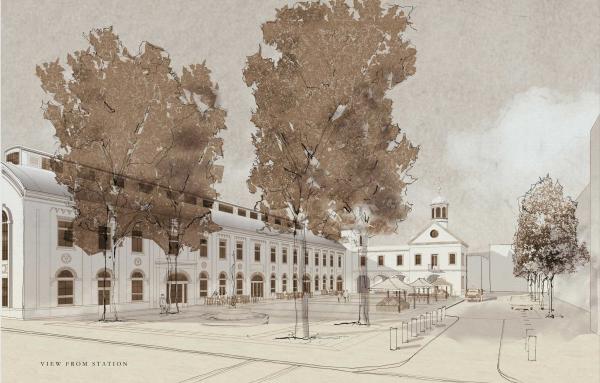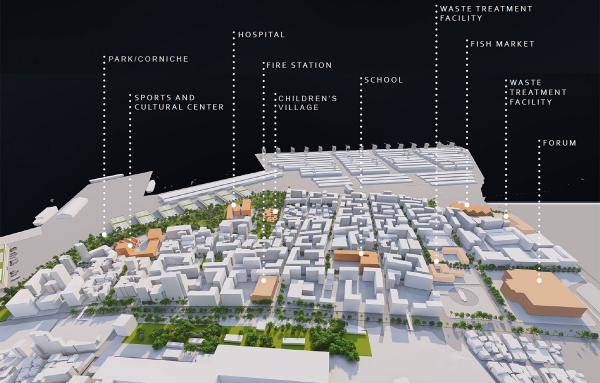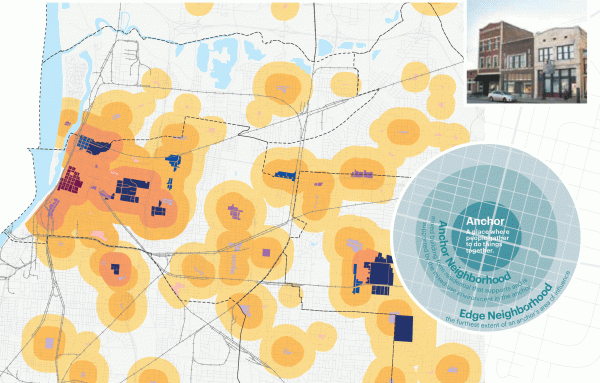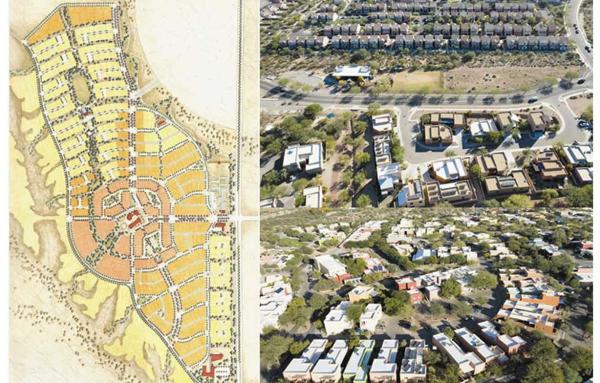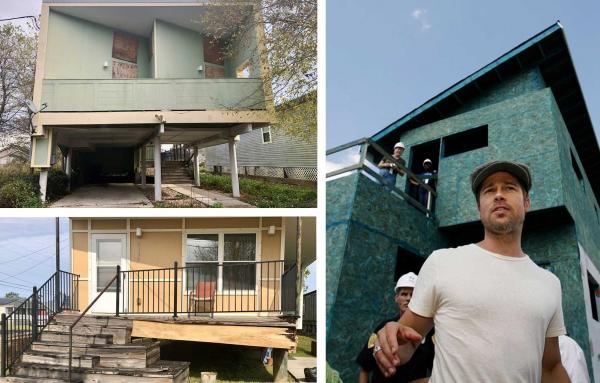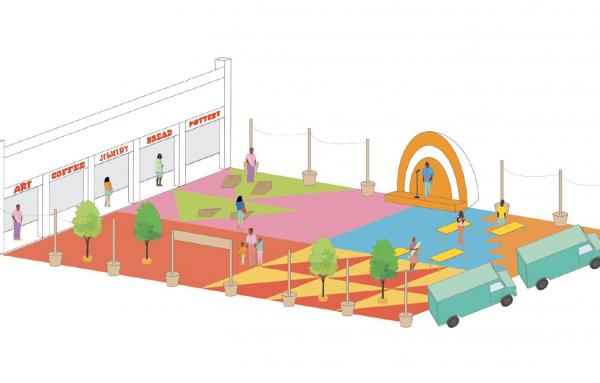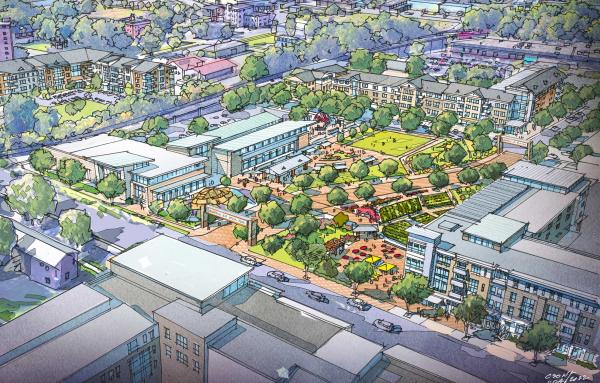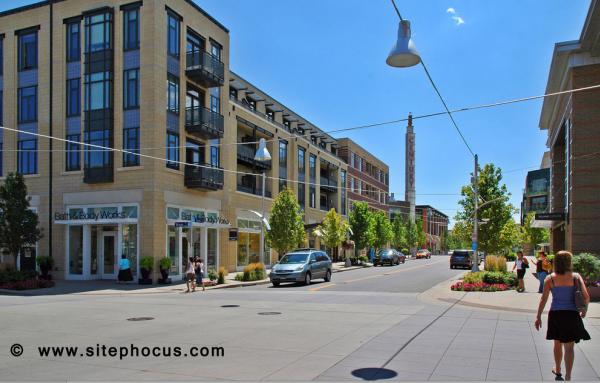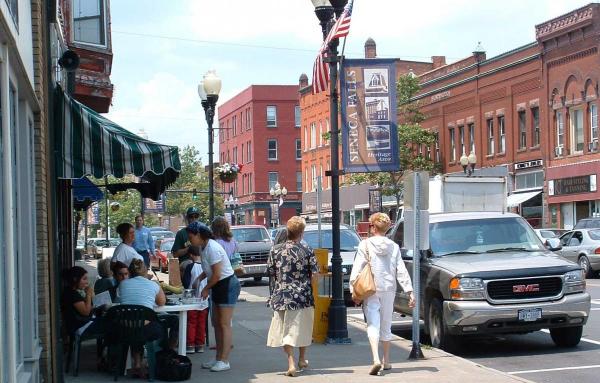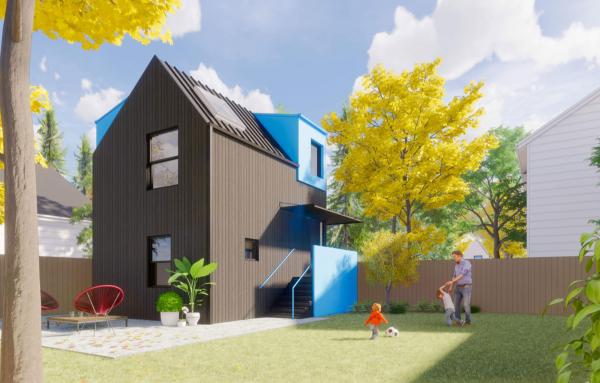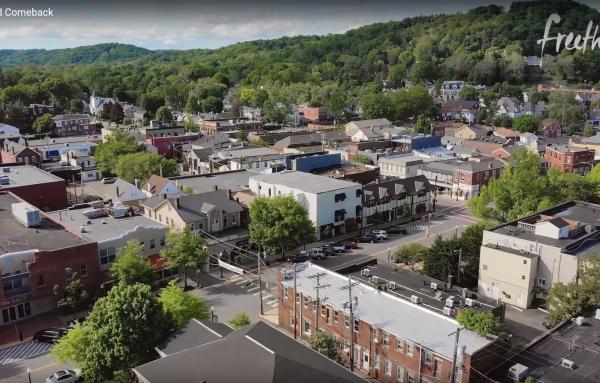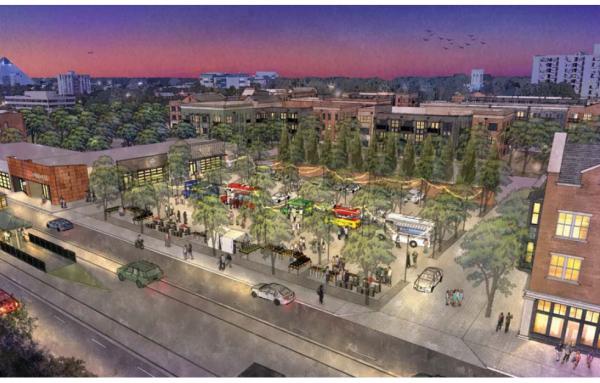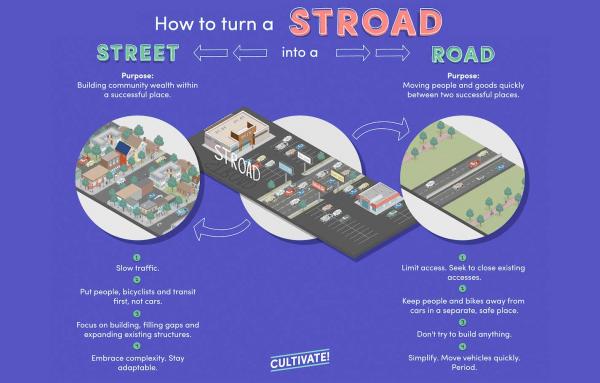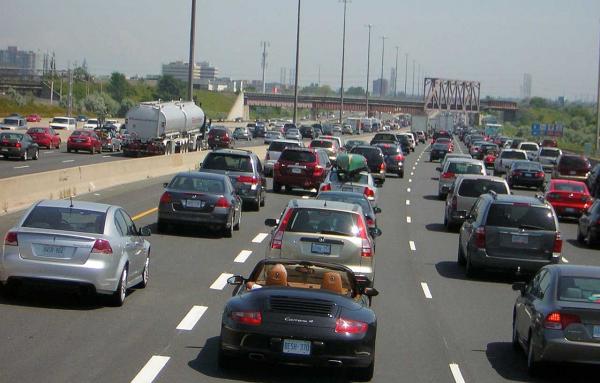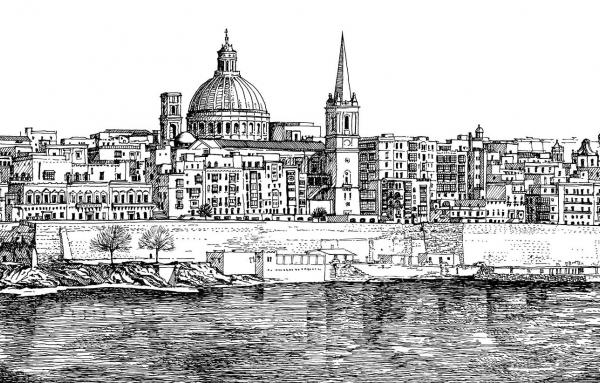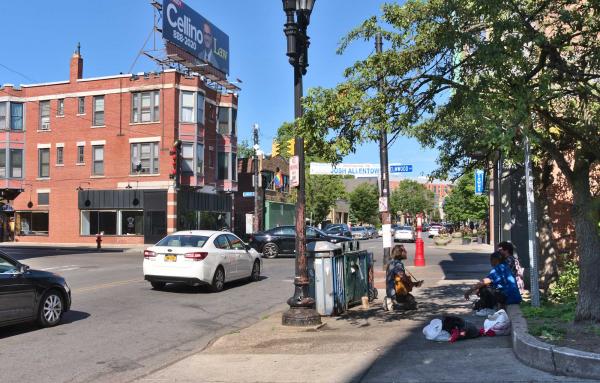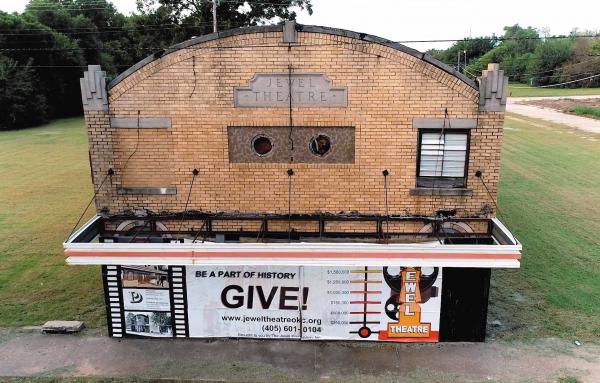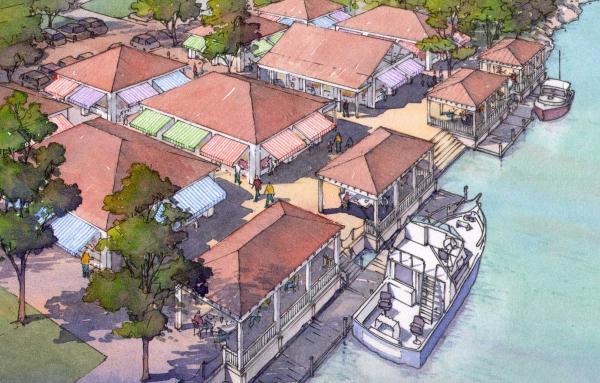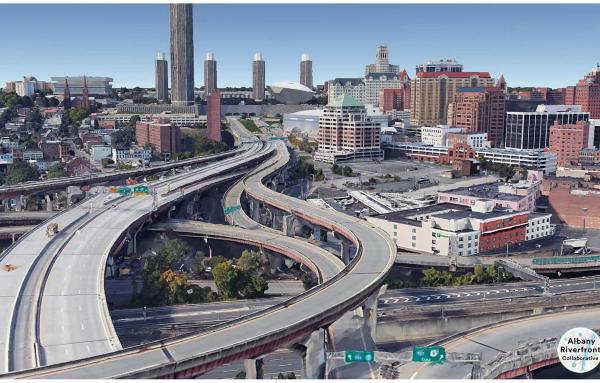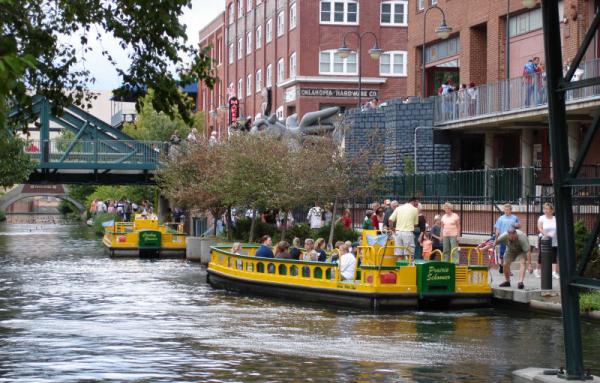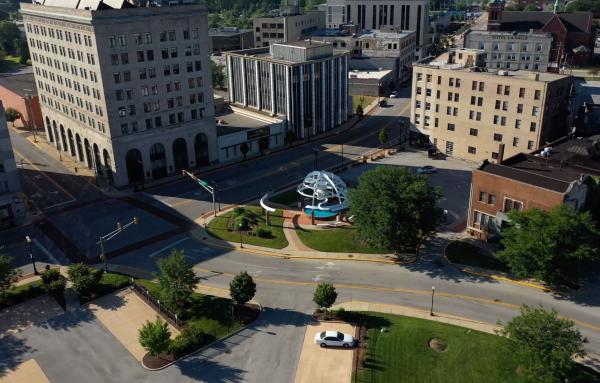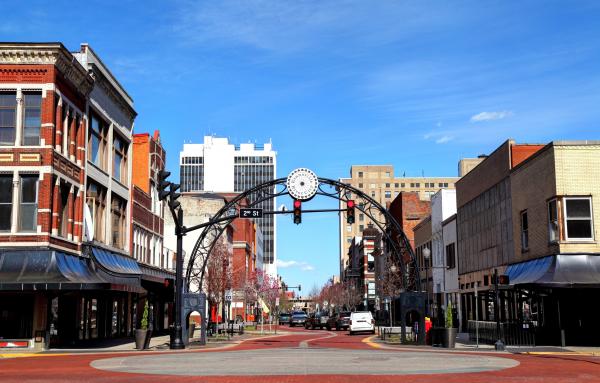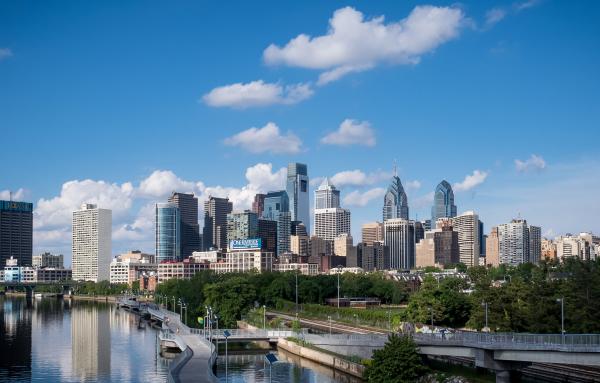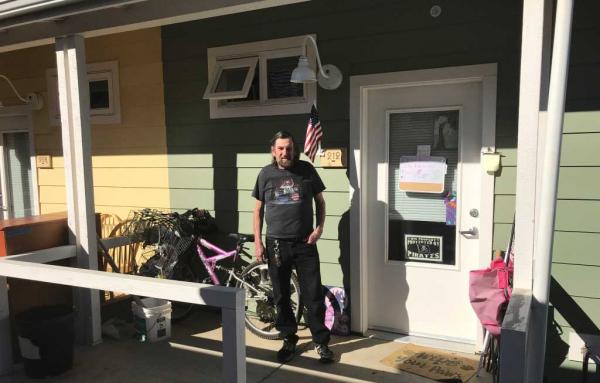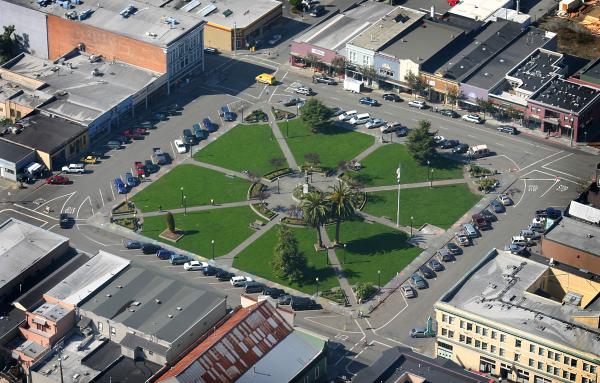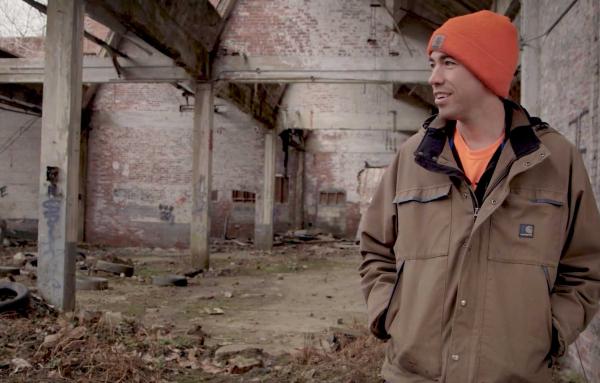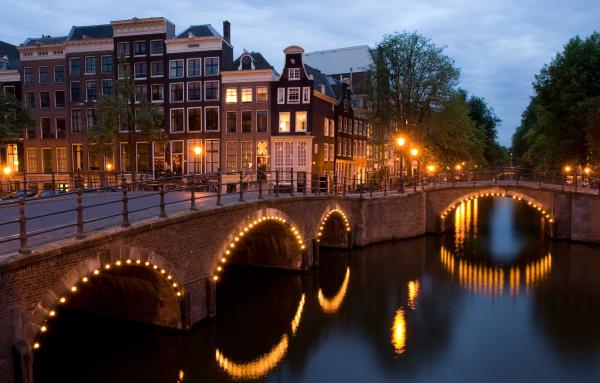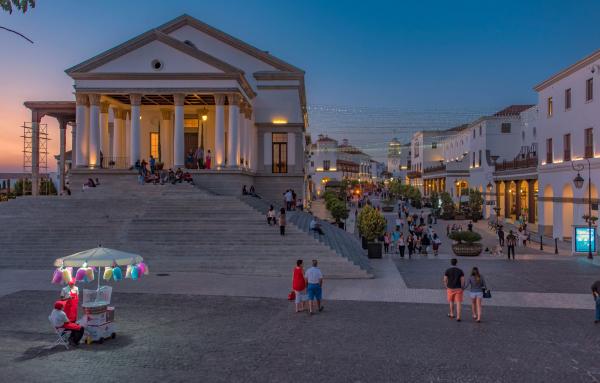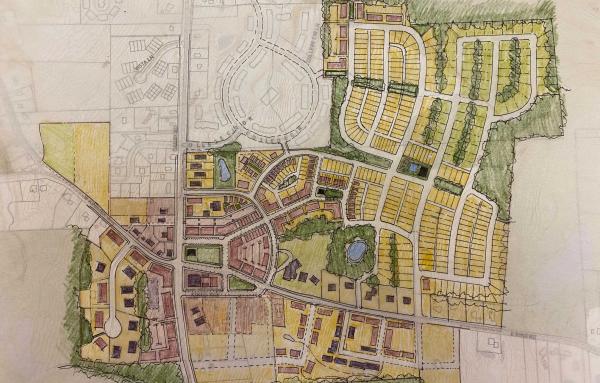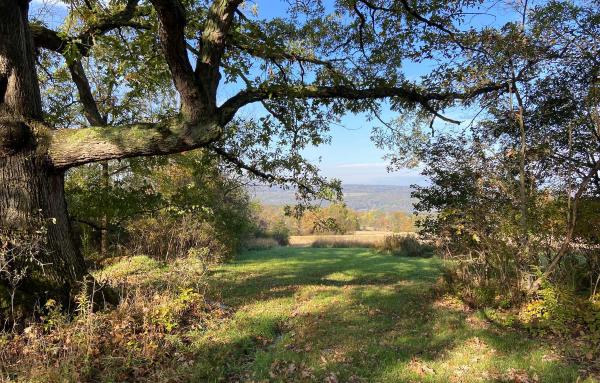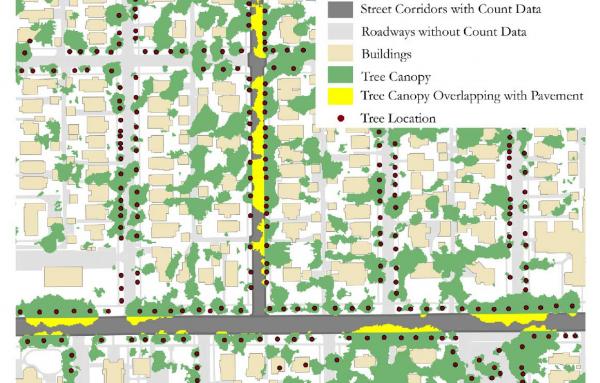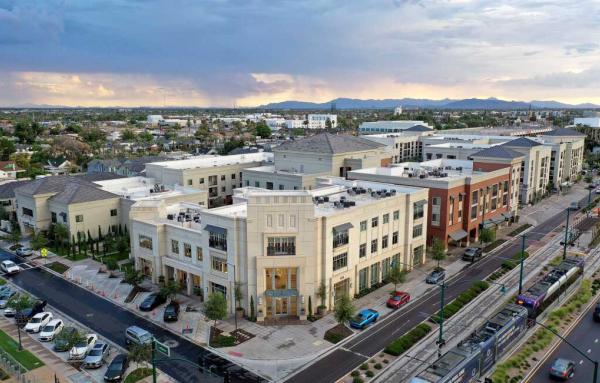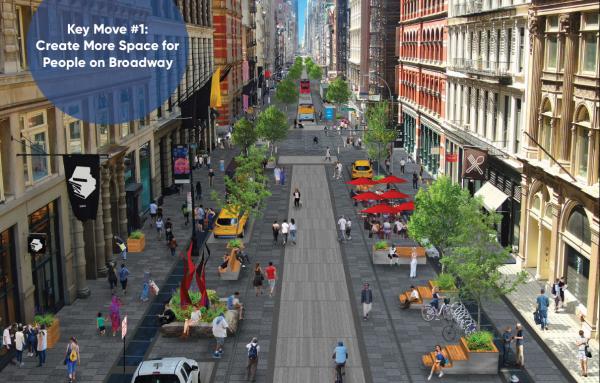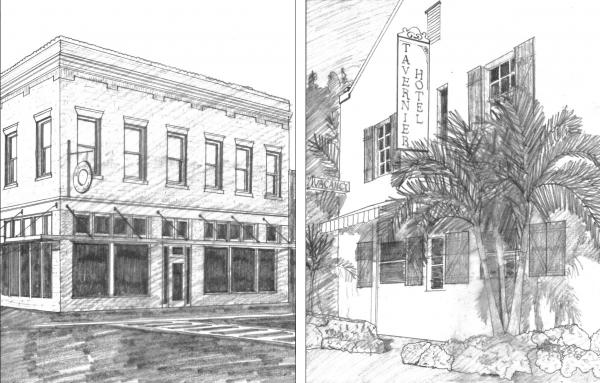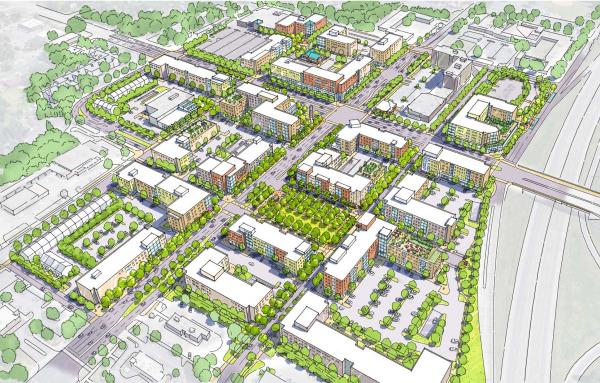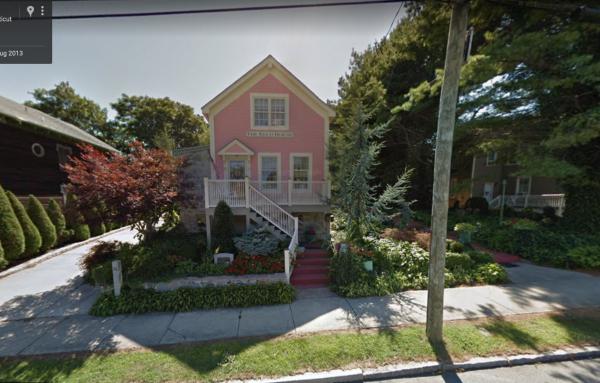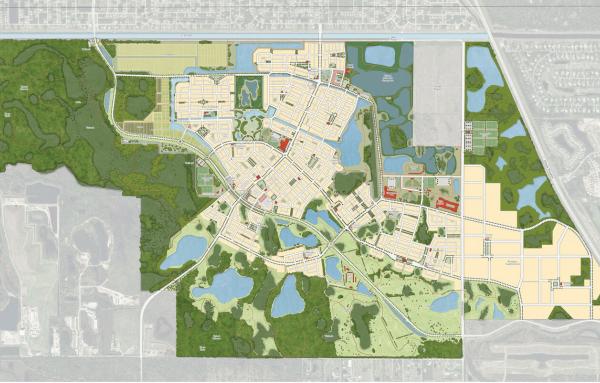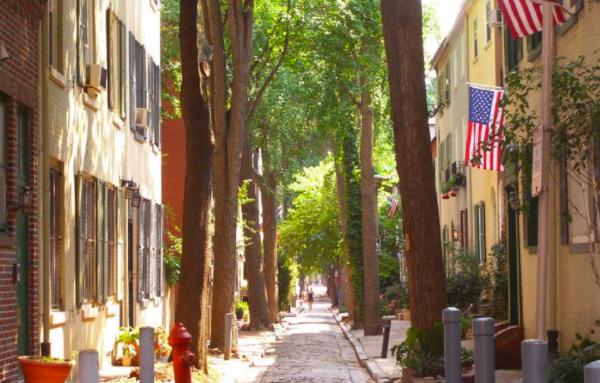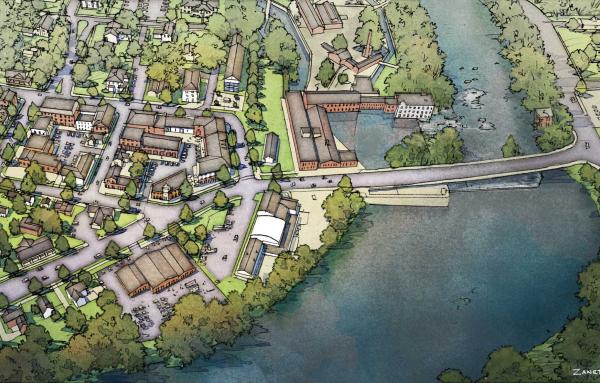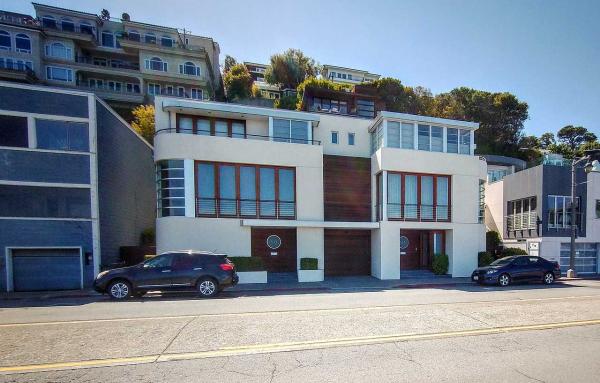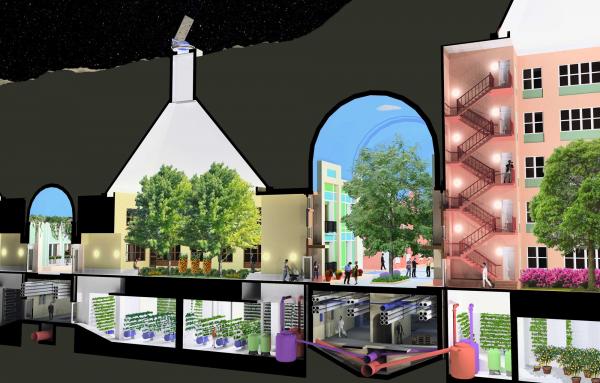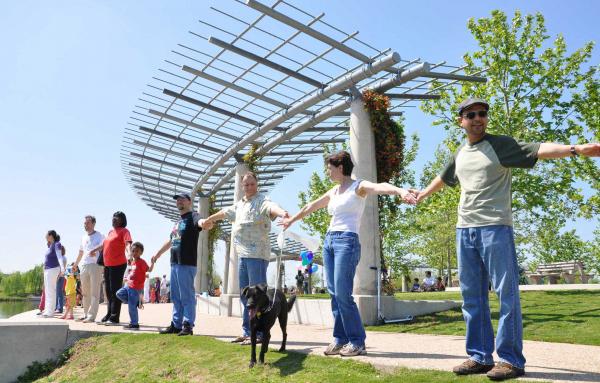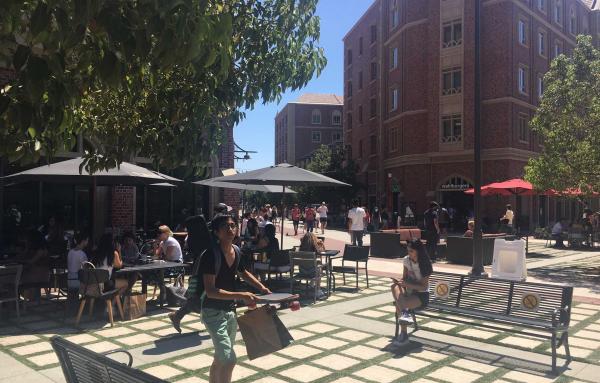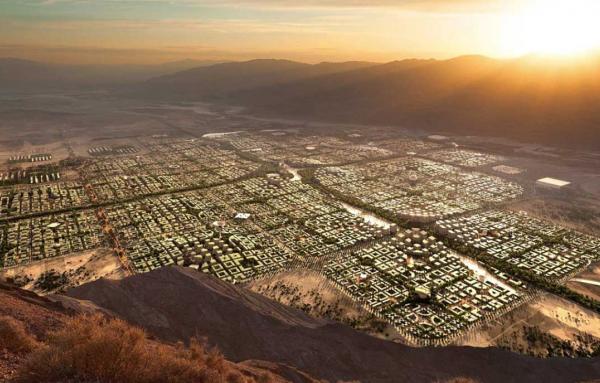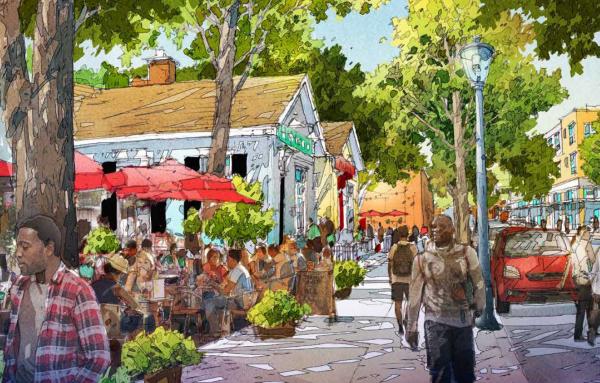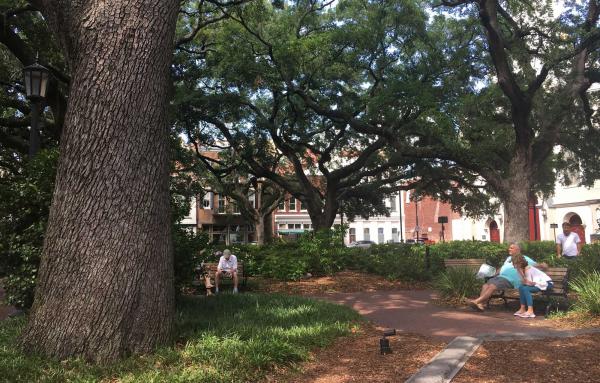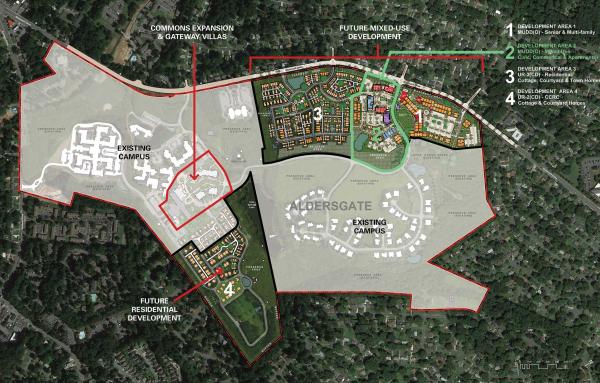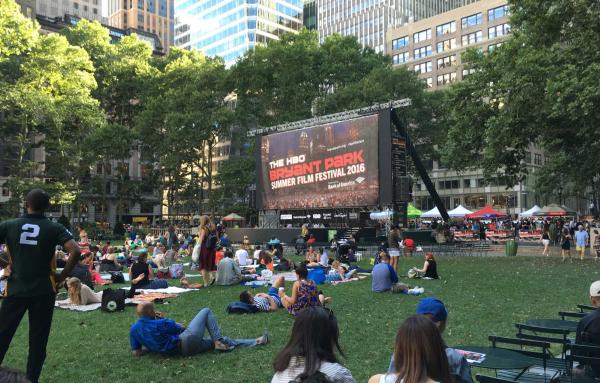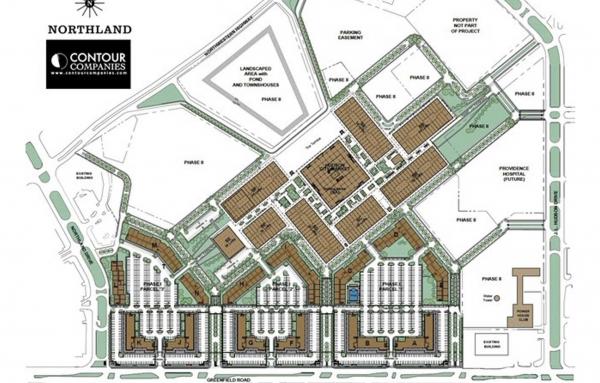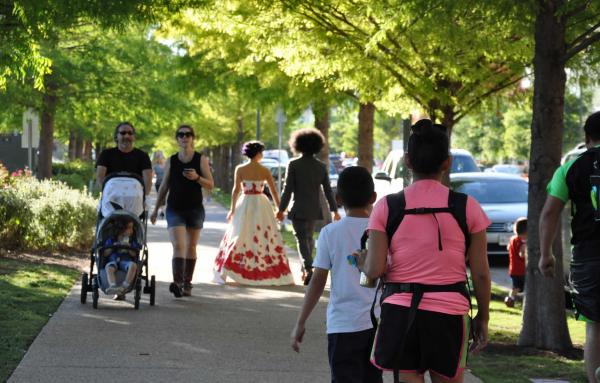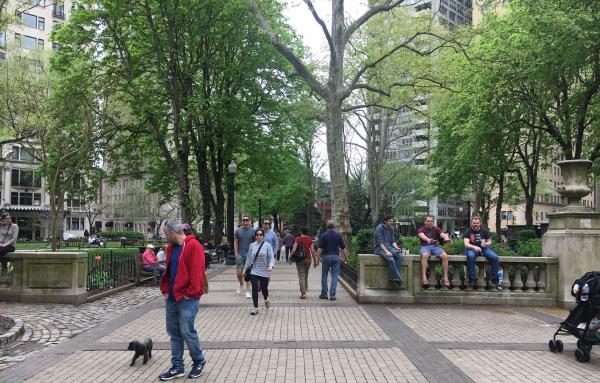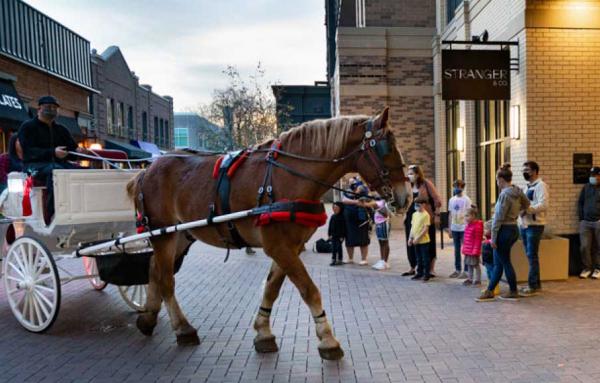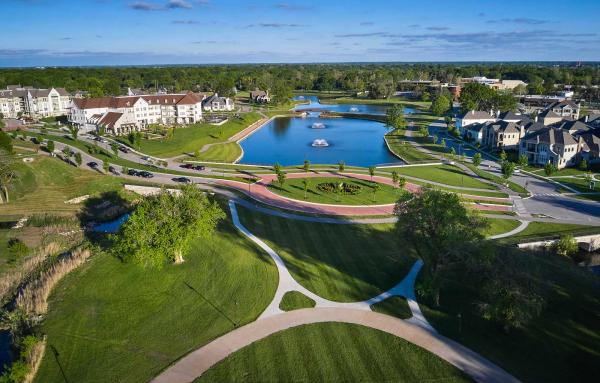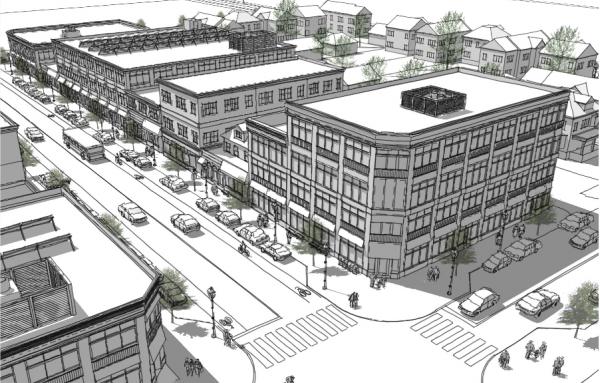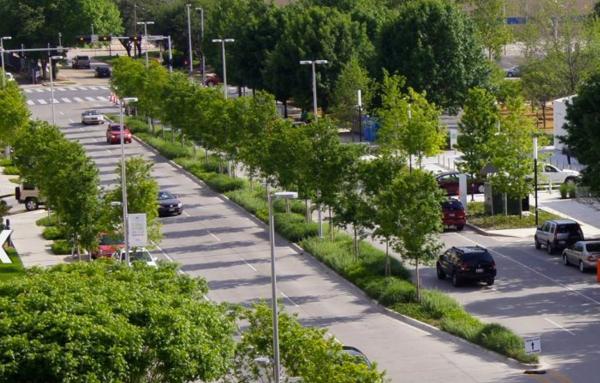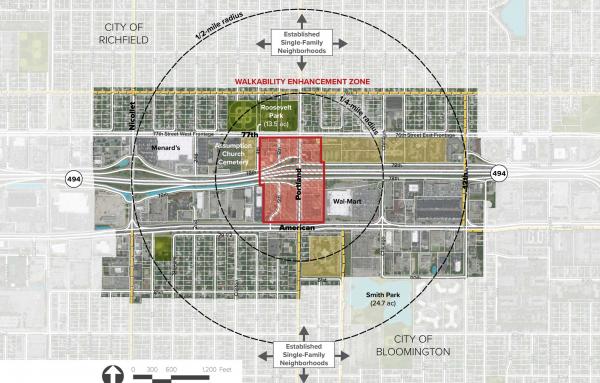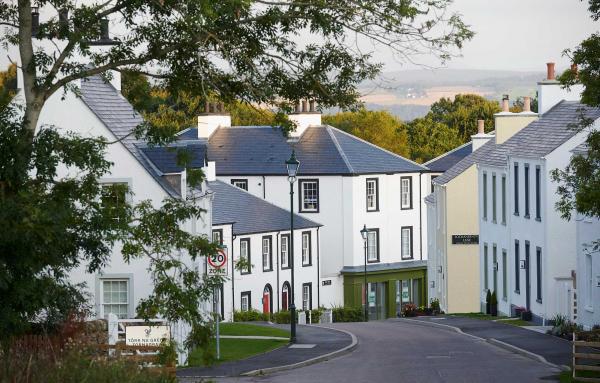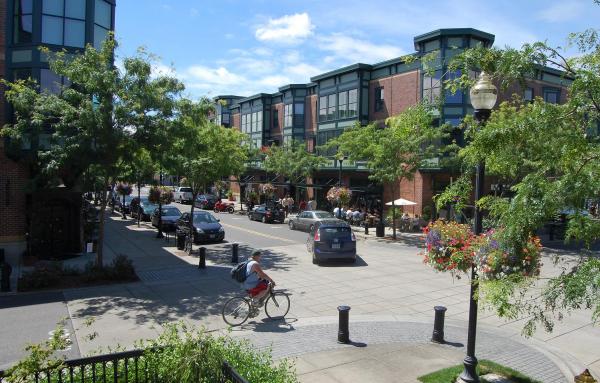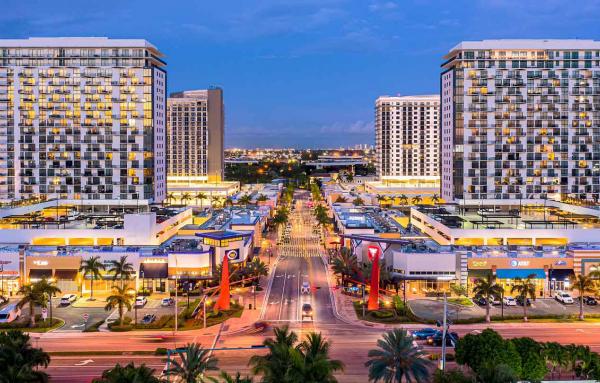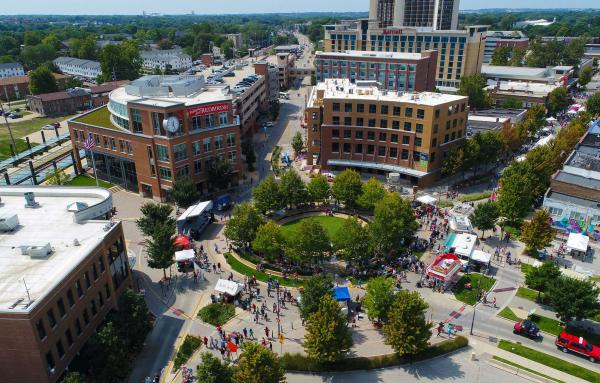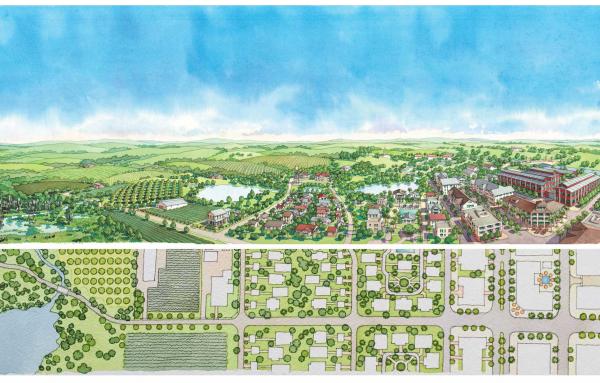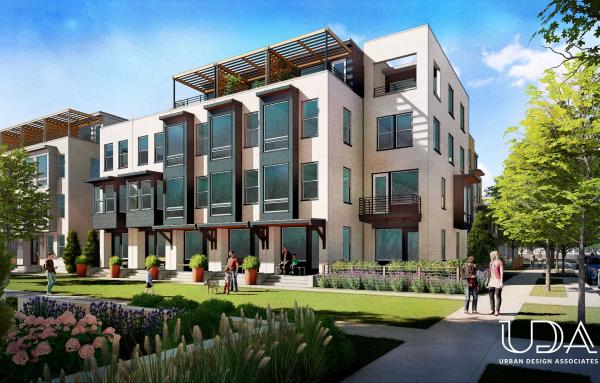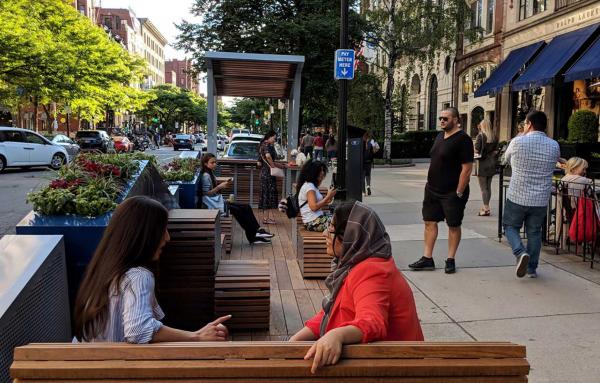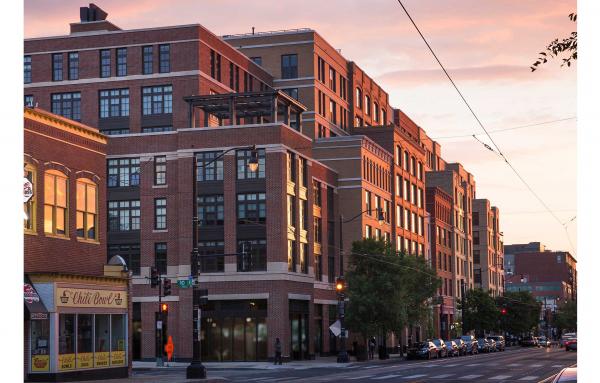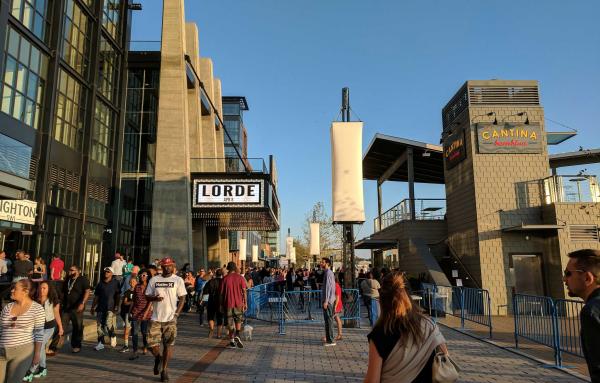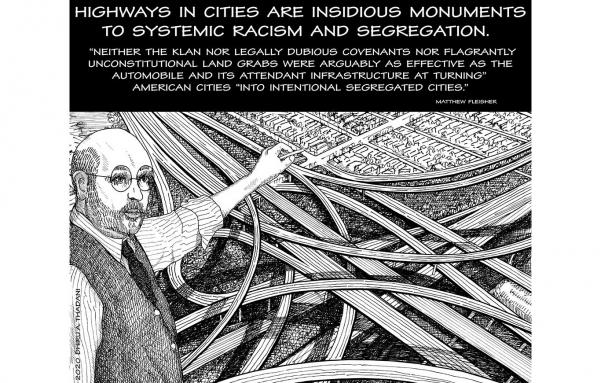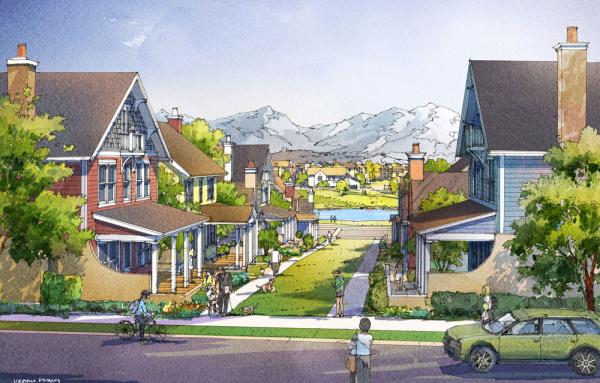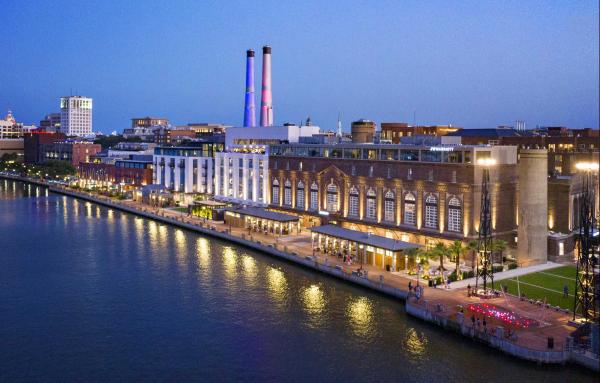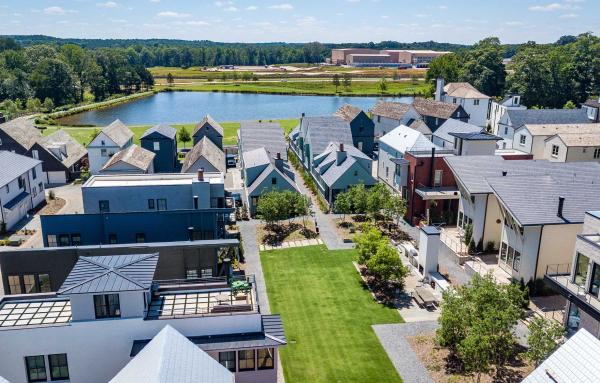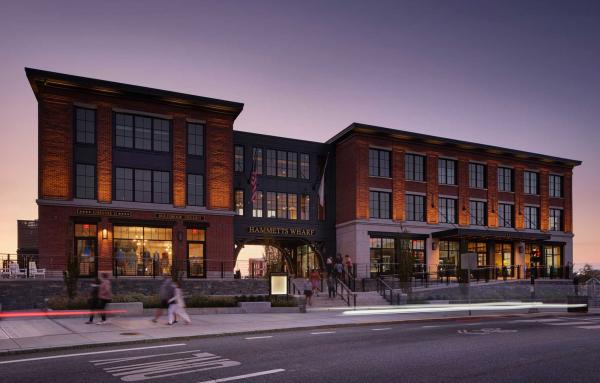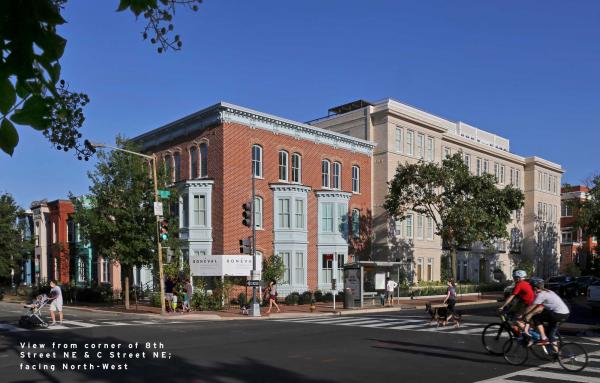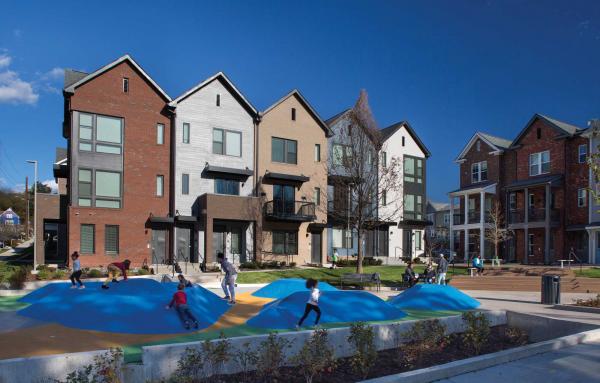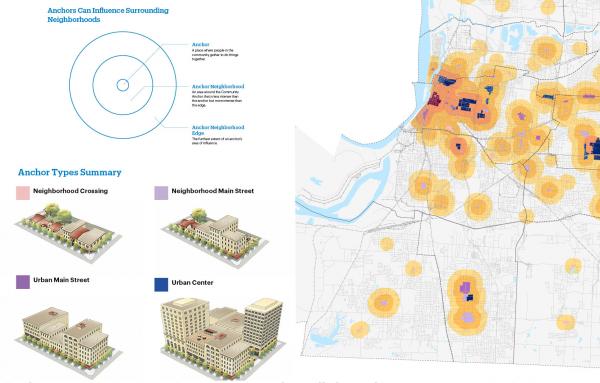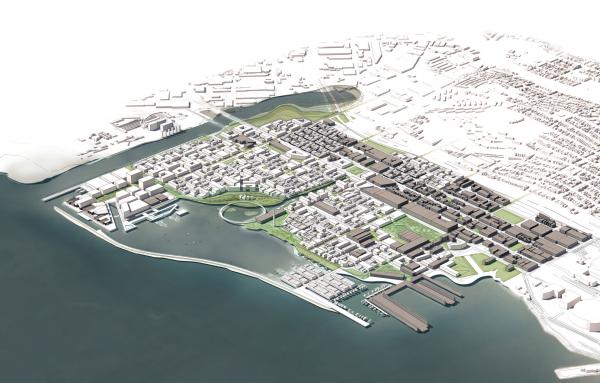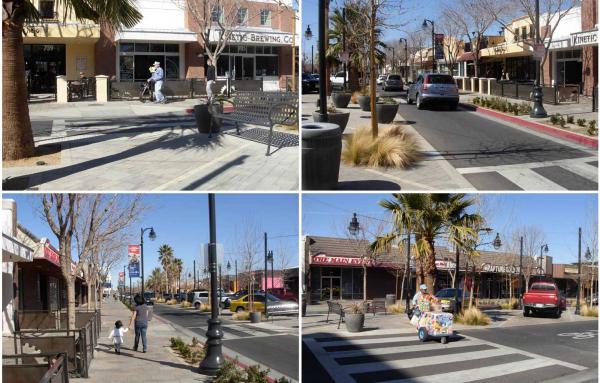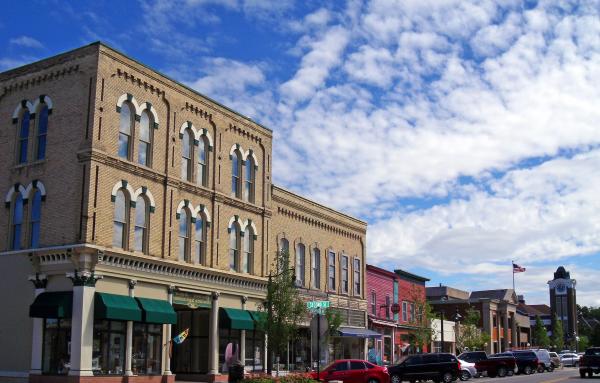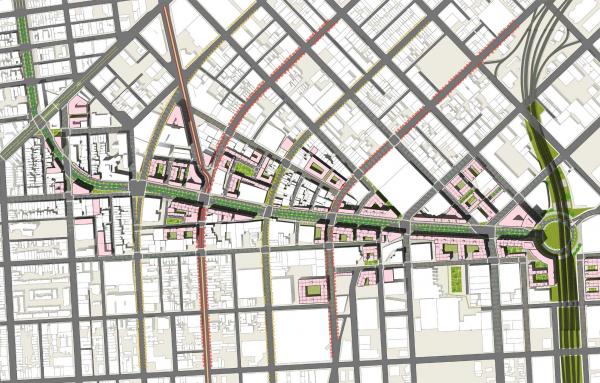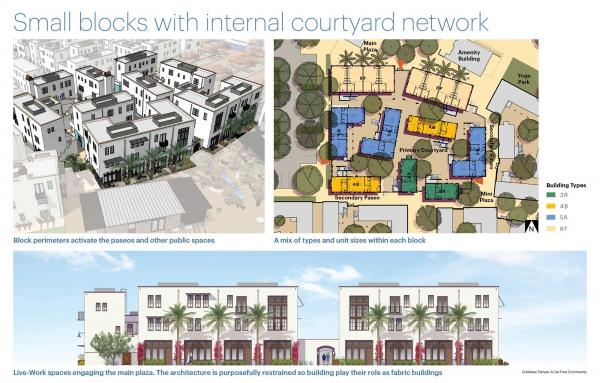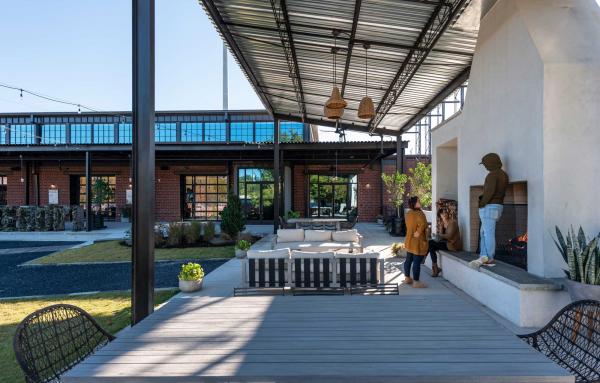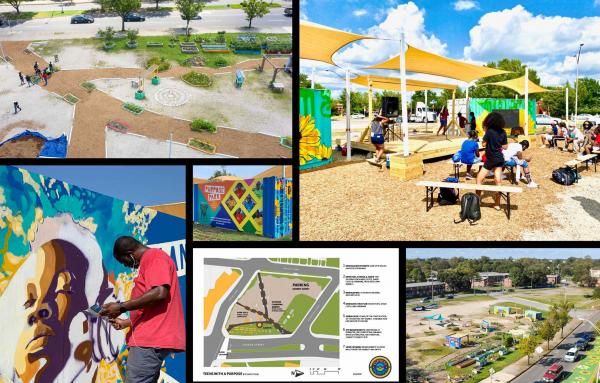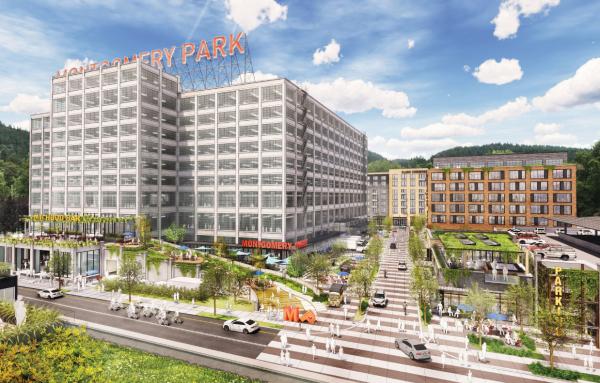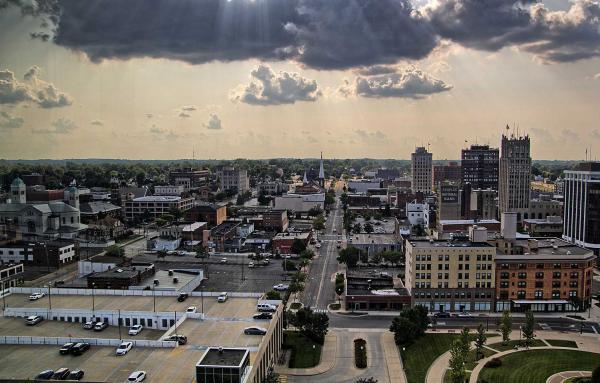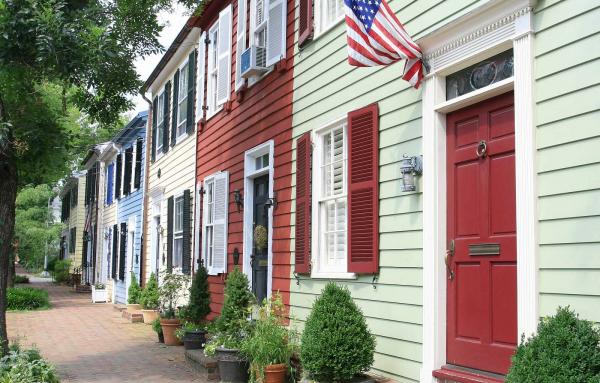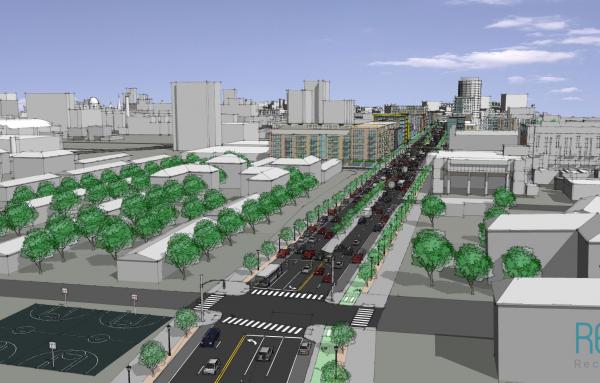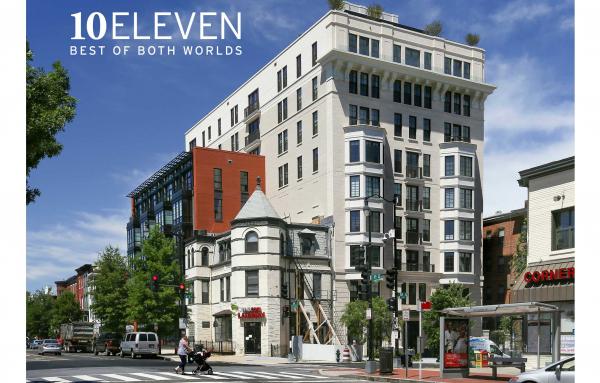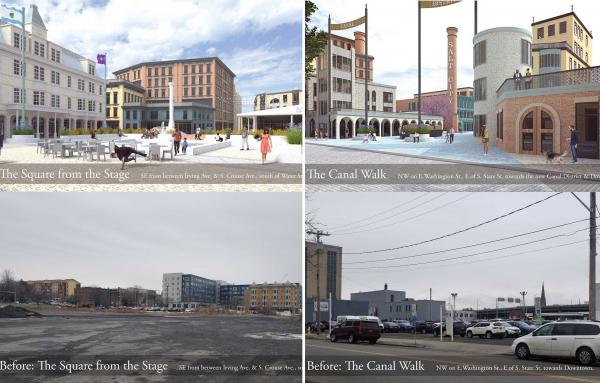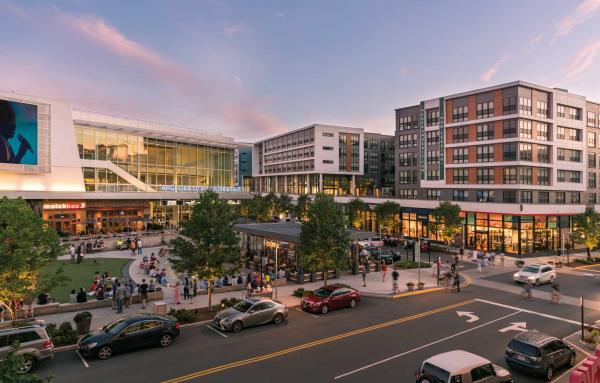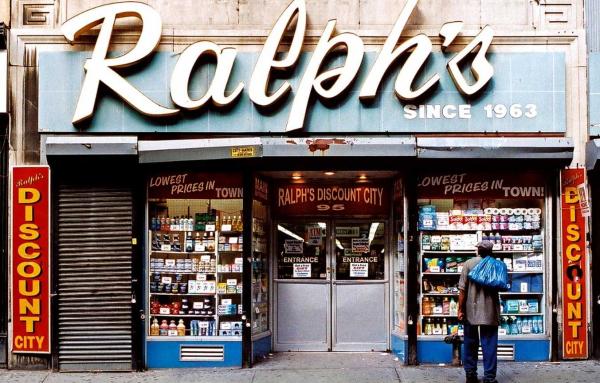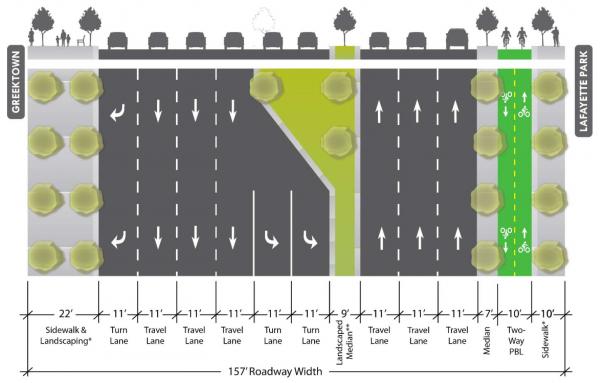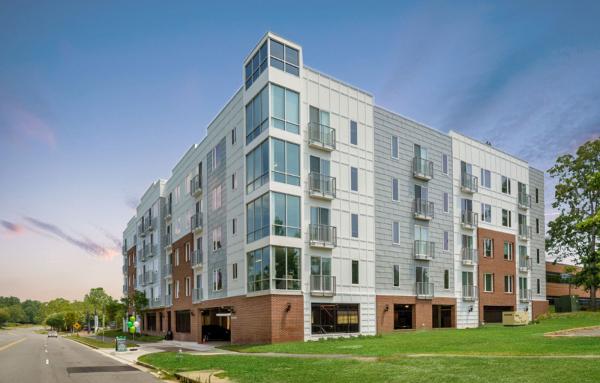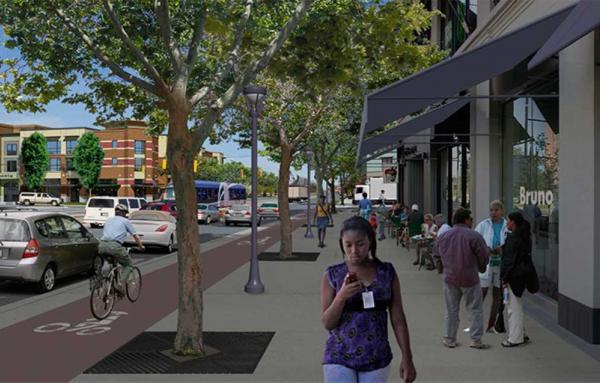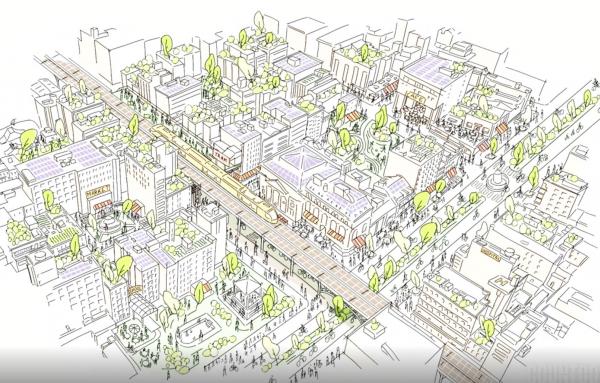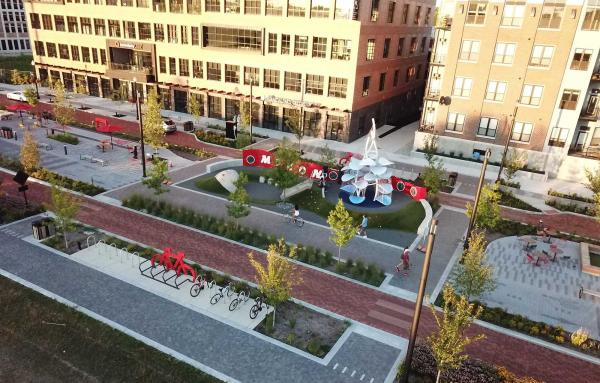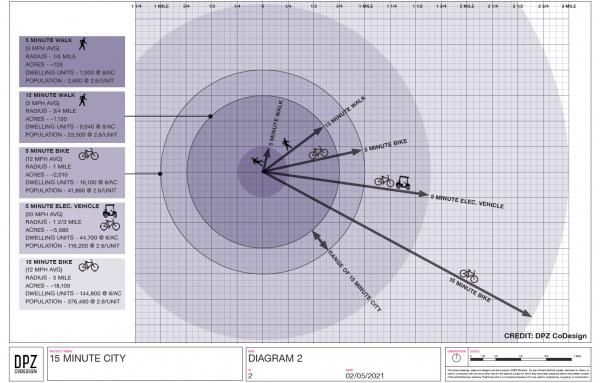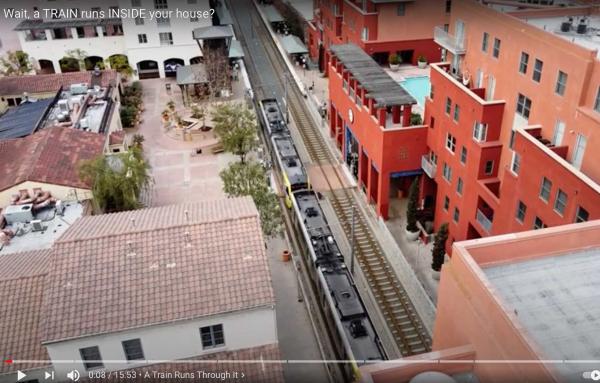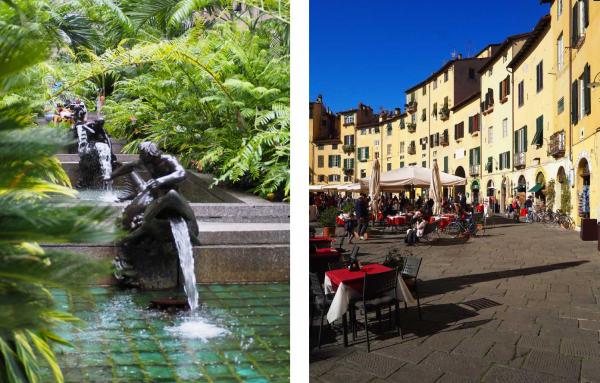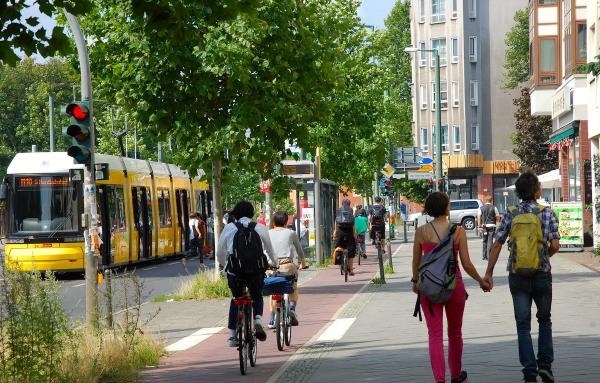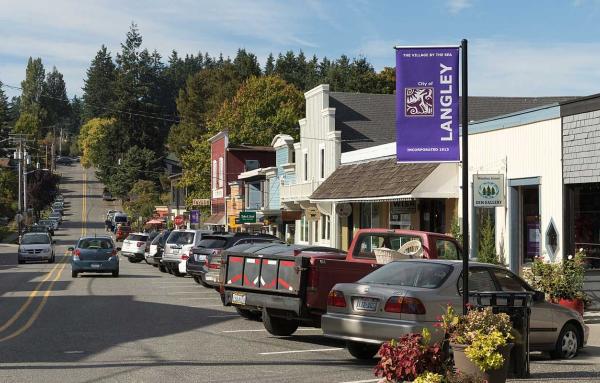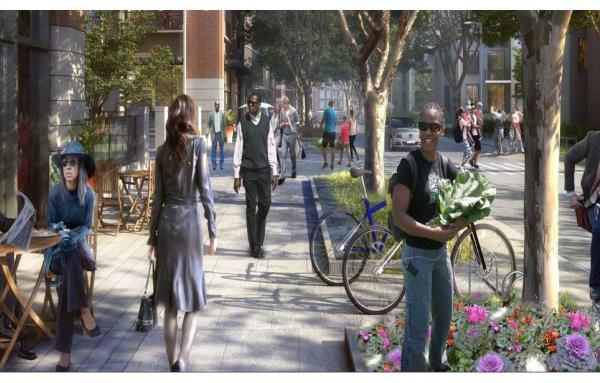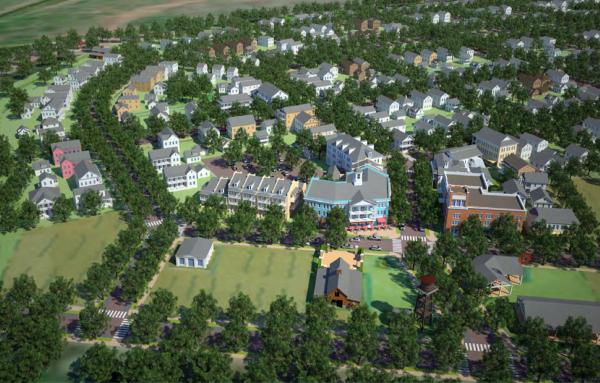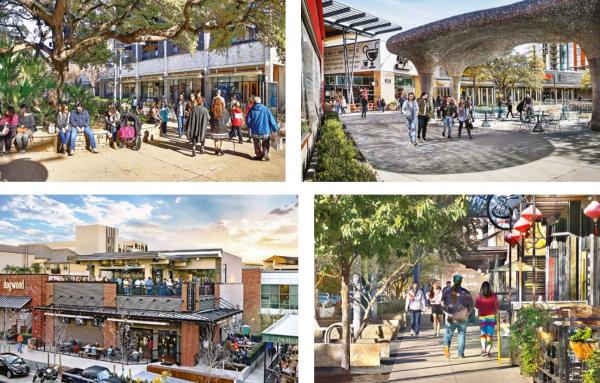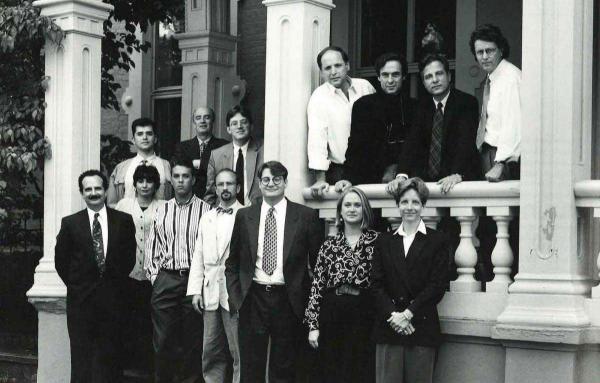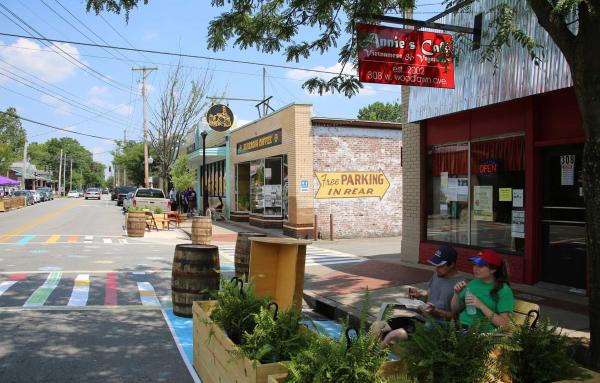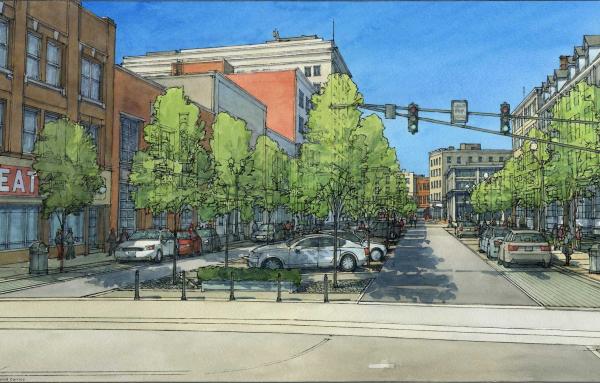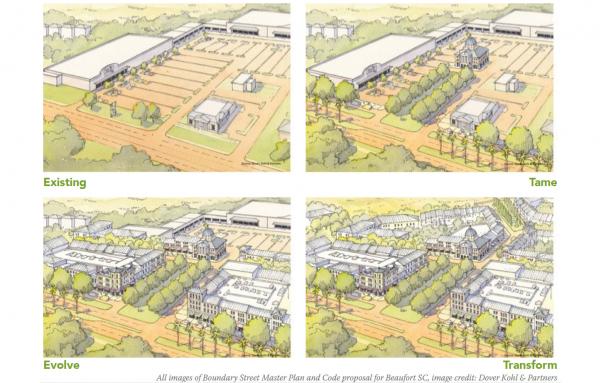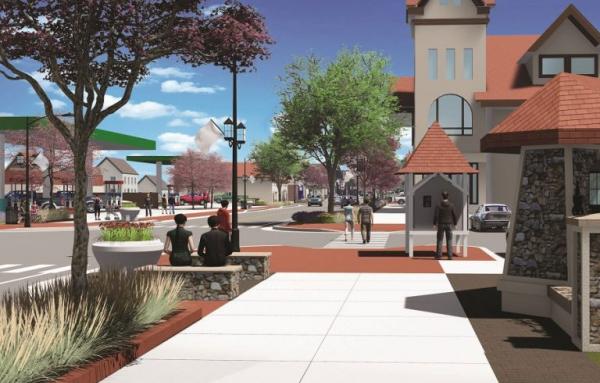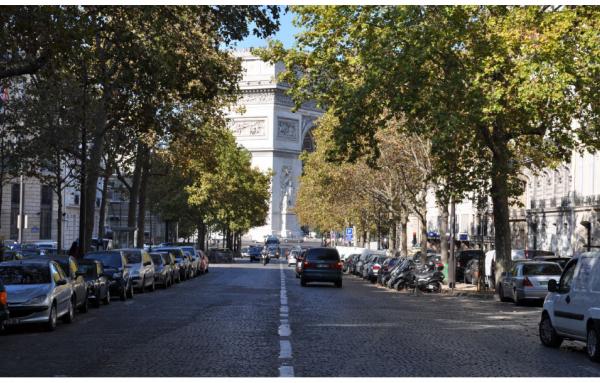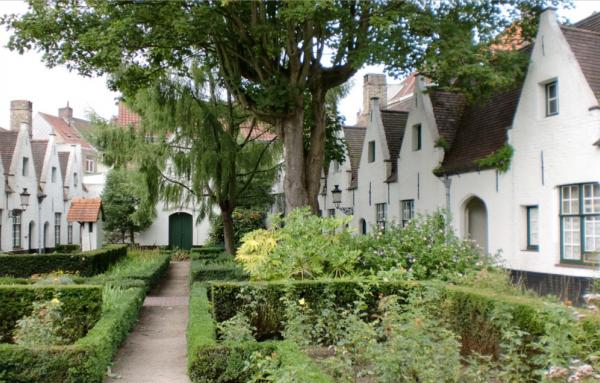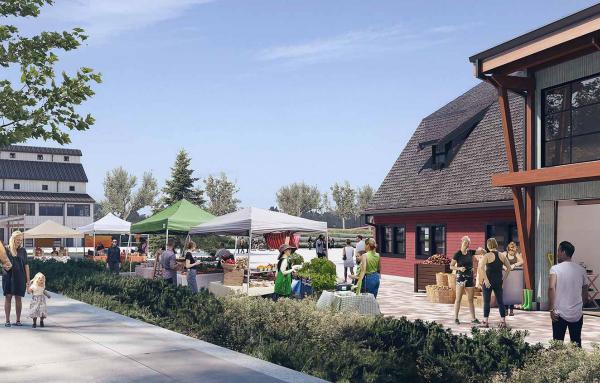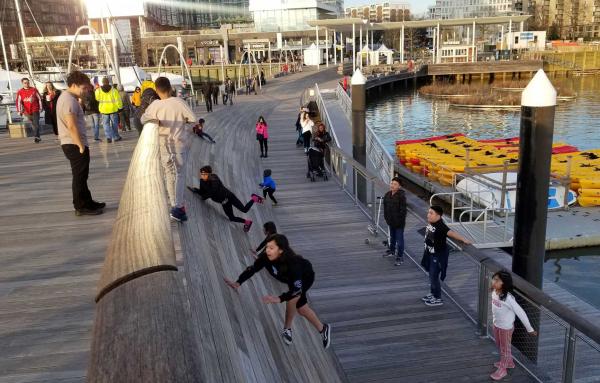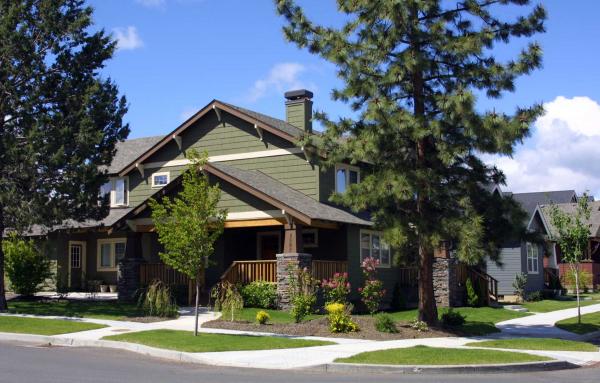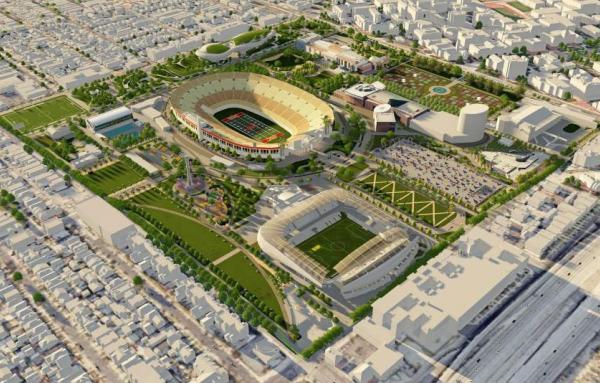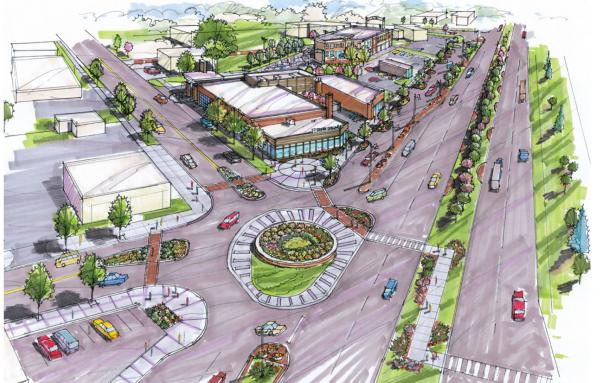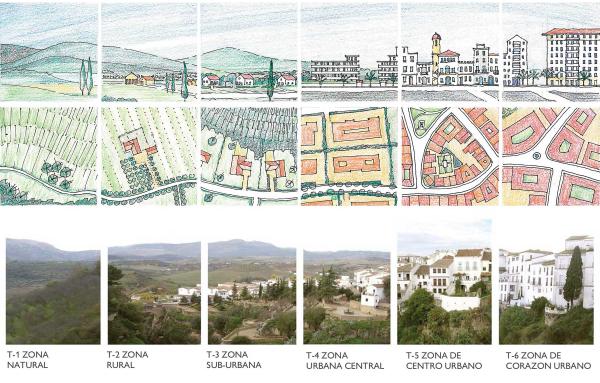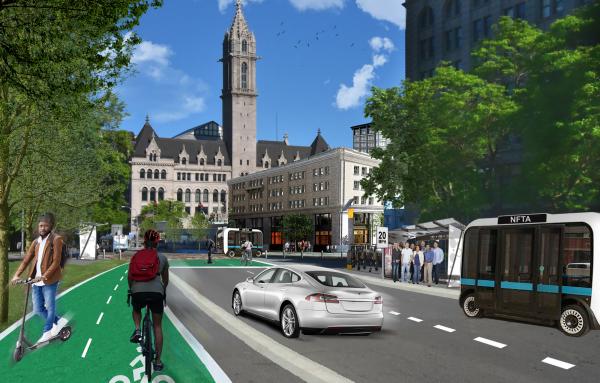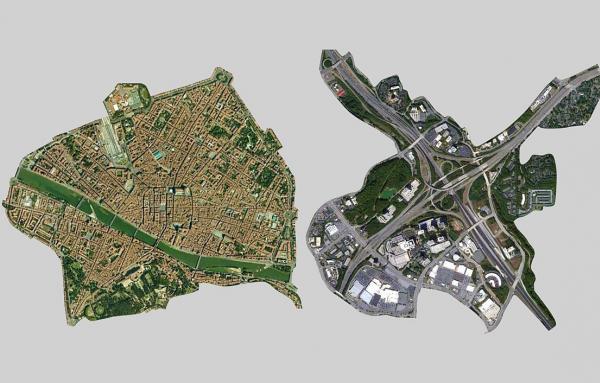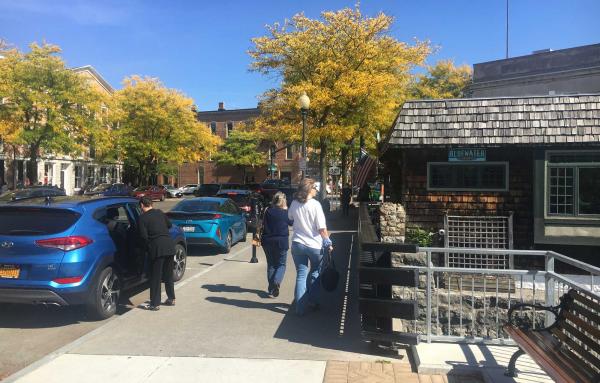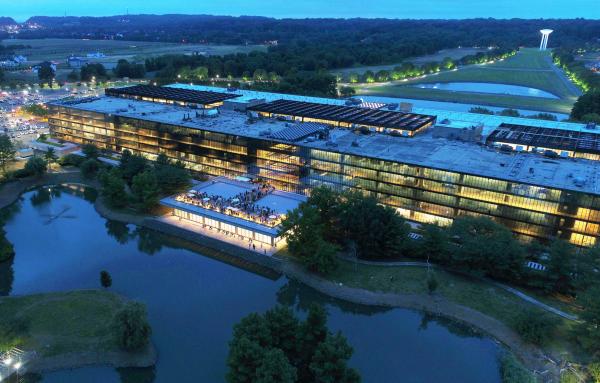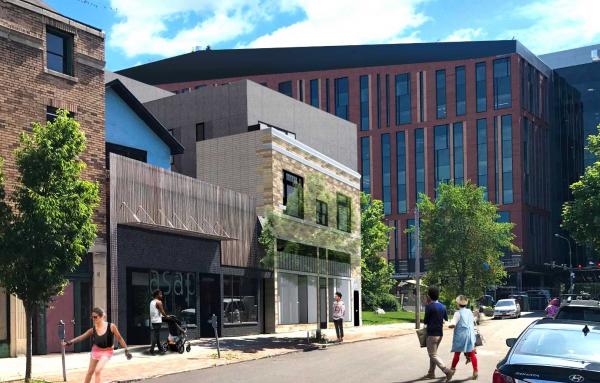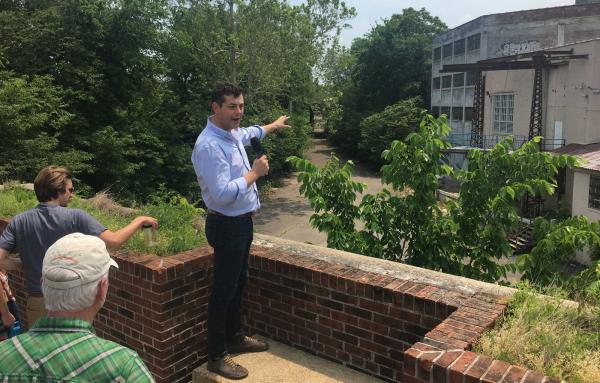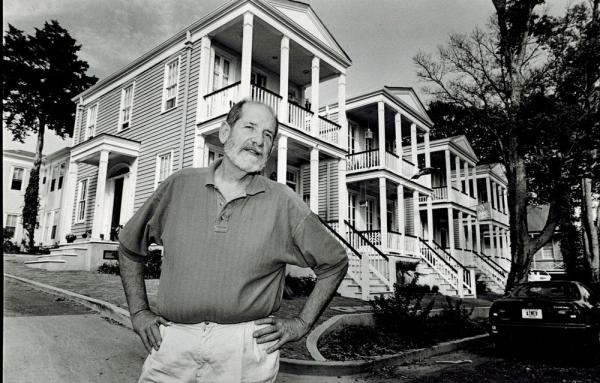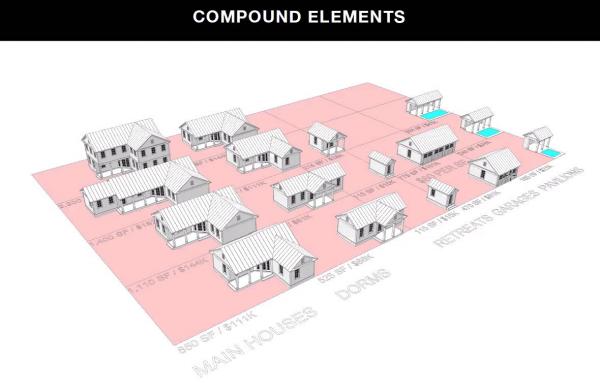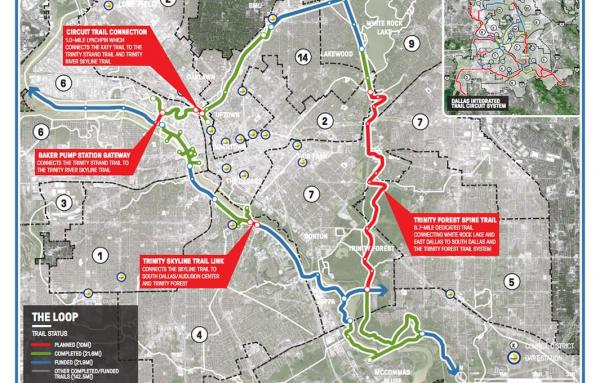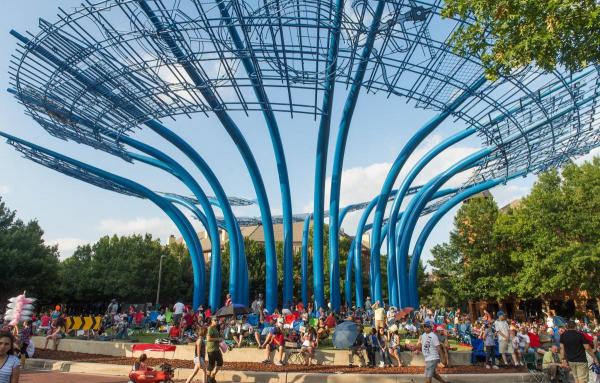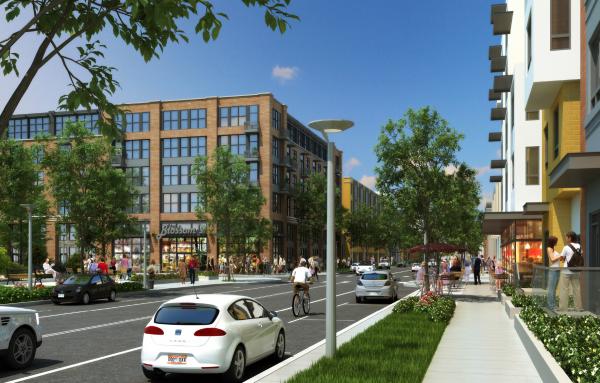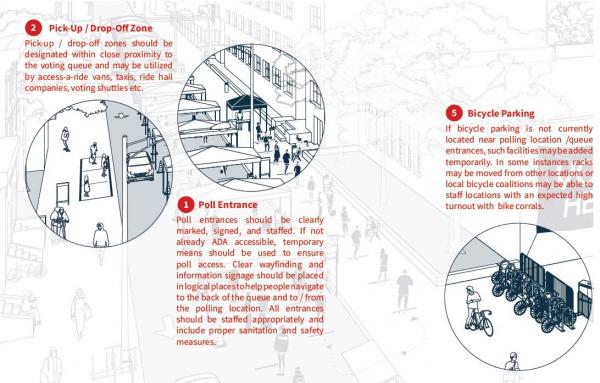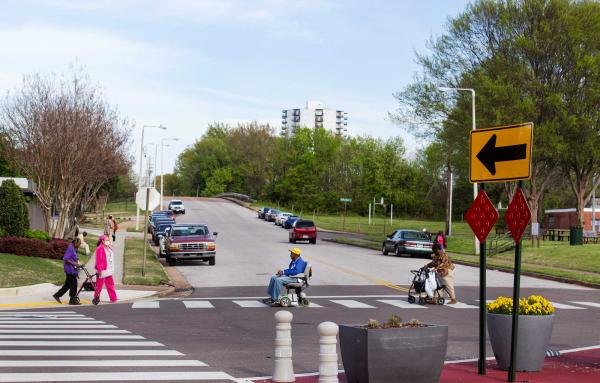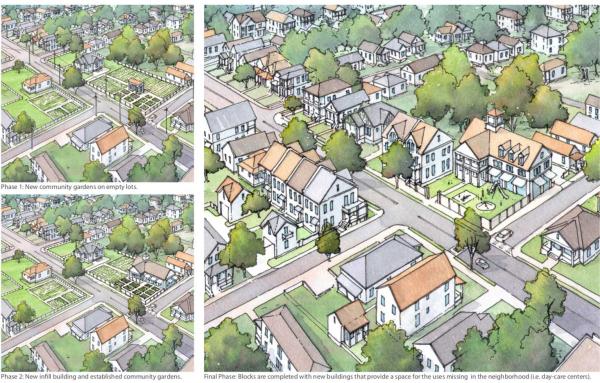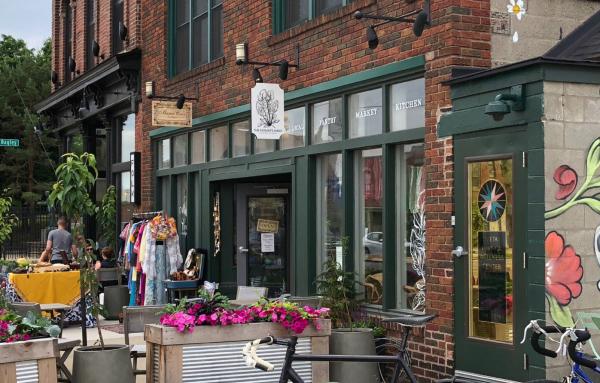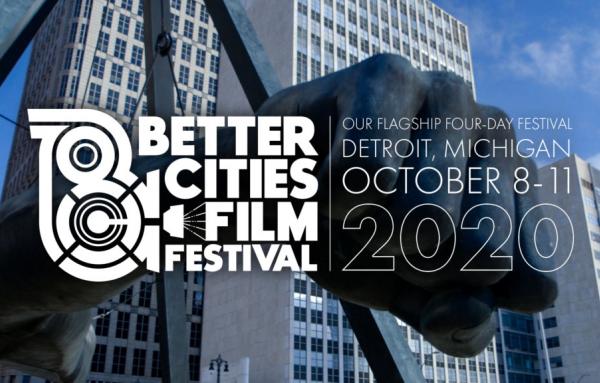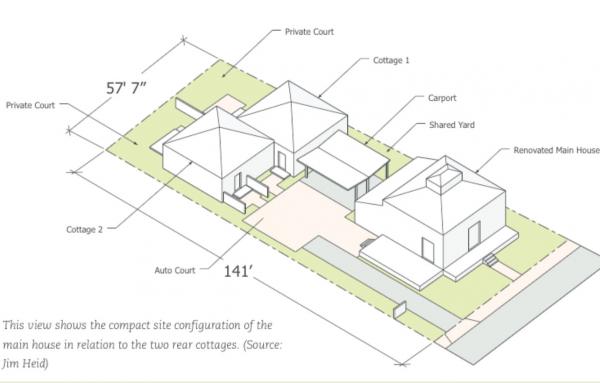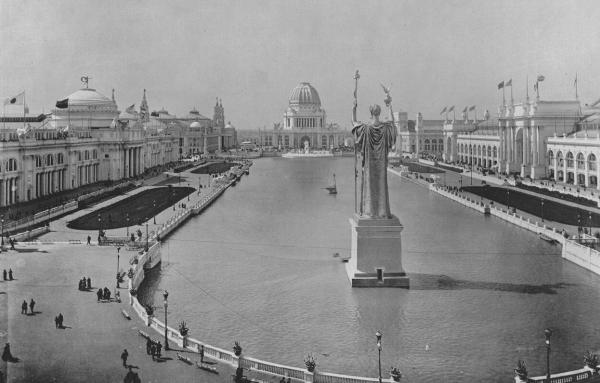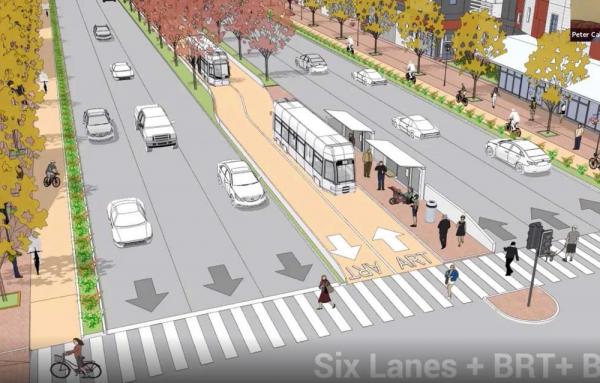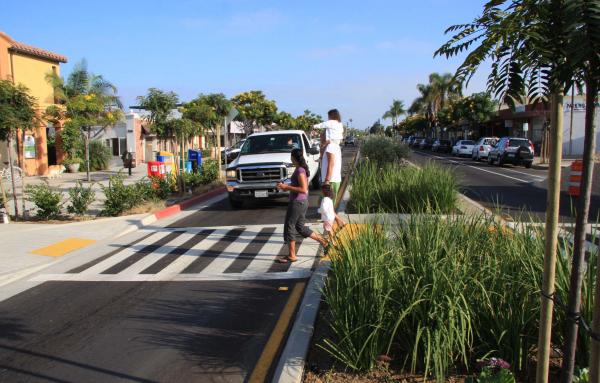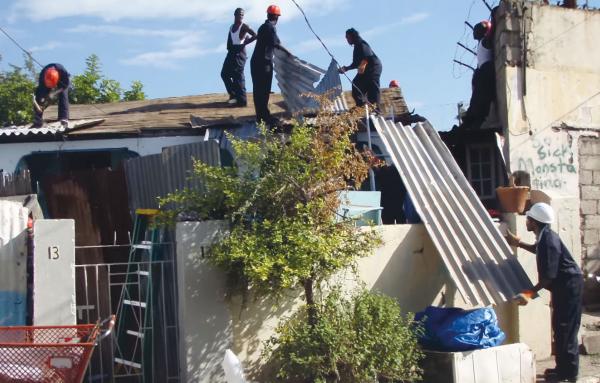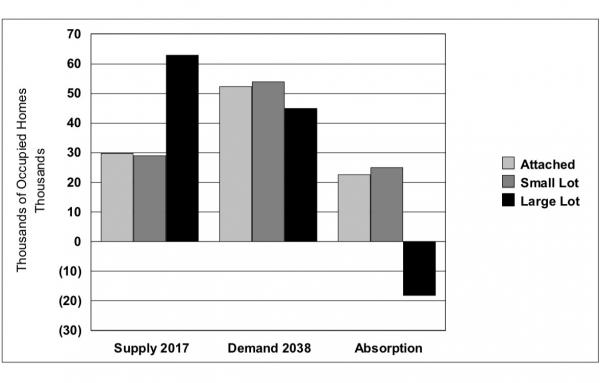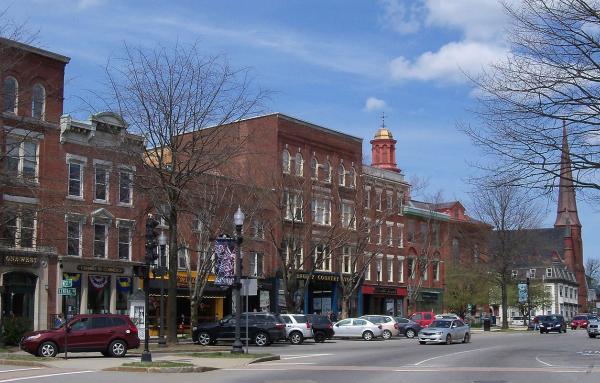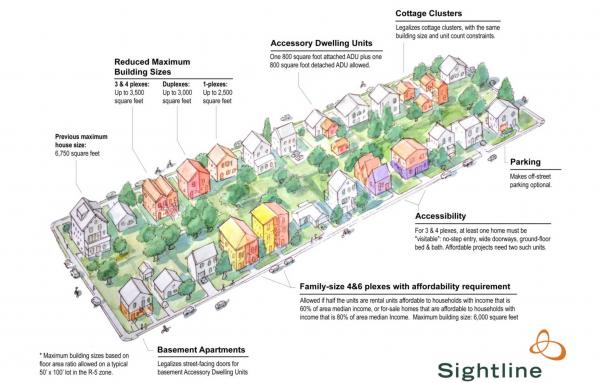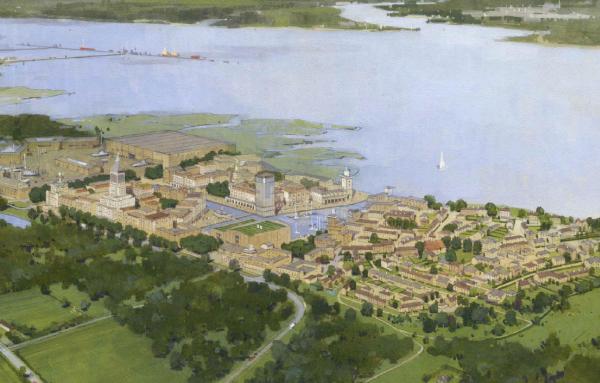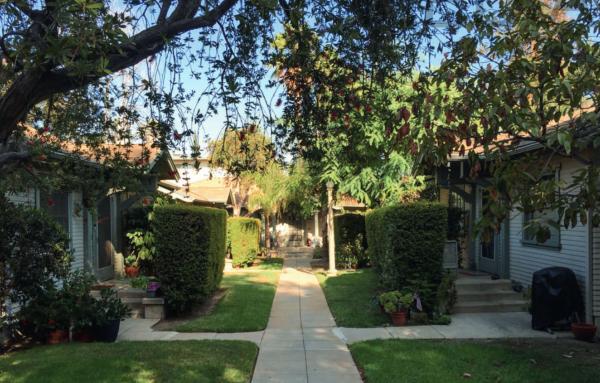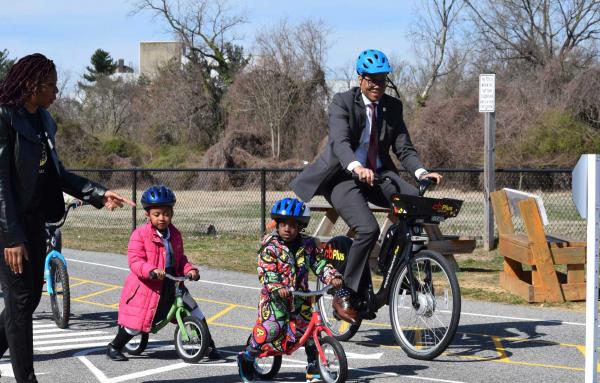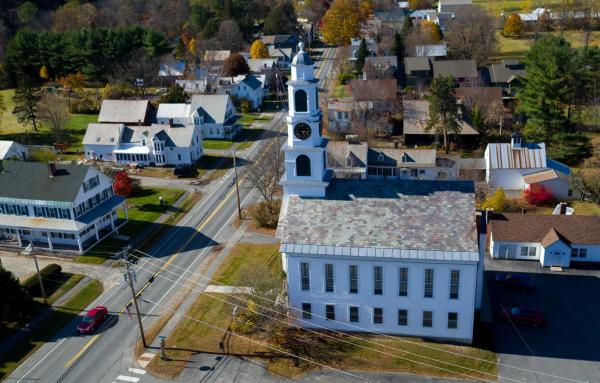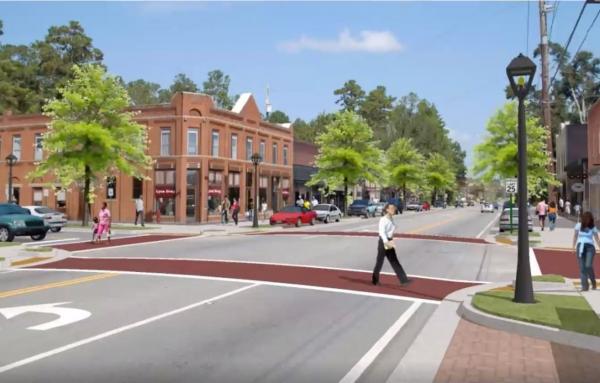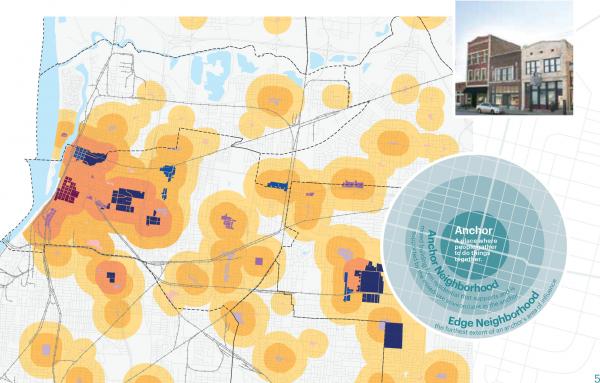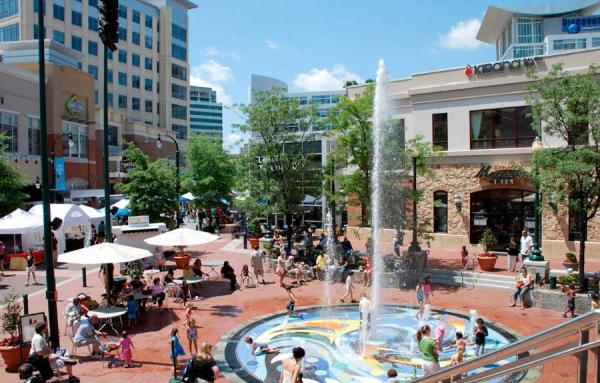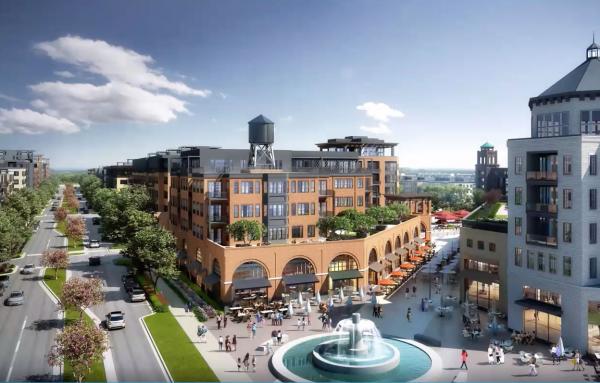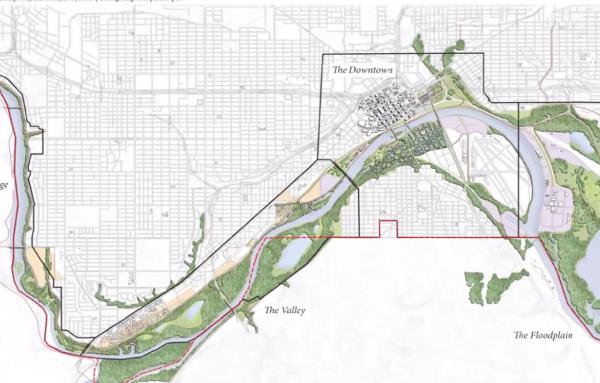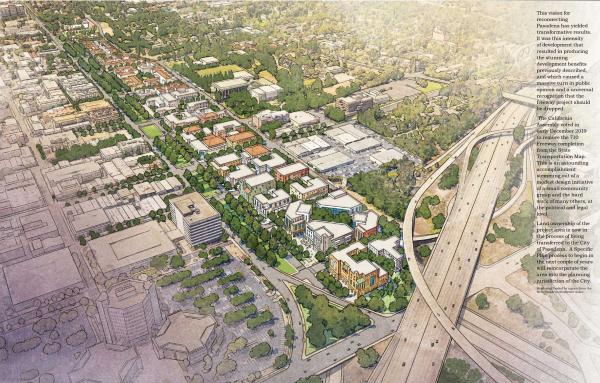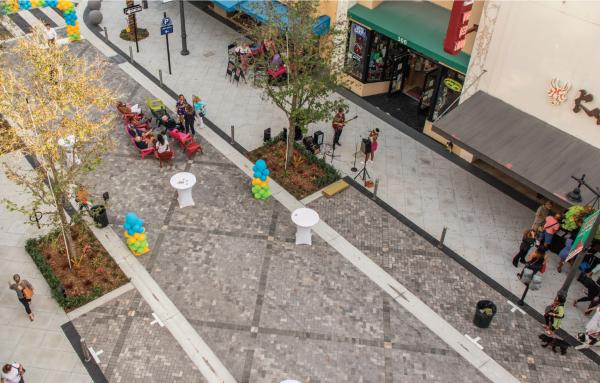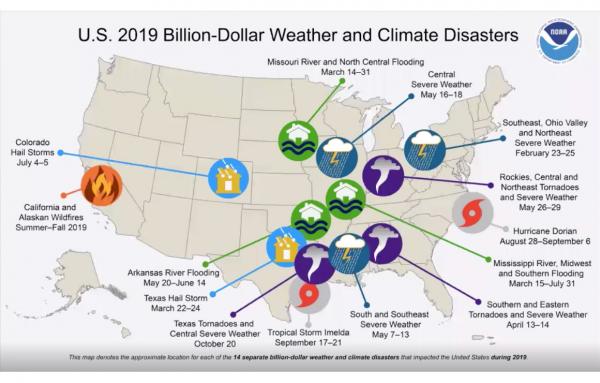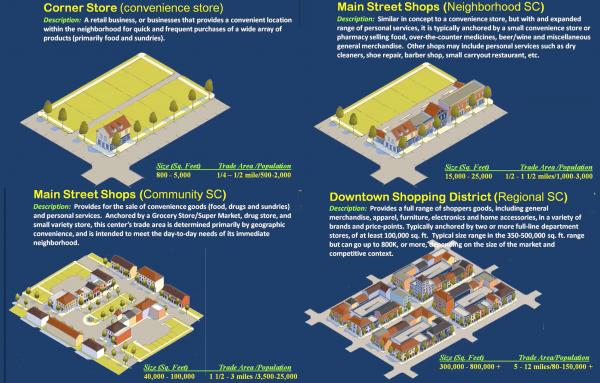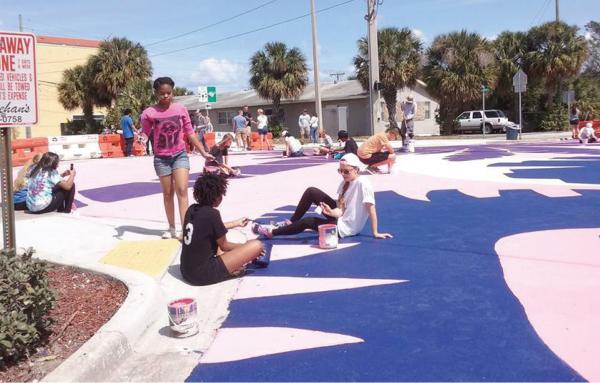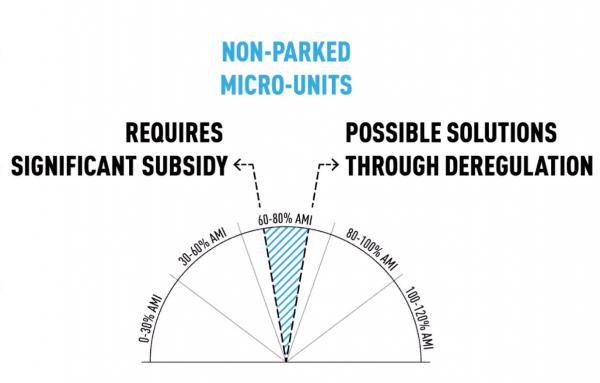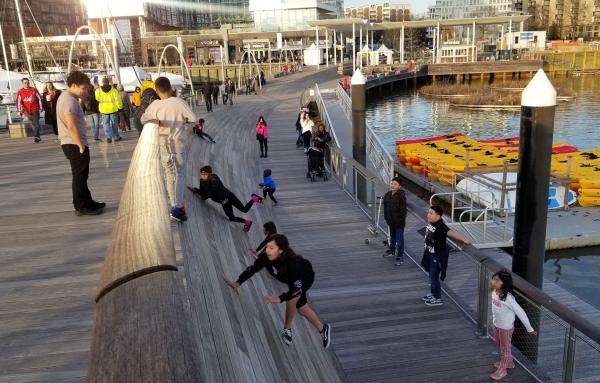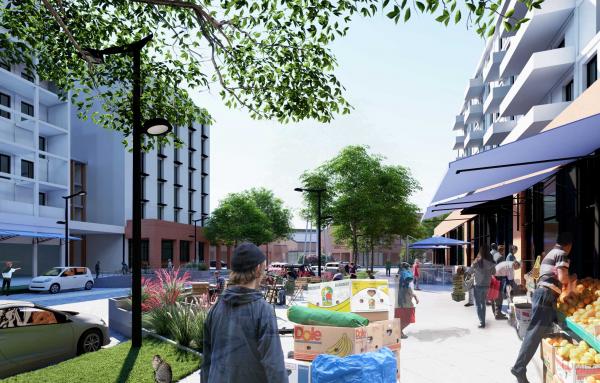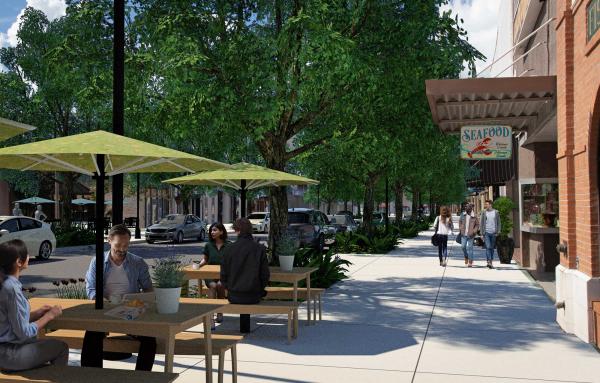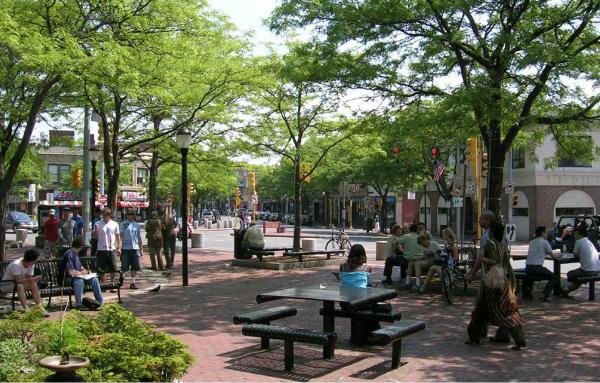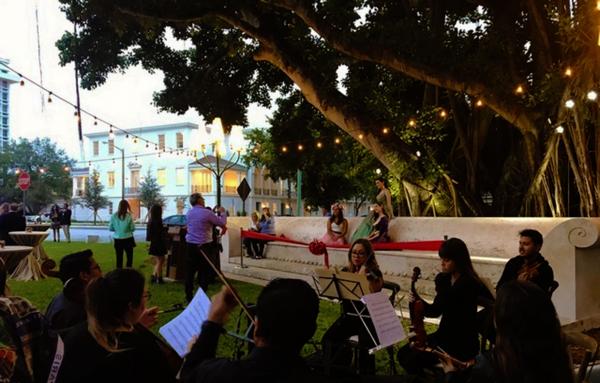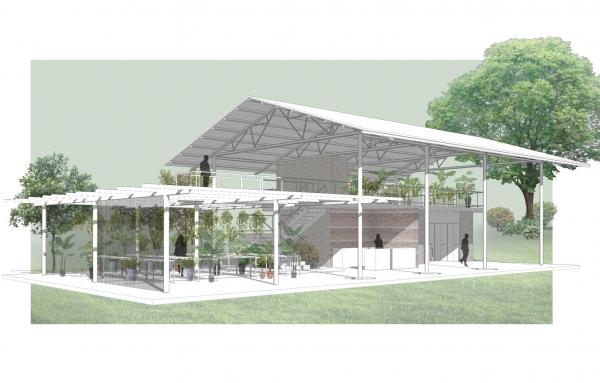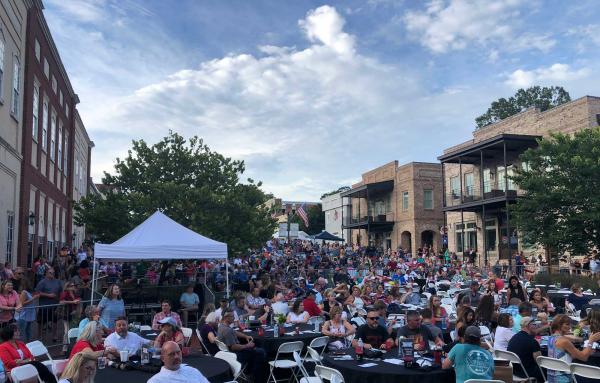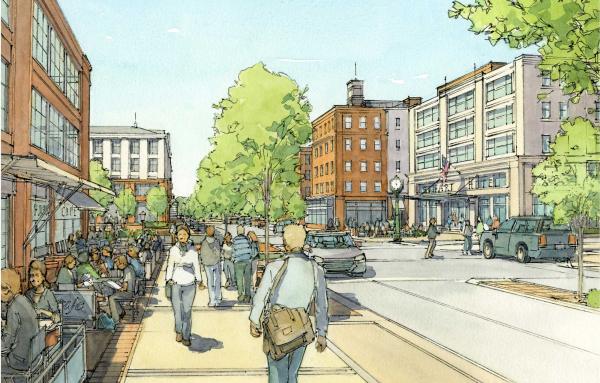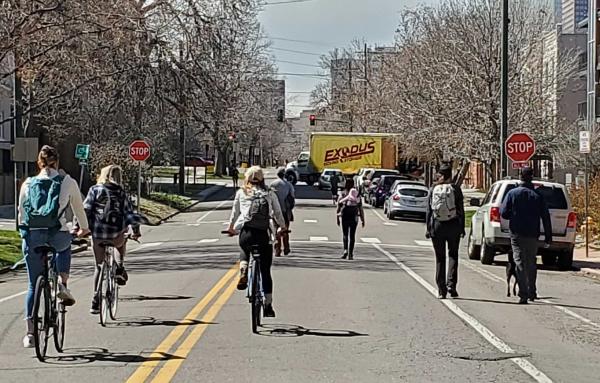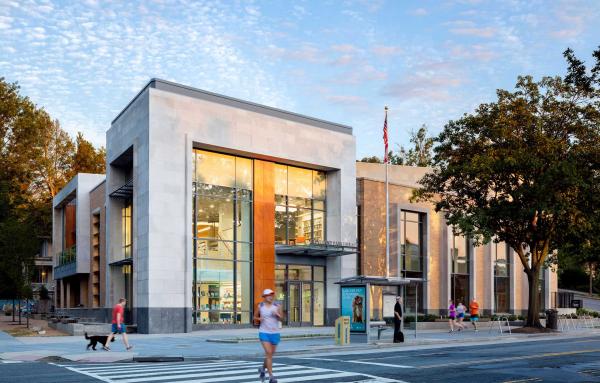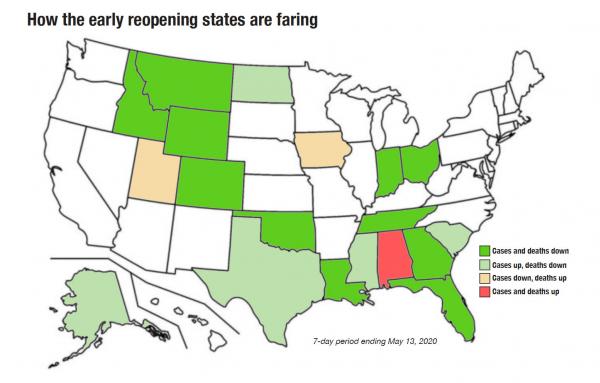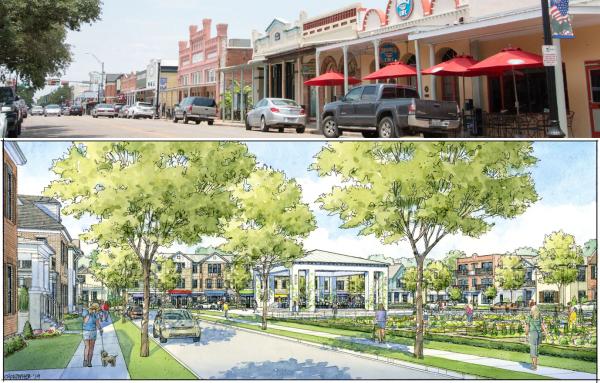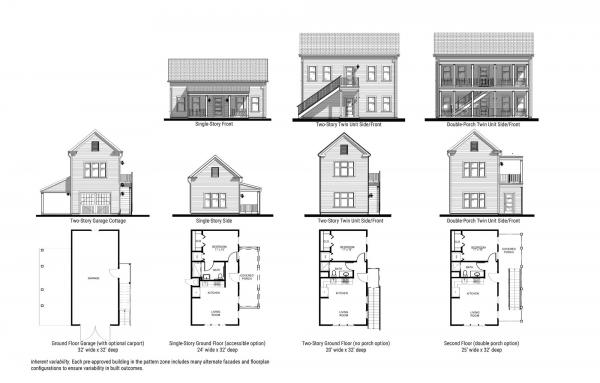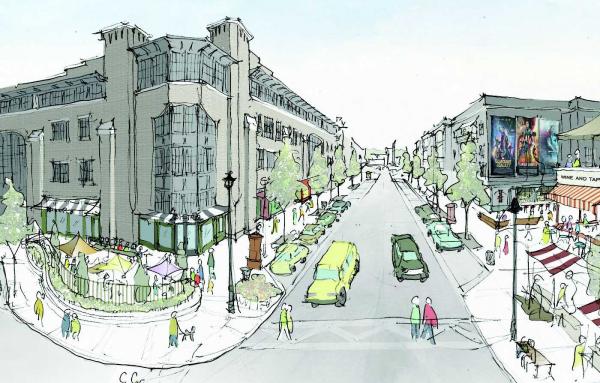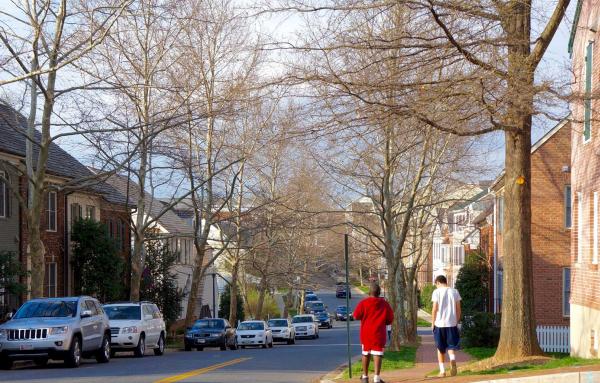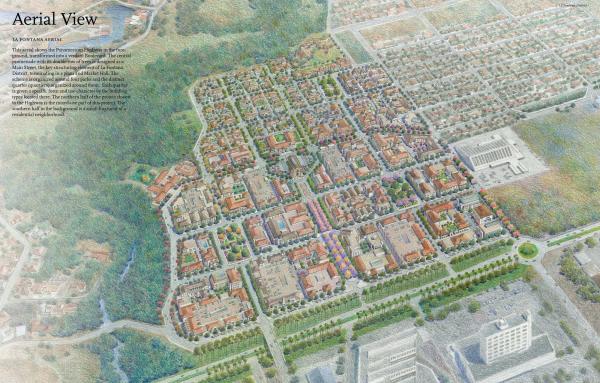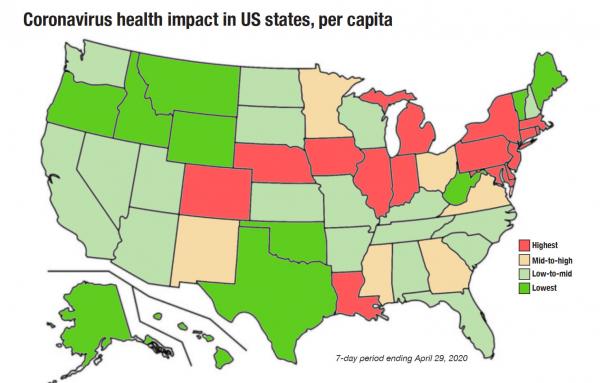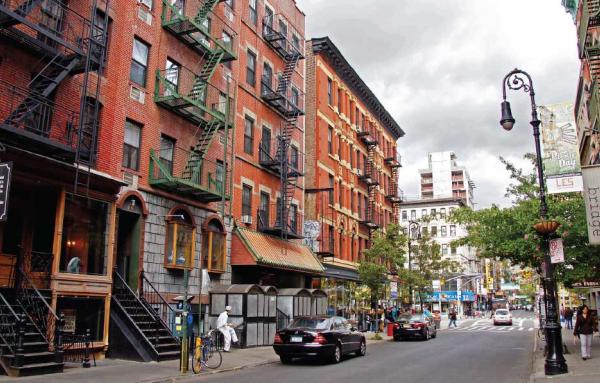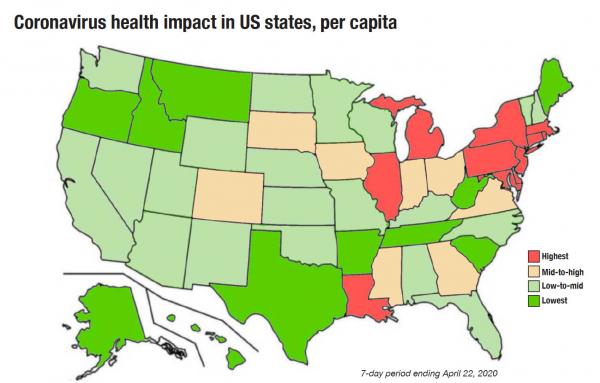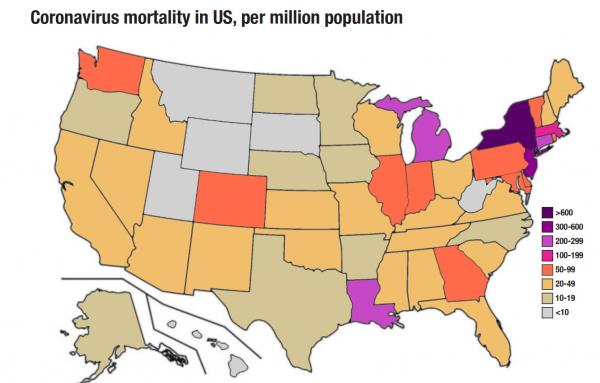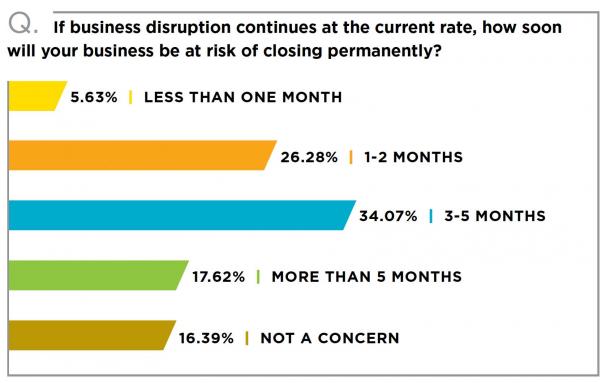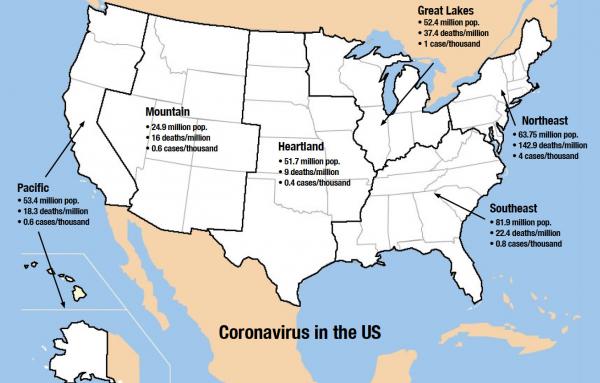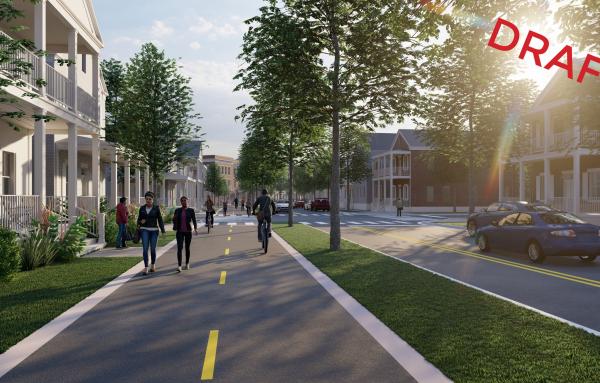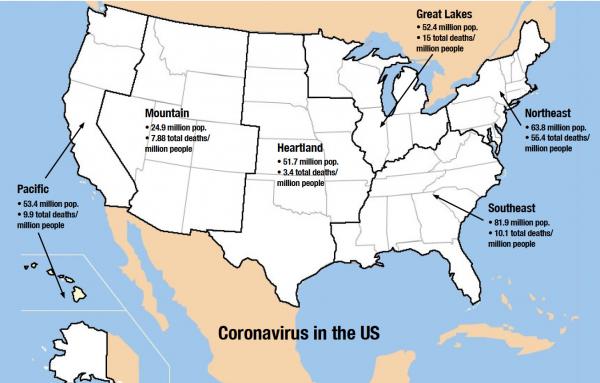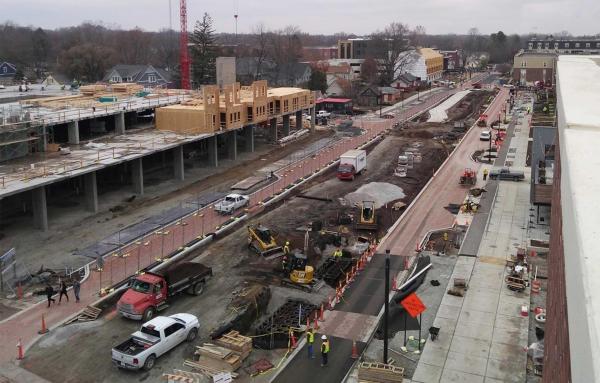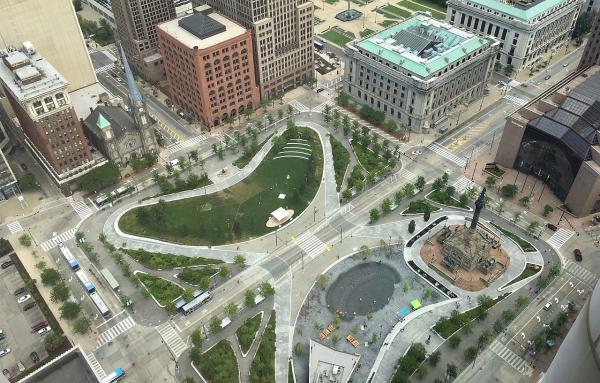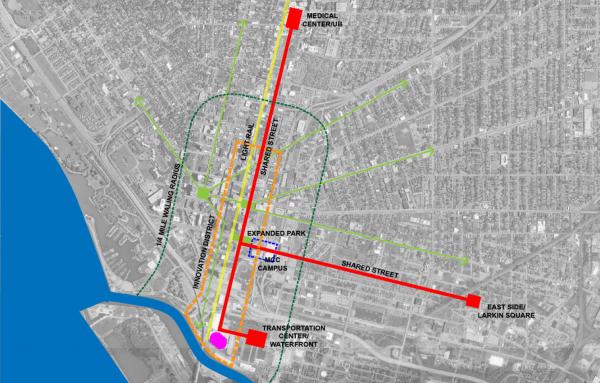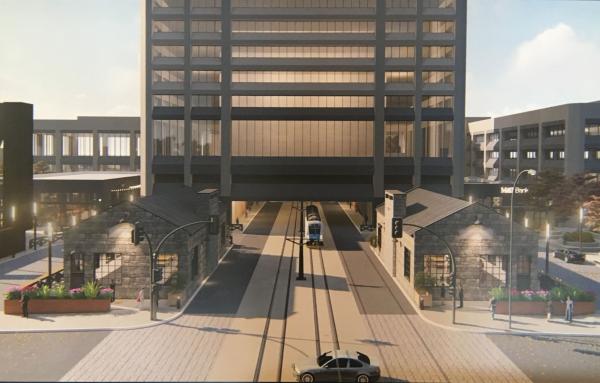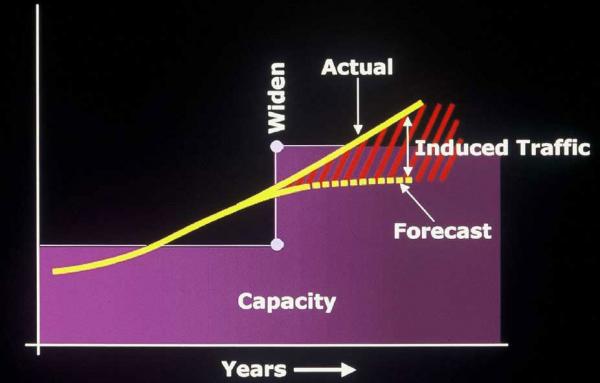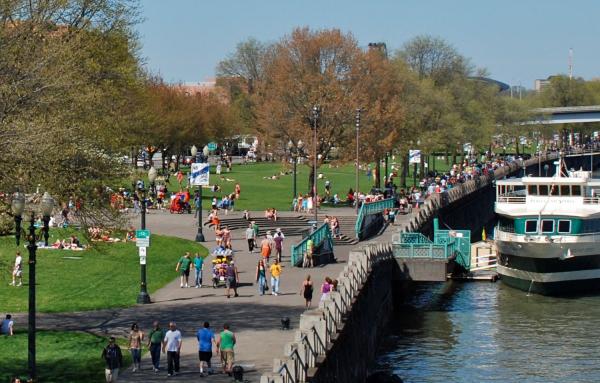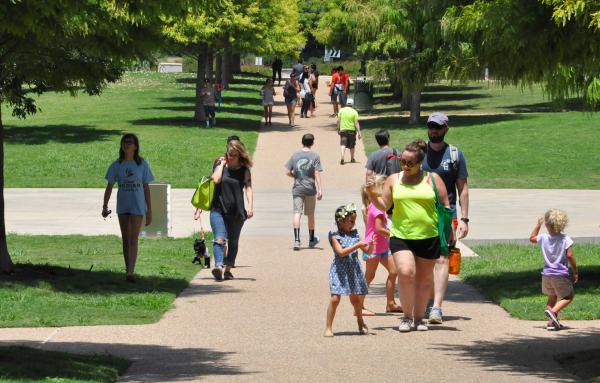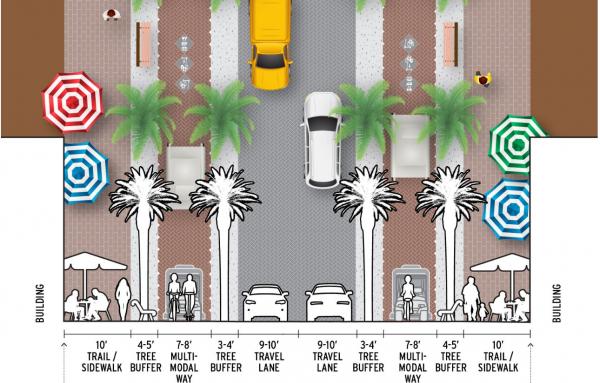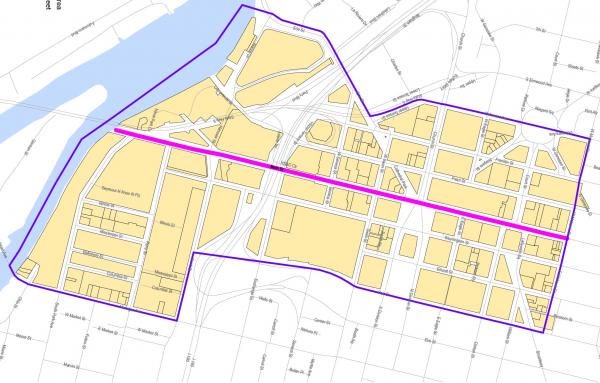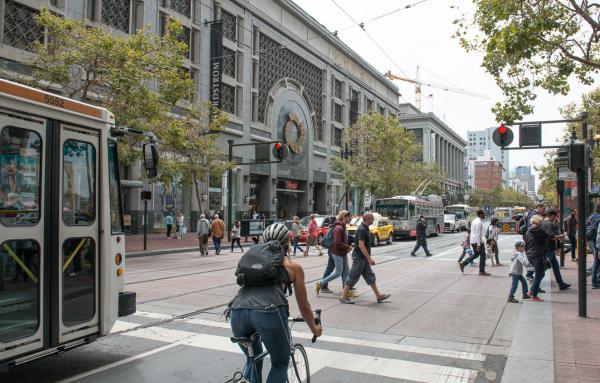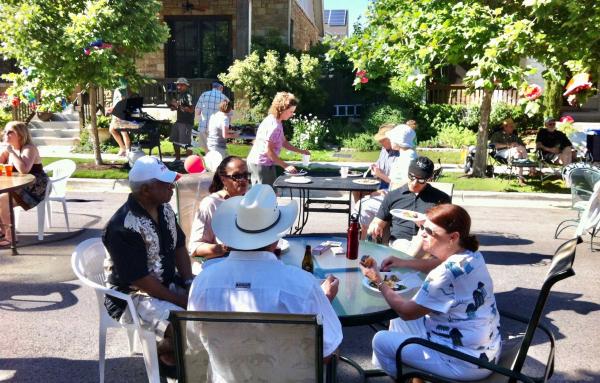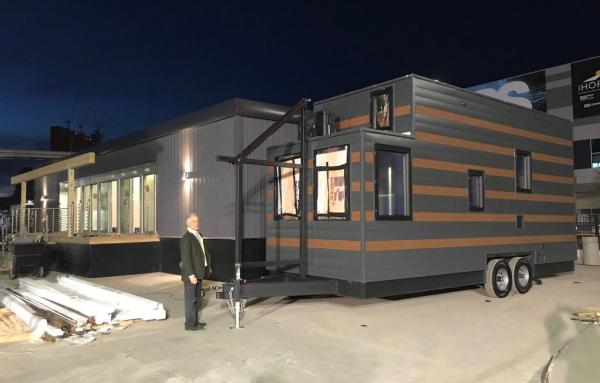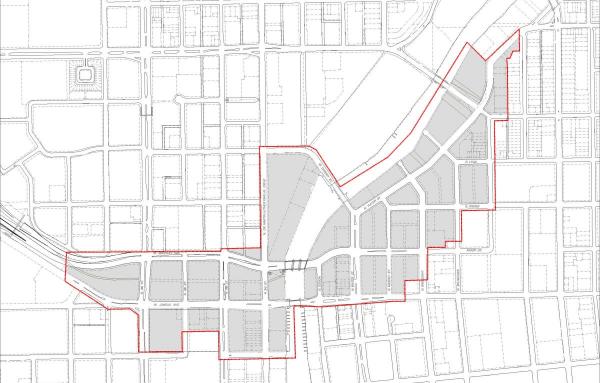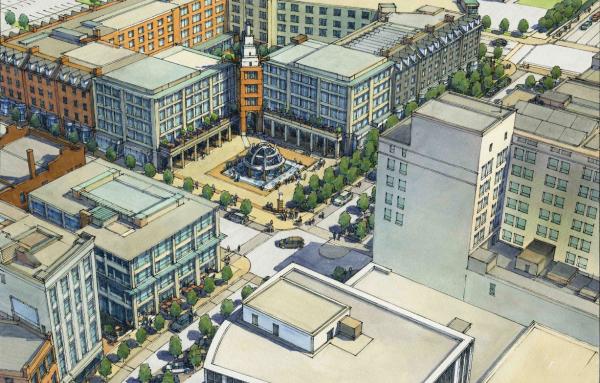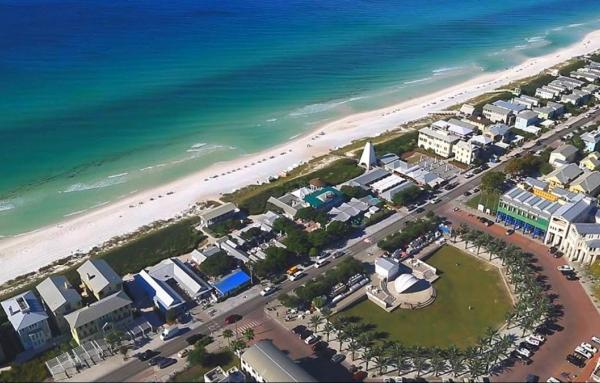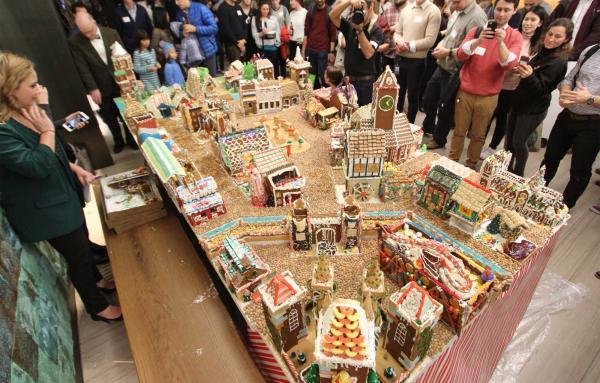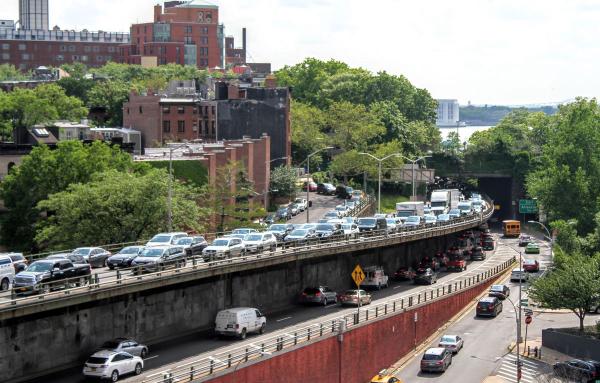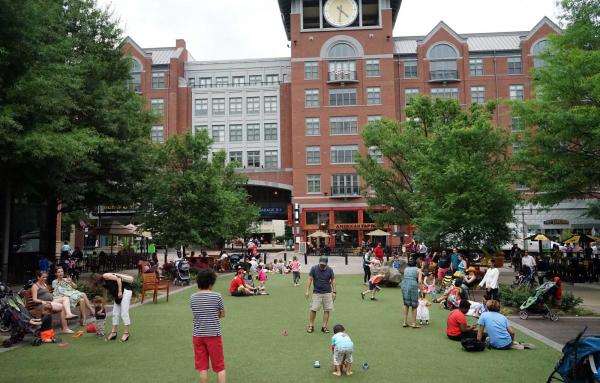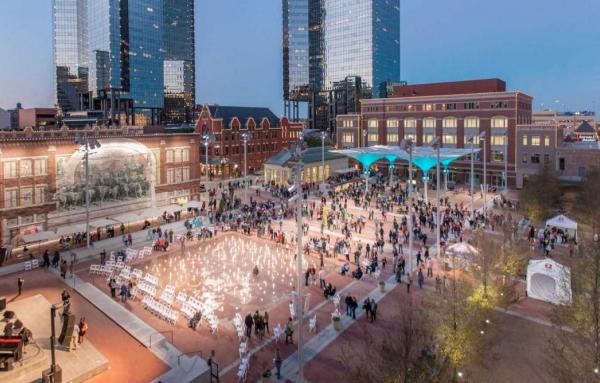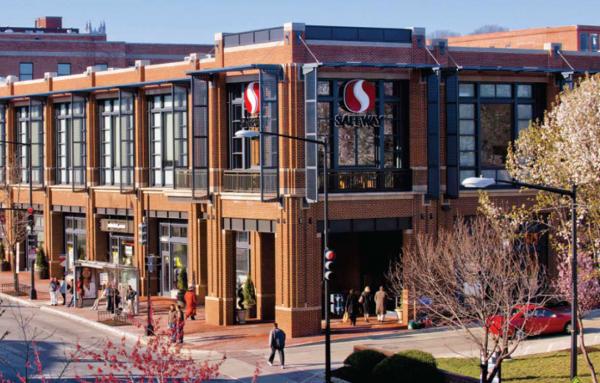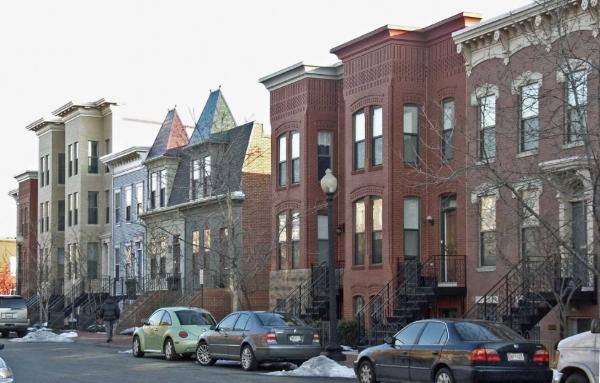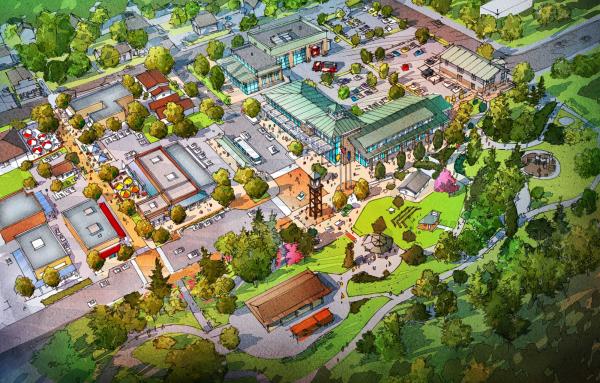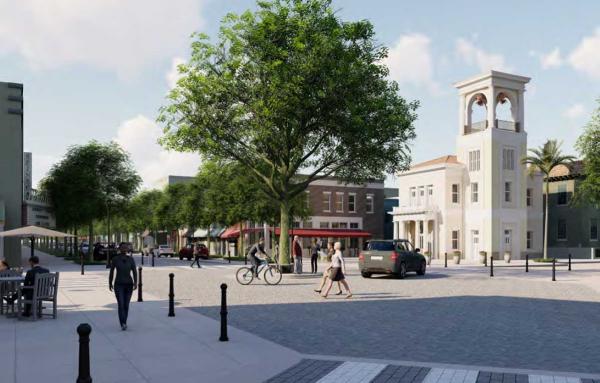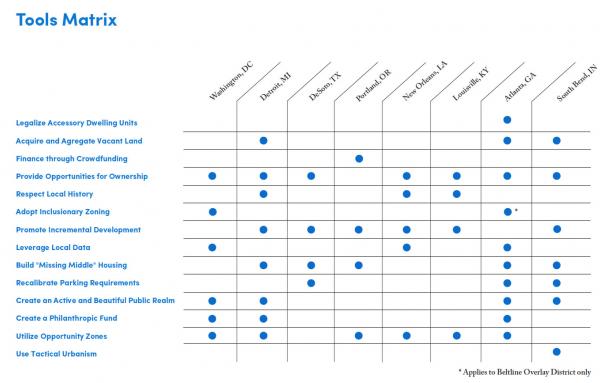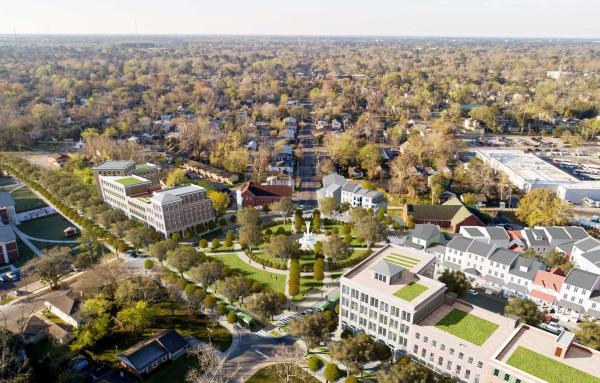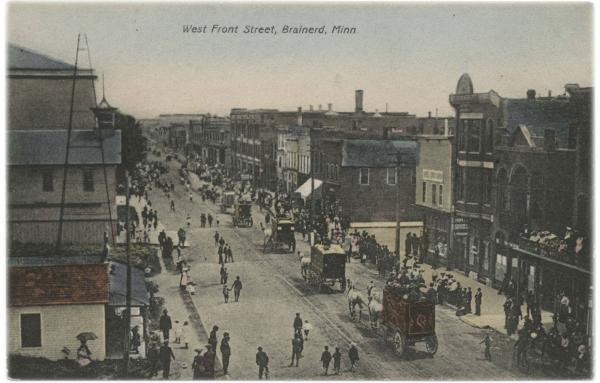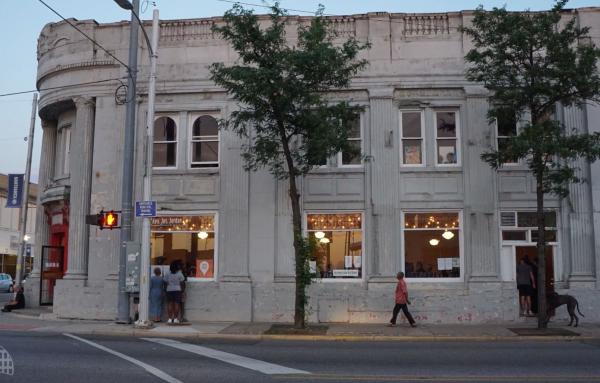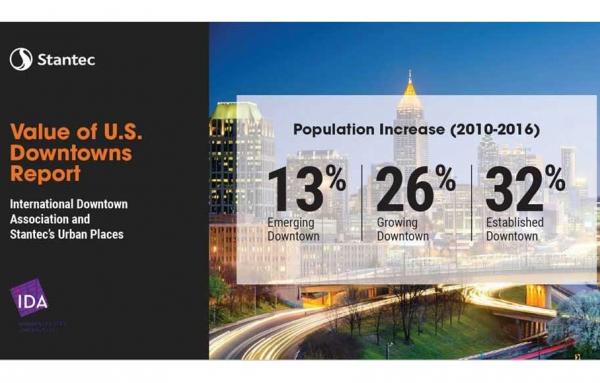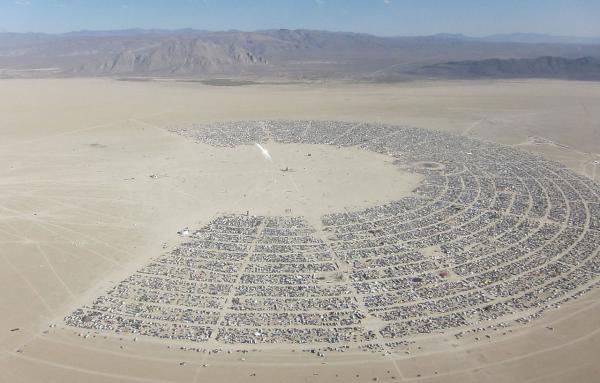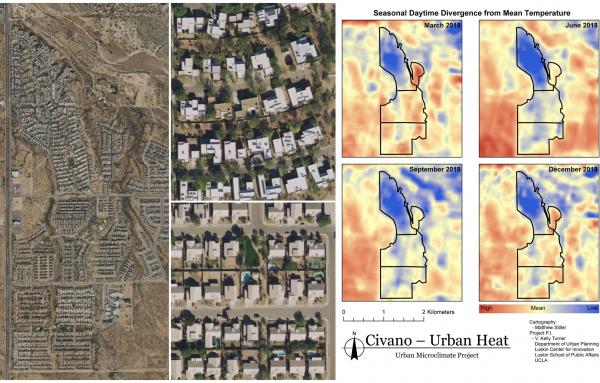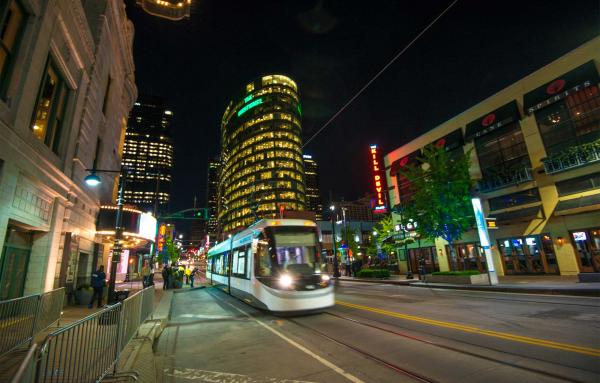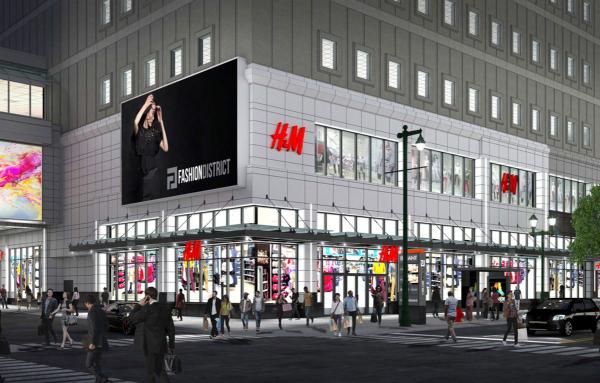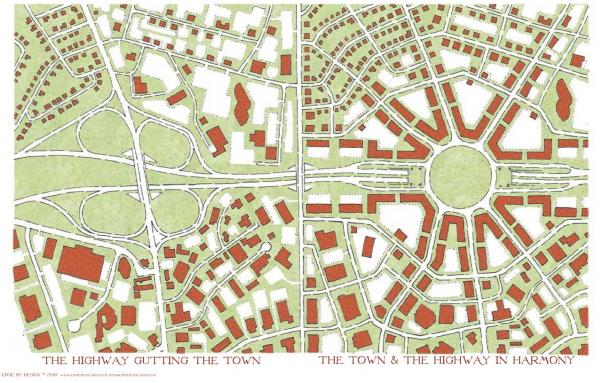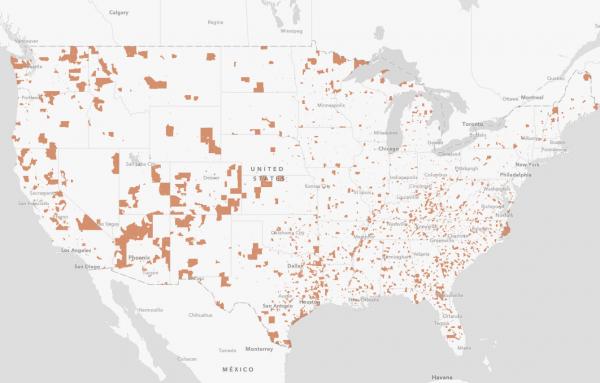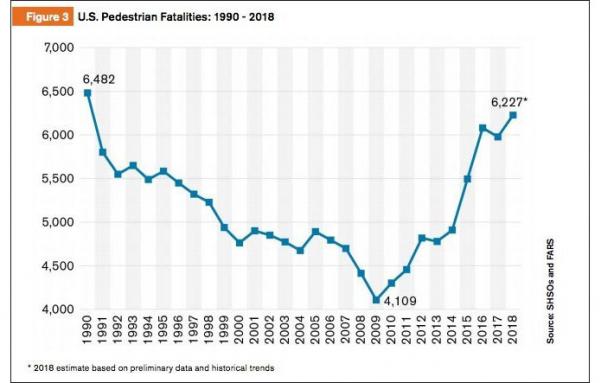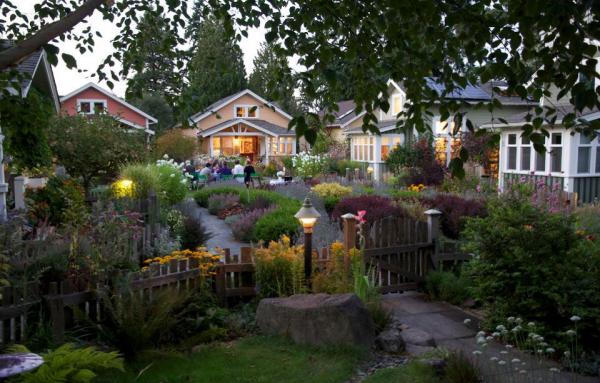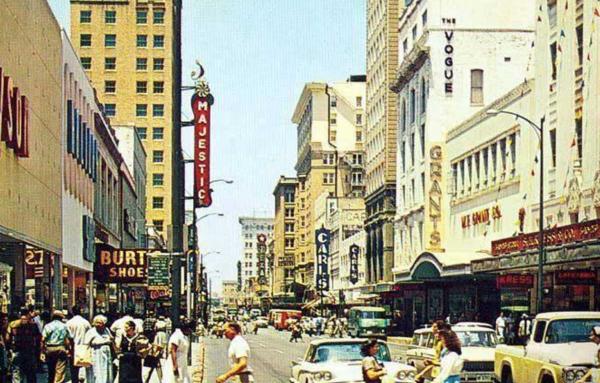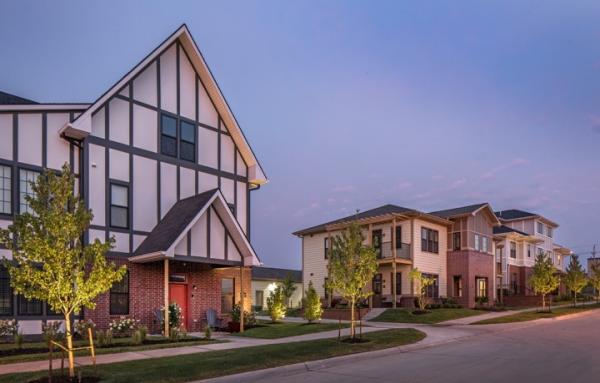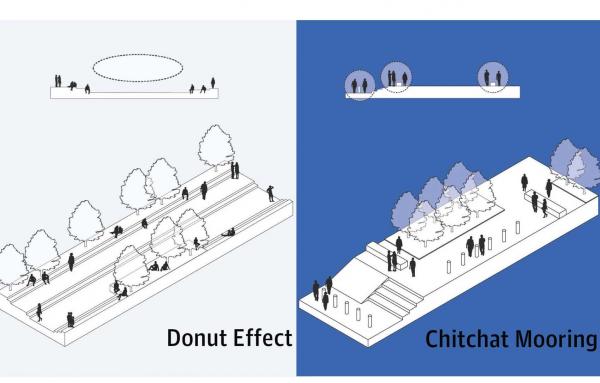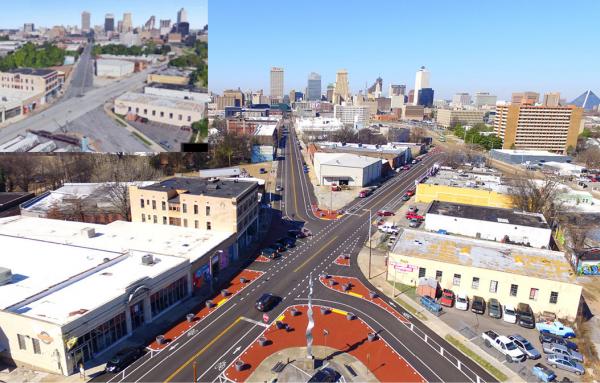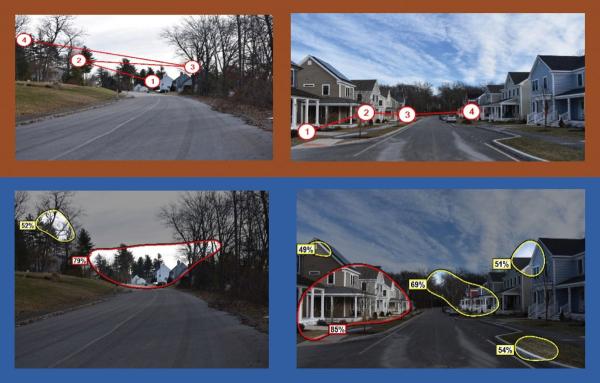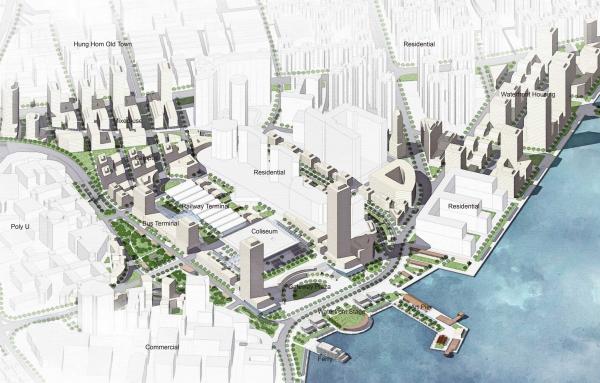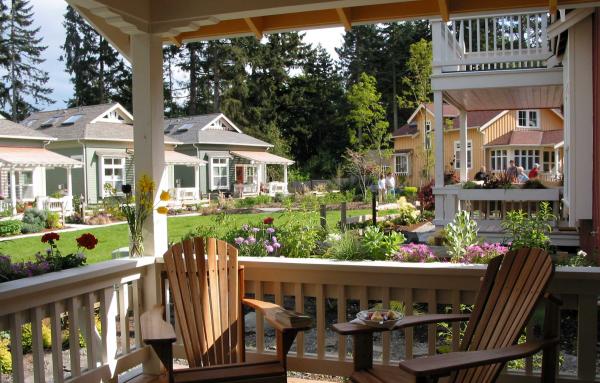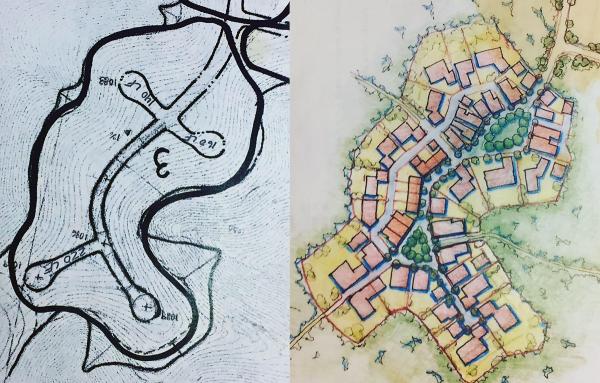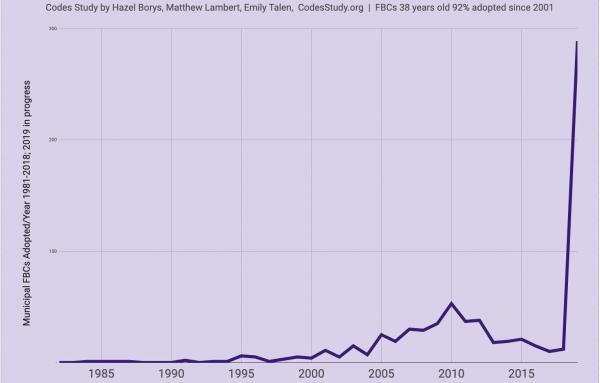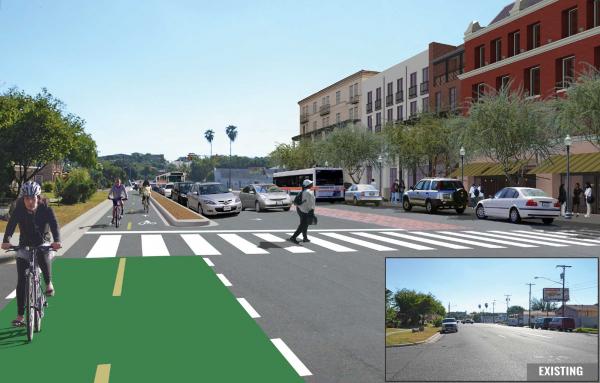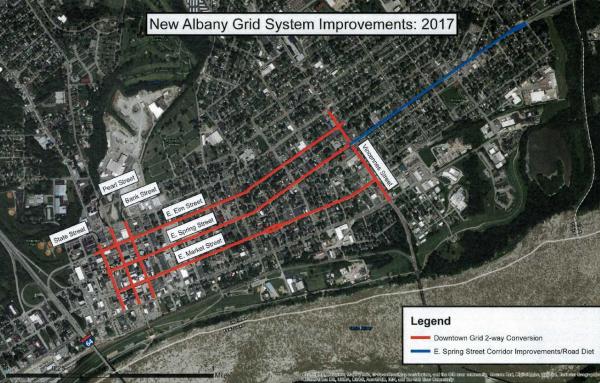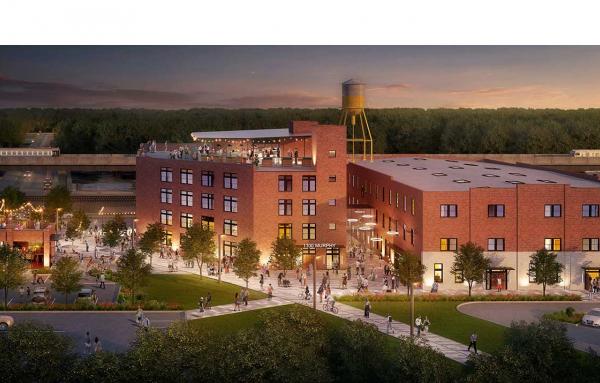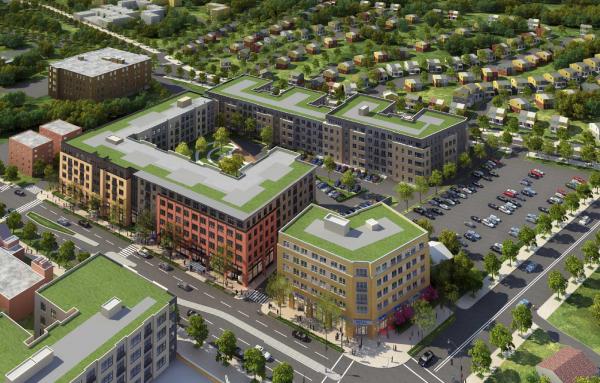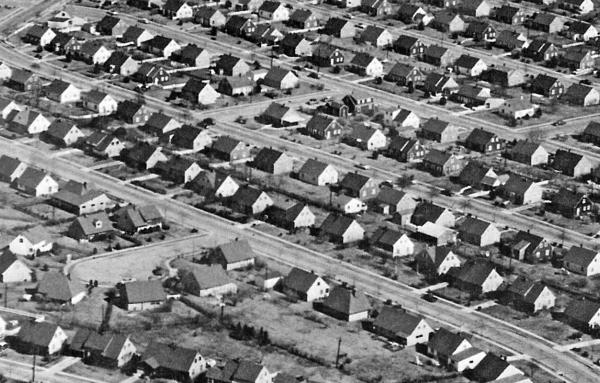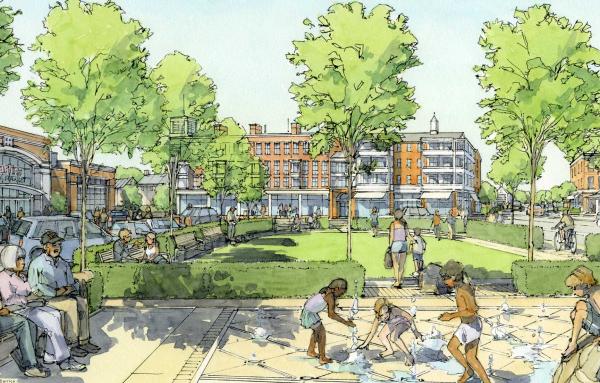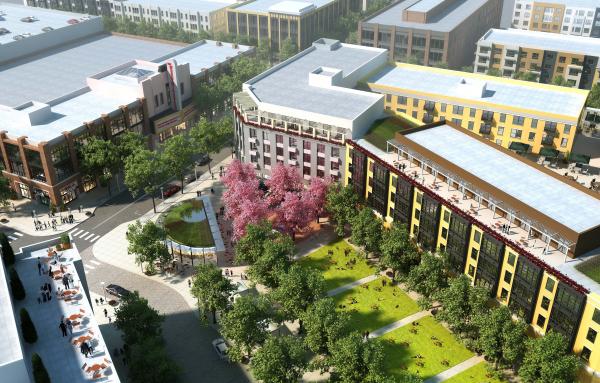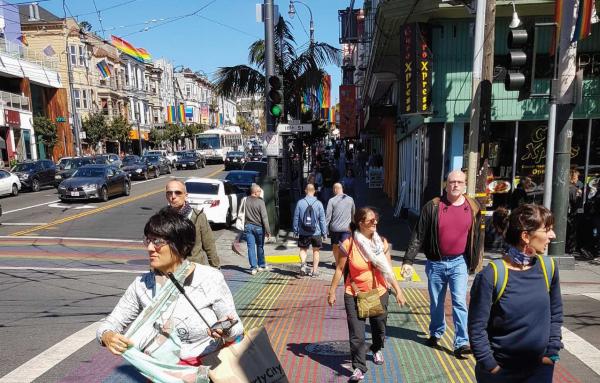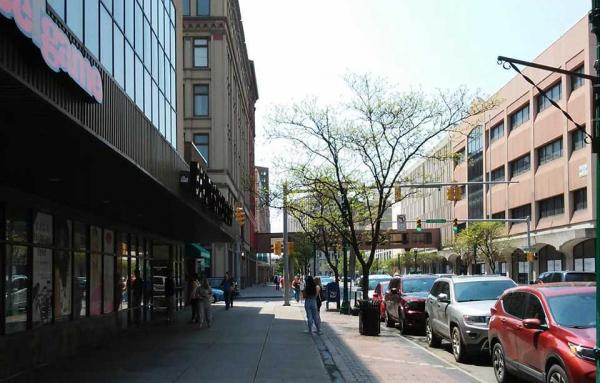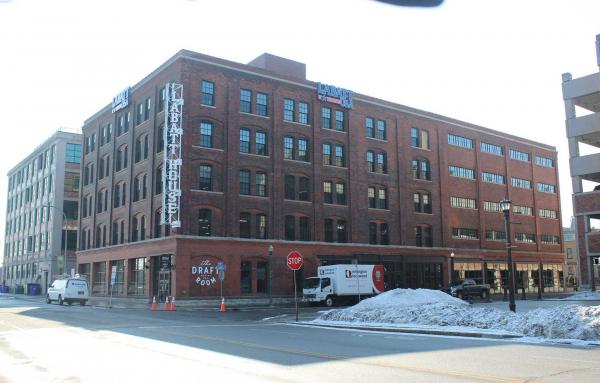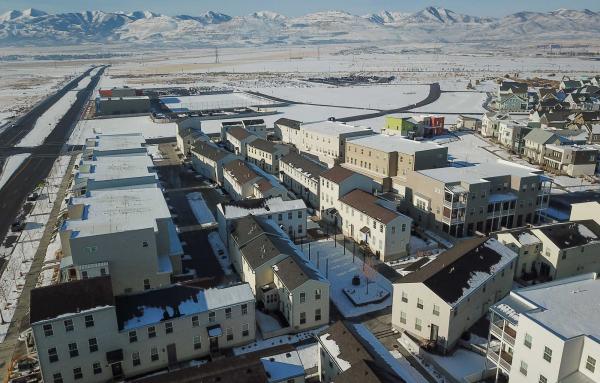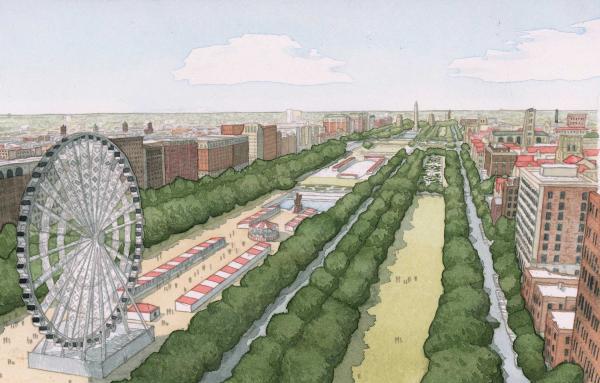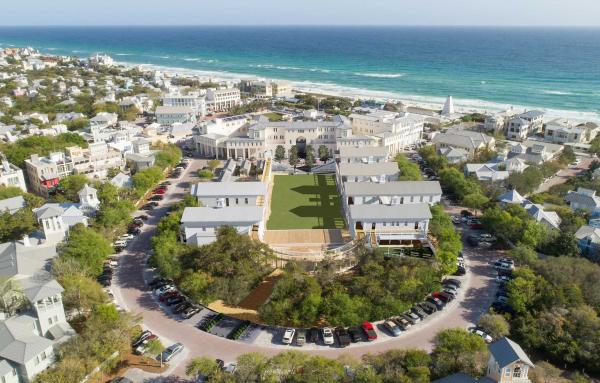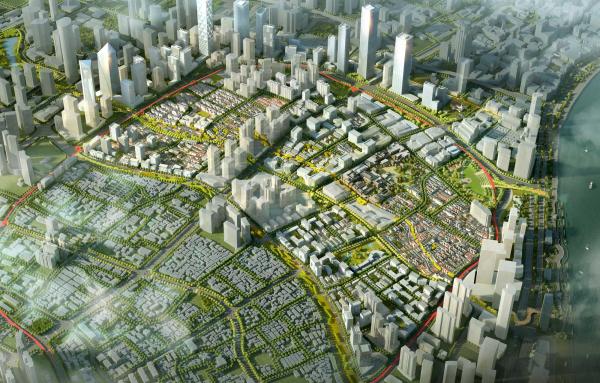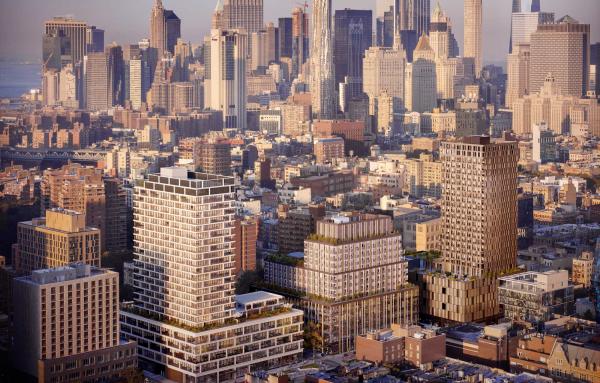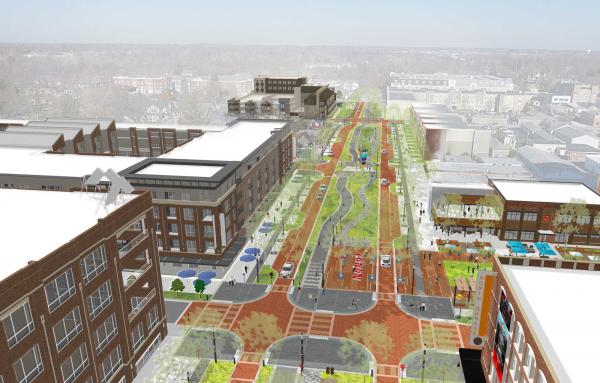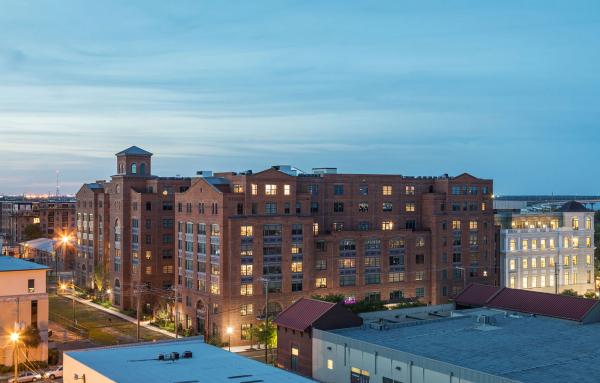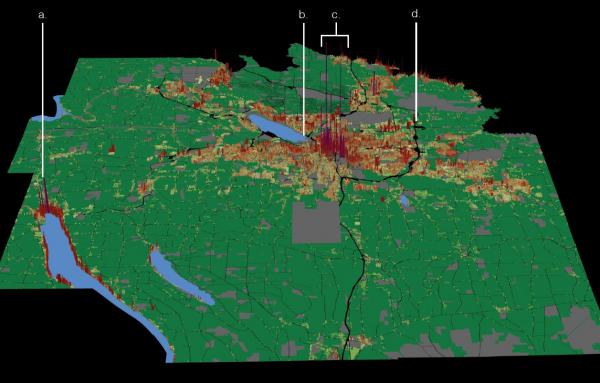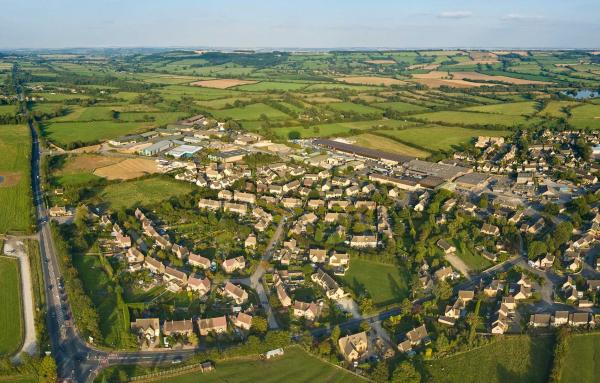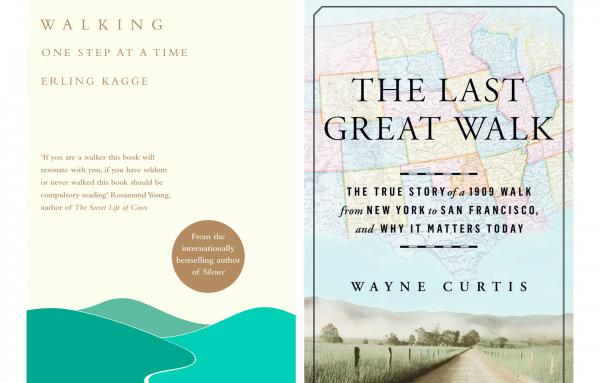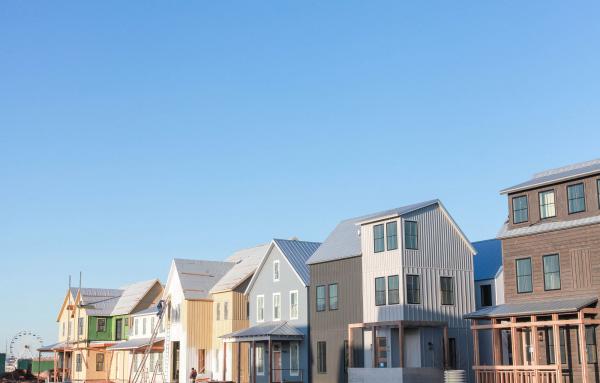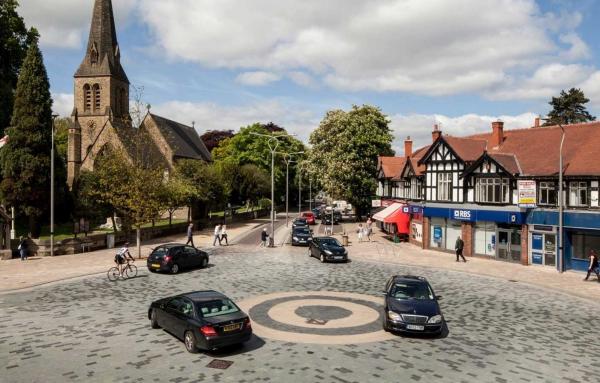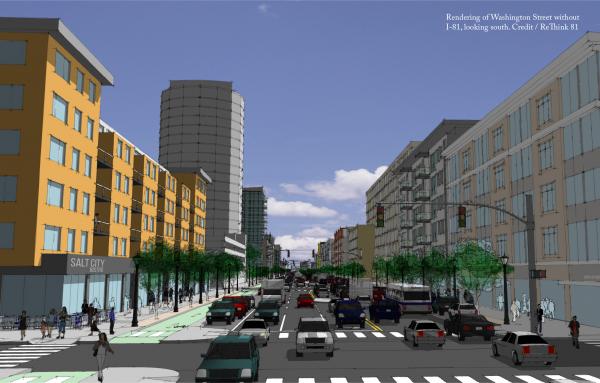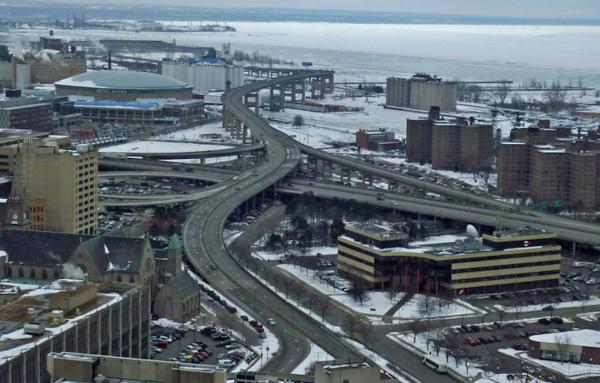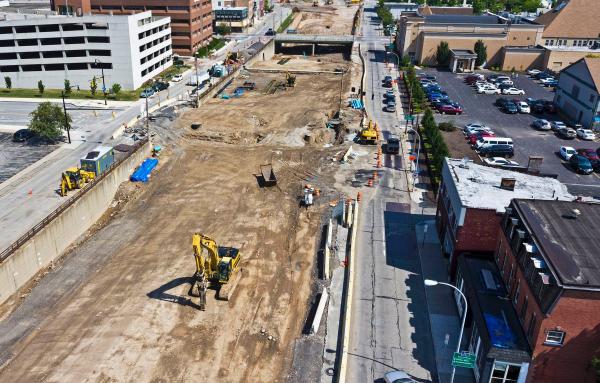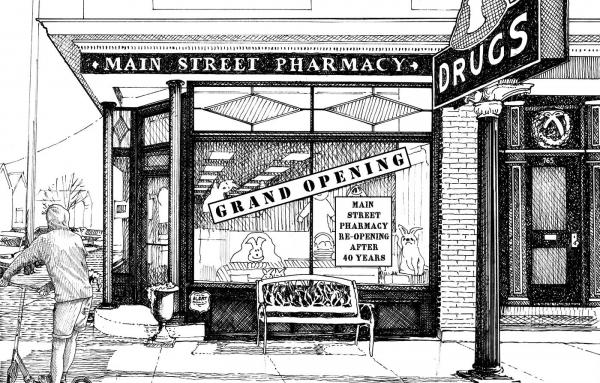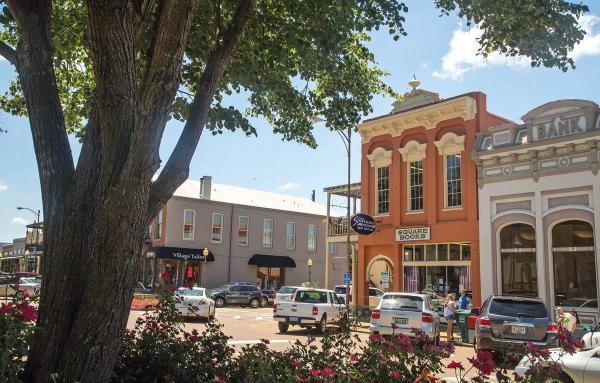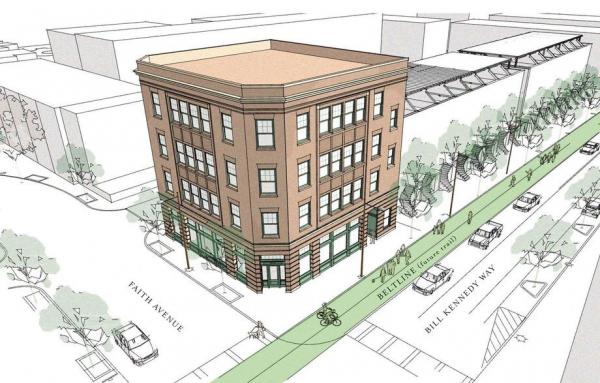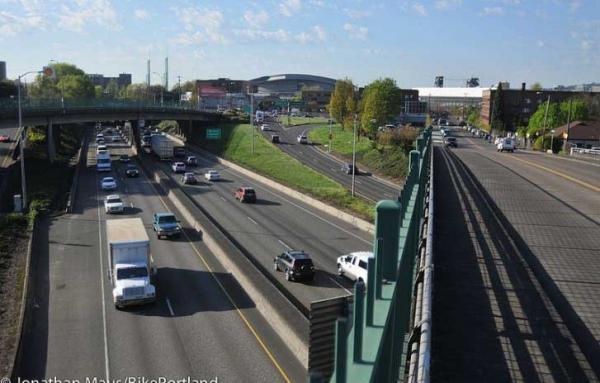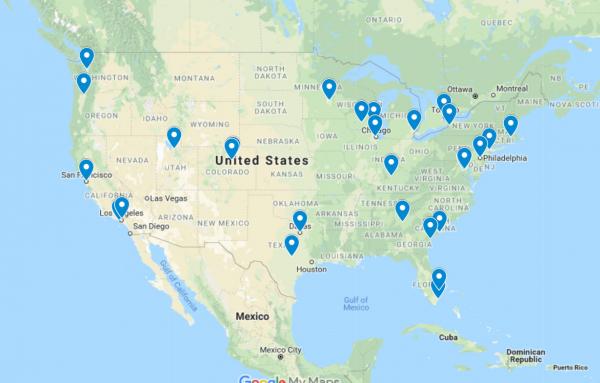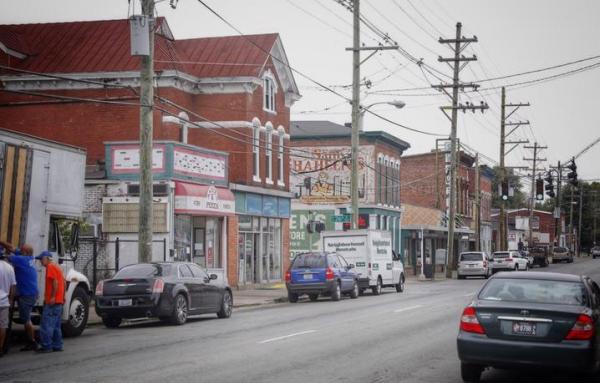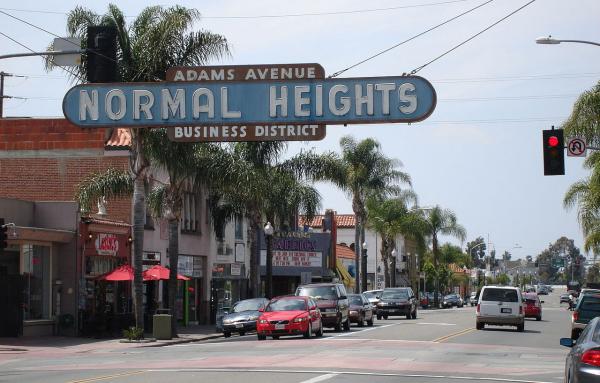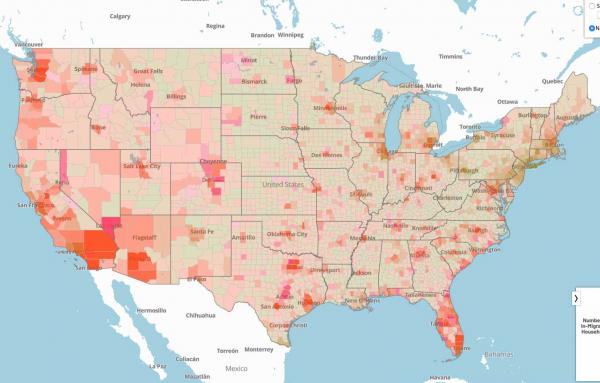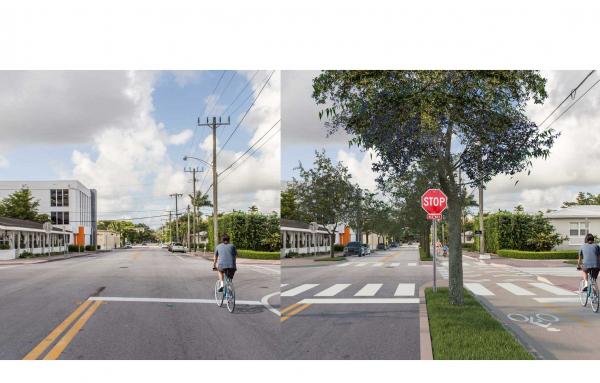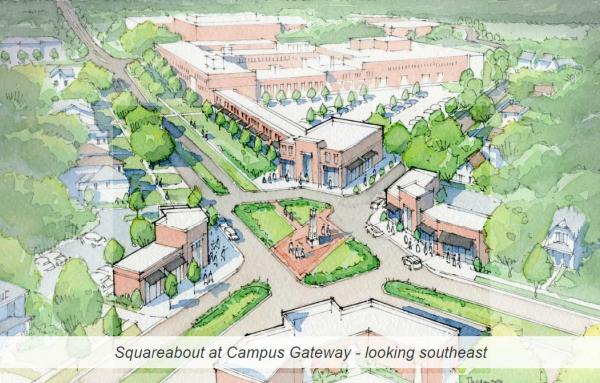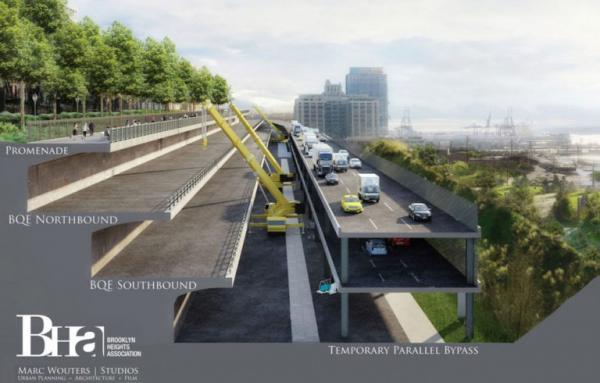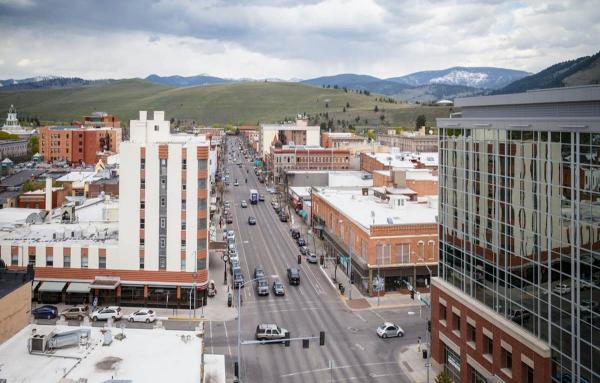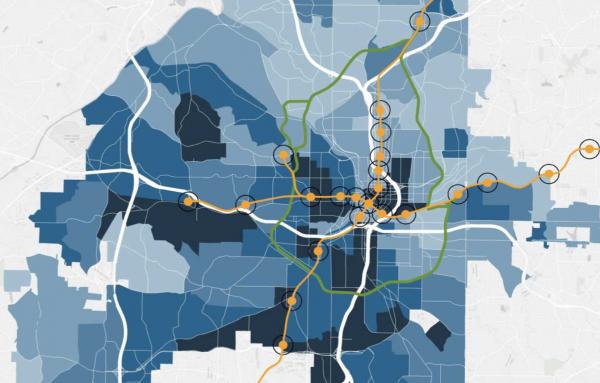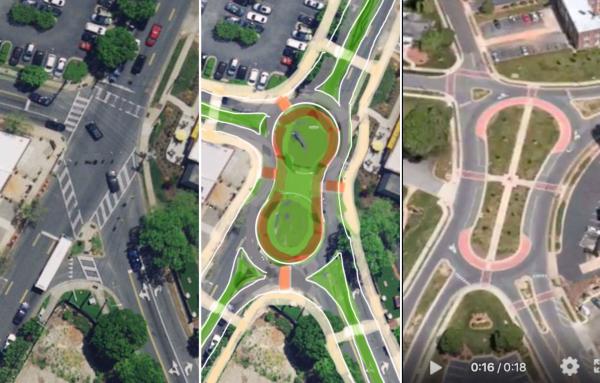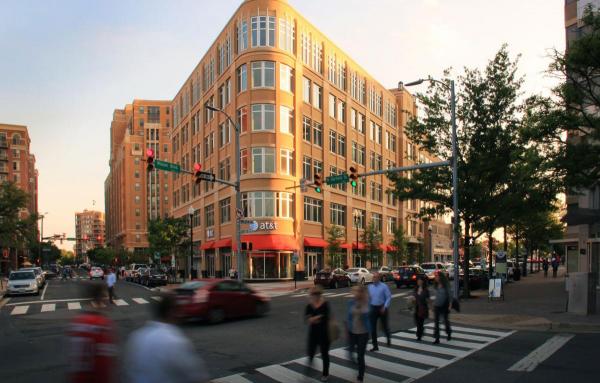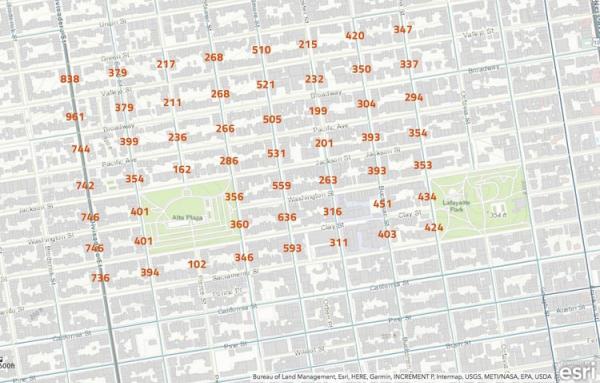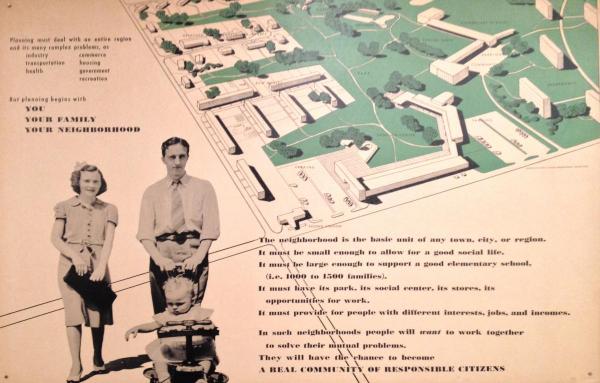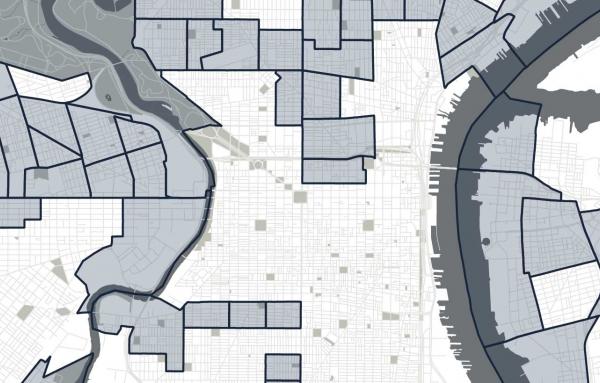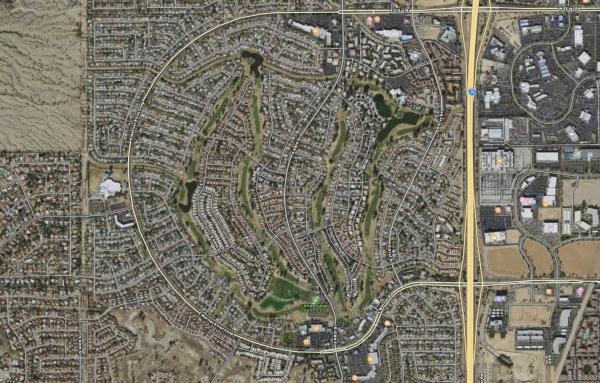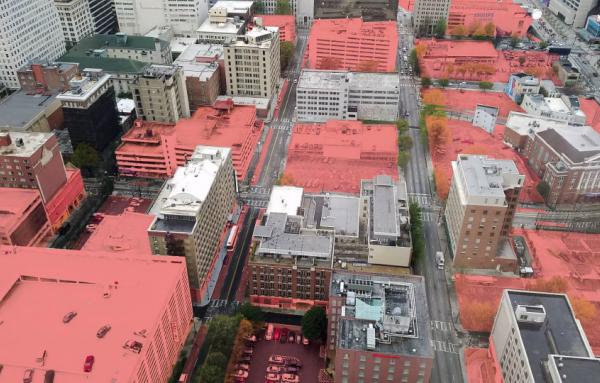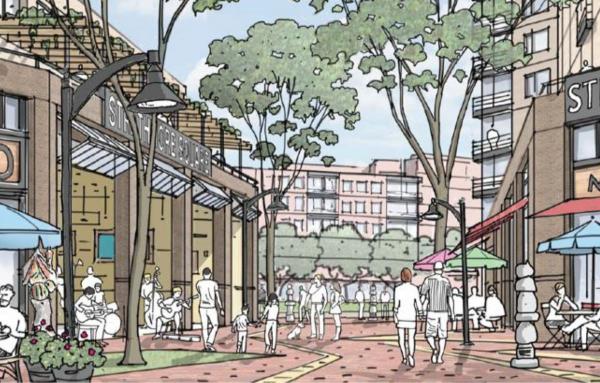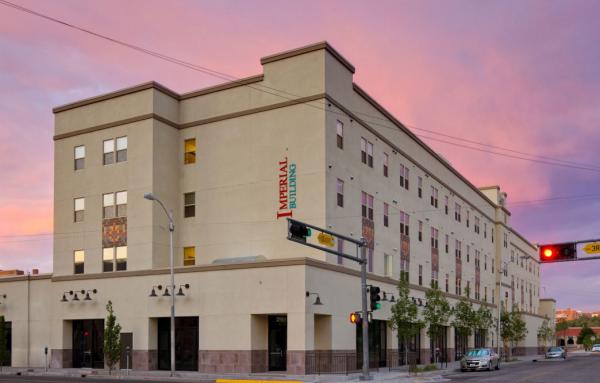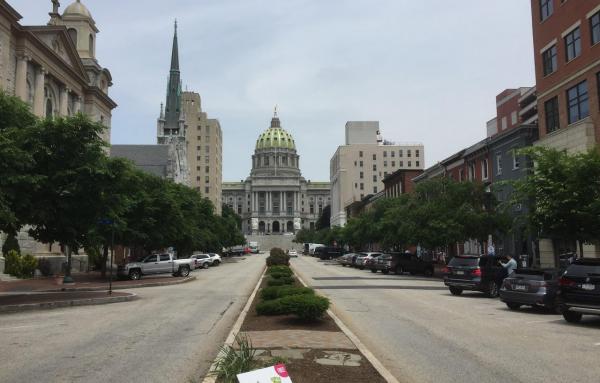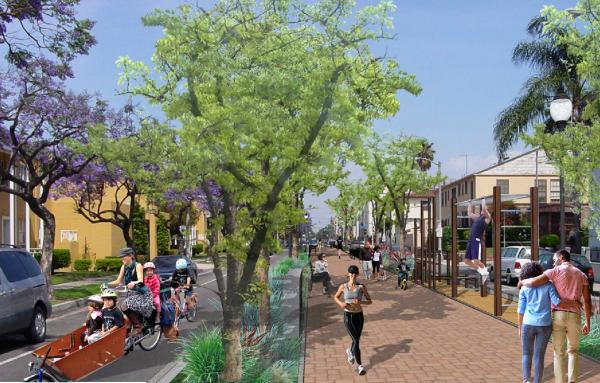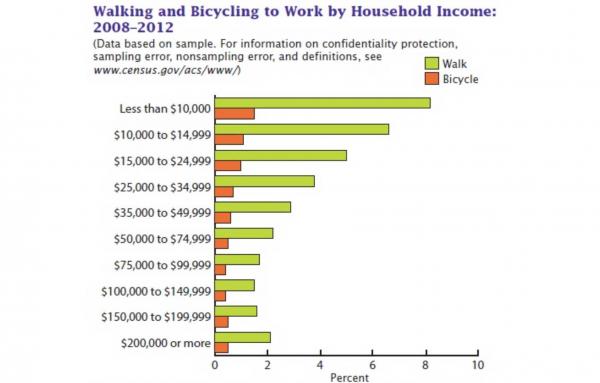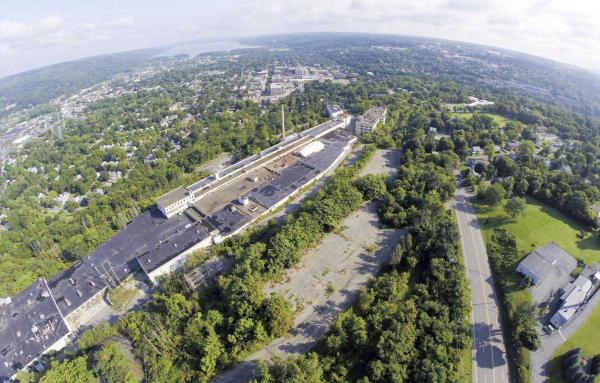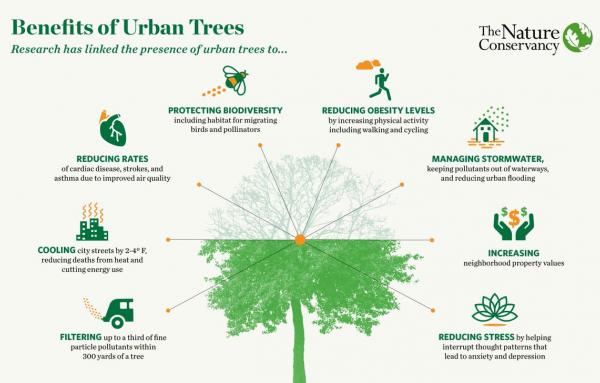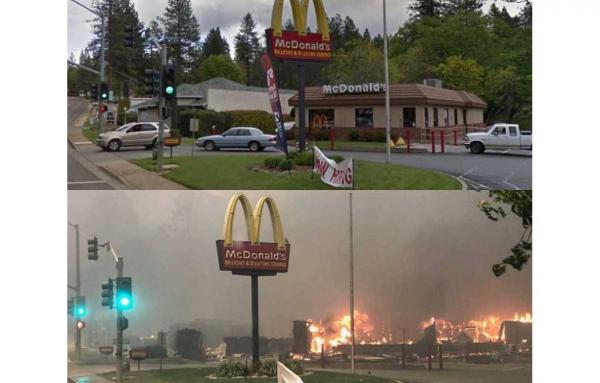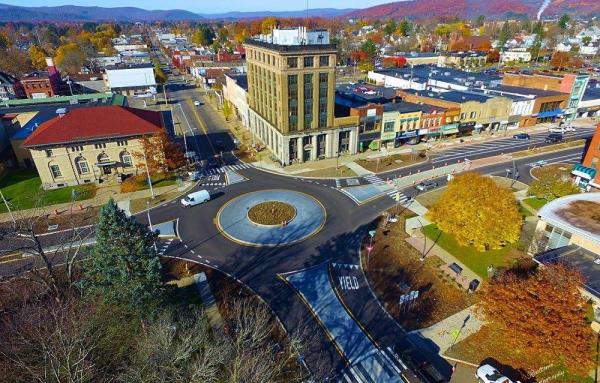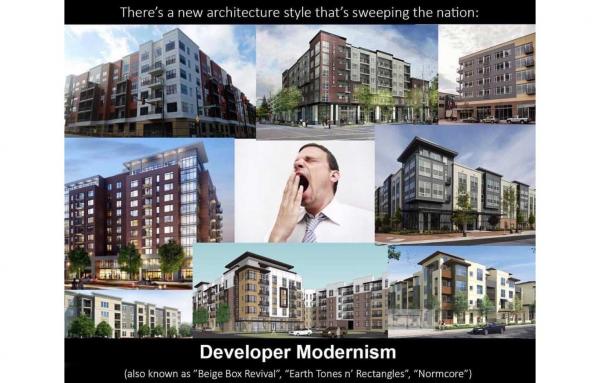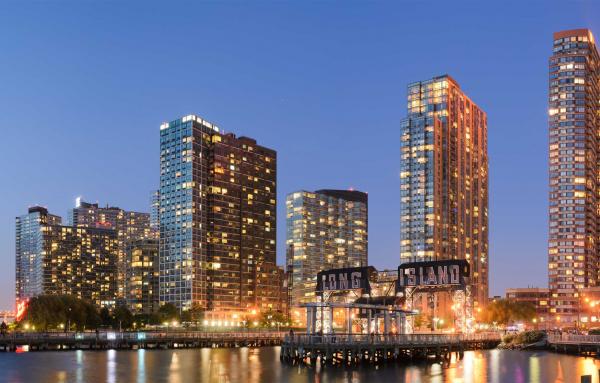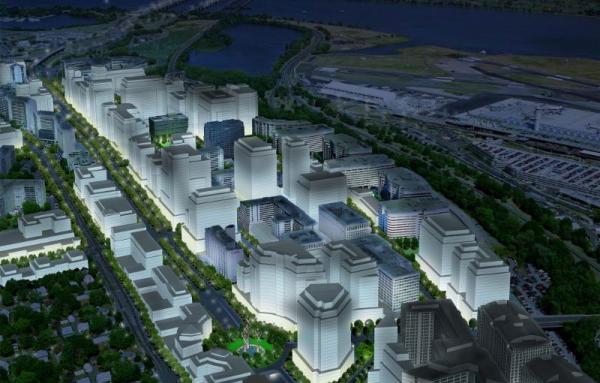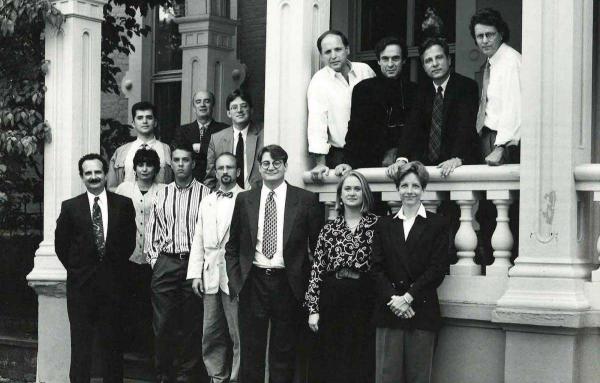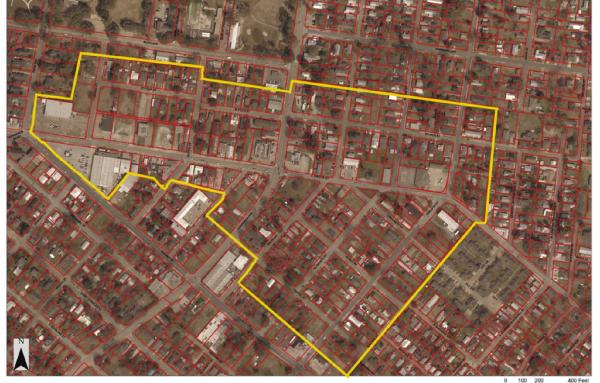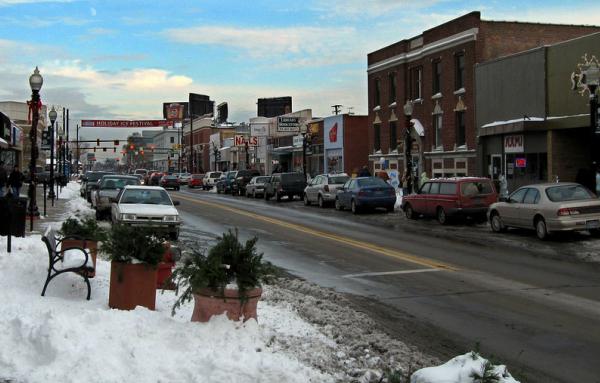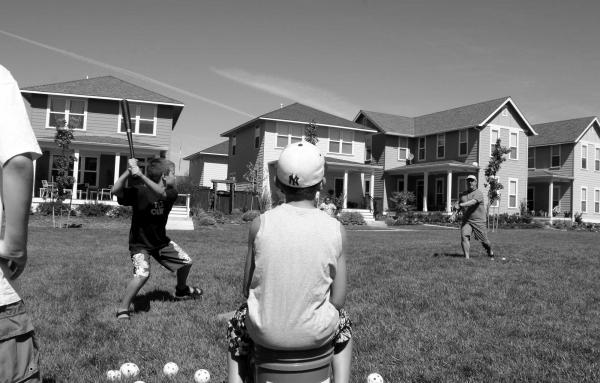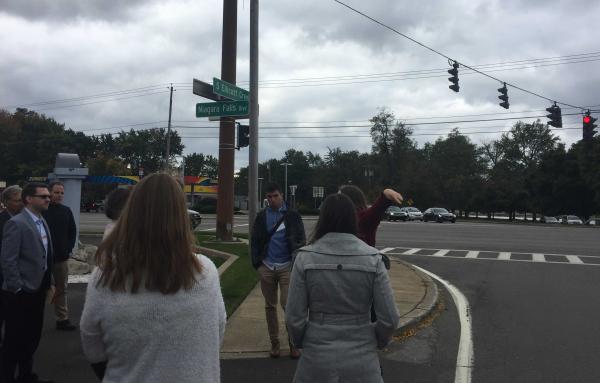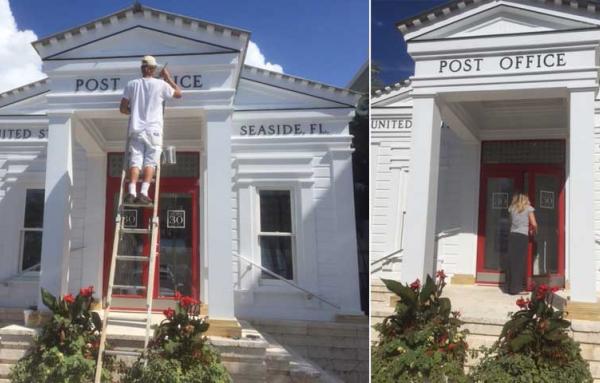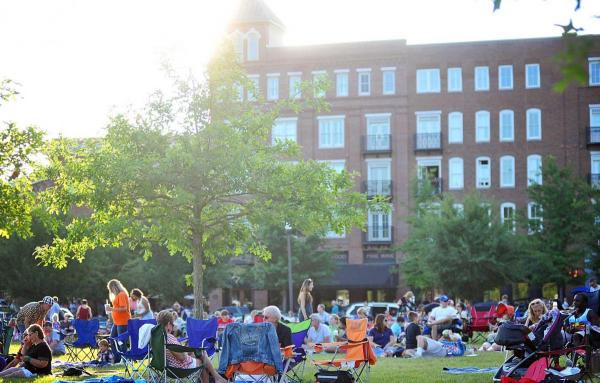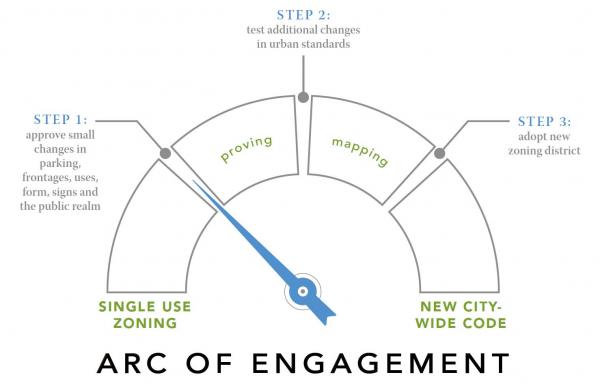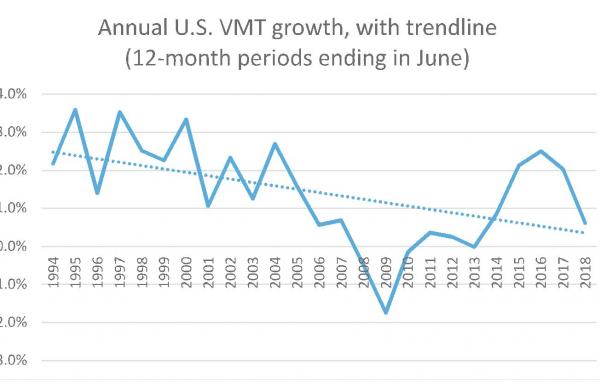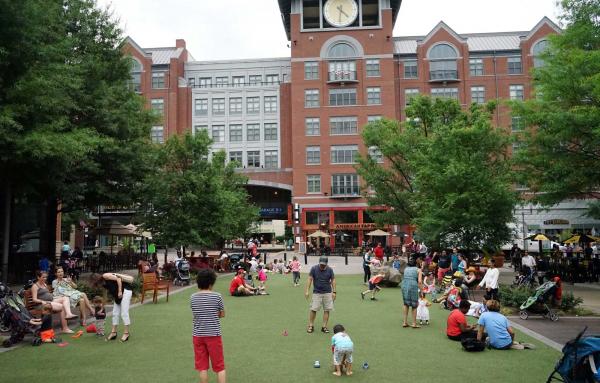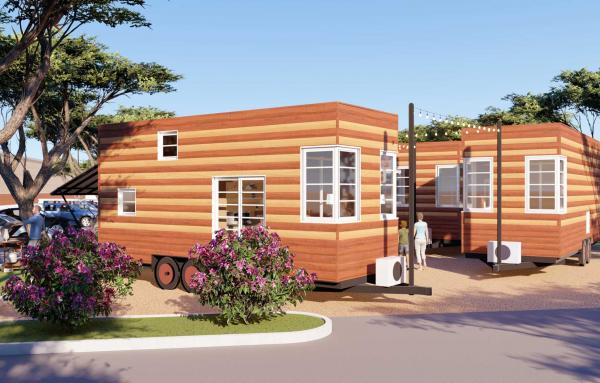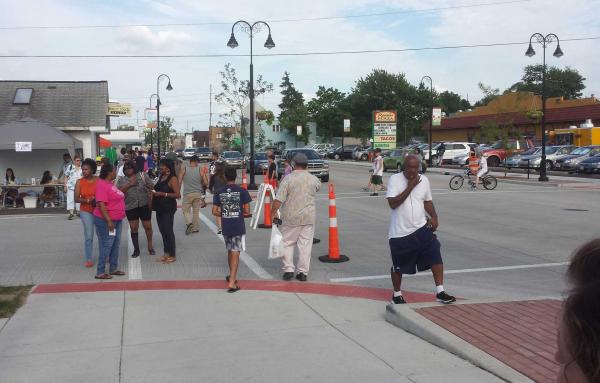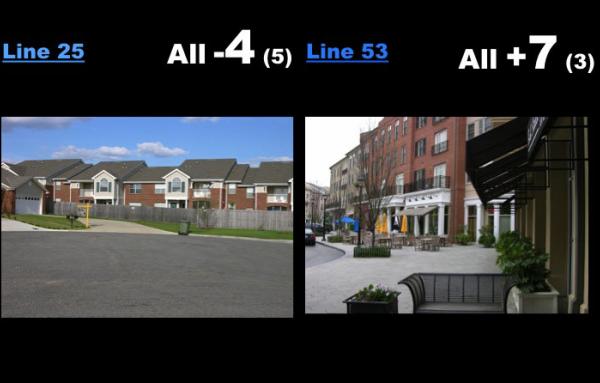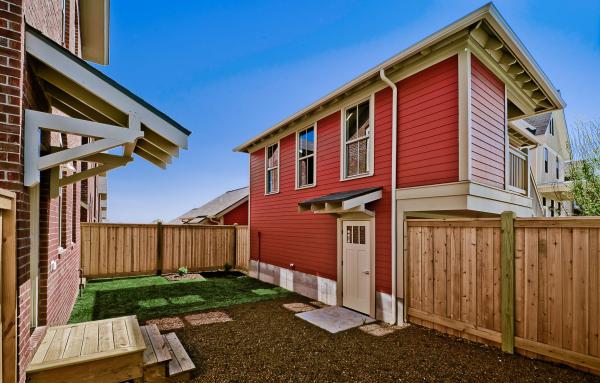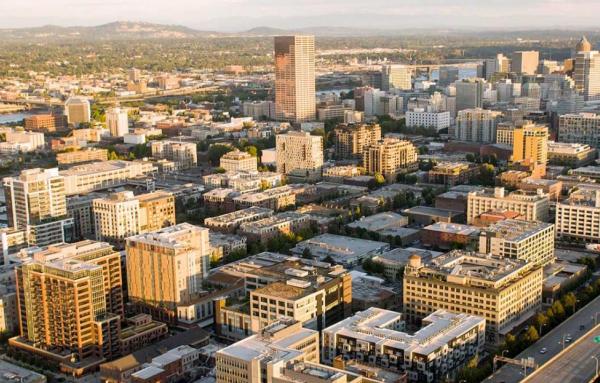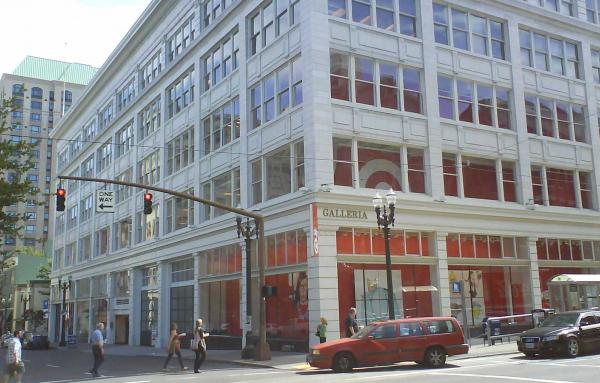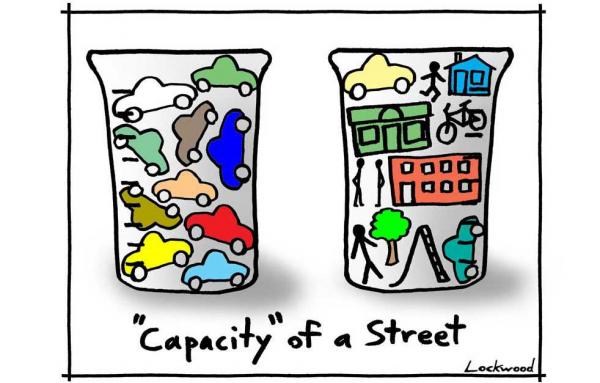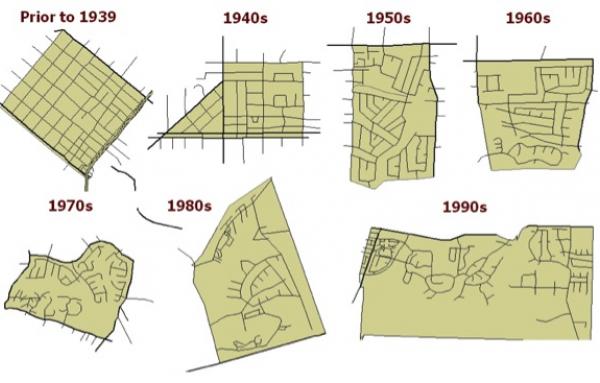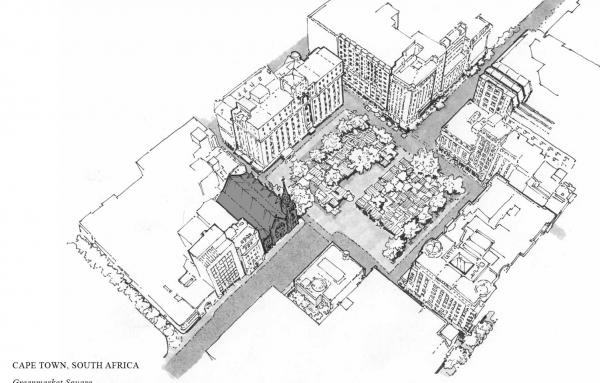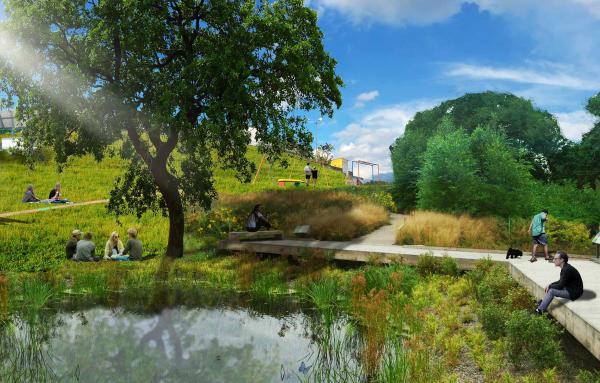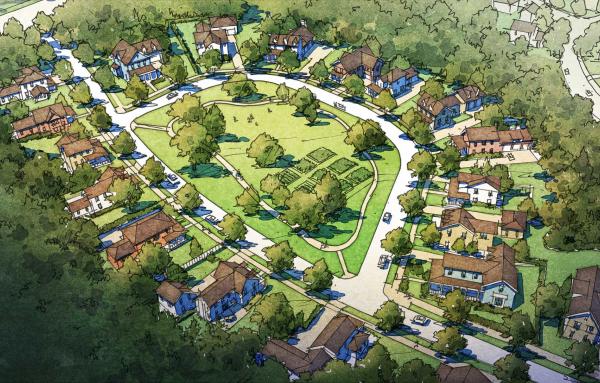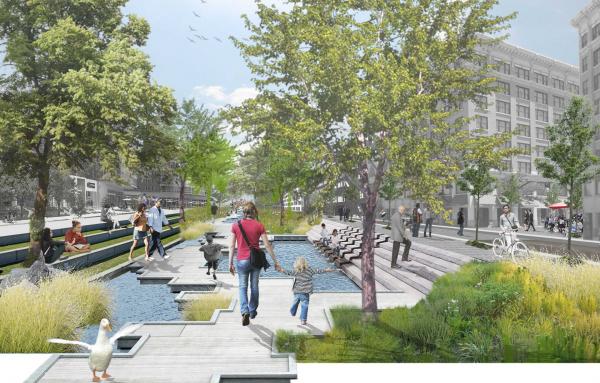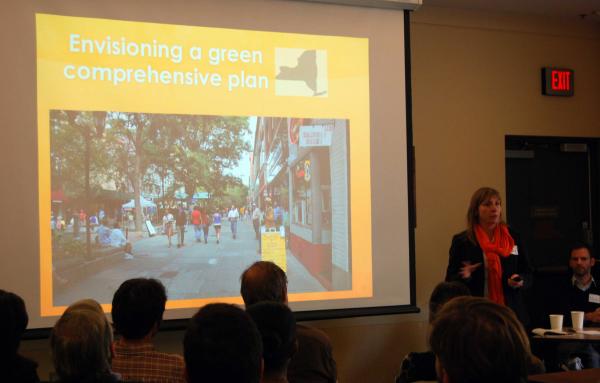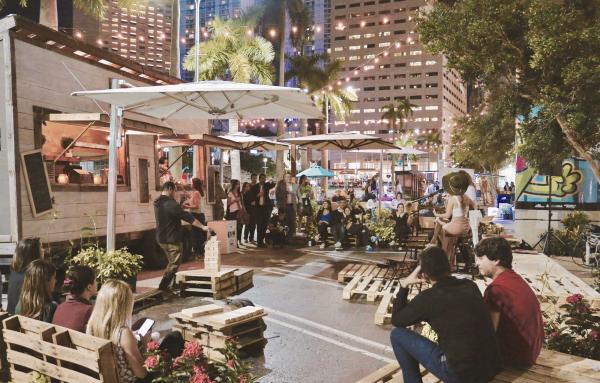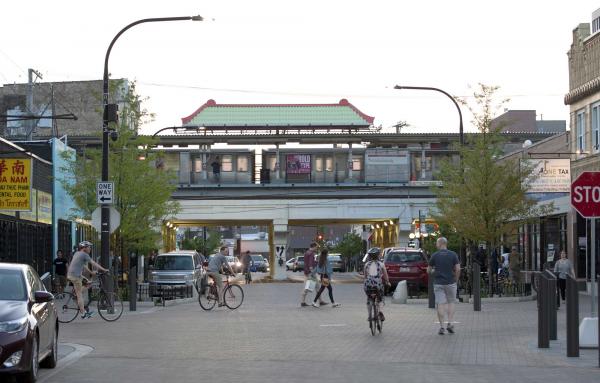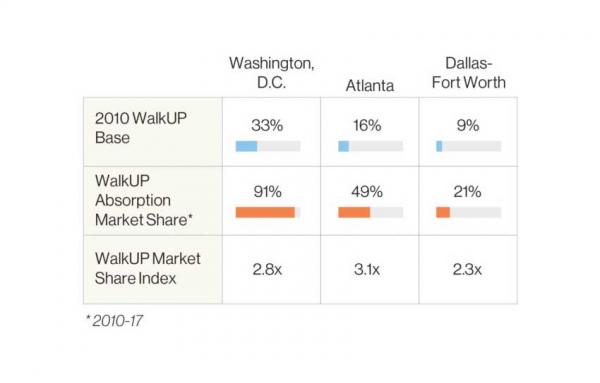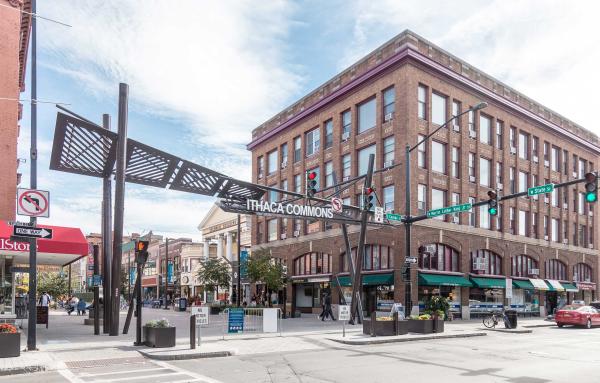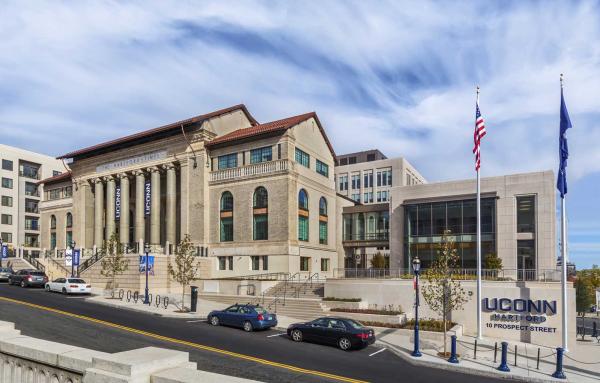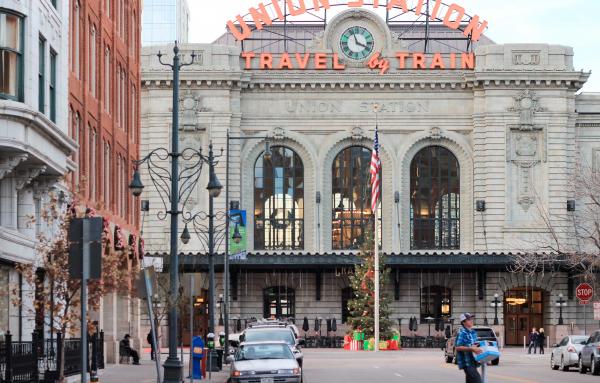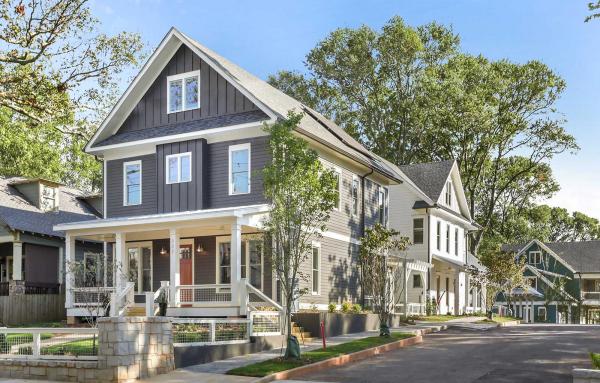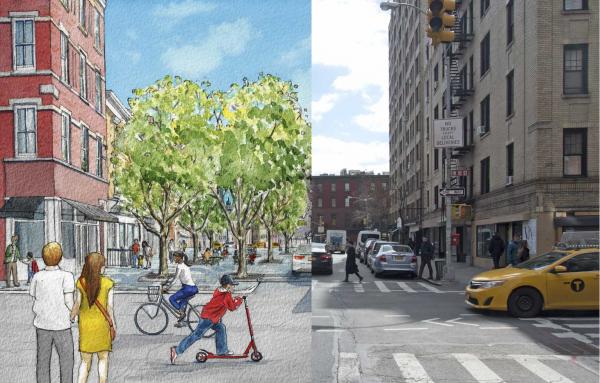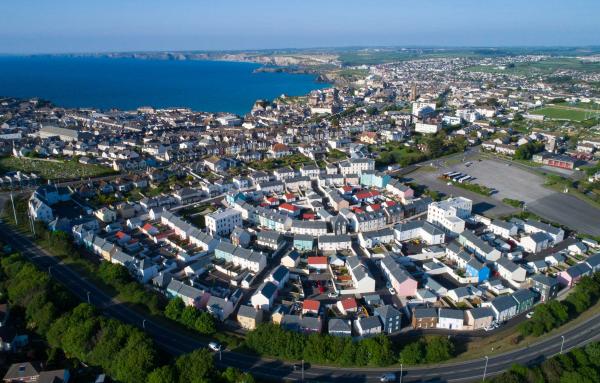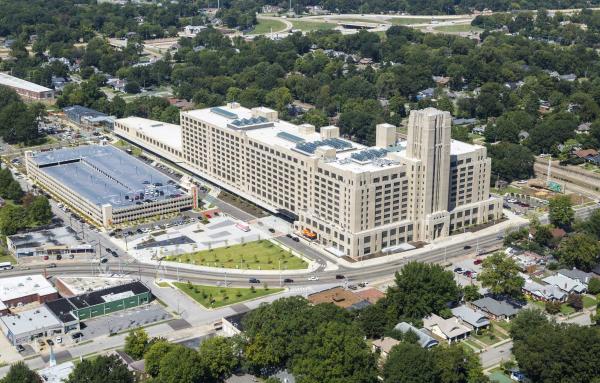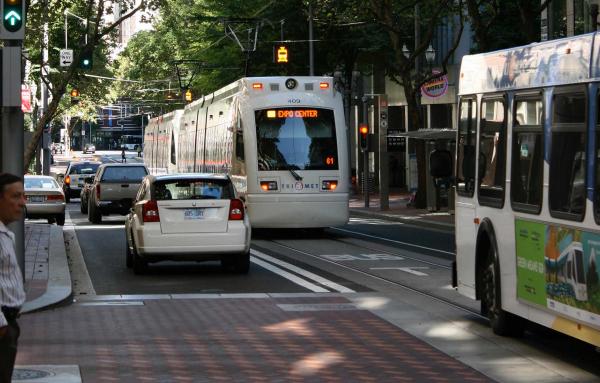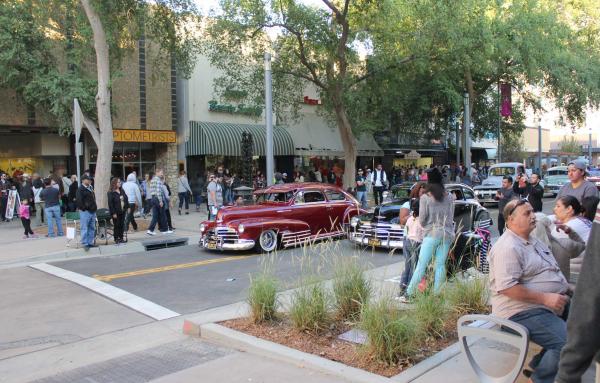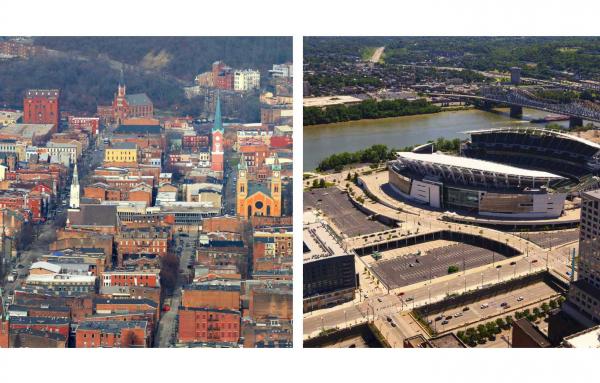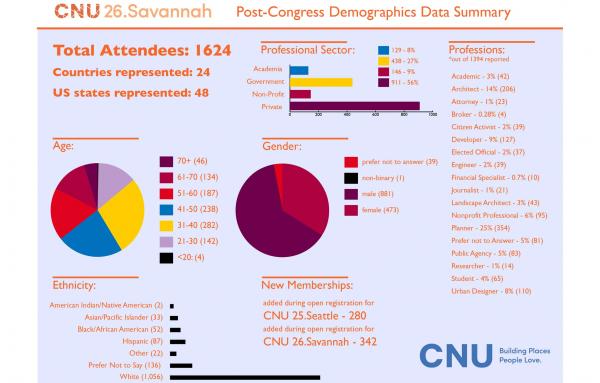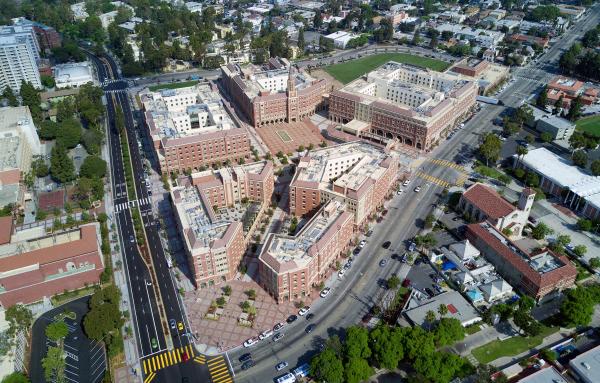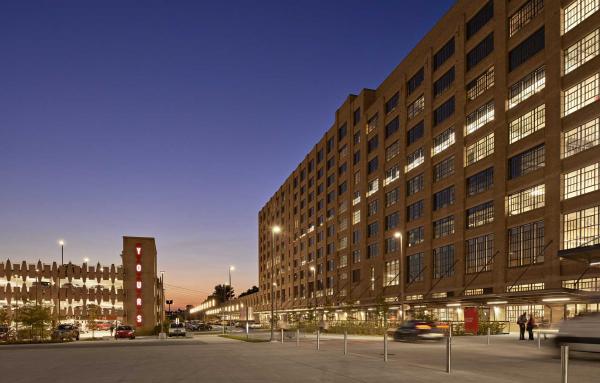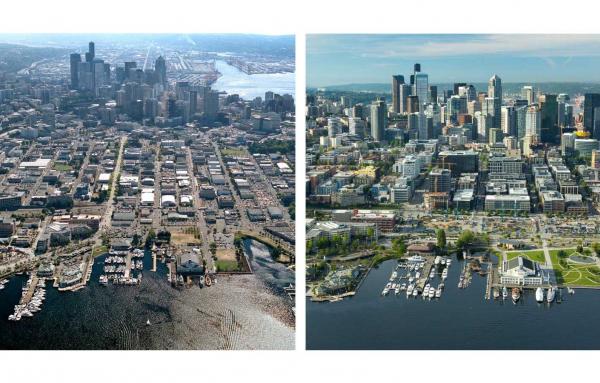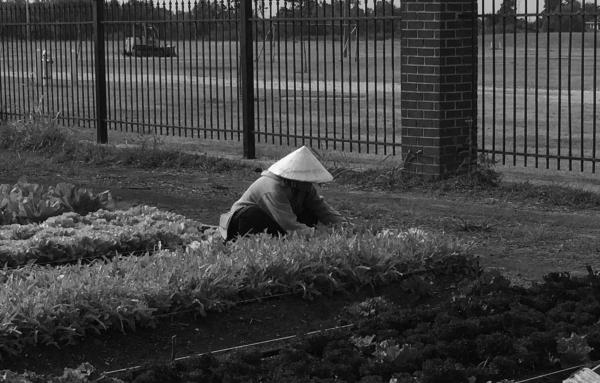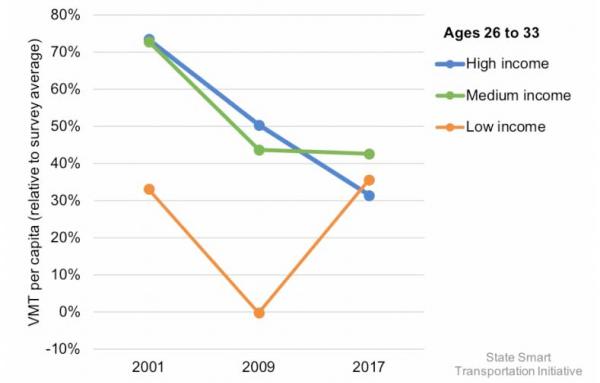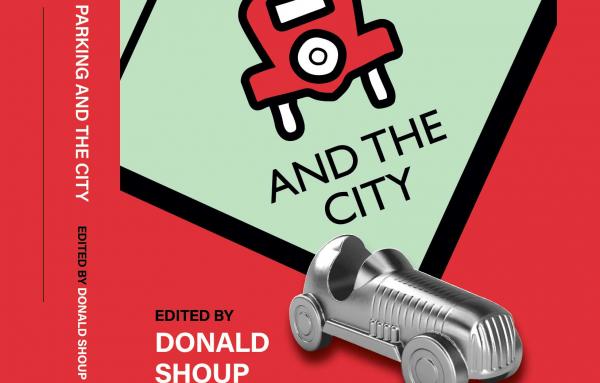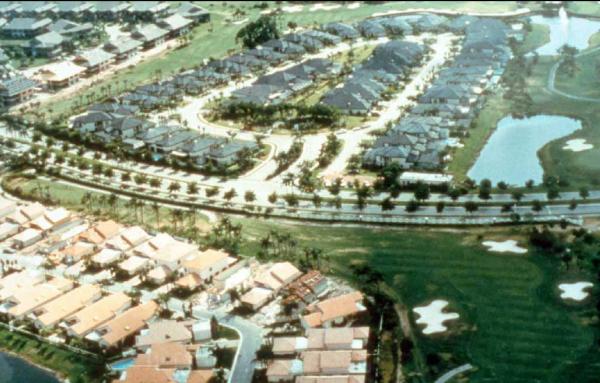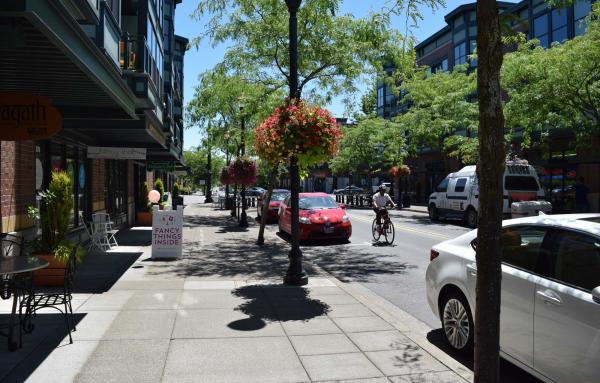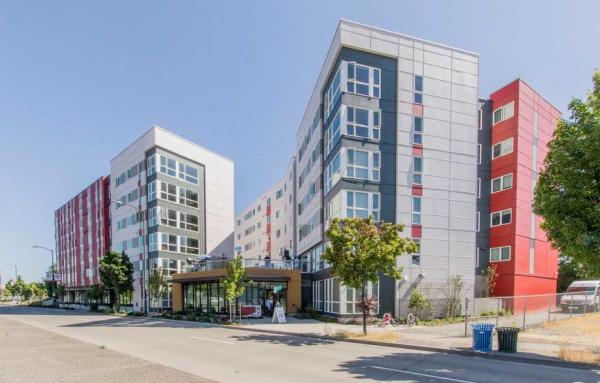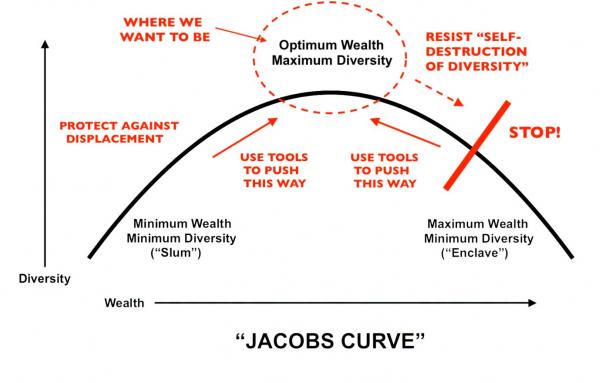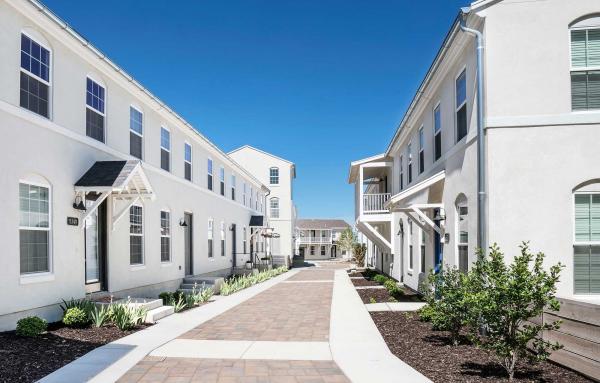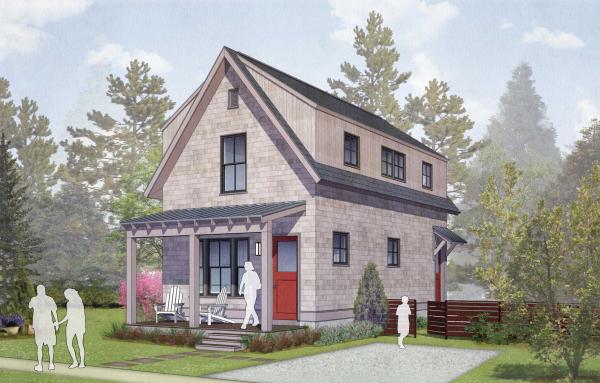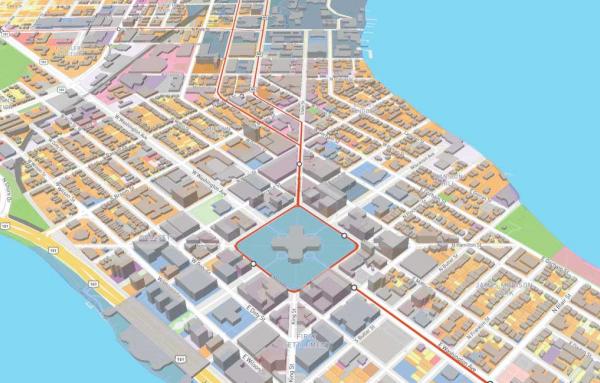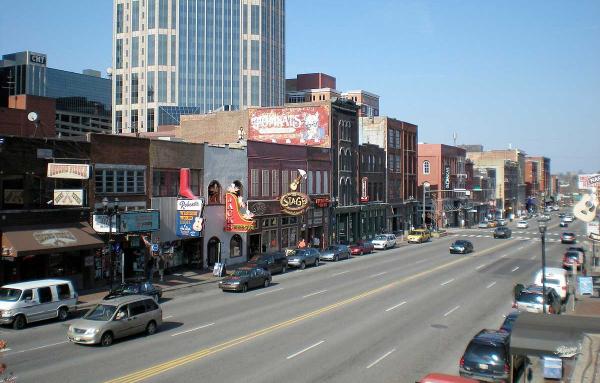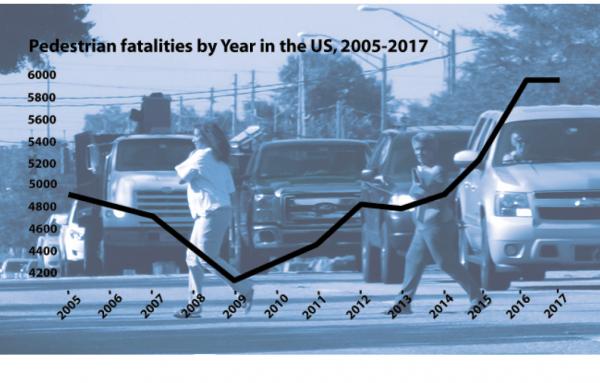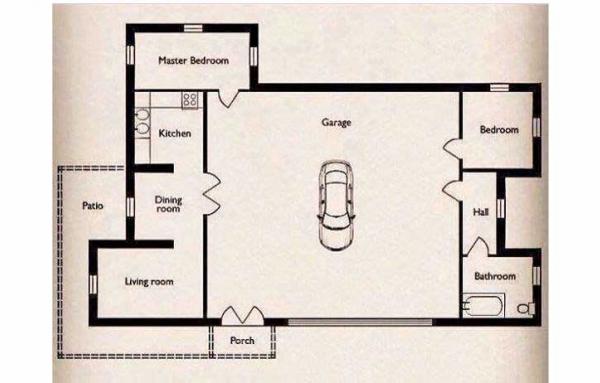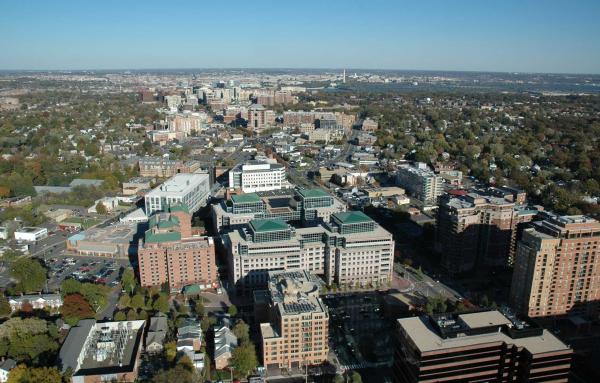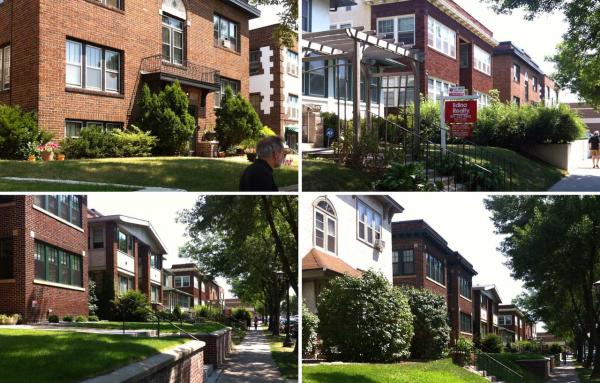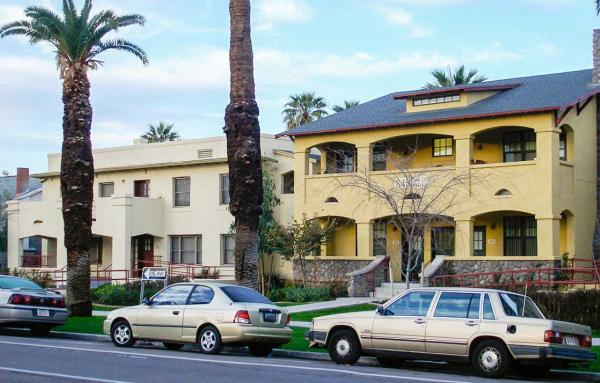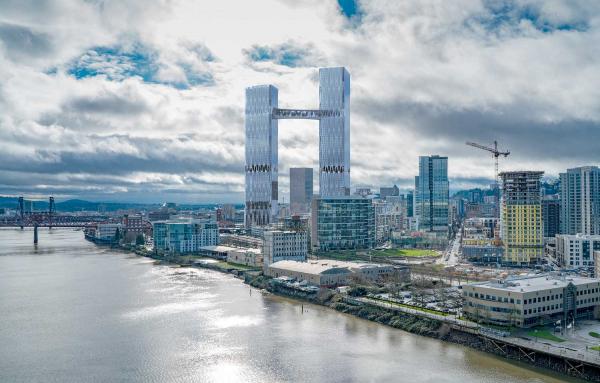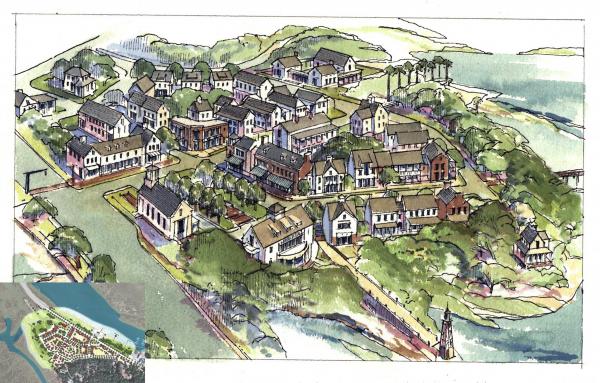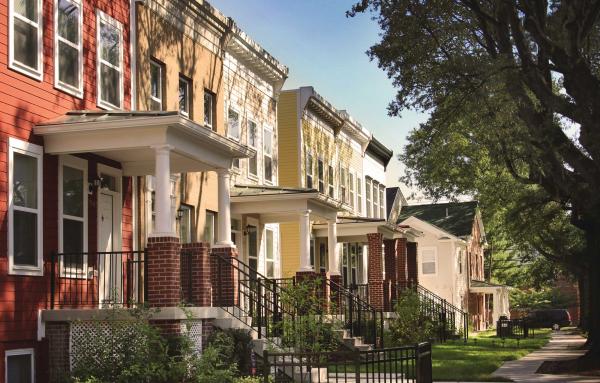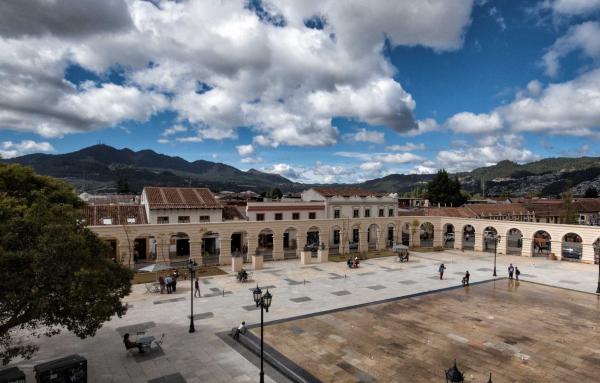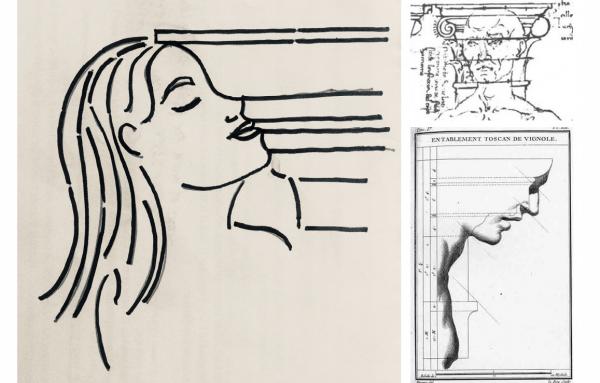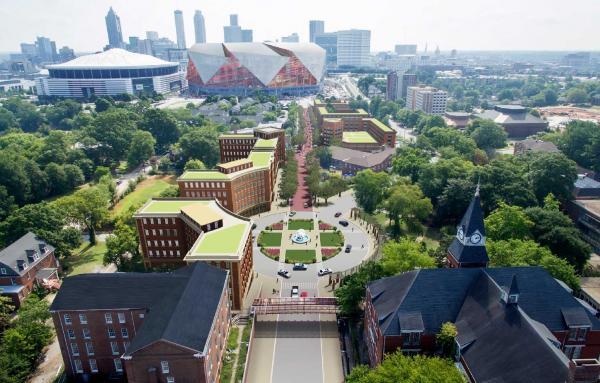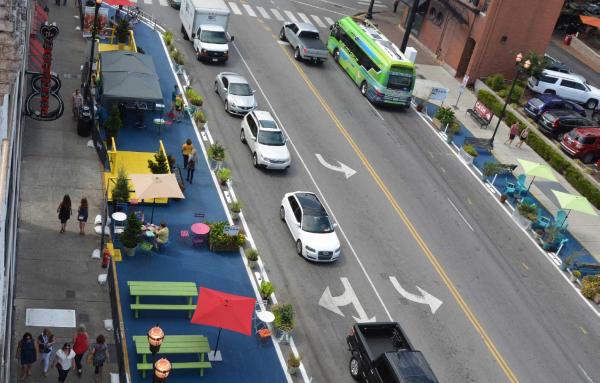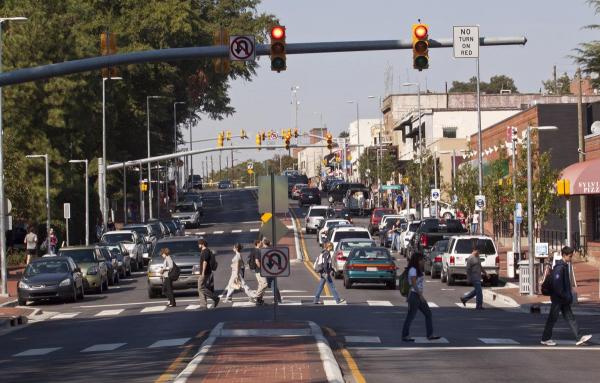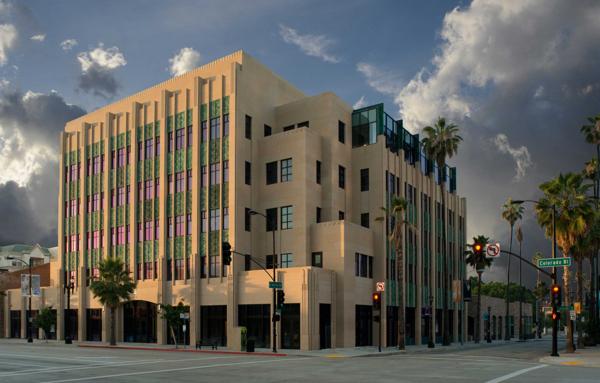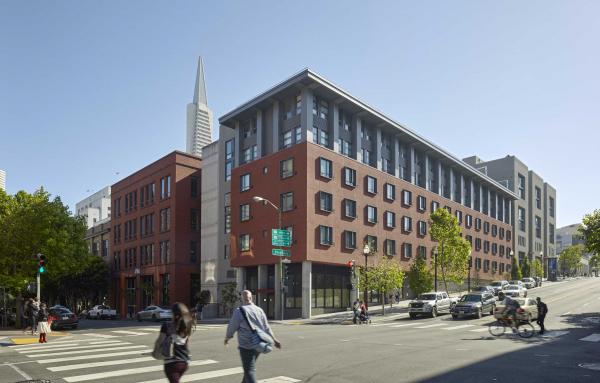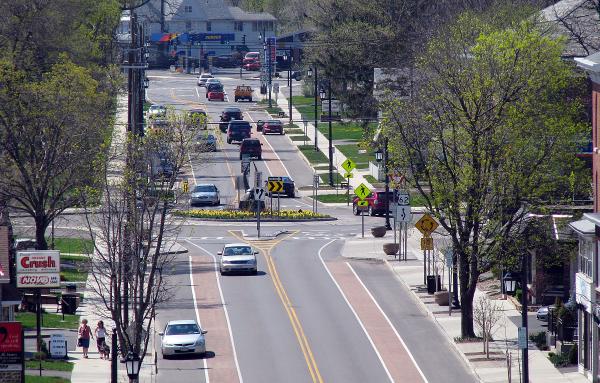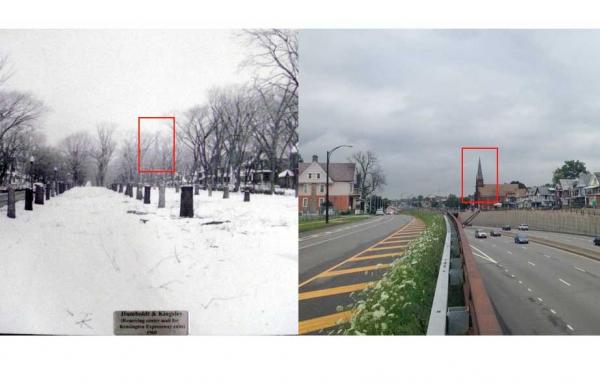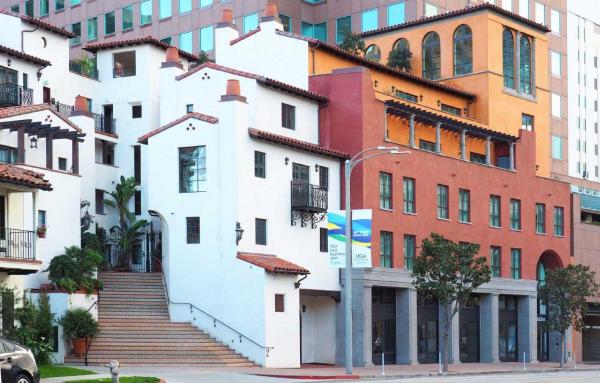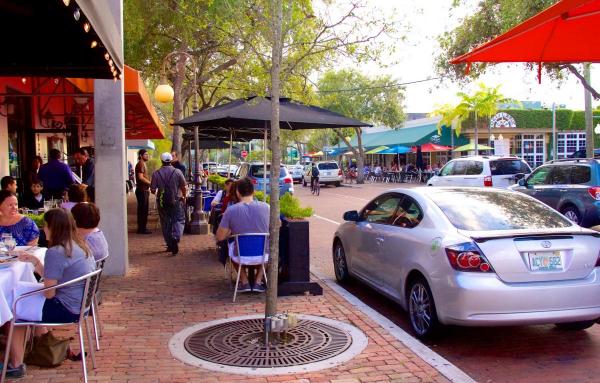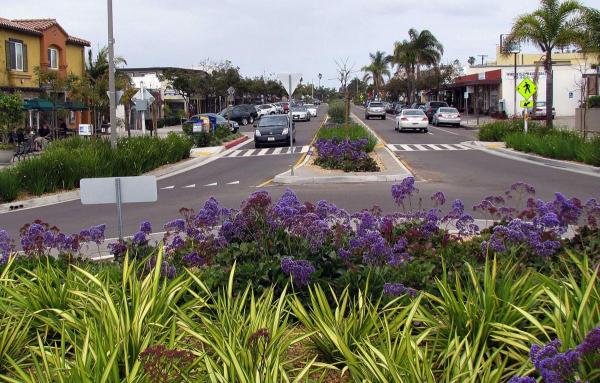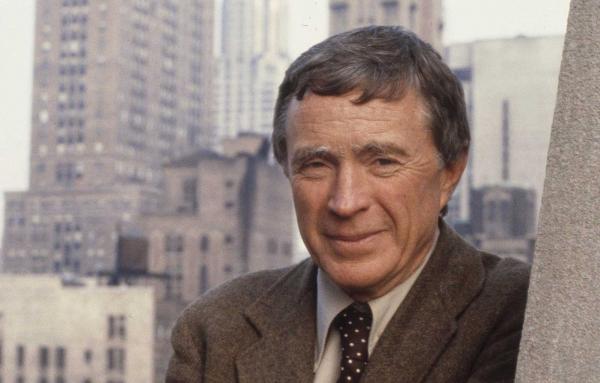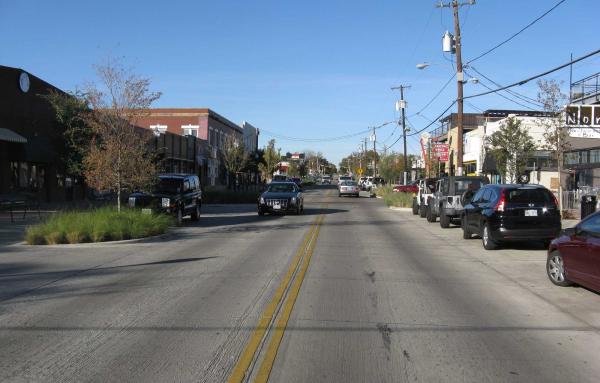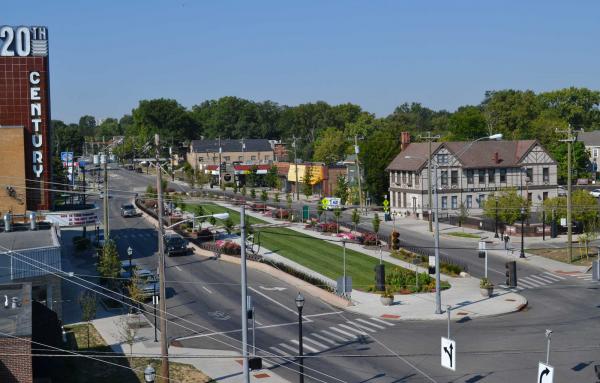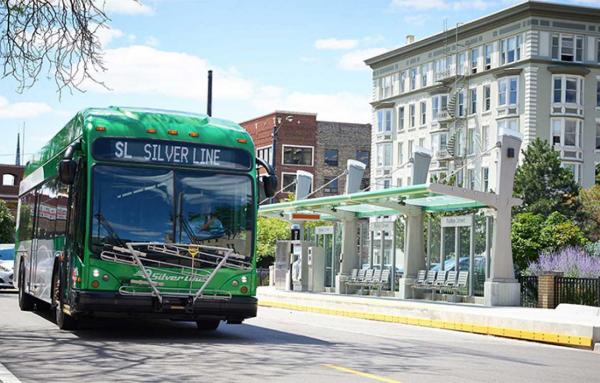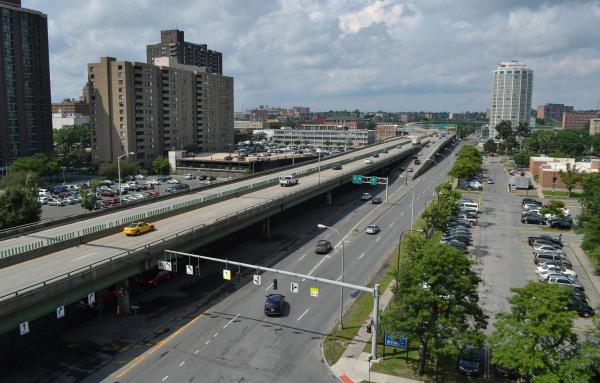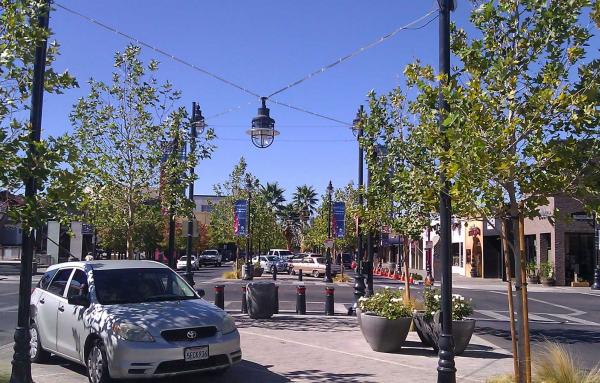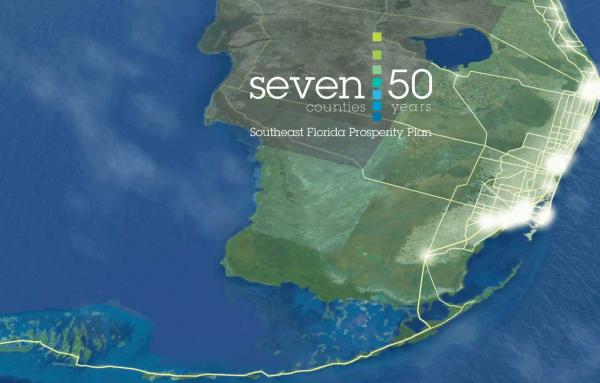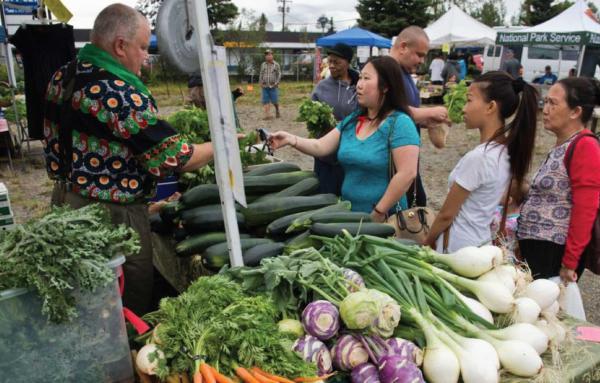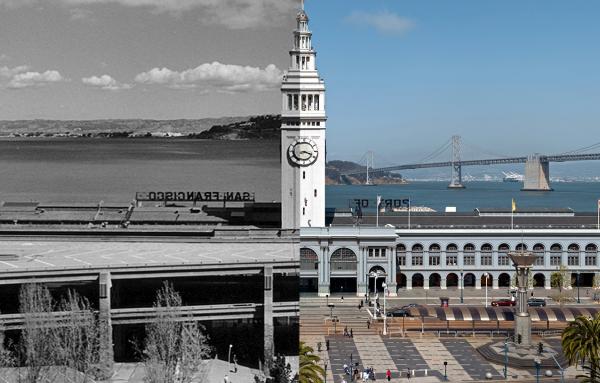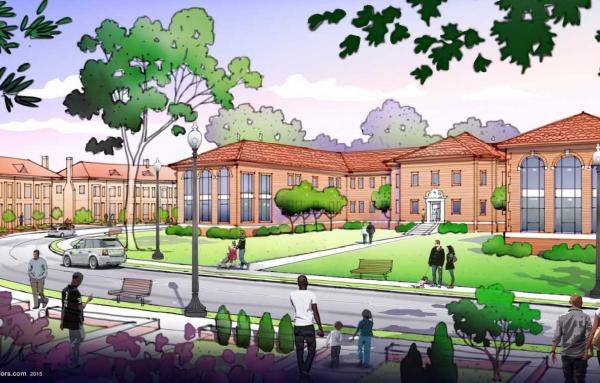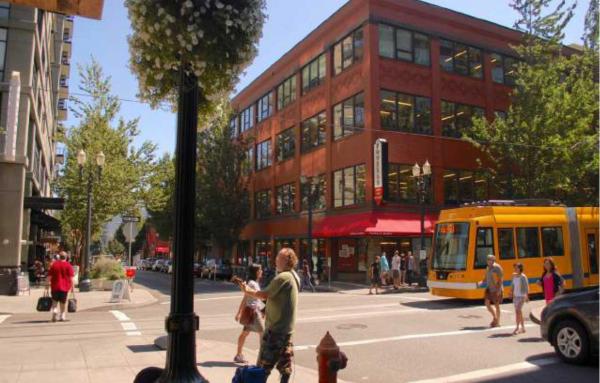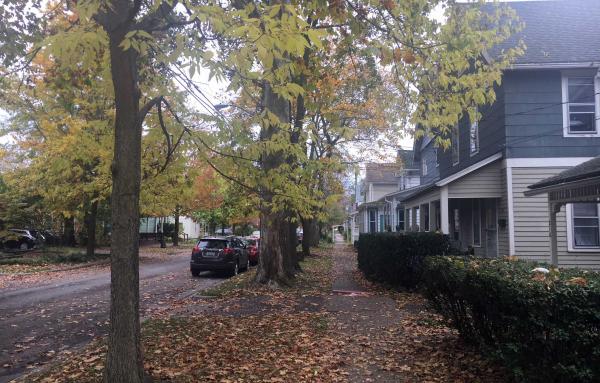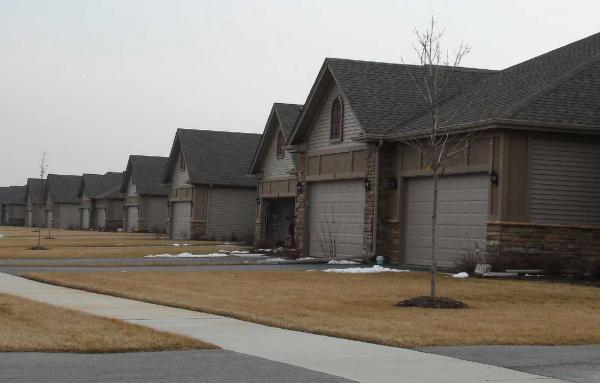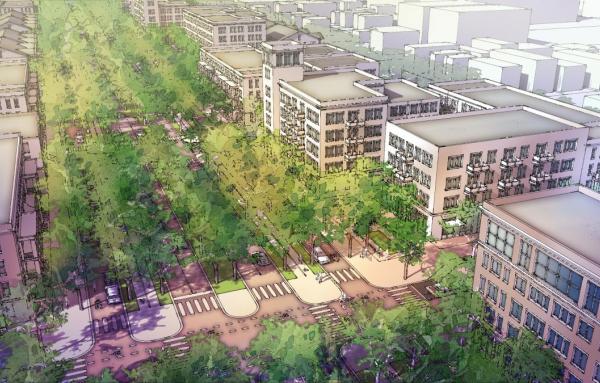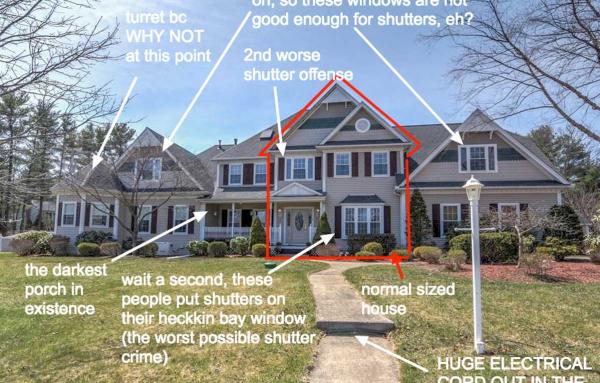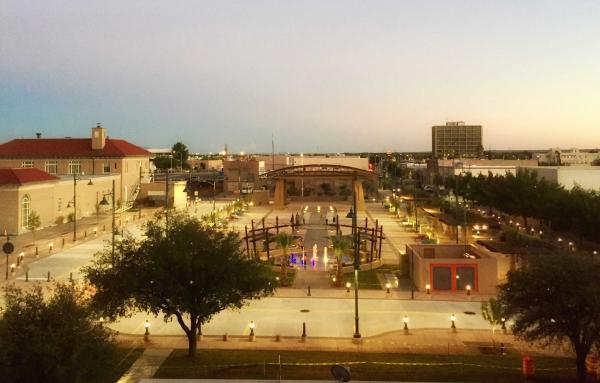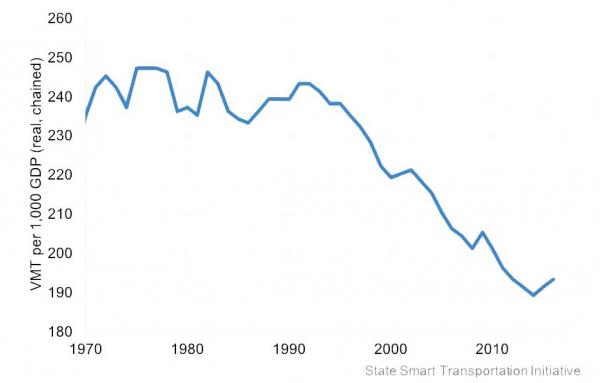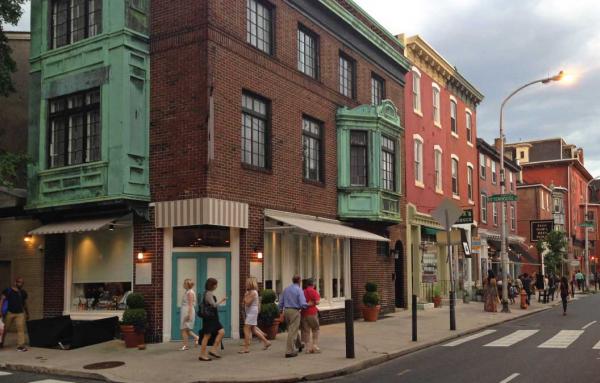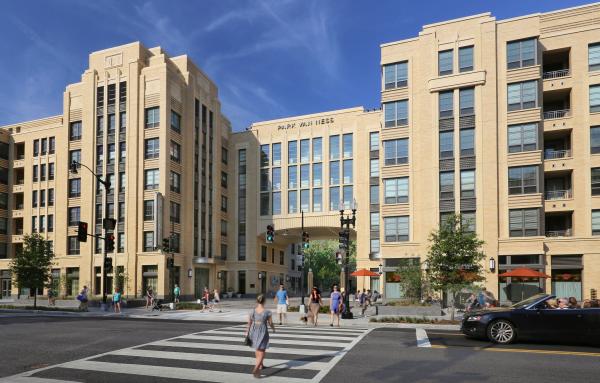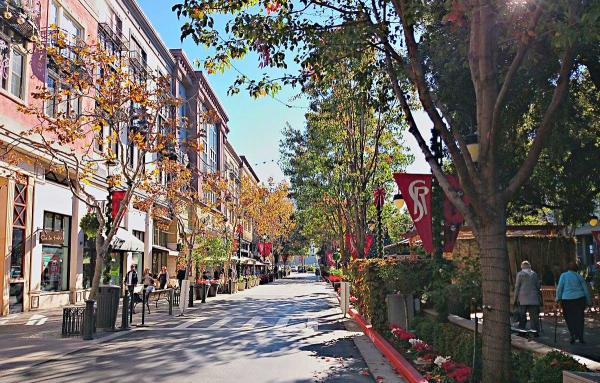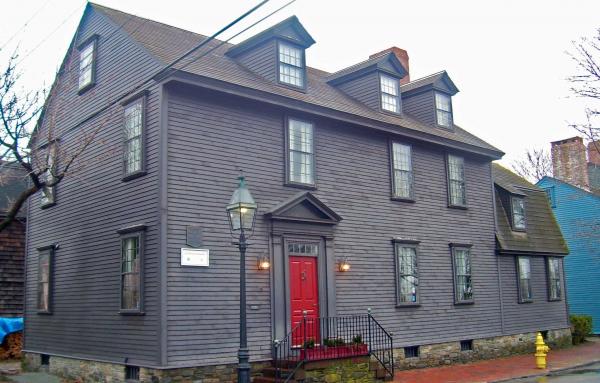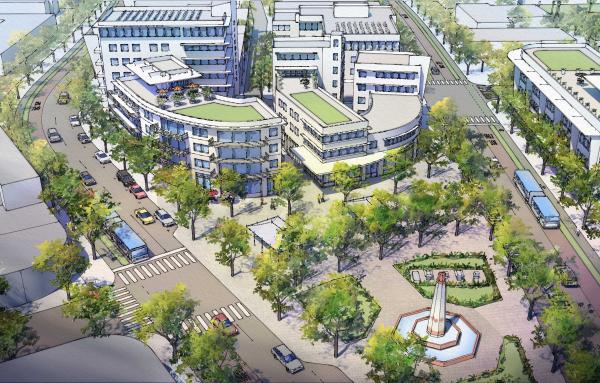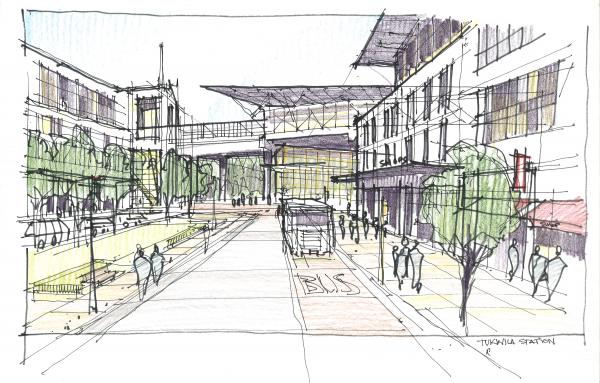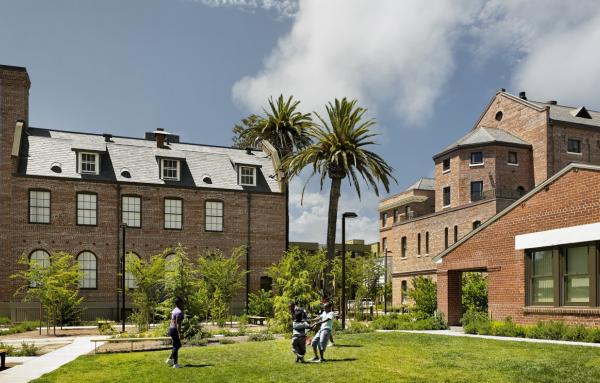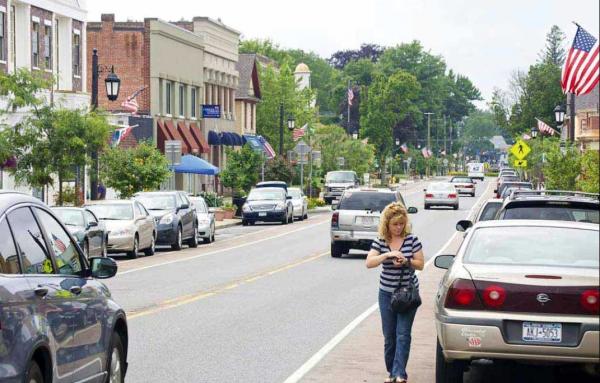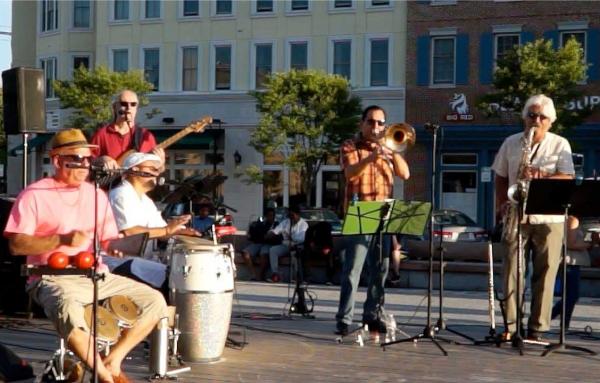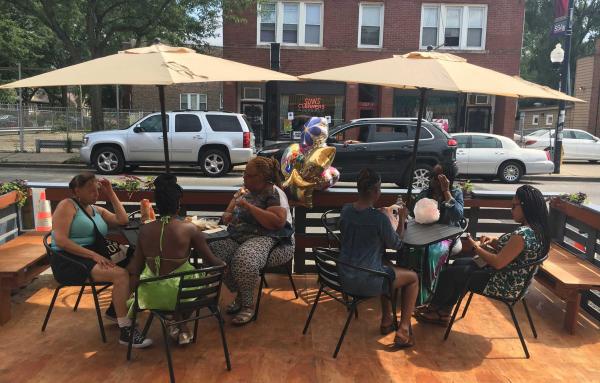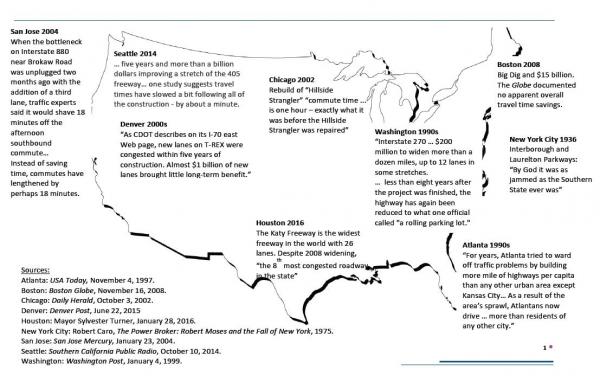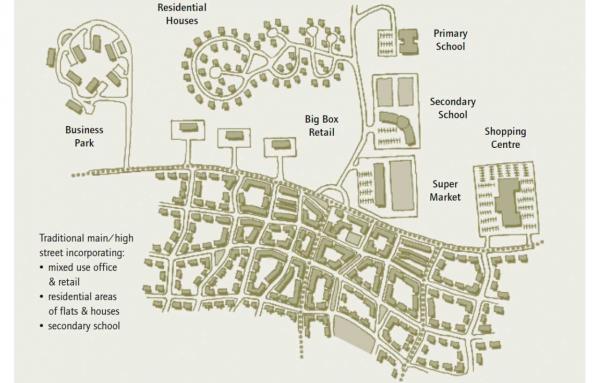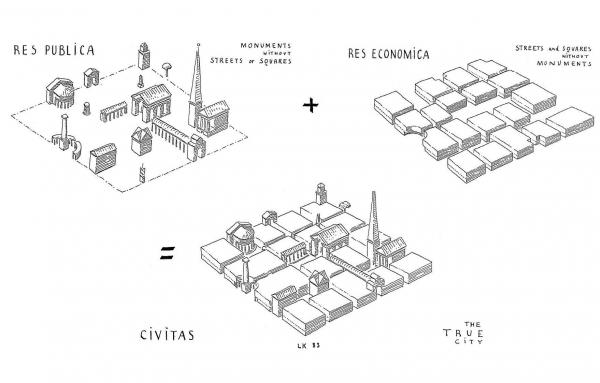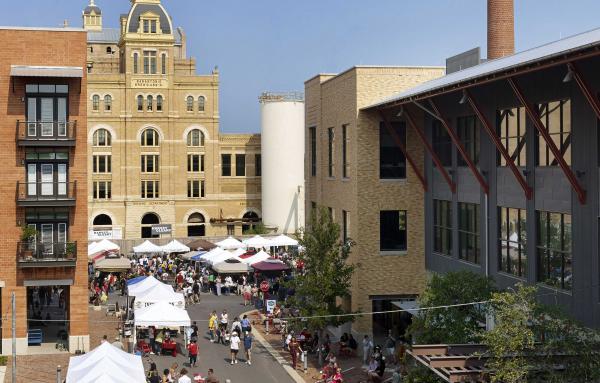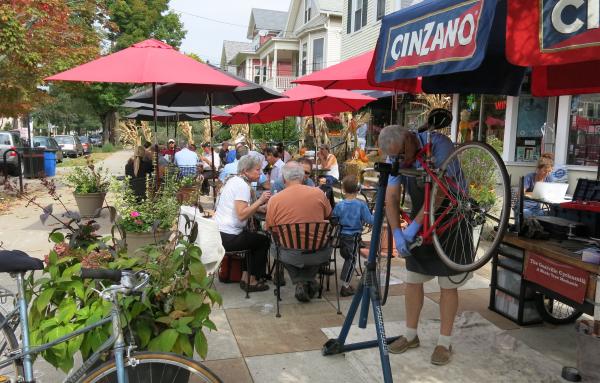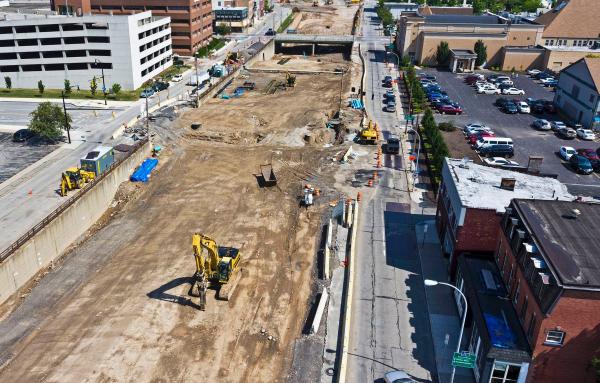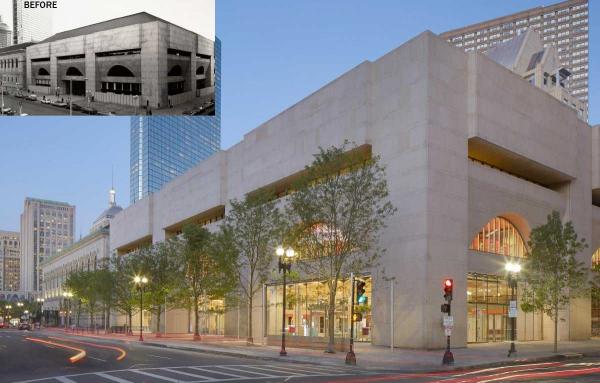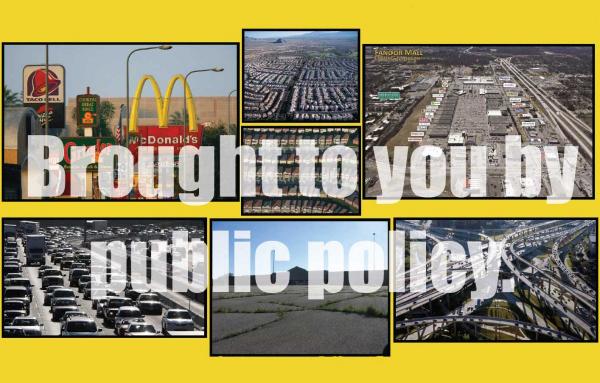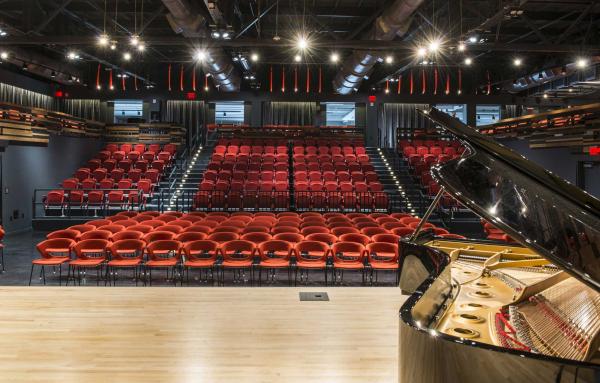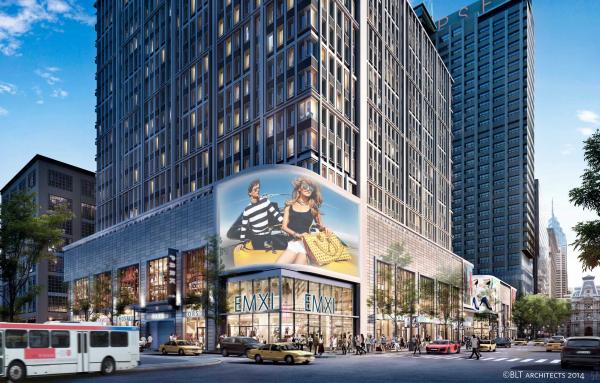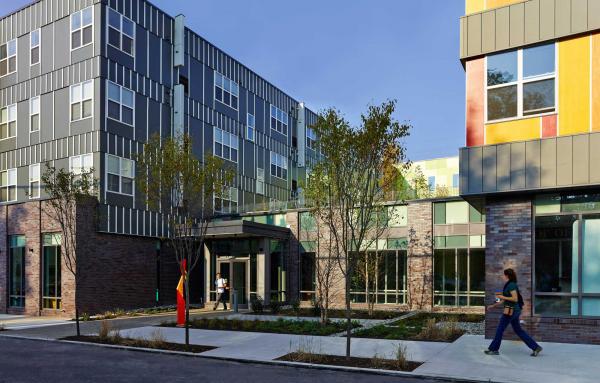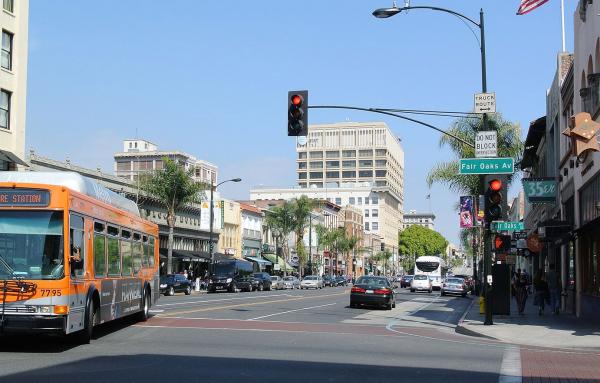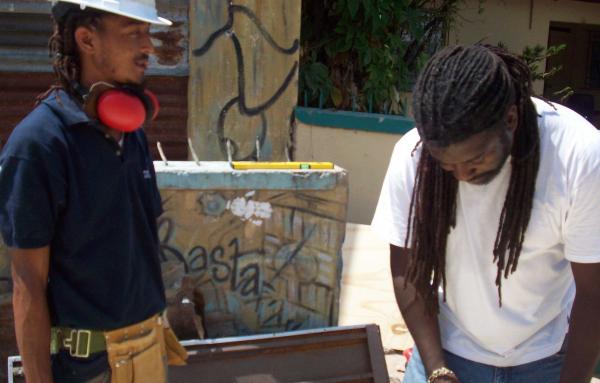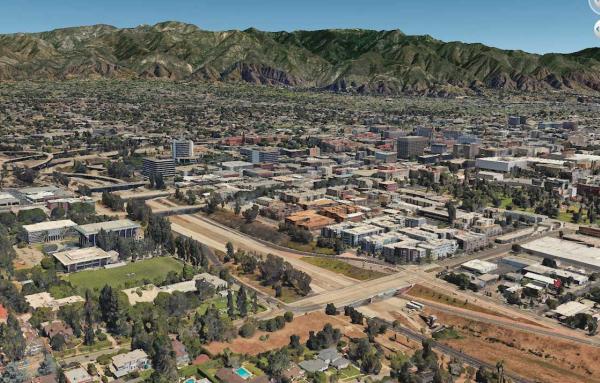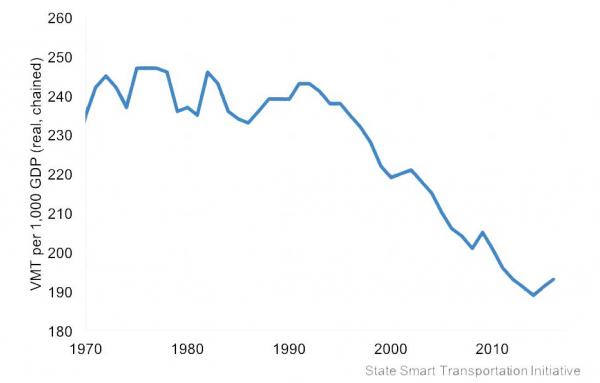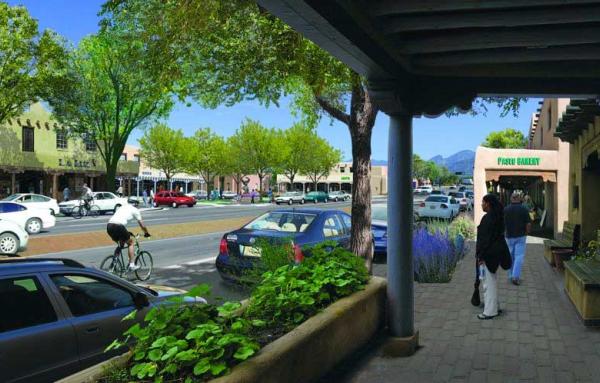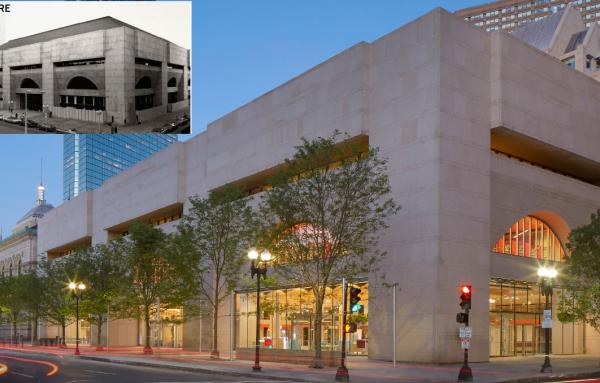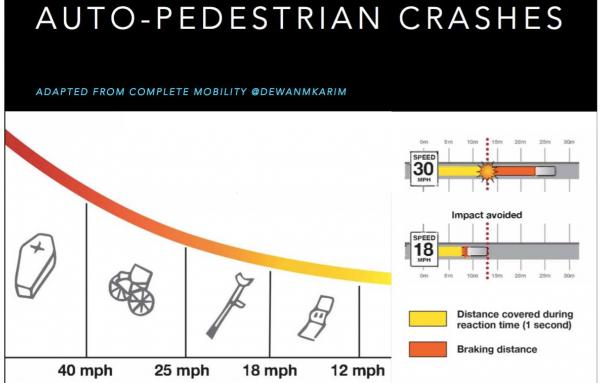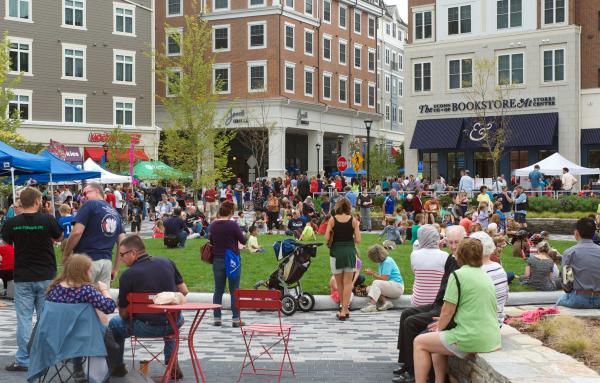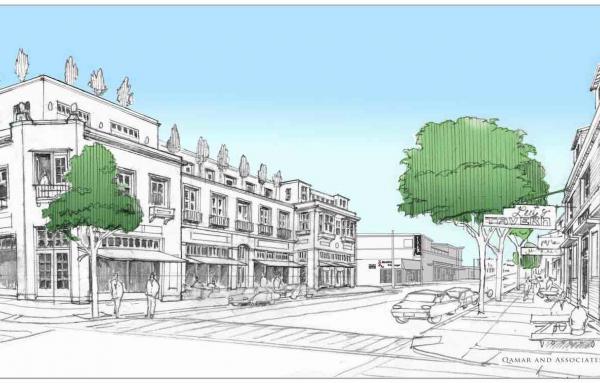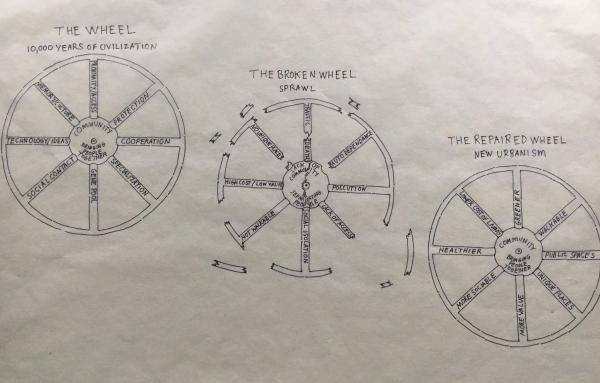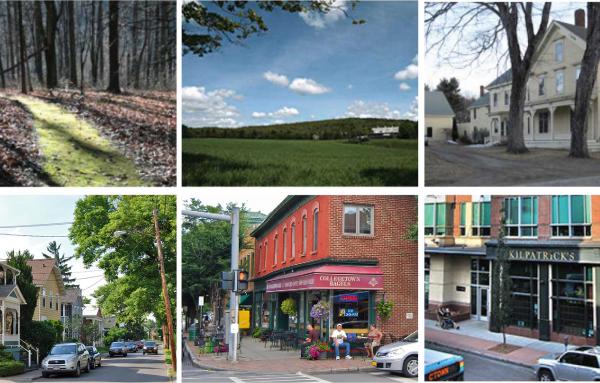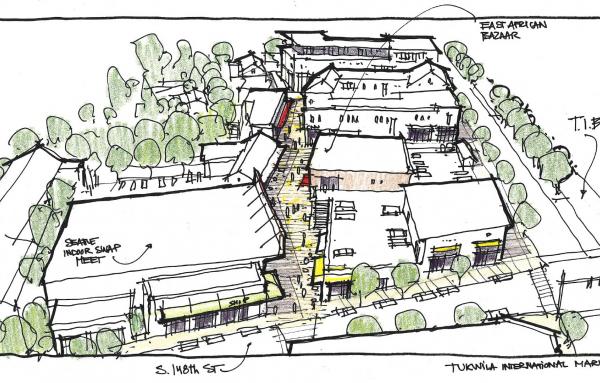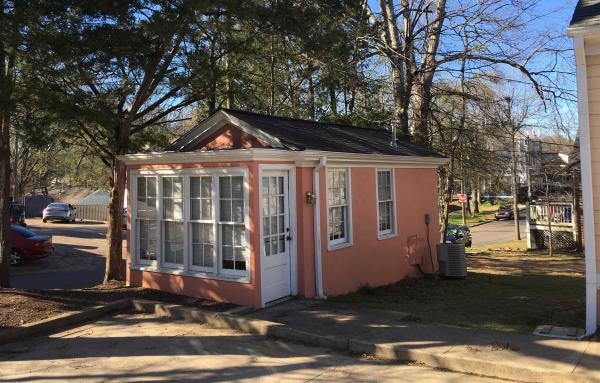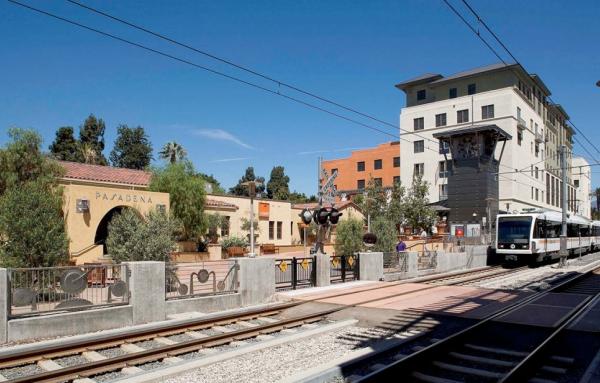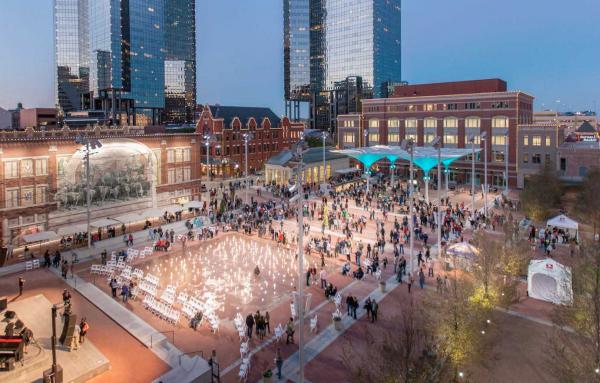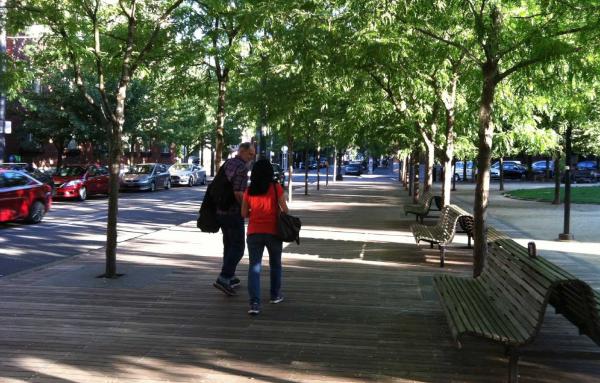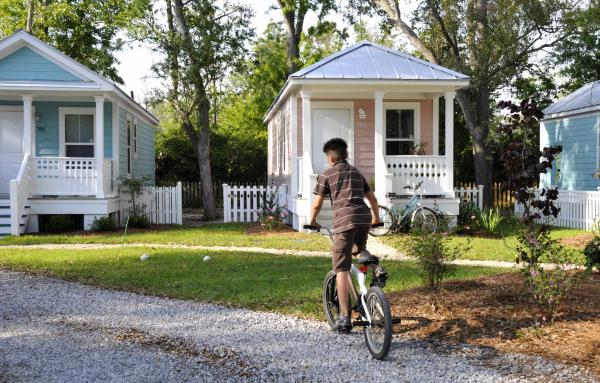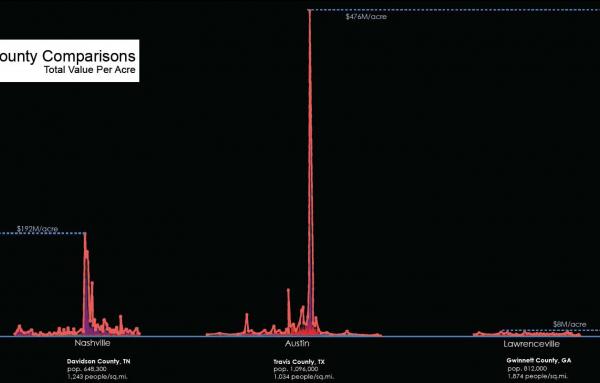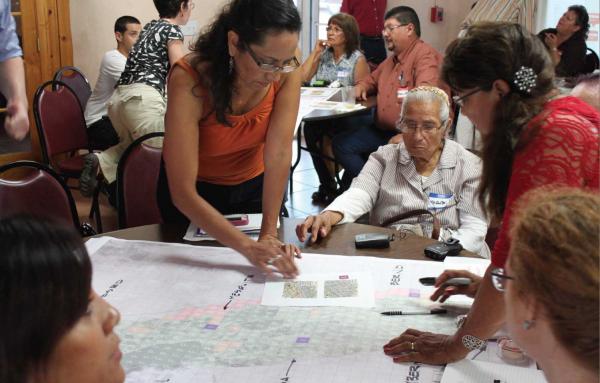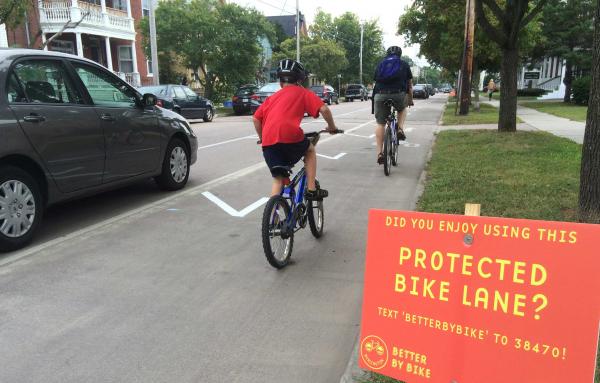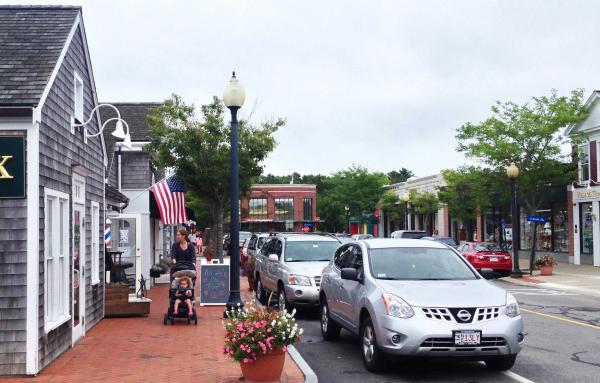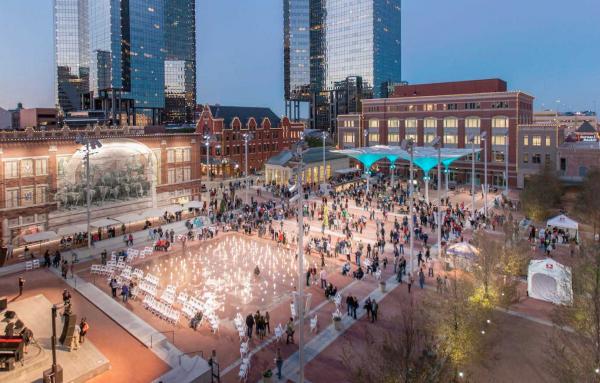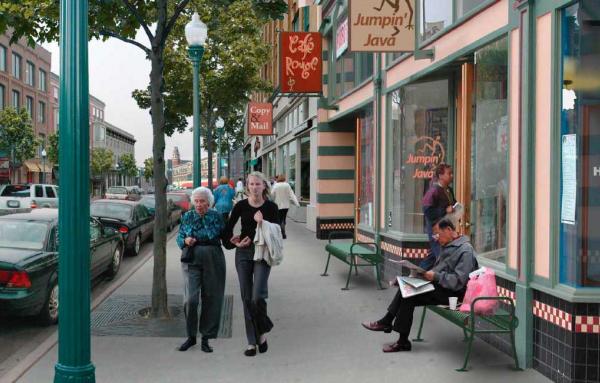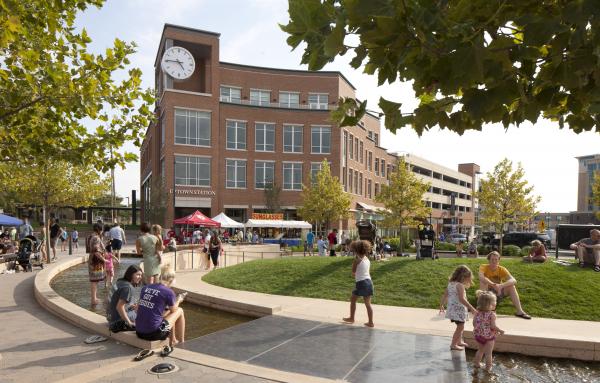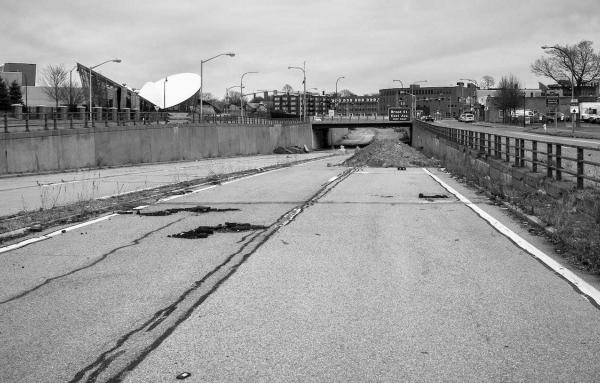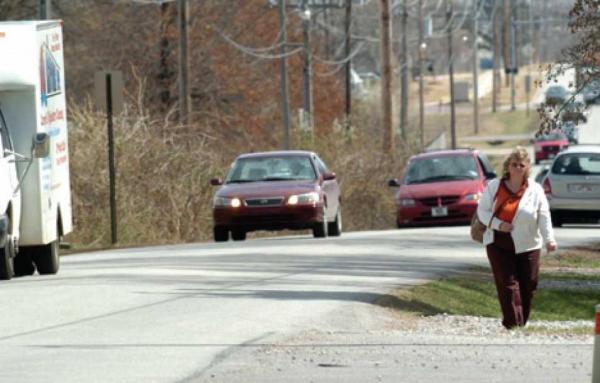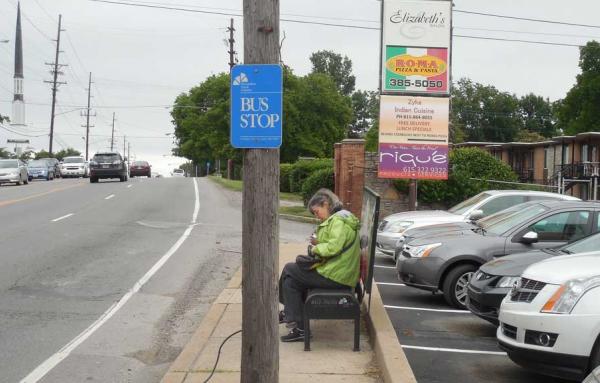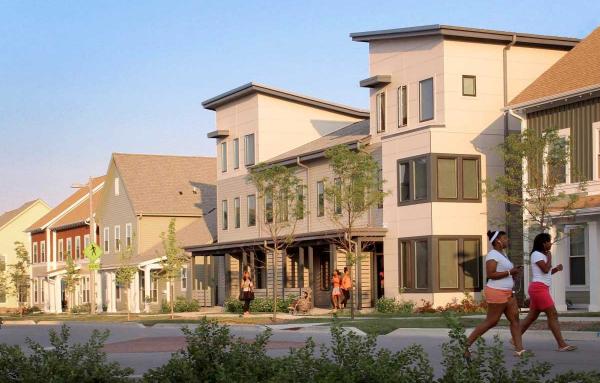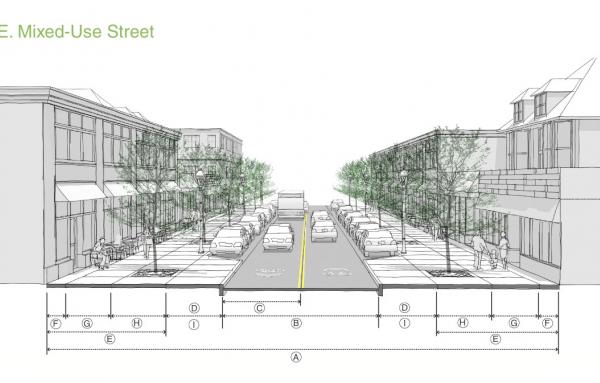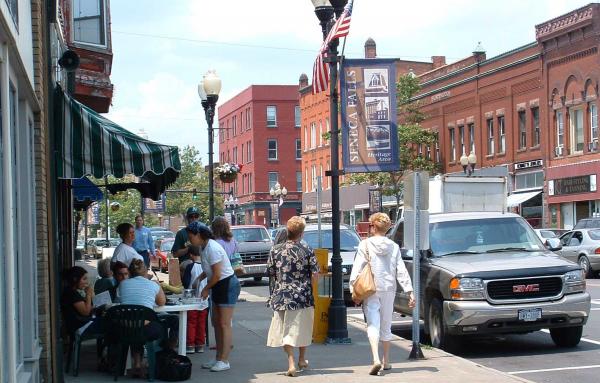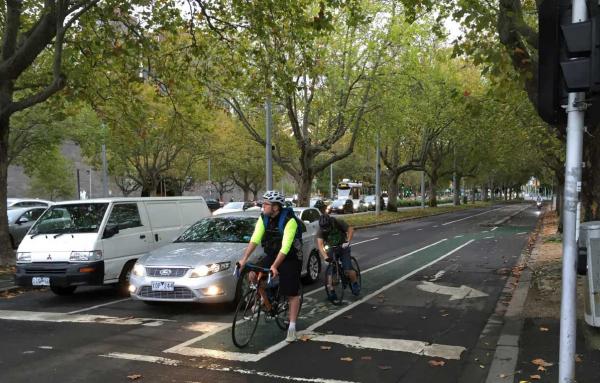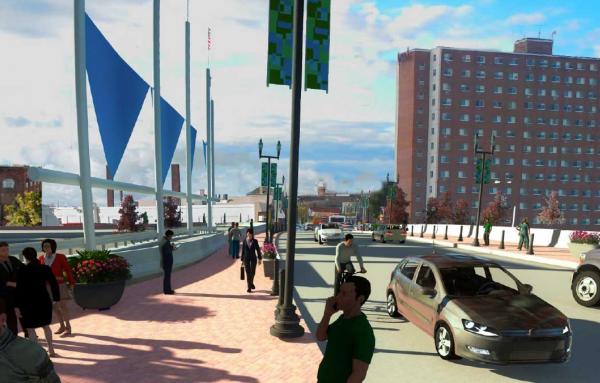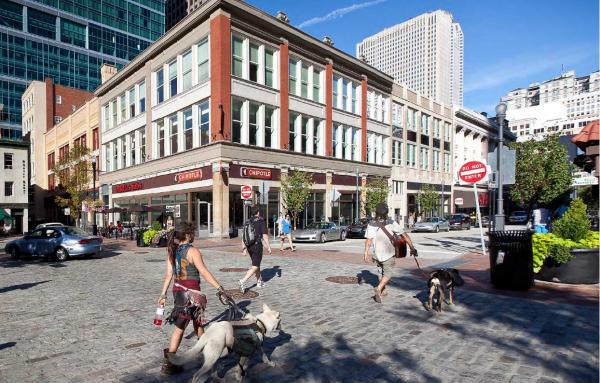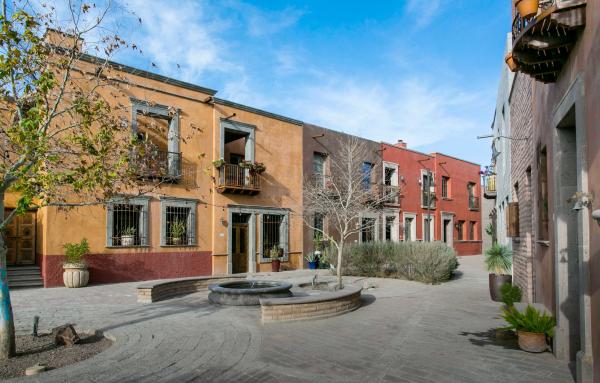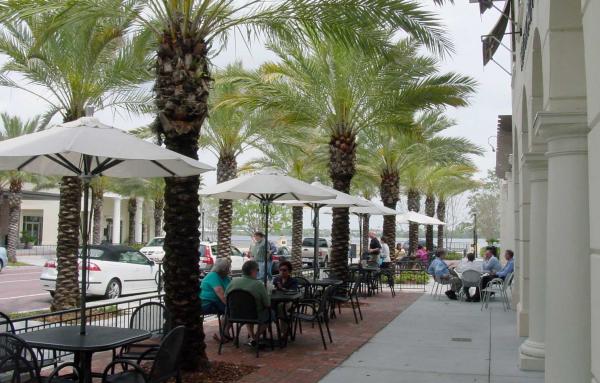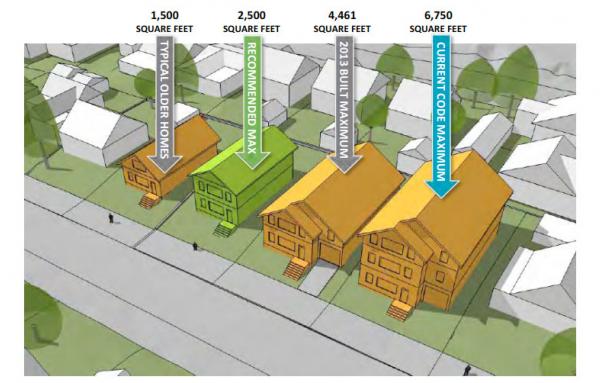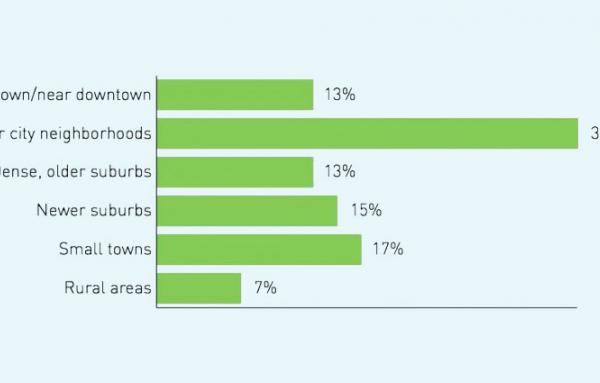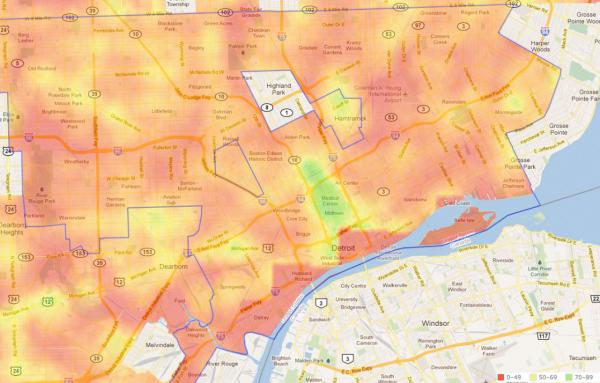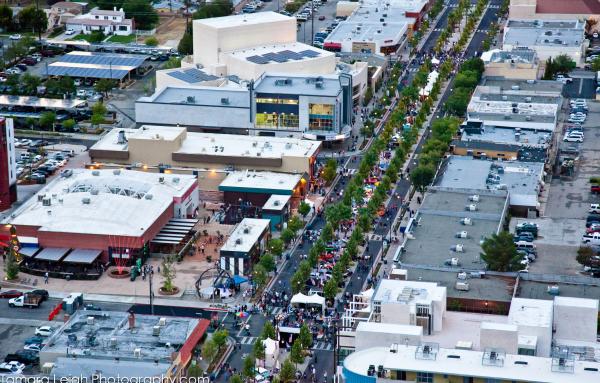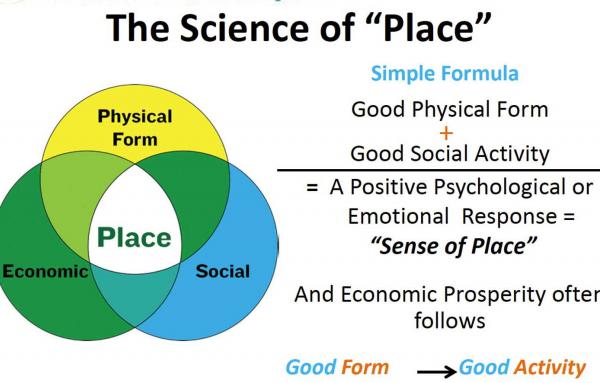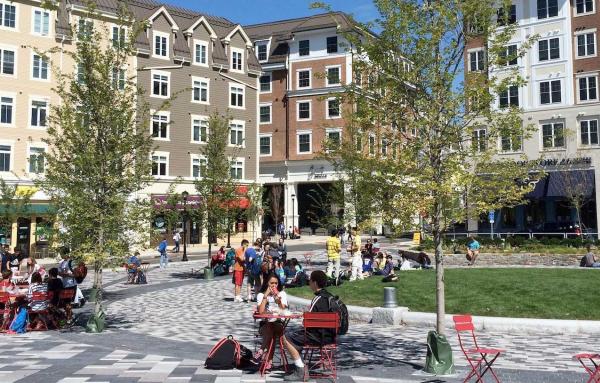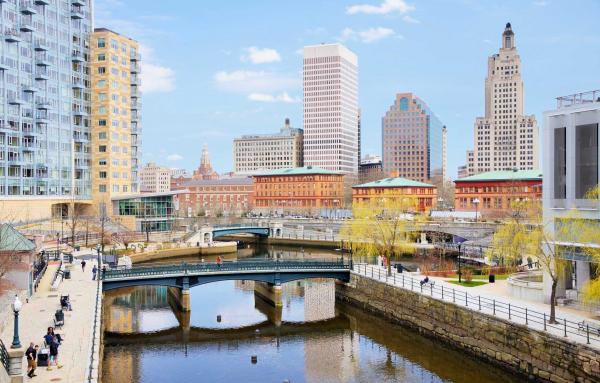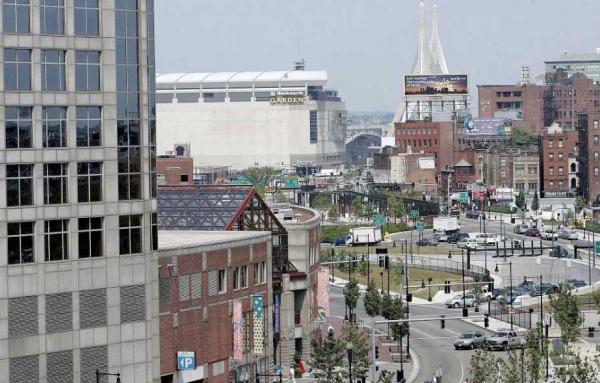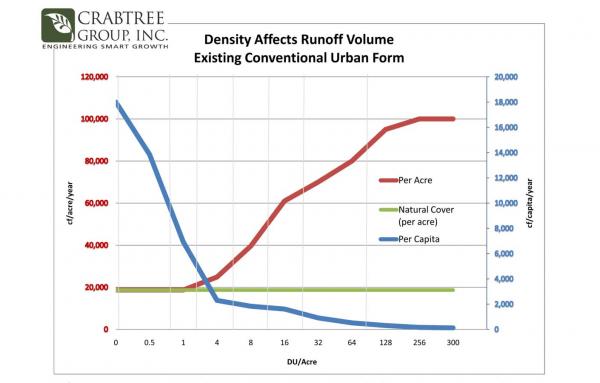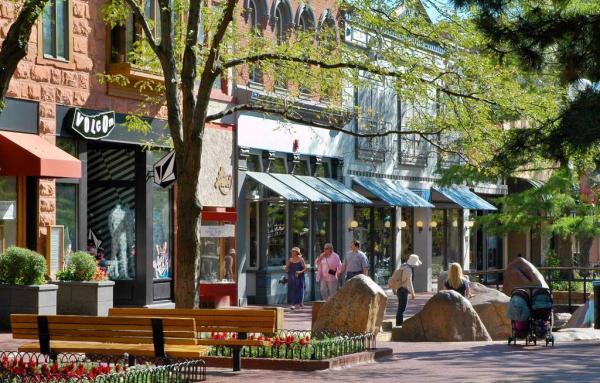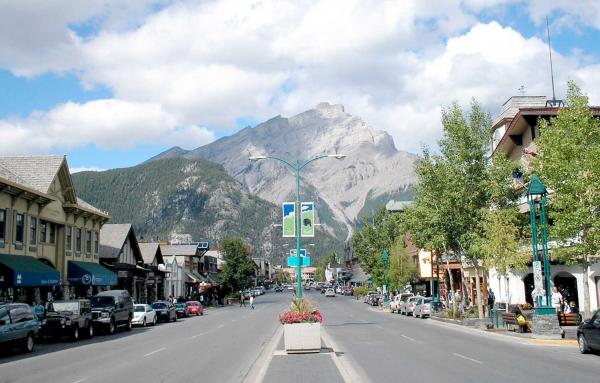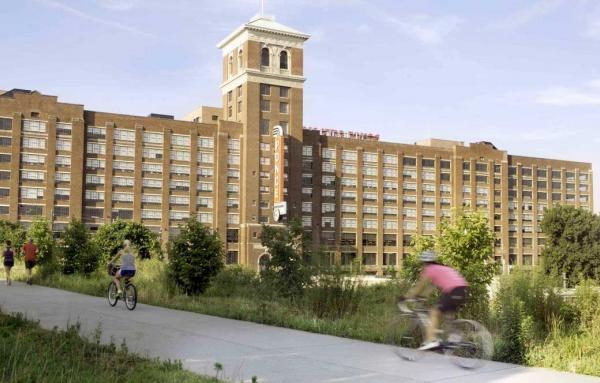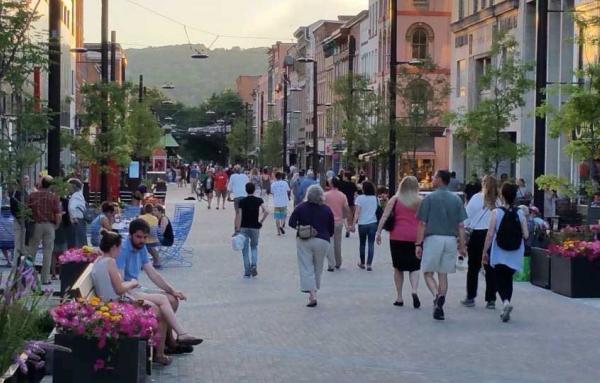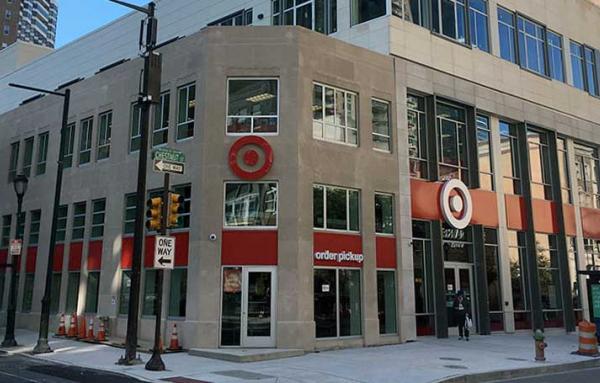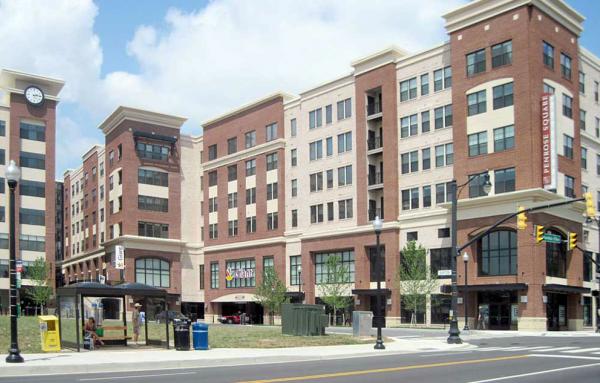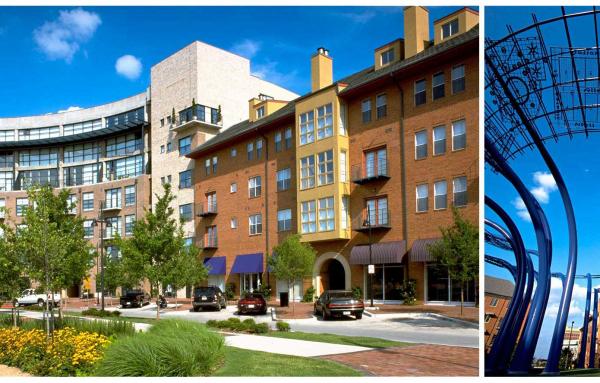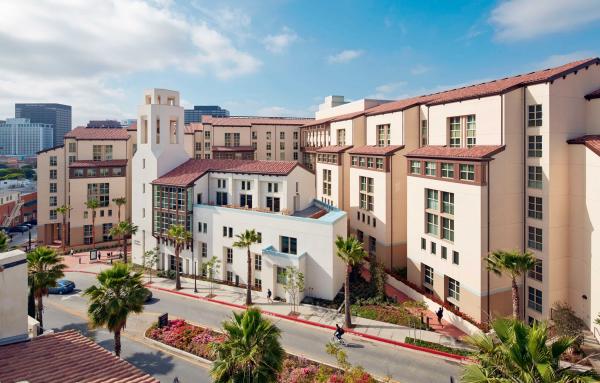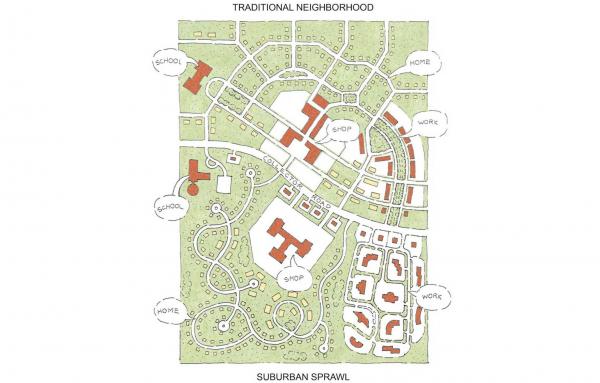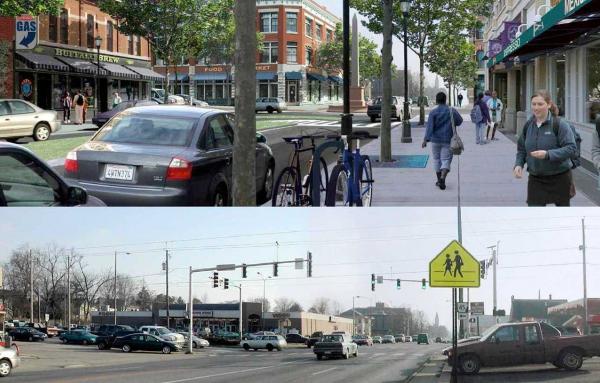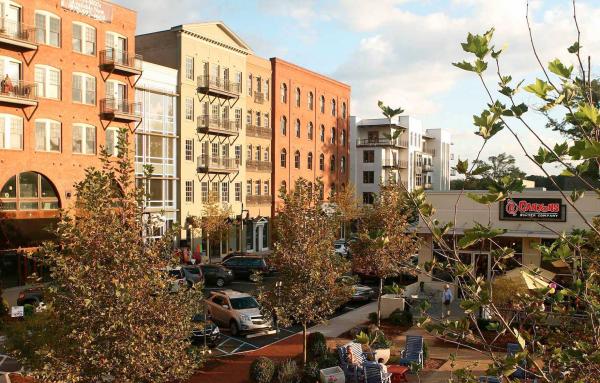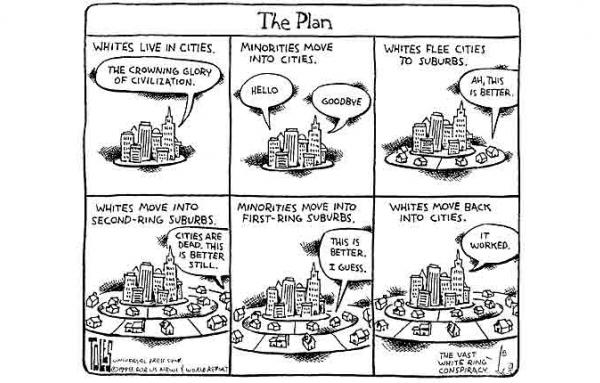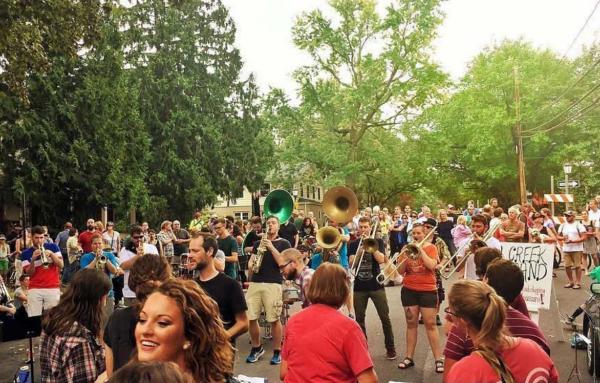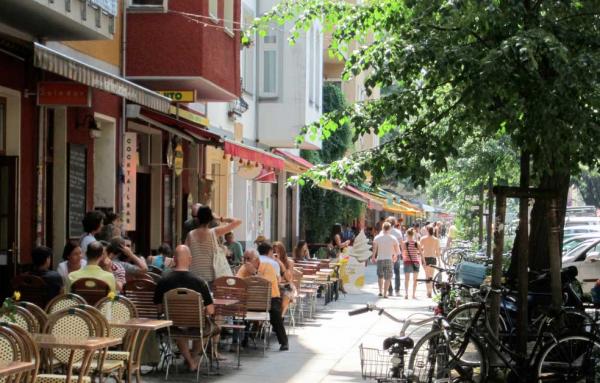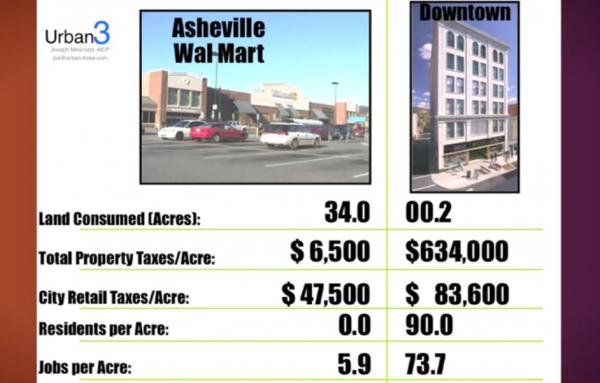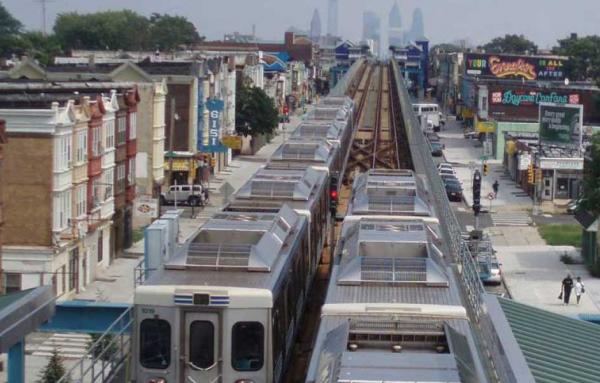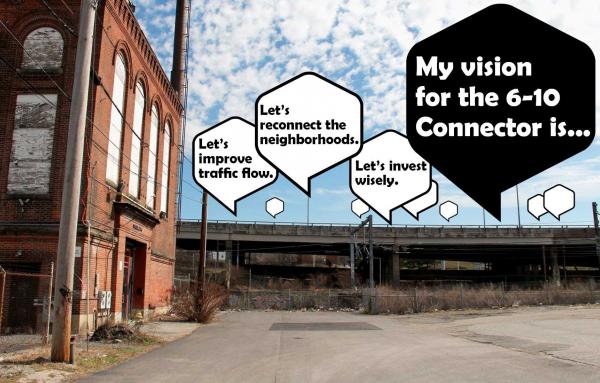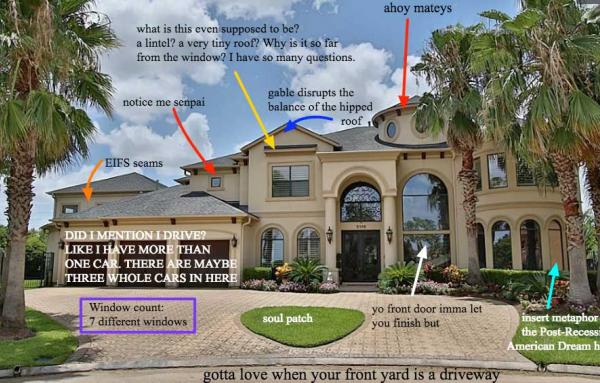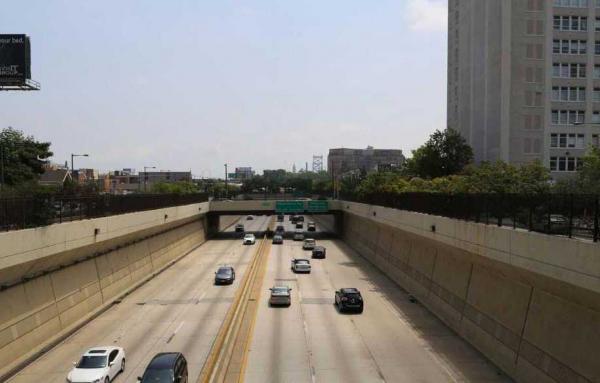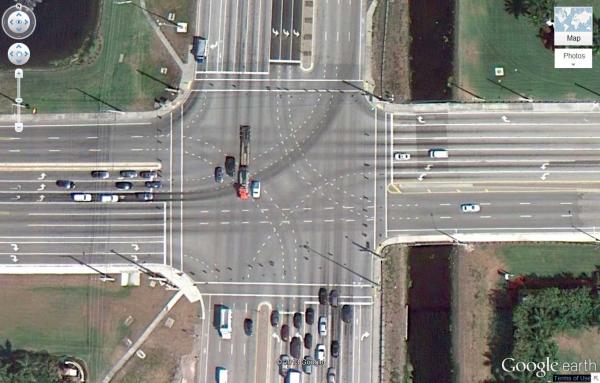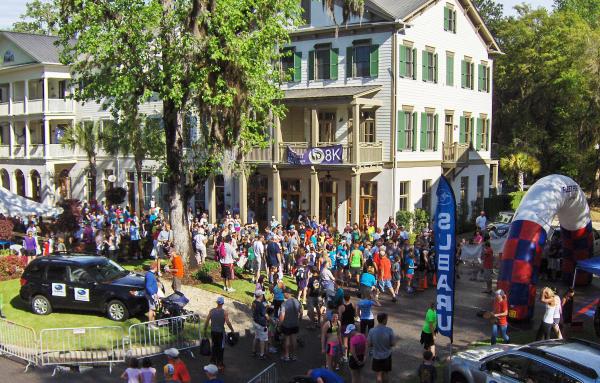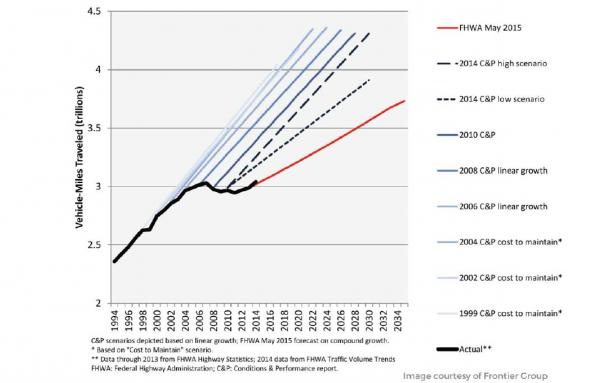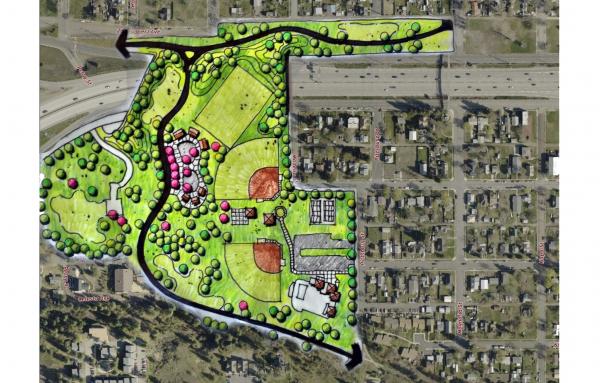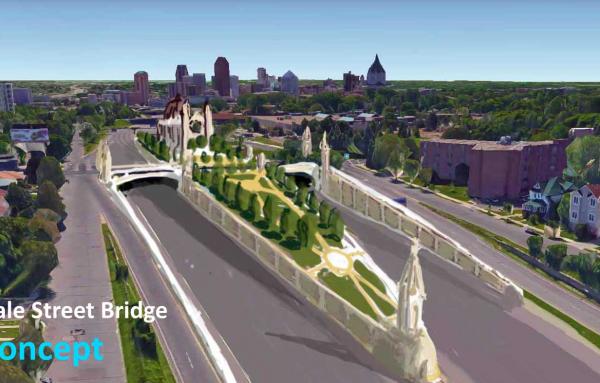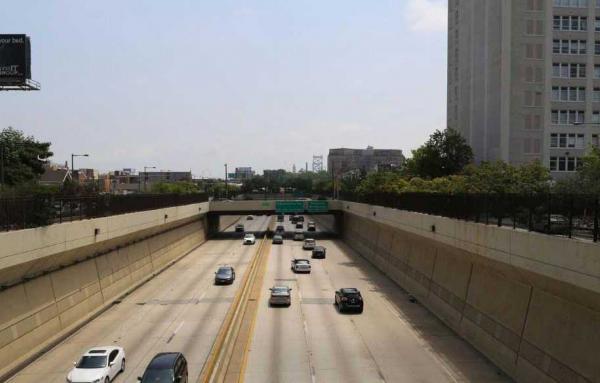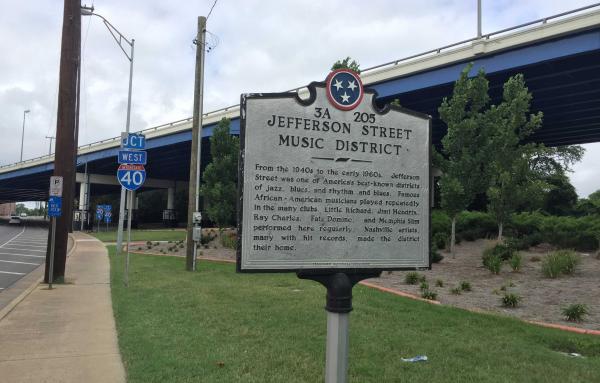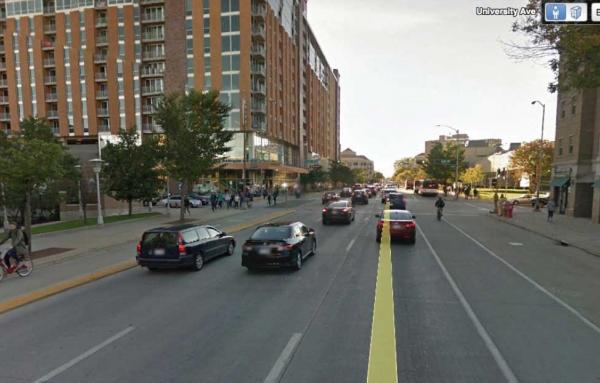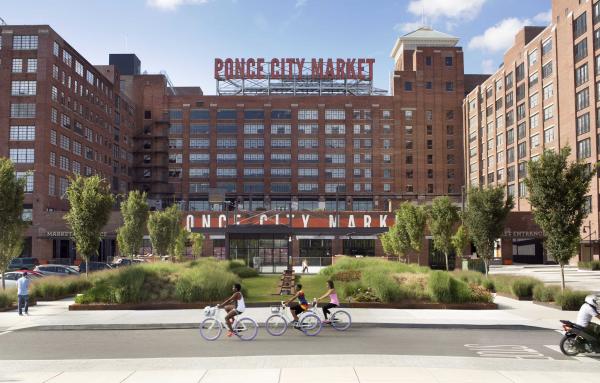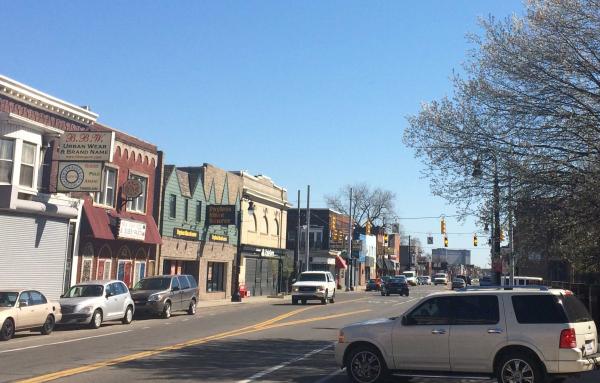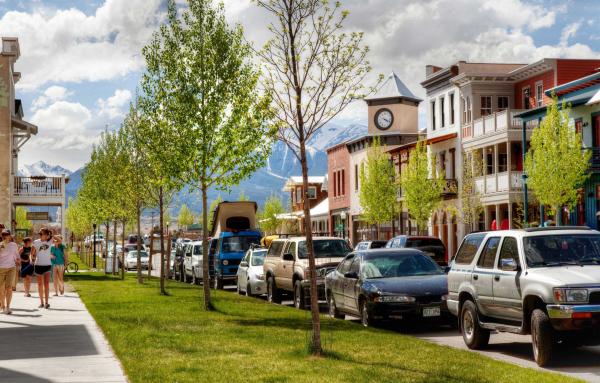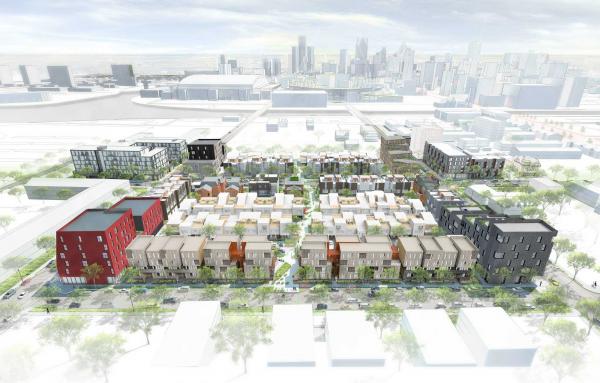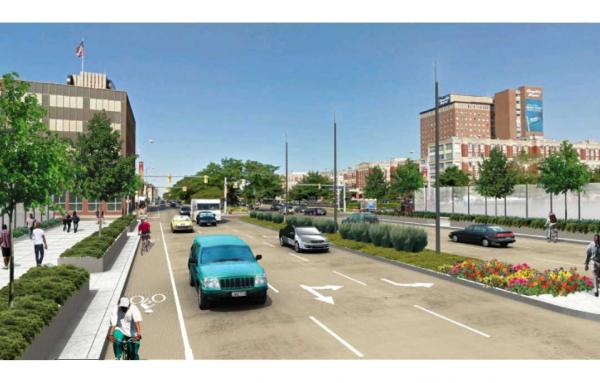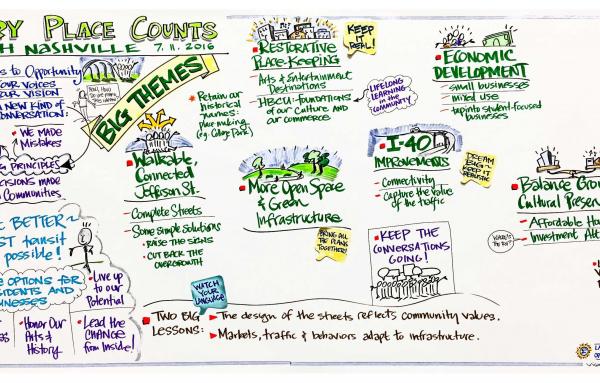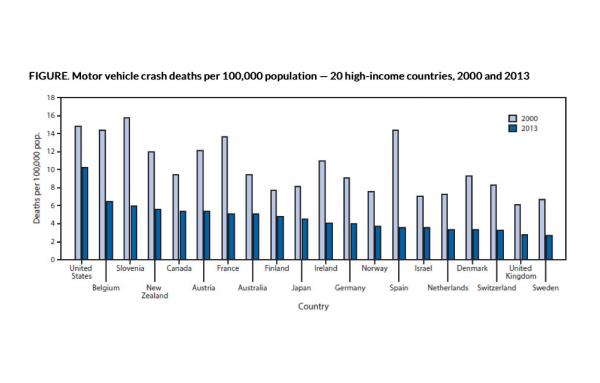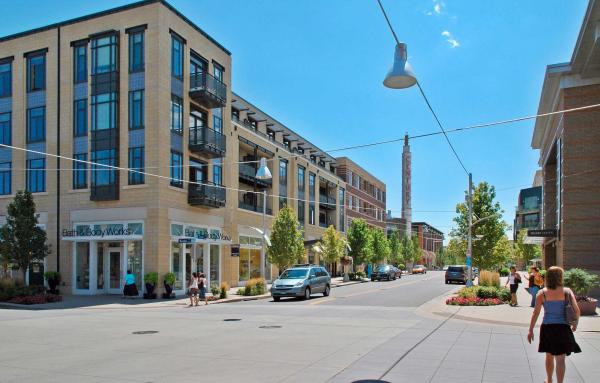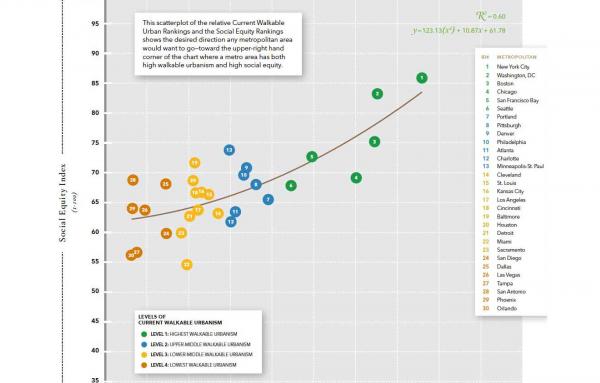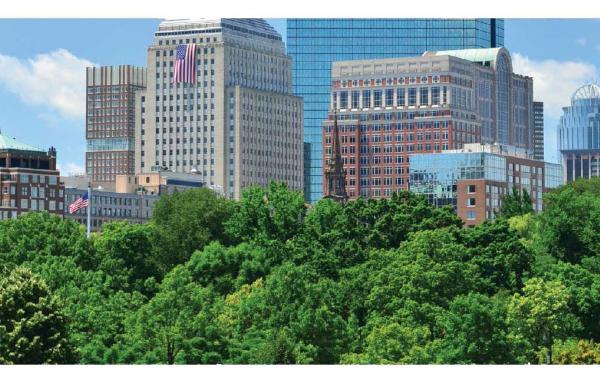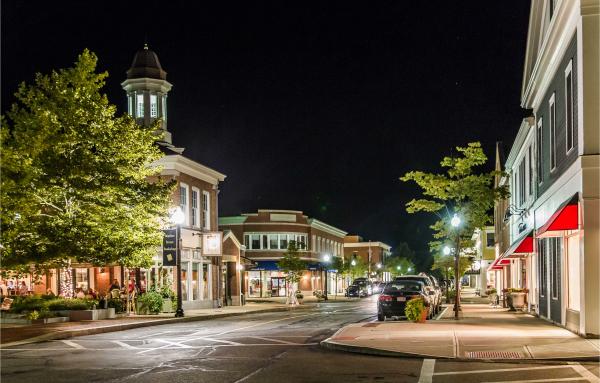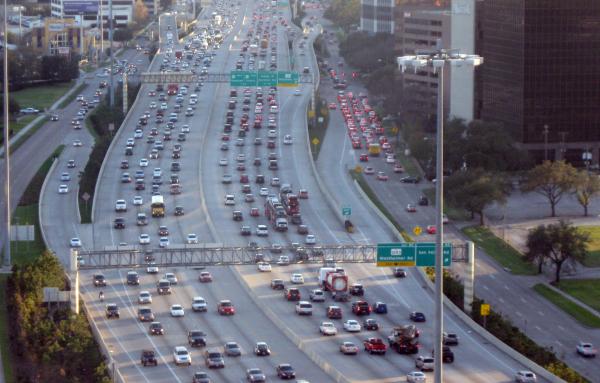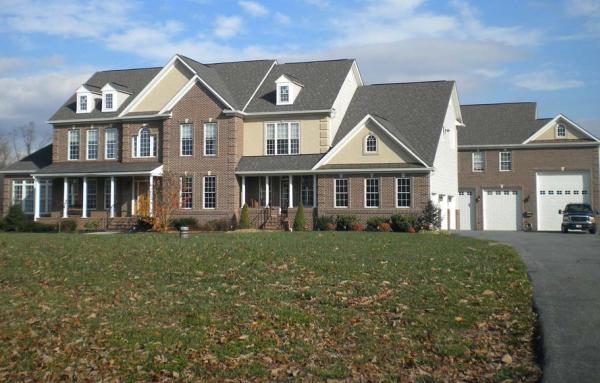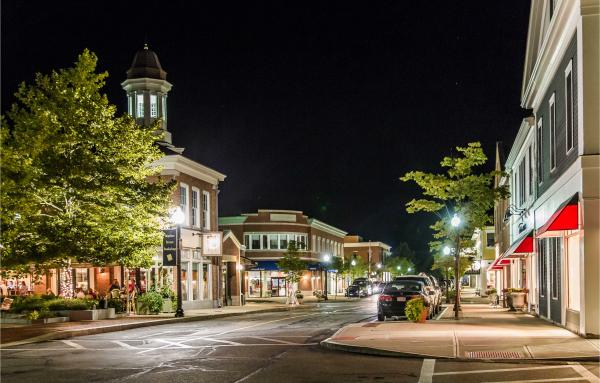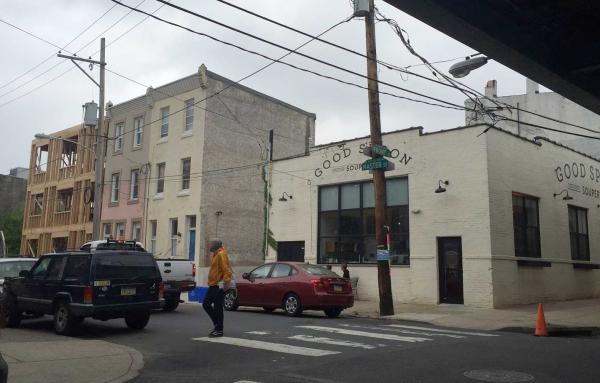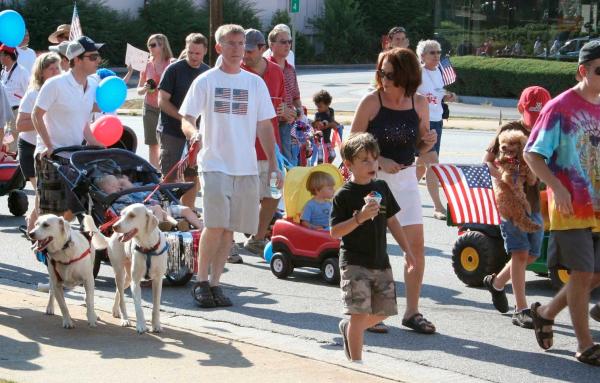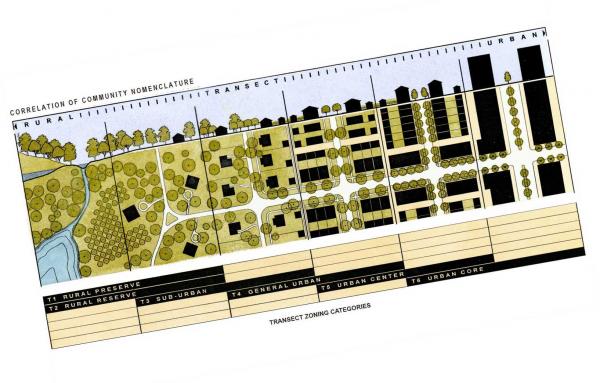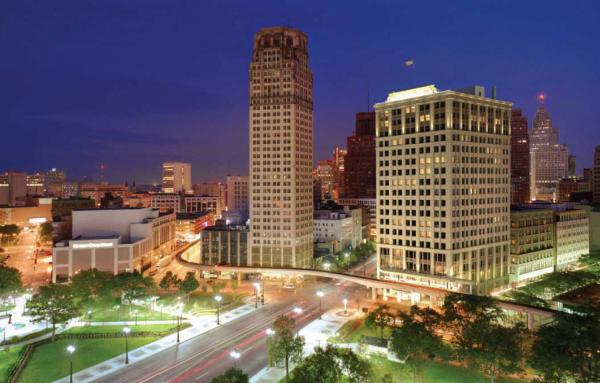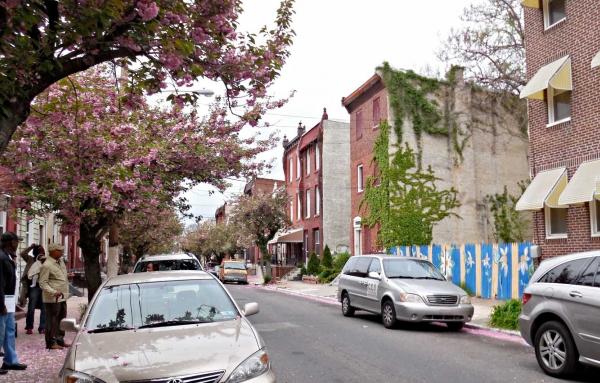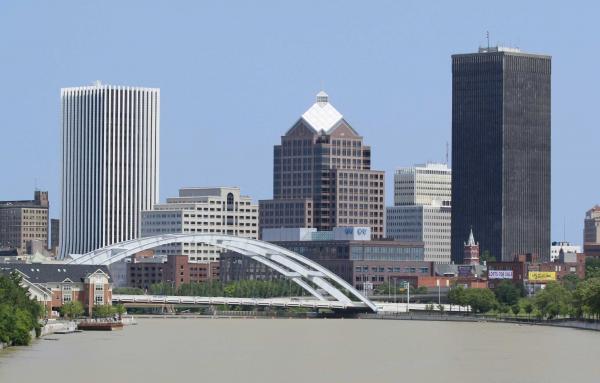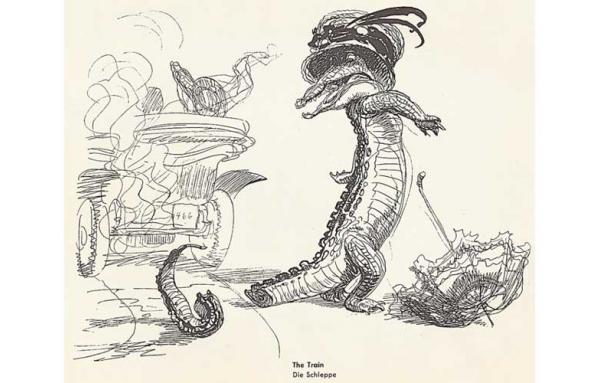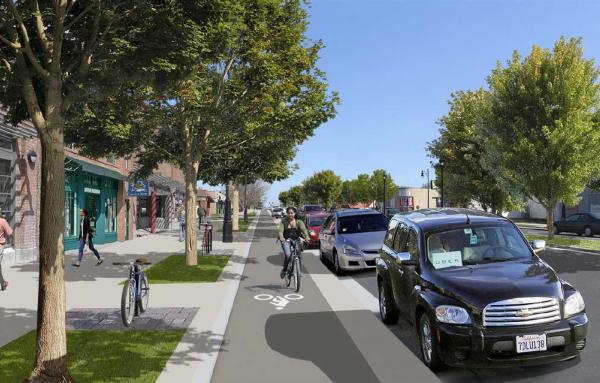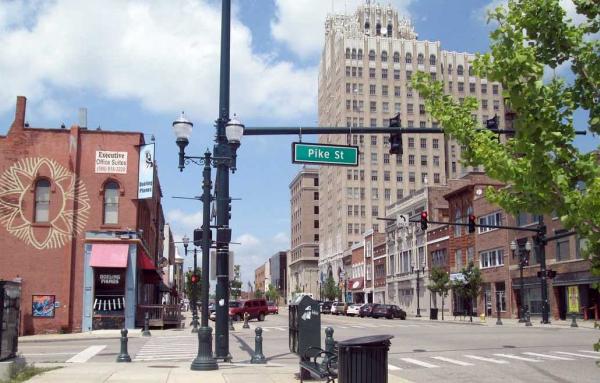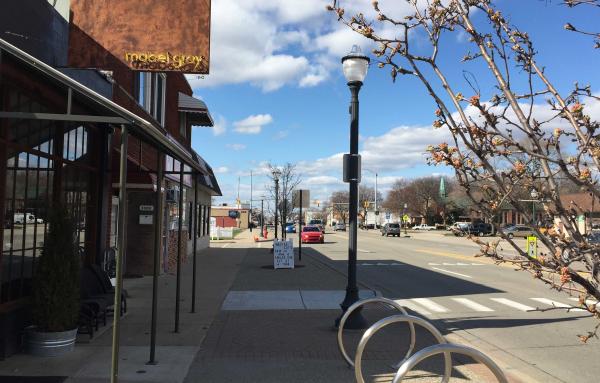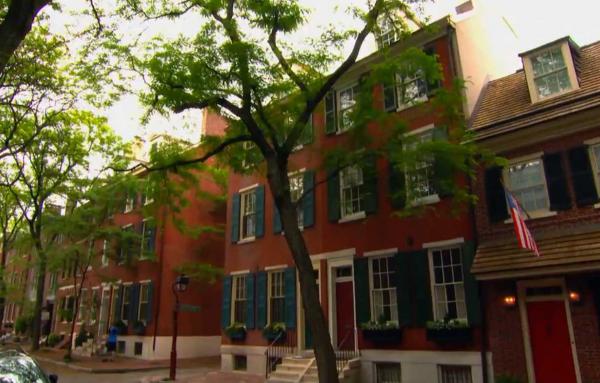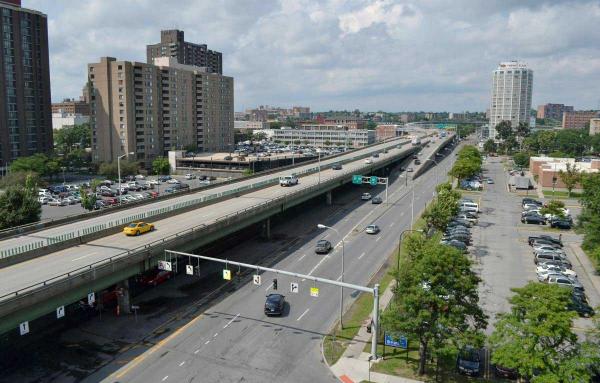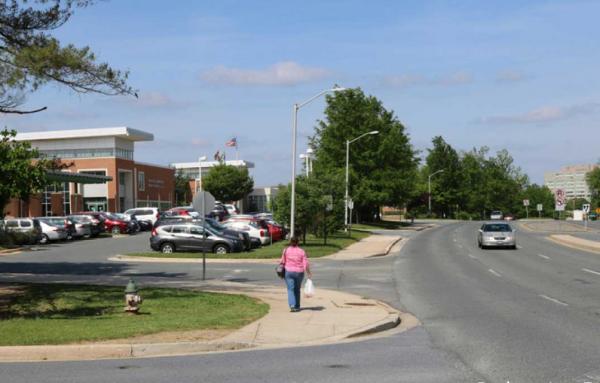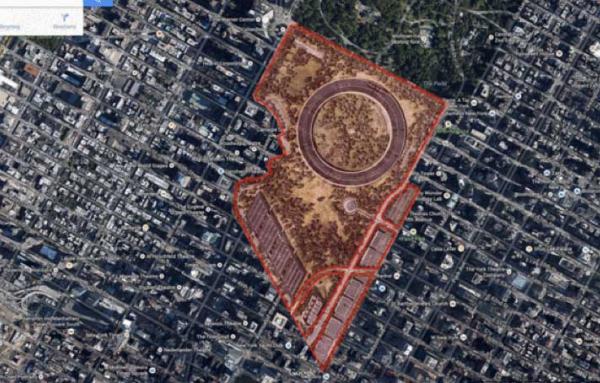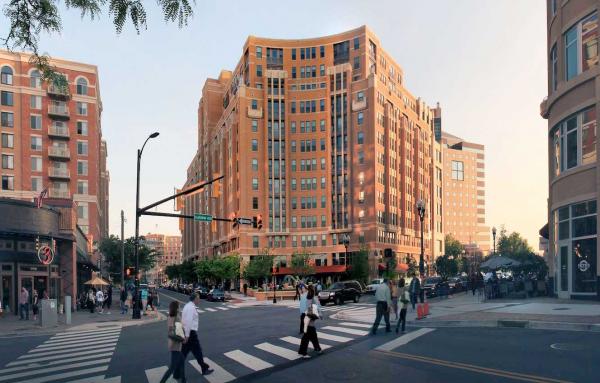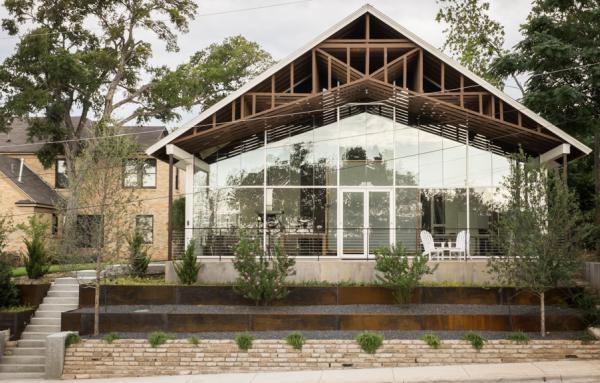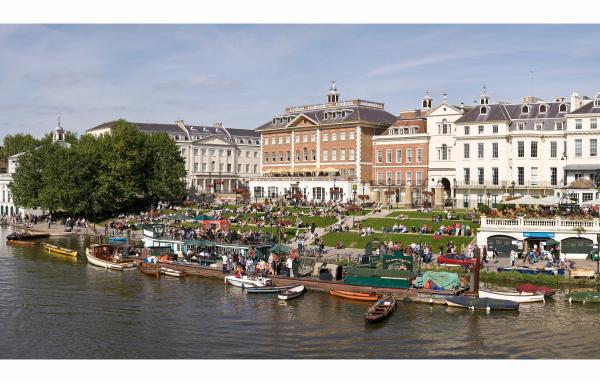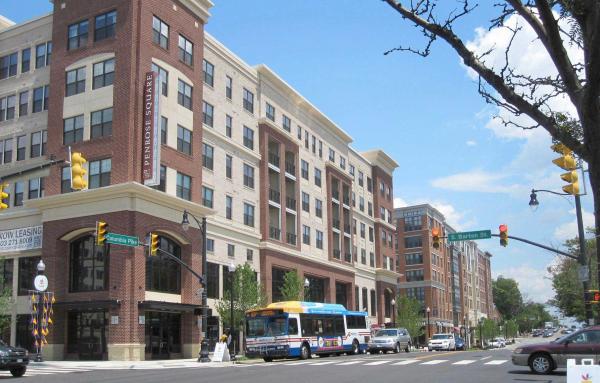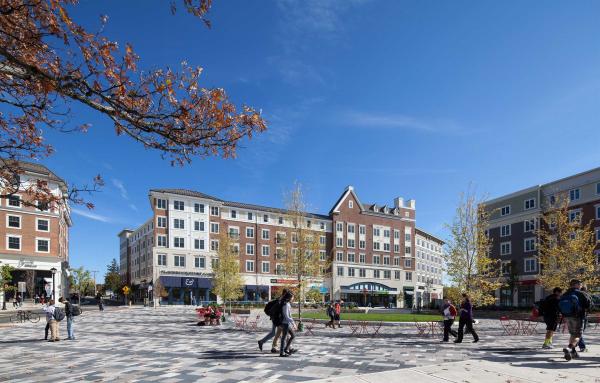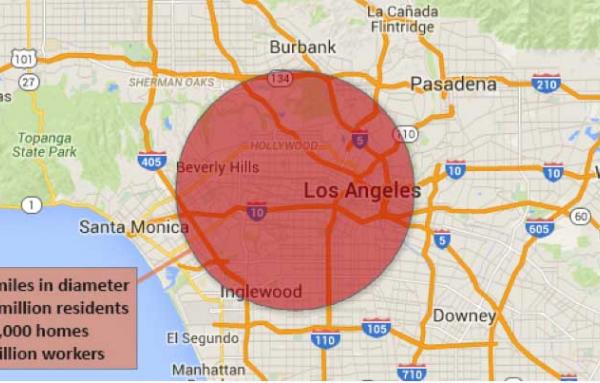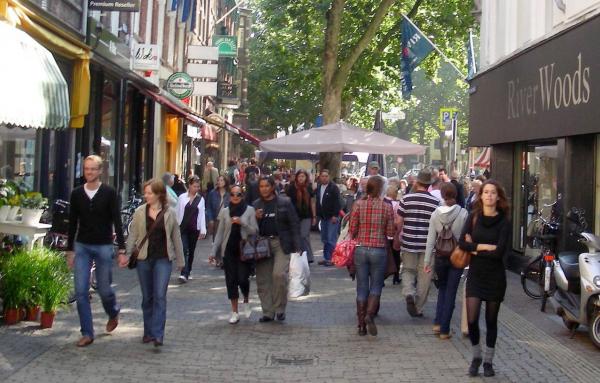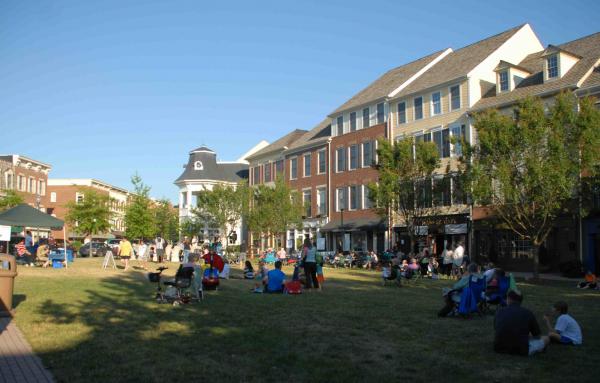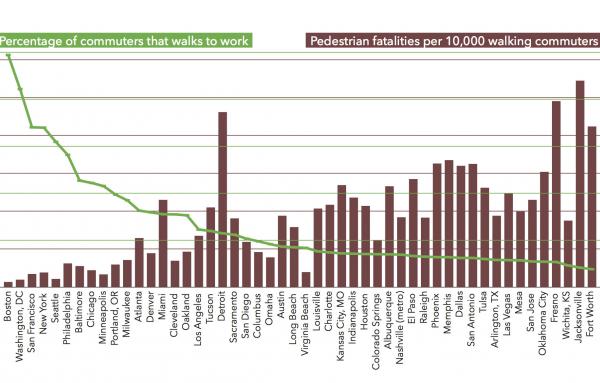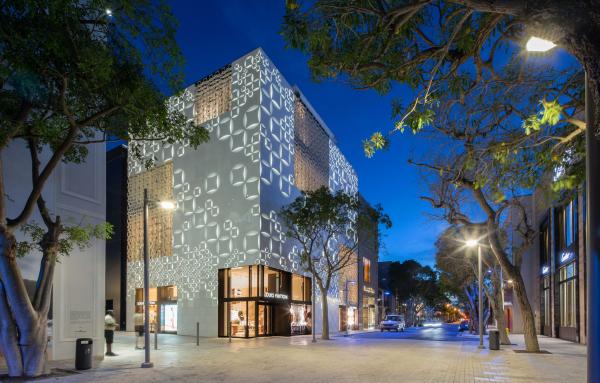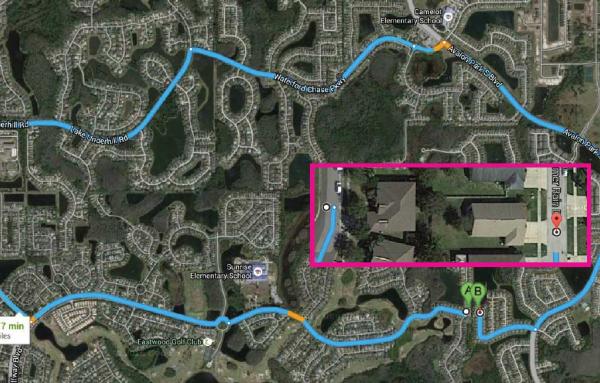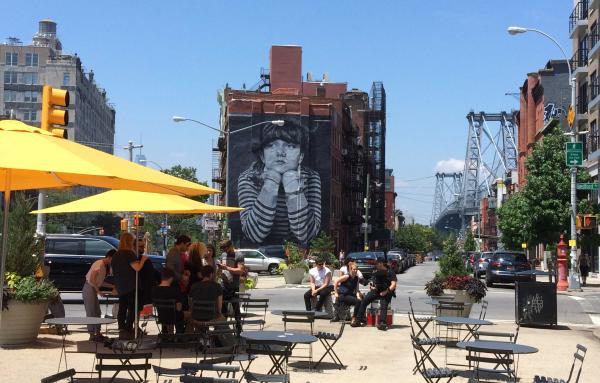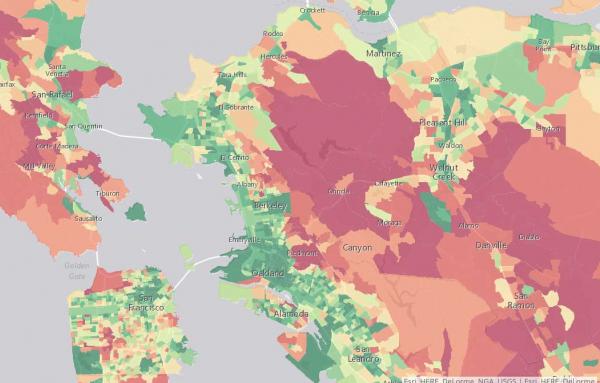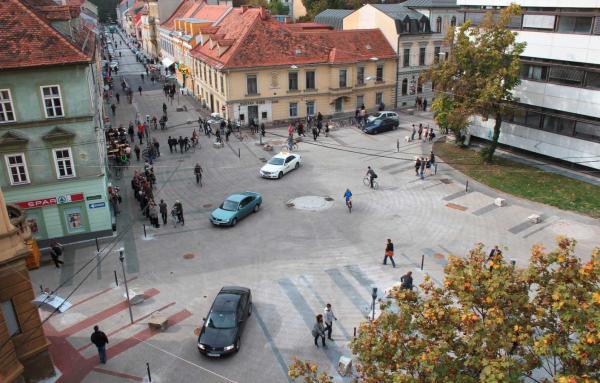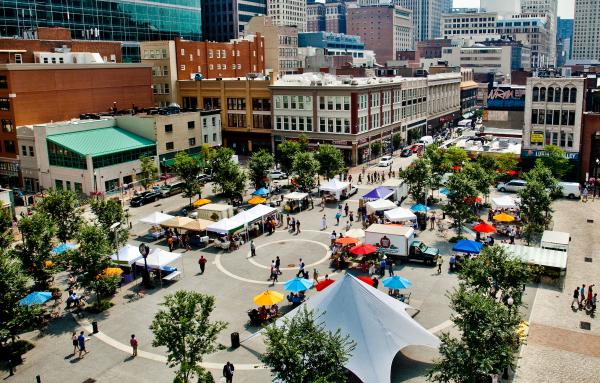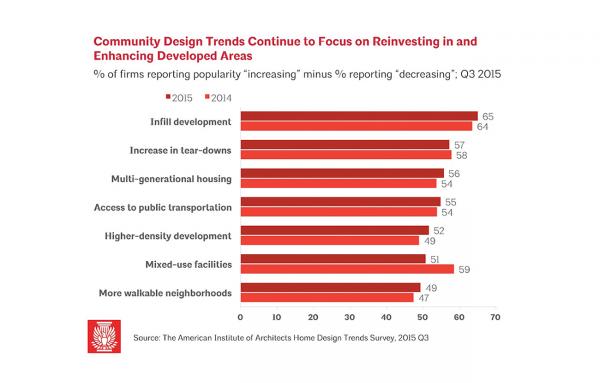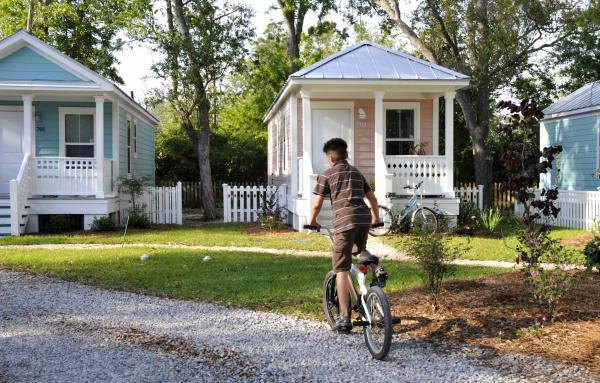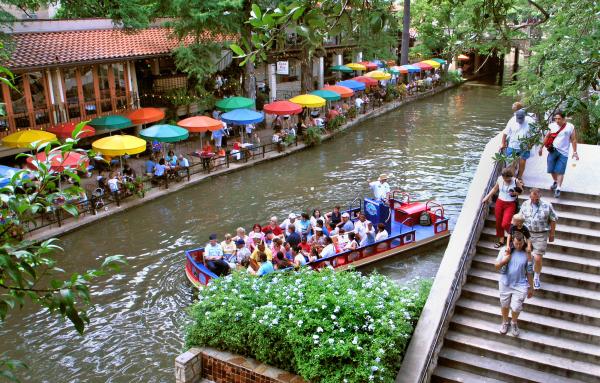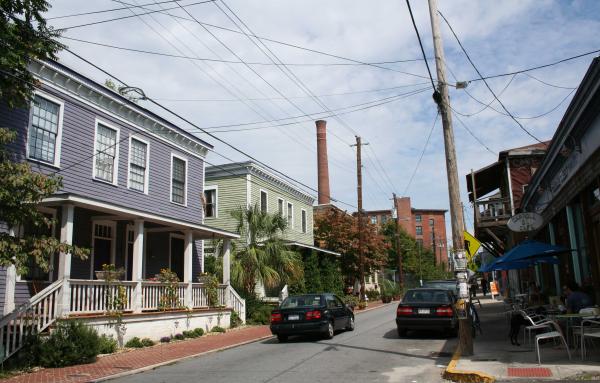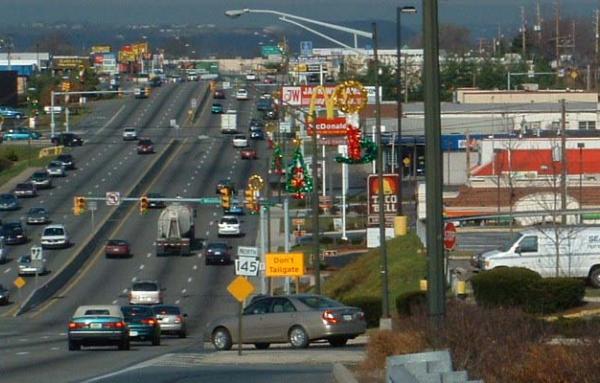
Robert Steuteville
Robert Steuteville, F-CNU, is editor of Public Square: A CNU Journal and senior communications adviser for the Congress for the New Urbanism.
HOPE VI reduced intergenerational poverty
A remarkable new Harvard study shows the benefits of mixed-income housing in high-poverty areas, using design based on New Urbanist principles.
Not quite urban, an ‘intentional neighborhood’ breaks ground
Polestar Village brings a health and wellness focus to Radburn-like community that is centered on a community garden.
A European feel in Oklahoma
The trend of inner-block development is very cool. This sweet little project, called Townsend in Edmond, Oklahoma, is breaking ground with two live-work units, 18 townhouses, and 13,000 square feet of commercial space on about an acre.
Austin...
Nearly one in five is interested in car-free living
Authors of an academic survey recommend zoning and parking reform, as well as investing in alternative transportation, to enable car-free living.
Traditional design enhances the public realm
The General Assembly Building in Richmond is typical of the architecture of the late Robert A.M. Stern, adding a new iconic building to an important urban site.
In 2026, let’s resolve to save pedestrian lives
A relatively small number of locations account for a large share of pedestrian mortality; we know what to do, so let's do something about it.
Top 10 Public Square articles in 2025
The most-read pieces in Public Square: A CNU Journal say a lot about the topics capturing the attention of urbanists today. These include retrofitting suburbs, a proposed new city, density, fighting loneliness, turning a mall into a town center, and...
Benefits of urbanism outweigh costs
An analysis of the Miami 21 zoning code, a bold policy move that bets on urbanism, shows that its focus on walkability drives higher demand for neighborhood living.
Walkability in high demand, Realtors say
In other housing news, Oregon’s new model code, a village of tiny homes for the formerly homeless in Austin, and urban cohousing near Chicago.
Old Town TND recognized for design
A 360-acre traditional neighborhood development sets new pattern for growth in Columbus, Georgia.
The infrastructure choice
A postcard sketch competition asked Urban Guild members to draw some ideas in a few minutes during an evening gathering at the Guild Summit in Chattanooga in late October. The members include architects, urban designers, and other urbanists.
The...
New Urban Update: IncDev in Gaza, Tom Low, Charter Awards, Shoup, and Brussat
I have been working on a Climate Action Handbook for CNU, which we plan to have published and printed by CNU 34 in Northwest Arkansas, but in doing so, I took a break from Public Square for a month and a half. There's a backlog of stories, some of...
Chattanooga is chugging along
Four decades of public-nonprofit-private partnership in New Urbanism has produced a city in balance, moving forward.
Proposed: A new California city
California Forever in the Central Valley offers an opportunity to test walkable community-building on a scale we haven’t seen in a century.
Robert Stern, a leader in traditional architecture and urbanism
Stern challenged a modernist establishment in the 1970s and 1980s, building a solid portfolio of work that would firmly establish the idea of ‘modern traditionalism.’
Video tells the tale of impressive Belgian New Urbanism
A town extension of seaside resort took a week to design, but it has been 25 years in the making.
Six urban center types transforming cities
A new book by the eminent urbanist Jonathan Barnett will make you more optimistic about US cities and their growth.
Thirteen characteristics of walkable neighborhoods
A checklist of physical qualities of walkable neighborhoods was enumerated by Dhiru Thadani in The Language of Towns and Cities.
Watertown plans main square transformation
A proposal could add thousands of housing units to the City center, while making it more walkable and sociable.
New model for sprawling Georgia county
The town center at Trilith creates a walkable downtown in the rural/suburban county 20 miles south of Atlanta.
Urban building recycles rainwater
The Sundial Building is nearing completion in Minneapolis, and architect Marques King has posted images and some of its features on LinkedIn. The building features a cool rainwater collection system that recycles approximately 90,000 gallons of...
Mississippi Renewal Forum, historic planning event, shaped the coast
One of the biggest design charrettes in history, which took place 20 years ago this October, created plans that changed cities along the Mississippi Gulf Coast.
New life for Savannah Legacy Project
CNU-sponsored plan shows how Southside Savannah could grow by retroffiting an abandoned mall and other sites across from a university campus.
CNU Legacy Project recognized, moving forward
A plan from CNU 32, involving a Hub District at a confluence of greenways in Xenia, a small city northeast of Cincinnati, is having an impact.
Greenway connected TND in Georgia
A series of small neighborhoods will be built with Missing Middle housing in a suburban part of Athens.
Compact urbanism more resilient than sprawl
We can lower our vulnerability to climate change by promoting more compact, walkable communities instead of sprawling development.
An agenda for the housing crisis
A Delaware Senator, Lisa Blunt Rochester, offers wide-ranging solutions to the US housing problem.
In the Ozarks, a greenway inspires change
The Razorback Greenway and a Design Excellence Program are transforming the small cities of Northwest Arkansas.
Texas city builds iconic center
Civic features and architecture give Frisco Square, a downtown extension, imageability.
Film, community, and the Mother Road
The most storied US highway, also known as America's Main Street, inspired filmmakers to discover New Urbanism. The centennial of Route 66 is an opportunity to celebrate place in the heartland.
Garden State city gets mixed-use transit plaza
Somerville Station brings infill, transit-oriented development that supports diverse mobility and quality public space.
You can’t make a great city, without a great public realm
A focus on the public realm is really what distinguishes new urban design from conventional suburban planning. A good definition and full understanding are important.
Urban Renewal, art that packs a punch
I was in Virginia Beach, on vacation, visiting the Chrysler Museum of Art in Norfolk, when I came across the painting. It is called, simply, Urban Renewal, circa 1960. The New York City artist Lee Loeb was known for cityscape paintings.
The museum...
Natural experiment: Walkable places boost physical activity
Nationwide cell phone data analysis reveals that walkable places cause diverse people to walk more. The authors of a study published in Nature believe that the built environment could yield widespread health benefits.
Nansledan wins award for affordable housing design
King Charles’s follow-up to Poundbury gets the Gindroz Award for excellence in affordable housing. Nansledan is a large new urban community on the Northwest coast of Cornwall, England.
To build a center on a former mall
A mixed-use center is the best way to maximize value from a vacant mall site, but it requires proactive city leadership, as seen in Huntsville.
For the love of mimosas, see Mashpee Commons
Cape Cod boasts many things, including the first conversion of a sterile strip mall to a village center. It’s a model for what to do with thousands of dead and dying malls.
Old versus New Urbanism, and what it means
The Florida Gulf Coast offers a chance to compare the meanings of Old and New Urbanism, examine why the two are not as distinct, and how urbanism is evolving.
Community stands the test of time
HomeTown in North Richland Hills was designed to introduce New Urbanism to the North Texas production-built market. It survived the housing crash and is nearly complete.
Legislation advances for zoning reform, pre-approved plans, pattern books and more
Senators propose federal support for pro-urbanist ideas including local zoning reform, pre-approved plans, infill, and transit-oriented development.
Washington flips the switch on parking reform
State legislation takes a new approach to removing parking mandates—one that is far more comprehensive.
Carmel completes its City Center
The Indiana City, north of Indianapolis, has taken a unique approach to combat sprawl through downtown development.
Turning a dead mall into a downtown is not easy, but worth the effort
As the US seeks a long-term use for hundreds of dead malls, cities can put their faith in urbanism.
Plan to revitalize Gary with small interventions
Notre Dame School of Architecture teamed with nationally known planners and the Indiana city to build on Gary’s good bones.
Street transformed in the wake of congestion pricing
Tactical parklets that reclaim space for pedestrians are installed on 14th Street, Manhattan, with a 15-year lifespan.
How art launched New Urbanism, changing planning history
The Art of the New Urbanism is more than a beautiful book—it tells the story of an urban planning movement through the lens of its drawing skills.
Guide for infill, pre-approved building plans
An Ohio guidebook for facilitating infill development offers clear instructions for zoning reform and pre-approved plans, in addition to specific infill building plans.
Making urbanism easier through regulatory reform
A flurry of Texas measures will streamline approvals and reduce costs for compact, mixed-use urbanism. Here’s how it is being done.
The power of an imaginative illustration
Three decades ago, a man with a pen proposed a park in downtown Providence, showing that artists can be powerful planners.
Orange Code adopted to repair Orlando sprawl
The Orange Code, the largest sprawl repair code ever, applies form-based regulations to unincorporated areas of the Orlando region and streamlines entitlement processes.
A gentle genius
It has been more than a week since we posted a notice of Leon Krier's passing. CNU was closed last week following the Congress, but we wanted to get a response out quickly to our members and audience, as he was such an important part of the New...
In Hope of growth, a village plans better connections
Hope Legacy Project offers a revitalization plan, focusing on pedestrian infrastructure for a Rhode Island village.
Leon Krier’s checklist
The late architect and urban theorist wrote a to-do list for city founders, mayors, administrators, designers, settlers, and landowners.
Community has it made in the shade
Oppressive summer heat is more bearable when a walkable community is designed for shade.
Leon Krier, influential urbanist and architect, dies in Spain
Leon Krier, a giant in architecture and urbanism and one of the intellectual founders of the New Urbanism movement, died at 79 on Tuesday, June 17, in Palma de Mallorca, Spain.
“The work of the New Urbanist movement is grounded in the...
What is a SLUG? A term for rural sprawl
This image was recently posted on LinkedIn along with a discussion of the term SLUG, which stands for spread-out, low-density, unguided growth.
Urban designer Kevin Abbott found the term in the 2013 edition of Virginia McAlester’s A Field Guide to...
New Urbanism and Its Influences in Providence and New England
A map reveals the growing New Urbanist influence throughout New England.
CNU Legacy team proposes Health District
The Providence Community Health District envisions up to 2,000 new living spaces in a mixed-use neighborhood surrounding major health institutions.
Competition reveals practical single-stair designs
CNU Mid-Atlantic’s Baltimore Single-Stair Design Competition shows the value of single-stair types in mid-rise buildings on infill sites, but more work needs to be done.
Landmark plan guides downtown revival
Downcity Providence Master Plan in Providence, Rhode Island, created a blueprint for downtown vitality. DPZ CoDesign and Cornish Associates won a 2025 CNU Charter and Generational Project Award in the Neighborhood, District, and Corridor category.
Bringing a street and public space to life
Revitalization of Westminster Street in Providence, RI, balances development and preservation to build economic and social life downtown. Union Studio Architecture & Community Design won a 2025 CNU Charter Award in the Block, Street and Building category.
Reintroducing Missing Middle Housing to Vermont
Vermont Homes for All Toolkit provides statewide support for Missing Middle housing. Utile, Inc. won a 2025 CNU Charter Award in The Region: Metropolis, City and Town category.
A Main Street model for New York State
Eastdale Main Street Village in Poughkeepsie, New York, establishes a new growth pattern on a low-density strip corridor. Union Studio Architecture & Community Design won a 2025 CNU Charter Award in The Block, Street, and Building category.
CNU releases Freeways Without Futures 2025
The report highlights bad freeway planning decisions and how damaged cities can be healed.
The most housing-forward planning framework in Canada
Growing Together in Kitchener, Ontario, Canada, employs robust public engagement to accommodate a half-century of growth around transit stations. The City of Kitchener won a 2025 CNU Charter Award in The Region: Metropolis, City and Town category.
Modeling Missing Middle across an unaffordable region
Cape Cod Resiliency: Missing Middle changed the perception and implementation of housing on Cape Cod, Massachusetts. Union Studio Architecture & Community Design won a 2025 CNU Charter Award in The Region: Metropolis, City and Town category.
Mapping the culture and retrofit of a car-oriented community
A Framework Plan for Cherokee Village envisions retrofitting a partially built 20th-century new town. University of Arkansas Community Design Center won a Merit Award in The Region: Metropolis, City and Town category of the 2025 CNU Charter Awards.
A creek, boulevard, and urban destination
Cherry Creek and Speer Boulevard Vision and Feasibility Study in Denver, CO aims to restore a stream and the urban fabric along a traffic corridor. HDR won a Merit Award in the Neighborhood, District, and Corridor category of the 2025 CNU Charter Awards.
Pre-approved path to rebuild neighborhoods
Midwest Pre-Approved Building Programs for Rebuilding Neighborhoods helps cities build the housing they need. Kalamazoo and South Bend won a Merit Award in The Region: Metropolis, City and Town category of the 2025 CNU Charter Awards.
Catalyzing neighborhood change through art, public space, and activity
Zone 3 creates a tactical arts hub in the Allston neighborhood of Boston. Harvard University won a Merit Award in the Block, Street, and Building category of the 2025 CNU Charter Awards.
Block-scale urbanism adapts historic campus to climate change
Preserving History: Assessments and Climate Adaptations at The House of the Seven Gables in Salem, MA. Union Studio Architecture & Community Design won a Merit Award in the Block, Street, and Building category of the 2025 CNU Charter Awards.
Civic space designed to reveal a dark history
The Shockoe Project tells an important story about slavery while providing public space that links downtown to an adjacent neighborhood. Baskervill won a Merit Award in the Block, Street, and Building category of the 2025 CNU Charter Awards.
Transit-oriented social and economic hub
Tyler Station transforms an eyesore and environmental liability into a dynamic activity center supported by transit. Options Real Estate Investments won a Merit Award in the Block, Street, and Building category of the 2025 CNU Charter Awards.
Sustainable new timber-frame fabric in Guatemala
Construyendo Guatemala: Tradition and Technology combines creative infill design and construction. Deisy Velasquez, University of Maryland, won a Student Merit Award in The Neighborhood, District, and Corridor category of the 2025 Charter Awards.
Affordability is driving micro-unit construction
Micro-units are being built in large numbers in many US cities, renting at a significant discount compared to conventional apartments, according to a report.
Preservation plan promotes climate-friendly development
Regenerative Conservation: Centering Preservation Philosophy within Urban Planning Policy. Sean Gaouette at the University of Notre Dame won a Student Merit Award in The Neighborhood, The District, and The Corridor category of the 2025 CNU Charter Awards.
Rockville, a green small city built on transit urbanism
Rockville’s early New Urbanism and TOD puts it at the top of a green small cities list.
A model dark sky community
The Groveland Dark Sky Initiative manages and reduces light pollution citywide—even as the Central Florida community rapidly grows. City of Groveland won Honorable Mention in The Region: Metropolis, City and Town category of the 2025 CNU Charter Awards.
Reviving neighborhood stores
Neighborhoods used to be full of local businesses, but they have dwindled over the past century. Maybe it’s time to figure out how to make neighborhoods business-friendly again.
The benefits of ‘skinny houses’
Single-family housing on narrow lots, sometimes called “detached townhouses,” can solve many problems for small-lot, economical, and efficient housing.
The Art of the New Urbanism
Fine art helped to drive the New Urbanism trend toward walkable communities.
How bicycles transform 21st Century cities
Author Dan Piatkowski explains that bicycles, especially e-bikes, are becoming a more important means of transportation and shaping cities as they grow.
Social life, not density, makes city dwellers happy
Culdesac in Tempe, Arizona, has people-friendly courtyards and a walkable design, which leads to success. The formula is explained in Happy City.
We need outward growth—but not sprawl
The New York Times recently endorsed sprawl as a solution to the housing crisis, but the writer is confused about the outward expansion of cities.
Study shows widespread new urbanist zoning reform
With the aid of artificial intelligence, researchers examined the extent to which form-based coding is adopted incrementally, often without using the term. The widespread approval of these regulations is good news for proponents of walkable neighborhoods.
How community design impacts social life
The social aspect of community development is important. It’s been said before, but we are, at heart, social creatures. When technology drives us apart, as it has in many ways over the last 100 years, we suffer.
Social scientists have consistently...
Why walkable places are good for children
Despite arguments that sprawl is pro-family, children benefit from mixed-use, urban neighborhoods.
Promoting creative retrofit solutions
States have an interest in promoting the reuse of failing suburban commercial properties. They need to promote mixed-use and walkability without stifling creative solutions.
Village plan adopted, first of eleven
The mixed-use plan for Greensboro, North Carolina, establishes a network of small blocks and the first of a series of neighborhoods for new development northwest of the historic city.
The potential of places like New Bedford
A quarter of the nation lives in smaller cities, which are often overlooked but more affordable, have great assets, and have room to grow.
Adding value to a commercial shopping center
Wheatland Plaza in Duncanville is a model for adding value to an underutilized site along a suburban arterial through an efficient mixed-use design.
For housing, the medium is the street
We need street network reform, not just housing, to create abundant, thriving, healthy communities.
New towns are important part of New Urbanism
New towns have always been part of New Urbanism, and the movement should embrace that aspect as a necessary complement to infill, retrofit, and highway transformation.
How in-city highways impact social lives and health
Freeways reduce social connections between people in a city, and this has important health implications—which is another reason to replace highways with street grids when possible.
Downtown Daybreak opening a mixed-use urban center
The 200-acre downtown for the largest new urban community culminates a plan that grew out of a regional planning effort to reimagine the Wasatch Front metropolis.
Living in a walkable place reduces dementia
If you want to keep your marbles as you age—it pays to live in a place where you can walk, ride a bike, and move naturally.
New urbanists must have a voice in LA fire recovery
Walkable neighborhoods and buildings that frame the public realm should be part of any fire rebuilding effort in Pacific Palisades and Altadena—experts comment on fire recovery and urbanism.
CNU chapter holds single-stair contest
Who knew the difference a staircase makes? US requirements that multifamily buildings have more than one staircase damages cities. Amidst calls for reform, CNU Mid-Atlantic is offering a prize for the best single-stair building design for Baltimore.
An innovative street grid proposal
The Adaptation Village offers a twist on the street grid, consisting mostly of slow-speed, shared-use mews.
Redeveloping faith sites into affordable housing
The redevelopment of sites owned by faith-based organizations (FBO) is among the decade's biggest urban redevelopment challenges. Some arise from a nationwide wave of church closings—others represent land owned by congregations that could serve a...
Make America walkable again
A political diatribe accuses new urbanists of limiting liberty and imposing an exclusive vision on America. With support among liberals and conservatives, New Urbanism uses common sense to increase freedom for all and make communities healthier.
Health and planning for quality of life
In addition to heavy smoking and drinking, lack of social connections and physical activity are primary factors in dying sooner. The latter two deficits can be addressed by community planning focusing on quality of life and walkability.
Donald Shoup had a major impact on cities
The planning academic changed how we view parking across the American landscape, launching reforms that have helped municipalities.
Hurricane-ravaged city bounces back with new main street
Charter award-winning plan is the basis for a much-needed makeover of Harrison Avenue, Panama City, Florida.
Trails, greens, and housing trending for retrofit
Williamson and Dunham-Jones explain what's hot in reforming suburbs on CNU’s On the Park Bench.
Why build a stoop or porch?
Urbanists emphasize front-entry features like stoops and porches, which appear prominently in form-based codes—whereas they are less important or rarely mentioned in conventional zoning.
Urbanists place high importance on frontage features because...
How urban designers came full circle
A profession that began by designing complete, traditional neighborhoods in the 19th Century, then soundly rejected that philosophy, has now returned to the walkable neighborhood model in this century.
Tulsa Global District’s a new kind of Main Street
The strategic plan for a commercial district with an international identity offers a new approach to suburban retrofit based on a string of parking lot transformations.
Learning from Savannah
A few days of walking and observing reveal the benefits that endure over three centuries of great urban design.
Kalamazoo to build pre-approved cottages
Kalamazoo has allocated $480,000 to build three cottages from its catalog of pre-approved plans. The Michigan city will build the 864 sq. ft. single houses on infill land owned by the Kalamazoo County Land Bank. Construction is expected to begin in...
Achievements in community design and architecture
Some noteworthy projects show how skilled architects and urban designers are tackling mixed-use, civic, housing, and infrastructure challenges around the US.
TOD creates public space in suburban DC
Construction along the future Purple Line creates a dense, mixed-use urban center—providing residents with options besides driving in the congested Maryland suburbs.
Seven qualities of safe spaces
An American urban planner who was influential in the design of mixed-income neighborhoods enumerates the qualities of public spaces that feel safe and secure.
Main Street brings New Urbanism to New York State
Eastdale Village in Poughkeepsie crosses a US highway with a four-block Main Street, drawing visitors with a strong sense of place.
US DOT releases ‘Climate Strategies that Work’
The federal government offers a resource of 27 options, building on the recommendations of CNU.
How walkable places lead to healthier people
Speck and Lombard outline the best research on how the built environment and health in CNU’s On the Park Bench.
Pre-fab home of the future, descended from the log cabin
An economically promising pre-fab dwelling, built from solid timber, was displayed on the National Mall this summer. An untrained crew put the accessory dwelling together in a few days.
On Thanksgiving, it matters where you walk
This holiday, experience the magic of a city or town. Let that become part of your family experience. It may change your life.
‘Vertical Evolution Cottage’ offers affordable variety
A design for a North Carolina Habitat for Humanity chapter fits a range of infill locations with standardized production.
Removing I-794 is a ‘generational opportunity’
A new study shows that demolishing a second freeway spur in downtown Milwaukee could provide housing for 4,200 people and $1.1 billion in property value.
How roundabouts transformed Carmel
The fast-growing Indianapolis suburb had the gumption to reform its suburban street network—a rare achievement that should get more attention.
Stacked duplex is cute and cost-effective
A ‘missing middle’ design creatively maximizes space to provide an affordable workforce option in Beaufort and beyond.
Lessons from a successful suburban center
The Village of Providence shows how you can create a strong place out of nowhere in two decades.
Town center represents 20 years of work
A transit-oriented development between three streetcar suburbs in Prince George’s County, a few miles from DC, demonstrates key elements of mixed-use, good public spaces, and connectivity.
Making the most of a small mixed-use site
A development plan in Edmond, Oklahoma, has 10-foot-wide townhouses and a mix of small commercial and residential buildings to create intimate urban spaces on the edge of downtown.
Stockyards reimagined
Adaptive reuse of horse and mule barns in Fort Worth makes for a unique mixed-use development.
Complete streets: What went wrong?
Law professor Michael Lewyn has written a comprehensive and readable analysis of the complete streets movement, why it has failed to transform America’s streets, and what can be done.
Focusing on transportation affordability
A new report highlights how planners can help households reduce cost of living through policies that boost low-cost modes of mobility.
Model cottages for hurricane recovery
A tiny village of affordable cottages has just been built in Asheville, and the timing is fortuitous. That region desperately needs emergency housing that could also last and contribute to long-term sustainability.
Responding to disaster with placemaking hubs
New urbanists are working in devastated areas in North Carolina, helping to set up the kernels of community rebuilding.
From expressway to parkway
The plan for the Scajaquada Expressway would help bridge the divide in the central part of Buffalo, New York, bringing back the glories of an Olmsted-designed greenway.
Putting historic stables to new use
The Chapman Stables housing in DC shows how sites can evolve radically, while the street-facing facade remains.
Cycling Without Age and Walkable USA top 2024 Better Cities films
Viewers can watch Cycling Without Age and other prize-winning urban films online, October 22-30.
Creative townhome design in Birmingham
Townhouses facing courtyards that are perpendicular to the street improve the quality of life for this building type.
Office space conversion could lead to a virtuous cycle for cities
Christopher Leinberger and Rebecca Rockey explain the historic opportunity to rebalance the real estate in urban centers.
Arlington missing middle law struck down
While missing middle housing is often touted as an answer to rising housing prices, a Virginia court struck down a statute in Arlington, Virginia in late September.
A group of property owners sued Arlington County (effectively a satellite city to...
A model and microcosm for housing solutions
Kalamazoo represents our nationwide housing problem, but the City also has a four-part strategy to create more units that add to neighborhoods and affordability.
Sacramento adopts progressive Missing Middle code
The citywide legislation tailors missing middle options to different neighborhoods, and a sliding scale floor-area ratio (FAR) supports more attainable building types.
Model for suburban retrofit in the Inland Empire
Rancho Cucamonga is implementing urbanism on arterial roads and suburban commercial areas. This plan is intended to lead the way to density and mixed-use in a suburban city in Southern California.
Picturing 15 homes per acre
Misconceptions of density sometimes fuel opposition, but a low-rise single-family and missing middle housing mix can achieve 15 units per acre.
Wrapping up a landmark new urban neighborhood
Two handsome four-story buildings are on the final lots to be built in Glenwood Park, a Charter Award-winning neighborhood in Atlanta.
How one building can make a difference
There's been much discussion of creating what the late Ray Oldenburg called “third places,” why they are vanishing, and how they are linchpins of neighborhoods and social interaction. Neighborhood Lab, based in Copenhagen, created a graphic...
How to reverse the ‘urban doom loop’
Walkable places are critical to cities and the national economy and here’s a formula to get them back on track.
The housing shortage and structural costs of sprawl
This graph shows why housing is getting so expensive. Annual housing production in the US plummeted in the 2010s, with annual single-family construction just over half of what it was in the 2000s, according to a report Top Cities for Real Estate...
A vision for repairing rural sprawl
Planning an acupunctural approach to repairing a sprawling plan from the 1950s, using urbanism principles.
Measuring 15-minute city access and inequality
Nature Cities journal has created an interactive online database showing 15-minute walking and biking access in cities worldwide.
New urban plan for prominent Amtrak site
An eight-acre site in New Haven, Connecticut, offers the chance to repair damage by 20th Century urban planning.
Design for reduced carbon emissions and climate resilience
Graduate student housing in Ithaca, New York, employs climate-friendly urbanism while meeting aggressive greenhouse gas reduction goals.
A unique approach to affordable housing for artists
Artspace demonstrates the diversity of strategies for addressing America’s affordable housing problems. In some cases, they are the lynchpin of downtown revival.
Infrastructure Department boosts the public realm
Jersey City is showing how to rapidly transform public space to serve a wide range of users, contributing to its reputation as a livable city.
Lessons from ‘car-free’ Culdesac
Nationally recognized Culdesac Tempe is living up to its hype—the question is to what extent cities will get out of the way to allow this to happen elsewhere.
Public housing transformation promotes urbanism
Founded on a solid design framework, the North Downtown Athens plan extends the city's heart with mixed-use, walkable, affordable development.
Four steps to affordable housing
Urbanists must use the fundamentals of construction to build affordably in an age of soaring housing costs and interest rates and avoid “cheap-washing.”
Sustainable urbanism at a glance
Like a periodic table of urbanism, the Sustainable Urban Design Framework provides a comprehensive view of the relationships between policies and urban forms at all scales. The framework is the basis for a new Sustainable Urban Design Handbook.
Infill micro-housing for the homeless
Prototypes of small, private, dignified housing with access to transportation and services address a growing homeless problem in Chattanooga, Tennessee.
To build affordably, every detail counts
There is no silver bullet to building an affordable house—you must save money in most construction areas, while good taste compensates for a lack of luxuries. The book Building an Affordable House will get you started.
Legacy Report highlights a walkable public realm
Camp Washington, a neighborhood in Cincinnati, has tremendous potential to grow. Planners offer a blueprint for walkable development, focusing on public realm improvements like a two-step process for intersection repair.
Historic square gets new urban makeover
Nicely proportioned Bergen Square in Jersey City received a road diet, new public space, traffic calming and other upgrades.
Suburban retrofit with a focus on green
Pike and Rose is a new transit-oriented downtown in Montgomery County, Maryland, with a botanical public realm.
Bringing back the lost art of Main Street buildings
Small-scale mixed-use buildings are popular in Norton Commons, a new urbanist community in Louisville; here’s the latest example.
Small city revival in PA
A new urban approach yields economic benefits for small cities and towns like Phoenixville.
Looking to transform I-375 synergistically
Officials should consider the connections that were in place before the highway when planning to remove a mile-long Detroit Interstate in lieu of a surface street.
City looks to the stars for lighting policy
Groveland, Florida, has adopted a Dark Sky Lighting ordinance that preserves views of the Milky Way, saves energy, and enhances streetscapes.
Reforming parking by changing one word
Norman, Oklahoma, has devised one of the most efficient ways to reduce parking requirements and stimulate incremental development.
Legacy Projects poised to make a difference
Reports from Legacy Projects highlight the potential of Norwood, Xenia, Amelia, and Camp Washington, Ohio.
Vanishing third places and what can be done
Creative, multipurpose spaces are the answer to dying third places, according to two experts on CNU's On the Park Bench.
Grand boulevards would solve the housing crisis, Calthorpe says
Redeveloping commercial corridors, using policies like AB 2011 in California, enables new housing at a scale big enough to eliminate the housing shortage in the US without displacement, argues a CNU founder.
Highlighting the rising pedestrian deaths nationwide
The semi-annual Dangerous by Design identifies the most dangerous regions and deadly modern thoroughfares, designed so that too many people die in the prime of life.
History informs a response to the housing crisis
River City Rising shows how Spokane draws on its streetcar neighborhood origins to address its current housing problems.
Exposing the pseudoscience of traffic engineering
Wes Marshall’s new book, Killed by a Traffic Engineer, reveals the profession’s shaky, unscientific foundations—and points the way to safer, healthier streets.
Linear park alleviates social and environmental ills
Bulevar de Oriente converts a former sewage way into an exceedingly elegant linear park and a model for global green corridors. Alcuadrado Arquitectos SAS + Secretaria de Vivienda social y hábitat won the 2024 CNU Grand Prize Charter Award.
Extraordinary vision for urban church site
Revitalization of St. Patrick's and St. Hedwig's Parishes envisions a European-like village between churches in South Bend. The University of Notre Dame won a 2024 CNU Student Grand Prize Charter Award in the Neighborhood, District, and Corridor category.
Honoring neighborhood history, building a garden
Winthrop Family Historical Garden redesigns an underutilized green space as a beautiful garden and public gathering spot in Chicago, Illinois. MKSK won a 2024 CNU Charter Award in the Block, Street, and Building category.
New Urbanism and Its Influences in the Cincinnati Region
On May 15, new urbanists will gather in Cincinnati for CNU 32—with the chance to check out the city’s abundant urbanism for a few days. Unlike cities like Charlotte that have built a lot of New Urbanism in the suburbs, Cincinnati is all about infill...
Legalizing the city and visualizing its potential
Kingston Forward takes the art and communication of a form-based code to a new level in a historic New York State city. Dover, Kohl & Partners won a 2024 CNU Charter Award in The Region: Metropolis, City, and Town category.
Mapping 50-year resilience in a vulnerable region
Just Imagine SWLA is a long-term resilience plan for Calcasieu and Cameron parishes in Louisiana. The Community Foundation Southwest Louisiana and Urban Design Associates won a 2024 CNU Charter Award in The Region: Metropolis, City, and Town category.
School bridges both sides of the tracks
Brookline High School Expansion knits the urban fabric with public school buildings that enhance the public realm in Brookline, Massachusetts. William Rawn Associates won a 2024 CNU Charter Award in the Block, Street, and Building category.
Meeting 21st Century goals on a 19th Century ‘poor farm’
Veridian at County Farm is a compact neighborhood model of sustainability and affordability in Ann Arbor, Michigan. Union Studio and THRIVE Collaborative won a Merit Award as an Emerging Project in the 2024 CNU Charter Awards.
Reusing a cannery, connecting to the bayou
Trappey and Bayou Vermilion Waterfront District Vision Plan will revitalize a waterfront and reuse a vacant industrial site in Lafayette, Louisiana. Lake|Flato Architects won a Merit Award for an Emerging Project in the 2024 CNU Charter Awards.
Smart streetscape to pilot mobility program
Smart Streets Design Plan creates a model for better streetscapes and mobility. Buffalo’s Office of Strategic Planning and Stantec won a Merit Award for Emerging Projects in the Neighborhood, District, and Corridor category of the 2024 CNU Charter Awards.
Green corridor connects downtown to the water
RiverFront Revitalization connects Omaha to the Missouri River and creates a widely used public space. HDR and OJB won a Merit Award in the Region: Metropolis, City, and Town category of the 2024 CNU Charter Awards.
Community transformation through smaller-scale buildings
Rebuilding Tremont Street in Mission Hill is a collection of buildings that enhance a neighborhood in Boston. New Urban Partners and Principle Group won a Merit Award in the Block, Street, and Building category of the 2024 CNU Charter Awards.
Attainable housing model for cities nationwide
Finley Street Cottages is a courtyard development on two Atlanta lots that offers an innovative model for missing middle housing. Kronberg Urbanists + Architects won a Merit Award in the Block, Street, and Building category in the 2024 CNU Charter Awards.
New neighborhood connects city to university
The Eddy Street Neighborhood is a mixed-use infill development in South Bend featuring a main street and many housing types. Looney Ricks Kiss won a Merit Award in the Neighborhood, District, and Corridor category of the 2024 CNU Charter Awards.
From industrial lot to urban wellness village
Casa de Luz is a community-driven, health-oriented urban village on the site of a former meatpacking plant in Austin, Texas. Shambala Corp. won a Merit Award in the Block, Street, and Building category in the 2024 CNU Charter Awards.
Using neighborhood DNA to catalyze urban regeneration
Back to Better is a series of interventions planned for the Near Northwest in South Bend, Indiana. Students at the University of Notre Dame won a Student Merit Award in the Neighborhood, District, and Corridor category of the 2024 CNU Charter Awards.
How Cincinnati’s riverfront was transformed
The Ohio River city leveraged two stadiums and a highway reconstruction to build a new waterfront neighborhood, guided by a 1990s plan.
Greenway planned for a community seeking identity
In a former village with little or no walkability, where the main road resists change, planners envision a walking path linking public spaces, one of which would be a new central square.
Three dimensions of affordability
Westlawn Gardens in Milwaukee is a case study in how to address the three main affordability components: Affordable to build, to rent or own, and to live in. All three strategies are critical.
A pattern language applied to a suburban strip
A report on a workshop in Charlotte shows how Christopher Alexander’s pattern language can be expanded to improve communities.
A toolbox for equitable planning
Adding sensitivity to courage, intelligence, and vitality is a recipe for an equitable land-use plan, according to The Equity Planner.
Elevate your urbanism at CNU 32
‘Foundational courses’ will cover walkability, health, suburban retrofit, street design, Tactical Urbanism, tree canopies, land-use regulations, building types, and more.
Leveraging a trail hub for a thriving downtown
The Xenia Hub District plan aims to rebuild a neighborhood around a multi-use trail hub near downtown.
Guerilla Urbanism asks forgiveness, not permission
From toilet plungers for bike lanes to community gardens on vacant lots to locally sourced incremental development, citizens are finding creative ways to make urban space while bypassing traditional bureaucratic systems.
Artistic, industrial neighborhood plans to stay quirky as it grows
The Cincinnati neighborhood of Camp Washington has a remarkable capacity for economic development, but the challenge is to manage growth without losing the unique mix of buildings, uses, and people.
Kentlands gets a downtown makeover
Design changes to the center of Kentlands, the influential traditional neighborhood development, show the potential for urbanism to improve as it ages.
Project aims to connect a city
CNU’s Legacy Project in Norwood, Ohio, examines strategies for connecting neighbors, neighborhoods, and the city as a whole to the larger region.
Vision plan released for transforming I-81 in Syracuse
The Community Grid proposal takes a broad planning approach to seven neighborhoods, districts, and corridors that could be changed and redeveloped following the demolition of the I-81 viaduct that has long overshadowed the city center.
Living ‘car-free’ in the Arizona desert
A YouTube influencer takes for a tour of Culdesac Tempe, one of the more interesting new developments today.
Increasing access to opportunity
How transit and land-use work together to break down the walls around our lives and expand human freedom.
Syracuse I-81 freeway transformation clears legal hurdle
The demolition and replacement of Syracuse’s I-81 viaduct with a “community grid” cleared a key legal hurdle, as a New York State court unanimously overturned a lower court ruling blocking the project.
The February 9 decision apparently opens the...
Redevelopment plan advances for Tulsa massacre area
A century after devastating destruction of Greenwood, the city supports a community-driven plan to redevelop publicly owned sites in and near the neighborhood.
Cities moving ahead with pre-approved house plans
Pre-approved building plans can address the housing crisis by reducing regulatory friction around high-quality residential designs that fit a community’s vernacular.
CNU endorses Housing Supply and Affordability Act
CNU has endorsed the Housing Supply and Affordability Act, introduced in the US House and Senate last week.
The bill is sponsored by Representatives Lisa Blunt Rochester (D-Del.), Brian Fitzpatrick (R-Pa.), Joyce Beatty (D-Ohio), and Senators Amy...
Five hundred plans of Dover and Kohl
This year’s Seaside Prize winners, Joseph Kohl and Victor Dover, discuss how street design is Victor's main issue and Joe will never put down his pen.
Volunteers sought for Ukraine rebuilding charrette
CNU practitioners are invited to participate in a design charrette to help war-damaged Ukrainian communities. Team 11, a Congress for the New Urbanism member-led initiative, is working with the nonprofit Neo-Eco Ukraine on a pilot project to replan...
Urban renewal could turn a dead mall into a downtown
State infrastructure funding and an urban renewal designation are overcoming the challenges of a failed mall transformation in Western New York.
Streetscape plan helps revive historic downtown
Built around a 150-year-old railroad depot, Greer suffered from motor-vehicle-age changes; a streetscape project has made downtown a destination.
New walkable city planned in California
Wealthy tech investors are behind California Forever, one of the most ambitious greenfield plans in a century—for a mixed-use city of 400,000 on 29 square miles in Solano County.
A pocket neighborhood designed for connection
The Ember in Edmond, Oklahoma, is designed so that all neighbors will feel part of the whole via a central gathering space.
How placemaking can save the planet
A brief film biography of Fred Kent offers insight into placemaking, and why it is essential.
Town extensions with urbanism are a great idea
Towns and cities used to grow by extending their street grids. Sprawl makes it harder, but many opportunities still exist. Why don’t we have more of this kind of development?
New firm plans to bring walkability to scale
Speck Dempsey is a partnership between walkability guru Jeff Speck and mobility expert Chris Dempsey.
A street ballet to aspire to, from the Dutch
The Netherlands is one of the happiest places on Earth. This video by Active Towns founder John Simmerman gives a reason why.
On the last day of a visit, Simmerman recorded a typical morning commute in Delft, a historic city of just over 100,000...
Fighting loneliness through community design
As the problem of loneliness grows, urbanists and planners may successfully design for social interaction in three broad ways.
Town converts parcel into downtown hub
A sold-out concert by soul music legend Gladys Knight opened a new 2-acre park in Douglasville, Georgia, recently—that’s a good sign for the multipurpose public space in the county seat 30 miles west of Atlanta.
Douglasville is another example of a...
Ten features of walkable communities
The following features of walkable communities were presented this week by Wade Walker, a transportation engineer with Kittelson & Associates. This is a great list, although not definitive; other lists of 10 could be made. Here's Walker’s list,...
Planning a city that gets people moving
Lake Wales, Florida, has adopted a plan that puts active mobility at the heart of day-to-day life.
Engineers resist narrow lanes, but change is coming
An American Society of Civil Engineers survey shows the challenges to creating more walkable streets, yet the way forward is to enable more context-based design.
Abstracts sought for IMCL
International Making Cities Livable is calling for abstracts for two 2024 conferences—one in Newport, Rhode Island, and the other in Cortona, Italy.
Missing middle combines cottages, mixed-use
A missing middle development includes a cottage court, mixed-use building, street-fronting cottages, and an accessory dwelling on a narrow parcel near downtown Thunderbolt, Georgia.
New urban fabric planned for old textile town
A plan is moving forward in Belmont, North Carolina—one of the first communities to adopt a form-based code—that would double the size of the downtown and extend the street grid.
Shophomes offer living above micro-retail
The Wheeler District, an airport redevelopment in Oklahoma City, offers many urban housing types including “shophomes”—mixed-use townhouses like traditional main street dwellings.
Adaptable stock plans for missing middle housing
A Fayetteville, Arkansas, designer has created a stock plan that works for a wide range of missing middle types, including townhouses, duplexes, cottages, ADUs, and even a pair of fourplexes.
Street transformation is first for LA
A 1.3-mile suburban arterial was quickly modified to take space from automobile travel and give it to transit, biking, and walking.
Planning for climate change and aging
Older Americans are the most vulnerable population in a natural disaster and provide the key to making communities more resilient for everyone, argues Danielle Arigoni, author of Climate Resilience for an Aging Nation.
Community fosters social life through civic design
A new town in Alabama is a model for how community planning and institutions can connect people.
Connected streets are needed to support mixed-use, study reports
A study looks at hierarchical and interconnected street networks, concluding that you can't have effective mixed-use without street grids, which provide many benefits.
Selah rises in Oklahoma, survives storm
A new urban development is underway in Norman, Oklahoma, with a philosophy that can be compared to the award-winning Serenbe, in Georgia. Selah, a name derived from a Hebrew blessing, focuses on sustainability, agrarian urbanism, and community...
Growing cultural life and mobility in a small city
Railyard Park in Rogers is the central public space the city has always lacked—providing a place for diverse activities and people, connected to a regional trail network.
Successful cities know their stories
First+Main Films and the Better Cities Film Festival are telling civic stories across America in film, with the goal of changing cities. It shows the power of storytelling in urbanism.
Designing gathering spaces in a car-oriented city
A new urbanist development named after a literary hometown focuses on the arts and much-needed public space.
Habersham marks 25 years of community building
South Carolina development offers convincing lessons for how builders, developers, and architects can create a successful new town.
21st Century infill urbanism that looks historic
Urban designers and architects are astounded by a charming, small, mid-block development in Charleston that is 2-4 stories tall yet is comparable to the gross density of Manhattan.
Johns Hopkins study recommends narrow travel lanes
A nationwide study of more than 1,000 street sections sides with urbanists and planners in the long-standing battle with traffic engineers over the benefits of narrow travel lanes in urban places.
DC’s three waterfront developments
Three landmark developments since the 1980s have transformed the city's relationship to the water.
A Blueprint for small-city reinvestment
A majority African-American city in southern Georgia is redeveloping with the help of a Transect-based, walkable urban plan.
On Netflix, Blue Zones highlight the benefits of ‘place’
New urbanists can be encouraged by the popularity of Blue Zone research and learn from the many place-based factors to longevity, including walkability, social institutions, and local diet—which can be included in plans to boost quality of life.
Why we need to design community into neighborhoods
The author of Fragile Neighborhoods urges urban planners to take on a vital domestic challenge: Help restore the social function of neighborhoods.
Florida town adopts ‘Big Green Network’
An Olmsted-inspired plan for Lake Wales, Florida, would revitalize the core, promote new growth in walkable neighborhoods, and preserve green space around the town.
Car-optional community is model for attainable housing
The Finley Street Cottages in Atlanta show how attainable housing can be built without subsidy, enabled by incremental zoning reform.
Urban exodus and new urban reunion
In the early 1980s, a young architect, Dhiru Thadani, saw a lecture by another young architect, Andres Duany, who was designing a new town called Seaside with his wife and partner, Elizabeth Plater-Zyberk. Duany explained how the elements of cities...
Repairing past harm: Do designers and planners have a role?
In a recent On the Park Bench webinar, CNU board member and former New York City Parks Commissioner Mitch Silver discussed the harm inflicted on black communities by the planning profession. He made the case for planners to mitigate inequities of...
New Urbanism growing through great ideas
Revisiting the 25 Great Ideas of the New Urbanism shows how the movement and world have changed in the last half decade.
Ten years of walkable cities
Jeff Speck updates his book, Walkable City, covering significant trends now and over the last decade.
Group forms to promote international New Urbanism, eyes Ukraine
Team 11, named after a UN sustainable development goal, wants CNU members to have a more significant impact worldwide to address climate change and other issues. The group is looking to sponsor a pilot project in Ukraine.
CNU launches Charter amendment process
CNU is launching a formal process to amend the Charter of the New Urbanism, it was announced in an On the Park Bench webinar. The CNU board will accept proposals for amending the Charter in October and November, 2023.
Any CNU member can propose an...
A model for mall reuse in Portland
It’s no secret that large numbers of US malls are in deep trouble, having lost anchor tenants, and many of them are in foreclosure. In his 10th Anniversary edition of Walkable City, Jeff Speck reports that “Fully a quarter of US malls aren’t...
Building community from farming, food, and walkable urbanism
A bold vision of Agricultural Urbanism is now taking shape in British Columbia, 15 years after it was planned at the peak of the Great Recession.
How ‘creative placemaking’ enhances a sense of place
Art focused on people in a community can provide a bridge between them and the built environment, activating public space.
Reuse of buildings celebrates architecture and public space
Adaptive reuse of building ensemble in Providence, Rhode Island, restores significant mixed-use structures, improves public space, and provides contextual architecture in a historic downtown.
The infrastructure of community
Porches and sidewalks are often ignored or dismissed, but they have important roles in building community.
Utah City breaks ground, a very ambitious TOD
A new transit-oriented development in Utah is planned with the density and amenities of a big city downtown.
I-81 transformation begins in Syracuse, but design is still an issue
New York State DOT is moving forward with replacing the I-81 viaduct, which has divided the Upstate city for six decades, with a grid of streets. But the design will determine whether this is a human-scale community grid or marred by a suburban arterial.
Toward a pattern language of corridors
These five design and implementation ideas could be repeated in many locations to create more equitable and sustainable, socially and economically robust corridors.
Walkable, mixed-use on a former suburban brownfield
The Proscenium is a key part of one of the largest, coordinated, suburban retrofit endeavors anywhere in the US.
An alternative to a ‘wall’ in Charleston
The South Carolina city is pushing back against the US Army Corps of Engineers, who propose a perimeter wall to defend against storm surge. Charleston envisions a levy and range of public spaces in a Civic Design Opportunities Report.
The potential of mixed-use health districts
Experts discuss hospital-oriented development and its dramatic potential to transform cities big and small.
Hierarchy of centers for the 15-minute city
I recently spoke on a panel discussing the 15-minute city, and the cool graphic above was presented showing a hierarchy of mixed-use centers throughout the City of Portland, Oregon. This kind of analysis would help many cities plan to achieve an...
Walkable downtown created from a suburban office complex
Doral, known for a golf course and sprawl, has partnered with a developer to create a walkable downtown on the site of a former nondescript office park, reusing existing infrastructure.
Innovative village based on agrarian urbanism
A mixed-use plan for a Central Florida blueberry farm seeks to build a sense of place around agricultural production, using Seaside as an urban design model.
CNUers rank among most influential urbanists, past and present
The Planetizen list of top all-time urbanists confirms the outsized influence of new urbanist ideas among planners at the moment.
Video: 27 Charter of the New Urbanism principles
CNU is celebrating its 30th anniversary in 2023—a generation after the organization founders met in Alexandria, Virginia, and began to outline a new philosophy of city building.
Writing the Charter of the New Urbanism required three years and...
Florida’s success with context-based street classification
If context-based street design works in the most automobile-dominated state, it can make a difference anywhere.
New college town for South Bend
The outcome of two decades of planning and implementation, Eddy Street is one of the more impressive new urban neighborhoods built adjacent to a university.
Pacello Placemaking Fellowship established
Submit ideas by July 31 for cash grants for innovative, catalytic urban projects on any scale.
Healthy communities explained in three steps
University of Miami Professor Joanna Lombard lists the elements of healthy communities—and reports how the built environment may lead to physical and mental wellness through social interaction, physical activity, and connection to nature.
Commercial strip becomes mixed-use promenade
In the Capitol East District, the City of Madison has created a model for redeveloping a commercial strip highway.
Shining a light on parking reform
Motivated by concerns over housing affordability and climate change, big cities and small towns are eliminating parking requirements. The reform has just begun—especially in the suburbs.
Four ways to transform ‘stroads’
Every city has commercial strip corridors, but there are proven strategies for rebuilding them as places for people.
NPR travel personality talks ‘walkable cities’
The show covers urbanism trends like why America is experiencing a dramatic rise in pedestrian deaths, while Europe is not.
How parking affects missing middle housing
Missing Middle Housing types are key to affordability, but parking (and zoning that requires off-street parking) impacts the cost. This analysis by Dan Parolek of Opticos Design, author of Missing Middle Housing, shows that fourplexes—one missing...
Achieving quality in affordable housing design
Note: CNU and Public Square are closed the week of June 5, following a successful CNU 31 in Charlotte.
Too often affordable housing looks like affordable housing, with mediocre-to-poor materials and details on the outside. In and around Providence...
Freeway ramp becomes park, connecting city to its river
Albany Skyway in Albany, New York, reclaims an "ugly chunk of highway" to reconnect downtown with the Hudson riverfront via a new linear park. Stantec Consulting Services won a CNU 2023 Charter Award in the Neighborhood, District, and Corridor category.
Affordable live-work housing for artists
Pullman Artspace Lofts in Chicago, Illinois, provide affordable housing in live-work spaces for artists in an underserved community. Stantec Architecture Inc. won a CNU 2023 Charter Award in the Block, Street, and Building category.
A civic monument to the enslaved
Hearth: Memorial to the Enslaved at William & Mary in Williamsburg, Virginia, is a civic tribute to slaves who laid the foundations of one of America’s oldest colleges. Baskervill won a CNU 2023 Charter Award in the Block, Street, and Building category.
New Urbanism and its influences in the Charlotte region
New Urbanism has a long history in Charlotte. Attendees of CNU 31 can check out its impact next week.
Citywide forestry plan sets a New Urban standard
ReLeaf Cedar Rapids is a plan to restore the Iowa city’s decimated tree canopy, with a focus on equity and placemaking. Speck & Associates and Confluence won a CNU 2023 Charter Award in the Region: Metropolis, City, and Town category.
Integrating new and historic in affordable housing
Larkin Place in Elgin, Illinois, is the adaptive reuse of a historic orphanage, on a block with affordable missing middle housing. Full Circle Development and Cordogan Clark won a CNU 2023 Charter Award in the Block, Street, and Building category.
Nation seeks higher ground with New Urbanism
The Higher Ground Initiative in Nauru is a plan for a Pacific island nation that is threatened by sea level rise. Metrocology and CIVIC/URBAN won a Merit Award in The Region: Metropolis, City, and Town category of the 2023 Charter Awards.
Marrying affordability, good design, and preservation
Willkommen Urban Infill in Cincinnati, Ohio, is a scattered-site revitalization of a historic area, focusing on affordable housing. Model Group, 3CDC, and GBBN won a Merit Award in the Block, Street, and Building category of the CNU 2023 Charter Awards.
From unsafe arterial to thriving main street
CNU and affiliated designers work with a community to identify implementation solutions for a disinvested urban corridor west of Charlotte’s Center City.
Community led plan for bottom-up revitalization
WeCollab is a community led initiative to revitalize adjacent neighborhoods in St. Louis, Missouri. YARD & Company won a Merit Award in the Neighborhood, District, and Corridor category of the CNU 2023 Charter Awards.
May the Charter be with you
May 4 is the anniversary of two important historical events, both taking place on the East Coast of the US, eighty years apart, that have helped shape modern planning and urbanism for the better around the world. Only the first occurrence is widely...
Supporting food economy and public space for working-class neighborhood
SCLT Headquarters is an adaptive building reuse and urban plan for a working-class area in Providence, RI. Union Studio Architecture & Community Design won a Merit Award in the Block, Street, and Building category of the CNU 2023 Charter Awards.
Storytelling, urban design, and saving a city
How places from Seligman, Arizona, to Buffalo, New York, have become aware of their history and charms—including planning and design—to turn urban failure into success.
A small city rebuilds downtown with a focus on urbanism
Hammond Downtown Master Plan has enabled the Northwest Indiana city to kick start its downtown revival. Speck & Associates and Stantec’s Urban Places won a Merit Award in the Neighborhood, District, and Corridor category of the CNU 2023 Charter Awards.
Three zoning reforms for compact housing
A beautifully illustrated article on the Placemakers website offers ideas on compact living, based on case studies of “missing middle” housing types in a village in Wales. Author Susan Henderson, an urban designer and coding expert who is based in...
From failed mall to downtown core, a city takes charge
Downtown Westminster in Westminster, Colorado, is the redevelopment of a former mall into a walkable center, led by the city. Torti Gallas + Partners won a Merit Award in the Neighborhood, District, and Corridor category of the 2023 CNU Charter Awards.
Piloting a new urban quarter in an African city
Goha Sefer—The New Urban Quarter in Gondar, Ethiopia, is a 50-acre neighborhood plan in the historic African city. Metaya Tilahun of Notre Dame won a Student Merit Award in the Neighborhood, District, and Corridor category of CNU's 2023 Charter Awards.
A 15-minute city for southeast London
Thamesmead Expansion is a series of proposals for a large, transit-oriented site in London. Students at UC Berkeley College of Environmental Design won a Student Merit Award in the Neighborhood, District, and Corridor category of the 2023 Charter Awards.
Car-free, mobility-rich urbanism becoming a reality
Designers of Culdesac developments in Tempe and Atlanta report progress in creating a built environment for shared mobility, as the first residents move in to the Arizona project.
Community plan builds on success of food kitchen
A team of new urbanists design for a neighborhood in the crosshairs of gentrification, adding healthy food and affordable housing.
Creating a mixed-use college town in an ‘edge city’
CNU and affiliated designers visited a sprawling part of Charlotte to plan the transition of a 16-acre shopping center into a mixed-use center, with connections to a major university—UNCC. Temporary public space drives suburban retrofit.
A funky mix of transit-oriented development
When you go to Charlotte, North Carolina, you are likely to wind up in the South End, a funky mix of new buildings and converted warehouse and industrial sites a mile or two south of Uptown, the city’s central business district. The area is noted...
Four types of corridors
Many kinds of urban corridors have great potential to transform cities, if the design is good.
Parking reform is snowballing
Parking reform is gaining substantial momentum even in recent months—a policy development that will impact missing middle housing production, reuse of old buildings, and vehicle miles traveled, experts say.
Reviving the downtown of a hard luck city
Florida’s first predominantly African-American suburb has been out of the economic mainstream for six decades. A downtown plan that focuses on New Urbanism, affordable housing, and minority business development maps out a better future.
Rush hour in Amsterdam
I love this photo, from urbanist and author Michael Mehaffy, who posted it on his Facebook page. No moving car is visible in this commute shot of the most populous city of the Netherlands (in the winter, no less), but plenty of bicyclists and...
Why vacant offices are post-pandemic opportunities
Cities and states offer incentives for developers to convert offices to living spaces, which could have a profound impact on downtowns, employment districts, and office parks.
The church of urban transformation
On the Park Bench explores mixed-use, neighborhood-scale development projects for faith communities in Charlotte, North Carolina, and Pike Road, Alabama.
Parking is a national policy issue, thanks to Donald Shoup
A growing number of cities and states are reforming their parking regulations, and Donald Shoup, this year’s winner of the Seaside Prize, deserves considerable credit.
Debunking the 15-minute city conspiracy
The 15-minute city has nothing to do with restricting freedom—it's about restoring freedom.
US DOT advances highway transformations
Reconnecting Communities grants represent a step toward a larger effort to undo the considerable damage from 20th Century transportation planning, aligning with CNU's Freeways Without Futures.
Healing small cities through land use and transportation
On the Park Bench experts reveal how to overcome barriers to healthy, thriving cities in America’s heartland.
Sustainable design pioneer Kelbaugh remembered
Influential urbanist, architect, academic, and early proponent of transit-oriented development (TOD) Douglas Kelbaugh died February 18 at the age of 78.
Kelbaugh was professor and dean emeritus of the architecture and urban and regional planning at...
Spokane streamlines ‘missing middle’ housing
A house plan catalog is designed to expedite construction of compact housing that fits the neighborhood context throughout the city.
Changing street design is critical to reducing bike-ped deaths
Planner and author Jeff Speck argues that efforts to make our streets and roadways safer will fail unless the traffic engineering profession reforms its design practices.
Trenton closer to long-sought freeway removal
Plan would open up the New Jersey capital's riverfront and offer economic, social, and environmental benefits.
Analysis proposes ‘20-minute suburb’
An analysis by SOM argues that the suburbs are urbanizing as a result of shifting markets and people moving out of cities in the Bay Area of California. The firm examined what it called the “20-minute suburb,” based on the 15-minute city idea, to...
Washington beach town based on Northwest vernacular
Seabrook, Washington, is the first full-scale beach town built according to the principles of New Urbanism on the West Coast. Founded in 2004, Seabrook is sited on a bluff that offers tremendous ocean views and protects against sea level rise. ...
Walkable places gain market share, economic impact
The latest Foot Traffic Ahead report benchmarks walkable urbanism across the US, demonstrates pent-up demand for walkability and its outsized economic impact, and ranks metro areas according to this characteristic.
The 15-minute city, why does it matter?
A theoretical framework based on walking and bicycling sheds makes the 15-minute city more useful to cities and planners.
Low-income people need ‘15-minute cities’ the most
Those who think “15-minute cities” are for wealthy urbanites should consider this graph from a recent nationwide study. It shows a powerful reverse correlation between household income and use of services and amenities within a 15-minute walk of...
A wall rises in Buffalo
Even a city that is getting better makes mistakes, such as a massive concrete wall around a development in a city where population and urbanism are growing.
Feds release plan for compact communities to counter climate change
The US National Blueprint for Transportation Decarbonization lays out goals for practitioners of New Urbanism and smart growth “to increase convenience and reduce emissions by making it possible for people to take fewer or shorter trips.”
Novel idea: Modular house that’s cute
Good design is a low priority for houses made in a factory, but some architects and developers are trying to change the industry with a simple cottage that features a nicely detailed porch and roof lines.
A primer on Missing Middle Housing
AARP, an interest group representing older Americans that claims 38 million members, has increasingly become involved in housing issues (including ongoing work with CNU on code reform). In between sending me direct mail for many years, AARP has...
French village hit by sudden (Twitter) storm
A viral Tweet highlights a village type that would be useful to analyze and replicate, and also touched a nerve.
Church members propose urban village for congregation
Parishioners of a historic church in Detroit want to develop eight vacant blocks with missing middle housing to build a church-centered community.
Reflecting back, looking forward
The top articles for 2022 have a lot to say about the world of city building and where we are headed for the new year.
The enduring relevance of Walkable City
The 10th Anniversary Edition of Speck’s popular city planning treatise highlights the still-raging war over walkability and streets designed for cars.
South Main gets the recognition it deserves
The unique Colorado mountain community has had its difficulties, including an attack from an online magazine, but the latest recognition highlights how much the designers and developers have gotten right.
From slogan to substance, planning the 15-minute city
Too often, the “15-minute city” is just a slogan. A better understanding of the 15-minute city, with its walking and bicycling sheds, is critical to achieving the benefits of placing human access at the heart of community planning.
To see America, get off the Interstate
To find hidden culture and history, you must do what most Americans rarely do — travel the old thoroughfares and see towns that were bypassed by the Interstate system. For example, take Route 20 in New York State.
With CNU’s mission unfulfilled, Mallory Baches takes co-leadership reins
In late November CNU’s board hired Mallory Baches as the new President, to co-lead with new Executive Director Margaret Gattis. Mallory recently discussed CNU’s urgent mission.
How physical activity, land use, transportation, and zoning intersect
Zoning rarely gets discussed as directly related to health, but communities that have reformed their codes see health benefits, from reduced rates of cancer to greater physical activity—which in turn lowers disease and improves mental health.
The life-saving benefits of street trees
A US Forest Service study indicates that street trees save lives and provide direct health benefits that far outweigh the costs of planting and maintenance.
Building ‘missing middle,’ first step to suburban retrofit
For much of the last six or seven decades, we’ve seen limited housing options in suburbia—generally single-family housing for sale, or apartment complexes with units for rent. In Gainesville, Florida, a South Carolina developer is offering a...
Historic chance to remove highway barrier, reconnect community
The terminus of I-16 cuts into the historic core of Savannah, and removal of a flyover would help to heal the wounds of 1960s destruction in a minority and immigrant neighborhood.
Affordable neighborhood designed for Disney
The entertainment giant has donated land to create affordable housing, and the chosen developer has envisioned a new urbanist neighborhood.
Ways to jump-start small-scale urbanism
The benefits to good urbanism of finer grain building and development are well known, according to Brian Falk of the Project for Lean Urbanism. Now there are a suite of tools to help make that happen, including Pink Zones and “house hacking.”
Falk...
In the unlucky rust belt, an overlooked 15-minute city
For those who seek affordable, diverse urbanism in a community that needs committed residents, smaller, working-class cities have much to offer. Here's one in particular with 21st Century potential.
Zoning that supports physical activity rising in the US
A longitudinal study found a 53 percent increase in new urbanist type zoning in the US during the previous decade, and support for infrastructure that boosts physical activity, and ultimately, health.
Receiving zones and adaptation villages: A vision for climate change
Korkut Onaran, author of Urbanism for a Difficult Future, has developed community planning ideas around self-sufficient places that rely on local technology.
E-bikes are technology for the 15-minute city
Electric powered bicycles may or may not be cool, but they expand access to the daily and weekly necessities of life while avoiding the many costs of driving.
Project shows potential of inner-block development
Quiet, intimate urban places in the center of blocks may be built if land-use regulations allow.
Developer minimizes car use in community plan
A national developer who is subordinating automobiles has proposed a significant mixed-use community along the Beltline in Atlanta.
Portrait of a successful ‘flex street’
Will street designers and public officials take notice of shared, flexible Clematis Street in downtown West Palm Beach, which contributes to both transportation and placemaking?
Shoup wins Seaside Prize
Note: Public Square editor Robert Steuteville is on leave, and will return at the end of October.
The 2023 winner of the Seaside Prize will be UCLA Urban Planning Professor Donald Shoup, who has led an international movement against off-street...
In its hometown, Coors launches urban redevelopment
As its name suggest, Golden, Colorado, began as a gold rush town, but it’s biggest economic driver in the 20th Century was the golden liquid of Coors beer and Coors-related operations. The Coors family started the Coors Brewing Co. (now Molson Coors...
City seeks quality of life in the face of flood risk
A levee, with promenade, would connect Norfolk’s citizens to the waterfront and protect against rising seas. The city is developing a comprehensive vision for how to “thrive” with climate change.
How missing middle fits on a block
The term “Missing Middle Housing” has become a popular reference to middle-density, low-rise housing that has been missing from most new construction over the past half century. Examples include accessory dwelling units (ADUs), cottage courts,...
Santa Barbara awarded for affordable housing design
The first Gindroz Award is named in honor CNU’s former board chair, a pioneer in applying new urban principles to social housing.
Eye-opening video shows church site reuse
Creating intimate spaces within blocks could be the answer for some underutilized house of worship sites—as shown by a plan for catholic churches in a midwestern city.
The new urbanist developer King
Charles III, who ascended to the throne of the United Kingdom late last week, may be the only world leader who has personally built a successful mixed-use, walkable town.
Revitalization begins with cloverleaf demolition plan
In the City of South Bend, getting rid of absurdly failed highway infrastructure may be the key to revitalizing a district. The federal government is betting $2.4 million on it.
The magic of inner-block development
The opportunities are vast to create human-scale places on the inside of urban blocks, according to a discussion on CNU's On the Park Bench.
‘Car-free’ development substantially built
A video of construction shows the public spaces taking shape at the innovative Culdesac Tempe, in Arizona. Designer: “Car-free is the future of New Urbanism.”
US 1 is getting a public square
Generous public space amenities, including a square and wide sidewalks with trees, are key to transit-oriented suburban retrofit on Route 1 in South Florida.
New Urbanism from the air in Montgomery
Traditional neighborhood developments at the Alabama state capital took sharply different turns after the Great Recession.
Erasing the Arbitrary Lines of zoning
Nolan Gray joins CNU's On the Park Bench for a discussion of zoning, its history and problems, and what to do about it.
Suburban retrofit is ‘autophagy’ of the built environment
Conventional suburbs are cities that have grown obese. We need processes for reusing their worn-out parts and creating something of higher value.
Washington Drawings: Abe to Zoo
Dhiru A. Thadani has produced an illustrative book that is full of insights into the people, places, history, and urbanism of our nation’s capital.
Restoring a lost square
Often, in the 20th Century, the courthouse square structure was damaged by automobile-oriented planning. Recovering what was lost is not easy—it’s a process of strategic elimination and addition to repair the form that is hidden while the town grows.
How zoning reform has helped to turn Buffalo around
The New York Times recently reported on Buffalo’s “other story,” an unexpected and dramatic increase in population in the last decade, the first time this had happened in 70 years. The “other story” in the Times headline is a reference to the...
Analysis furthers code reform in Indianapolis
Indianapolis has reformed its zoning along current and future Bus Rapid Transit (BRT) lines to support transit-oriented development, aided by a “geoaccounting” analysis, according to a report in Strong Towns. The analysis graphically showed land...
Renewing the heart of a 15-minute city
A Downtown Master Plan supports the urban diversity and access that are the goals of the 15-minute city, including affordable housing.
Bird’s eye view of Jackson Square
This photo of Jackson Square, New Orleans, was shot with a drone by architect and urban designer Steve Mouzon. A photographer and author of The Original Green, Mouzon has been using a drone for urban photography for the last seven months, and is ...
Ten ways to build small-scale urbanism
Building small has advantages in cost, time, ease of approval, ease of entry, and the character of the finished product. Small-scale urbanism has the support of multiple mini-movements, and here are ten ways to do it.
Visions of the city: I is for Ice
Amid the recent oppressive heat wave, it may be hard to imagine when warmth feels good. But there comes a time when people put on hats and gloves and scarves and engage in outdoor activities to generate body heat, and the contrast with the cold is...
Building the Beloved Community in Atlanta
In Martin Luther King Jr.’s home of Westside Atlanta, a nonprofit is partnering with the City and public and private organizations to transform disadvantaged neighborhoods using a new urban design plan.
Visionary leadership creates new downtown
Frisco, Texas, has been one of the fastest growing cities in the US over the last three decades, going from a small town of 6,000 in 1990 to more than 200,000 today. In the 1990s, when the city north of Dallas began to boom, officials acquired land...
A man who loved and observed cities
A biography of William Whyte reveals a big thinker with a keen eye for details and a trust of his own observations over dominant planning theories—a trait he shared with collaborator Jane Jacobs.
New urban plan focuses on healthy living, affordability
The City of Las Cruces is planning an "aspirational" Transect-based neighborhood that includes modular housing on a publicly owned site.
What good are planners if zoning disappears?
In Arbitrary Lines, M. Nolan Gray offers a vision for a post-zoning world—including a productive shift in the planning profession.
Abandoned railways and urbanism
Lately I’ve been thinking about major opportunities for urbanism—places where compact, mixed-use development makes the most sense in cities and towns nationwide. Transit-oriented development—building walkable, urban projects near transit stations—is...
Missing middle where the trains used to run
A cottage court called the Railroad Cottages shows how abandoned rail lines converted to trails have potential for incremental development.
Minneapolis zoning reform put on ice
At a time when the need for zoning reform is gaining intellectual currency and credibility, one of the most important city land-use regulatory changes of recent years has suffered a legal setback.
The Minneapolis 2040 plan, which effectively got...
CNU attends launch of program to reconnect communities divided by transportation projects
Transportation Secretary Pete Buttigieg went to Birmingham, Alabama, Thursday to launch the DOT’s $1 billion Reconnecting Communities program.
The start of the city’s Birmingham Xpress, a 10-mile bus rapid transit line that connects 25...
City wants to transform 14 miles of ‘stroad’
Plan El Paso—a groundbreaking new urban comprehensive plan—has been in place for a decade, and still the Texas city is rolling out implementation plans.
The latest is Onward Alameda, the vision to transform a 14-mile-long section of “stroad,”...
How the human face influences driver behavior in urban places
New research shows that psychology is important in street design, and drivers proceed with more caution in tight, changing, walkable places where facial expressions of pedestrians are visible.
Housing ideas for people ‘on the spectrum’
A report examines the living needs of the millions of people with autism spectrum disorder, and how good building and neighborhood design can help.
Seven stroads that have been converted to streets
There are thousands of stroad sections in the US. Transforming a good number of them is important to to the goal of improving quality of life and mobility in cities and towns.
The comfort of Light Imprint infrastructure
I love these boardwalks in Carlton Landing, a new town in Oklahoma. The houses face a tiny pedestrian thoroughfare that consists of the boardwalk and rain gardens. The rainwater simply soaks into the ground.
This is the ultimate in Light Imprint ...
What covid proved about traffic safety
In mid-April of 2020, we published an article indicating that as traffic was plummeting, traffic deaths were rising. This counterintuitive claim was not backed by firm numbers at the time, and the world was more focused on deaths from the pandemic...
Green, redevelopment fills hole created by ‘urban renewal’
A New England-style green creates the site for mixed-use and affordable housing at the center of a historic city.
Freeway fighting tide has turned
The halting of three in-city freeway expansions highlights a new momentum on reversing the damage of highways through urban areas.
Louisville creek restoration funded, subject of CNU Legacy Project
CNU Legacy Projects have addressed widely diverse urban issues, and Beargrass Creek in Louisville is more distinct than most. The 2019 project, led by Gresham Smith, looked at a neglected urban waterway and how its restoration could impact 14...
Why should cities have a music strategy?
“Strong culture is as important as walkability, good street frontage, and all of the elements new urbanists always talk about.”
A trenchant critique of traffic engineering
Charles Marohn points the way to reviving cities and towns through reform of the profession that builds the framework for sprawl.
Receiver places: Planning for climate migration
Receiver places, a term coined by urbanists for communities likely to gain migrants as climate problems grow, refers to not just physical places but also a process of preparing for change. “Managed retreat” is a related term, the other side of the...
The power of rails and trails
The 12-foot-wide Blue Line Rail Trail was originally designed to provide emergency access to light rail stations along Charlotte’s Blue Line.
“However, since the Blue Line began operating in late 2007, the Rail Trail has been added onto, studied,...
Making ‘missing middle’ work in an anti-density region
Cape Cod is desperately in need of housing diversity. Combining ‘visual preference’ with ‘missing middle’ housing types could point the way.
Buffalo suburb moves ahead with retrofit plans
Amherst, New York, is a municipality to watch for those who are tracking suburban retrofit—the idea of re-purposing automobile-oriented suburban areas for new uses in the 21st Century. Amherst is the largest suburb in the Buffalo region, and home to...
The continuing relevance of Every Place Counts
CNU led visioning sessions sponsored by US DOT in four cities in 2016, representing a landmark recognition of the wrongs committed in the name of in-city highway building.
Ambitious plan to replace tree canopy lost to storm
In just over an hour, Cedar Rapids lost more than half of its trees—the recently adopted plan has lessons for many cities.
The remarkable potential for retrofitting strip malls
Redeveloping the most favorable 10 percent of suburban strip malls in the Boston region would meet a major portion of the area’s housing needs in the next decade, according to a study.
The cost of crashes is higher than congestion
Congestion costs drive highway expansion decisions, but these costs are dwarfed by the impact of automobile crashes. Comparing the two points to a better strategy than widening thoroughfares.
A tool for better zoning in Wisconsin
CNU’s Project for Code Reform completed a report for Wisconsin municipalities, Enabling Better Places, building on similar reports for Michigan and Vermont, and one upcoming in New Hampshire.
Periodic Table of Urbanism
At CNU 30 in Oklahoma City planner Stephen Goldie presented an idea that has been in the works for several years, building on the rural-to-urban Transect. Goldie calls it the “Periodic Table of Urbanism,” see image at top, because it resembles the...
Highway transformations funded for New York cities
The recently passed New York State budget allocates major funds to further in-city highway removal in the Upstate cities of Syracuse, Albany, Rochester, and Buffalo. All projects have been highlighted by CNU in recent years.
The budget alots $1.1...
Carbon emissions and the Transect
Transportation is a major source of household carbon emissions, and these emissions are reduced dramatically as Transect zones become more urban, as shown in this slide, presented by Scott Bernstein at CNU 30 in Oklahoma City in late March. I have...
What cities will receive climate migrants?
A group of urbanists has compiled a list of “receiver cities and towns” from across the US, and identified principles for how communities can become more resilient to climate change.
A new era of people-oriented infrastructure
We have been investing in automobiles, at the expense of people, for too long. The story of Oklahoma City indicates that change is possible, because the dialog is shifting.
House hacking: Urbanism at its smallest and most personal
The smallest scale of the Charter of the New Urbanism is the building, and the smallest building is usually a house. Many of us own one, or would like to own one. But it can also be expensive to purchase a house, pay a mortgage, and also launch a...
Vision of a ‘solar village,’ realized by New Urbanism
Civano New Town is a groundbreaking fusion of New Urbanism and green design that has proven the efficacy of both together. Moule & Polyzoides, Architects and Urbanists won a 2022 CNU Charter Award in the Neighborhood, District, and Corridor category.
Contextual design and preservation on DC commercial corridor
Collection 14 takes a surgical approach to infill, building over and around existing main street buildings. Perkins Eastman DC won a 2022 CNU Charter Award in the Block, Street, and Building category.
Christopher Alexander, 1936-2022
Christopher Alexander, a towering figure in architecture and urbanism—one of the biggest influences on the New Urbanism movement—died on Thursday, March 17, after a long illness, it was reported by Michael Mehaffy, a long-time collaborator and...
Car-free hill town is designed in nature
Beach Town, Las Catalinas creates a rich network of intimate urbanism on a steep site in Costa Rica. Charles Brewer, Douglas Duany, TSW Design, and the Las Catalinas team won a 2022 Charter Award in the Neighborhood, District, and Corridor category.
How Seaside’s public space has improved over time
The Evolution of the Civic Realm in Seaside has been part of the ongoing transformation of a classic new urban town to meet current needs. Thadani Architects + Urbanists won a 2022 Charter Award in the Neighborhood, District, and Corridor category.
Revitalizing a stigmatized neighborhood
El Punto Neighborhood Revitalization is a comprehensive, large-scale effort to lift up an immigrant enclave in Salem, MA. North Shore Community Development Coalition won a 2022 Charter Award in the Neighborhood, District, and Corridor category.
Endearing and enduring, cottage court is designed to last a millennium
The Borough is a strikingly beautiful group of houses that brings an abandoned, resilient construction technique back to life. Clay Chapman won a Charter Award in the Block, Street, and Building category of CNU's 2022 Charter Awards.
Bringing the best parts of town to a disadvantaged area
Church Hill North—Armstrong Renaissance invests in a neglected Richmond neighborhood to “remap the geography of segregation.” Torti Gallas + Partners won a Merit Award in the Neighborhood, District, and Corridor category of CNU's 2022 Charter Awards.
Comprehensive redesign makes city more livable
Project 180 transformed the fabric of Oklahoma City’s downtown. OJB Landscape Architecture and Speck & Associates won a Merit Award in the Neighborhood, District, and Corridor category of CNU's 2022 Charter Awards.
Bold campaign for highway removal
Re-Envision Albany is a compelling vision to transform an unnecessary freeway into a boulevard with green space and equitable development. Albany Riverfront Collaborative won a Merit Award in the Emerging Project category of CNU's 2022 Charter Awards.
Setting a whole new pattern for rural growth
Carlton Landing, a traditional neighborhood development that is its own municipality, is transforming a rural Oklahoma region. DPZ CoDESIGN won a Merit Award in The Region: Metropolis, City, and Town category of CNU's 2022 Charter Awards.
Transit-oriented model for economic development in the suburbs
The Blue Line Corridor sets the stage for substantial transit-oriented suburban retrofit in a growing region. HR&A Advisors and Design Collective won a Merit Award in The Region: Metropolis, City, and Town category of CNU's 2022 Charter Awards.
Tackling concentrated poverty, without displacement
Westside Evolves is a master plan to deal with the 20th Century model of public housing in Chattanooga, Tennessee. EJP Consulting Group won a Merit Award in the Emerging Project category of CNU's 2022 Charter Awards.
Station plan highlights the strength of an artfully drawn vision
West Chester Market Station is a practical and appealing plan for a disused rail stop west of Philadelphia. Notre Dame architecture student Benjamin Shelton won a Student Charter Award in the Block, Street, and Building category of CNU 2022 Charter Awards
Rebuilding a neighborhood in beleaguered Beirut
The Port and the City offers hope for a neighborhood in Beirut that is recovering from a major disaster. A University of Miami School of Architecture team won a Student Merit Award in CNU's 2022 Charter Awards.
Yes, a comprehensive plan can be ‘Lean’
Add to the list of oxymorons such as “jumbo shrimp,” “deafening silence,” and “military intelligence,” the idea of a “lean comprehensive plan.”
In the planning field, a comprehensive plan often takes 30 years to update, and is usually anything but...
Apple Park(ing) and the high cost of corporate greenwash
It’s a pity that Apple chose a 20th Century model for construction of its headquarters. Our collective attention spans are short in 2022, and Apple’s massive office building landed like a spaceship in the sprawl of Silicon Valley more than four...
Solving the congestion problem
This cartoon by Jean Wei for Transportation for America perfectly depicts what happened to so many American downtowns and main streets in the latter half of the 20th Century. Older cities and towns faced many problems at the time, not the least of...
Urban design boosts ‘passive cooling,’ responds to climate change
Civano, a new urbanist town in Tucson, Arizona, provides a useful model for how three-dimensional design cuts energy and water use—and also adapts to and mitigates climate change.
Five keys to a successful master plan
Macon, Georgia, has been transformed by the Master Plan for Beall’s Hill, which helped tear down the walls between Mercer University and a disadvantaged neighborhood.
Pitt proves cutting-edge design and affordable housing don’t mix
Brad Pitt violated the cardinal architectural rule since Pruitt-Igoe: Do not experiment on the poor. Others, such as Habitat for Humanity and new urbanists, were far more successful in New Orleans.
Building a ‘main street’ from parking lots
The diverse Global District is the focus of a tactical event and long-term planning to promote main street character in a sector of strip malls and arterial roads.
Public housing transformation gets boost from freeway teardown
In Syracuse, New York, the relocation of I-81 creates opportunity for replacing public housing with a mixed-use, mixed-income neighborhood.
Shift to the suburbs not your grandfather’s sprawl
Core cities are losing population to the suburbs, but the 2020s will not repeat the last half of the 20th Century. The suburbs are bound to urbanize.
When bad things happen in new urban places
New Urbanist places sometimes get the reputation of looking like movie sets, especially some of the well-known developments like Celebration (built by Disney), and Seaside, which did serve as a set for the 1998 film The Truman Show (the filmmakers...
Let main streets be main streets
A community should determine what kind of community it wants to be, not unelected DOT engineers.
Pre-approved accessory units streamline small-scale infill
Seattle, which adopted one of the nation’s most progressive accessory dwelling unit (ADU) ordinances for cities, has taken this idea a step further by streamlining plans and designs that work.
In late 2019, Seattle approved an ordinance that allows...
Ford promotes street grids
A town in Texas is on the leading edge of a trend to bring back the practical, efficient street networks for new development.
A parking lot and a plaza
The Memphis Medical District is a 2.6-square-mile area that has gained plenty of jobs, but has lost most of its population in the last 50 years. The area has loads of institutional buildings and surface parking lots, and many underutilized blocks....
Turning a ‘stroad’ into a street
“Stroad” is a term coined by Strong Towns’ Chuck Marohn to describe the poorly designed commercial streets found in conventional suburban environments across America. These thoroughfares are part street, part road, hence the name stroad, and perform...
Calculating ‘induced demand’
Recently the Rocky Mountain Institute (RMI) created a very simple tool that is long needed: A calculator of “induced demand” in transportation. This is the economic concept that applies when supply increases, price declines, and therefore demand for...
Valletta cityscape
This view of Valletta, Malta, by urbanist Dhiru Thadani, drawn from a peninsula that extends out to in the harbor, doesn’t seem to have changed much in centuries. A photo of the same view, easy to find on the Internet, reveals a few...
Eight ways for ‘receiver cities’ to prepare
Great Lakes communities are prominent examples of what new urbanists often refer to as “receiver cities, towns, and villages.” They can prepare for migration by promoting growth that improves the quality of life of existing inhabitants.
Legacy Project focuses on historic Black theater
The Jewel Theatre is a 1931 brick building with Deco details on 4th Street of Oklahoma City—the only building left standing on what was once a thriving main street block in a Black business district.
The Jewel Theatre operated from the 1930s ...
How the ‘Heart of Town’ saved a town’s future
Compact development, which contributes to carbon reduction, is also useful for climate adaptation and the building of defensible places.
Envisioning Albany, without the waterfront-blocking freeway
It’s hard to imagine a highway that damages a city more, and serves a less noble purpose, than Interstate 787 in Albany, New York’s capital. This highway segment does not carry Interstate through traffic—it was built so state workers and legislators...
The program that ‘changed everything’ for Oklahoma City
Thirty years ago, Oklahoma City’s downtown was hurting badly, and the city’s livability and beauty were at a low ebb. A policy called MAPs transformed the city.
Hammond, Indiana, and a more walkable USA
A film segment tells the story of an American city, its struggles, and a future revitalized by urban design.
Complete Streets policy designed for implementation
With CNU’s technical help, Evansville adopted a Complete Streets ordinance that includes tight deadlines and metrics so staff can make a difference.
The infrastructure bill’s promise for cities
To federal government this week adopted a roughly $1 trillion infrastructure bill (the Infrastructure Investment and Jobs Act), which is going to pay for a lot of machines moving dirt over the next few years. To what extent will they make better...
Community design answer to homelessness
An architect makes the case for little cottages, grouped in a village form, as a way to address homelessness.
Not hard to design a great public space
Arcata Plaza, laid out along with the town’s first streets in 1850, was first used to load lumber from the sawmill—and has served as the commercial heart of the Northern California town ever since. Arcata Plaza is a square, literally, and the design...
Fighting to save a troubled city
A documentary on Youngstown, Ohio, won top prize at the Better Cities Film Festival in Detroit.
Climate adaptation, mitigation, and urban design
Analyzing how community design can impact various phases of climate change response, both local and global.
Charter Awards 2022: Bringing people together
New Urbanism has always been about the architecture of community—that phrase was in the subtitle of Peter Katz’s seminal 1994 book that helped launch this movement. The architecture of community has a double meaning—first, it refers to a scale of...
Plans for a sustainable village center and neighborhood
South Hill village in Ithaca, New York, combines walkable greenfield development with suburban retrofit to offer a new model for growth.
Urbanists designing new village in New York State
An urban design team is working in Ithaca, New York, this week to plan a new village center on a substantial site south of the City, which has been my home for the past 24 years.
While Ithaca has benefited from infill New Urbanism in recent years,...
Tree canopies make us safe; Here’s how to grow them throughout cities
A few days ago, I explained how planting street trees adapts to and mitigates climate change. Trees also bestow health, safety, and economic benefits. In other words: they are a “wonder drug” for cities.
Trees are low tech, and are adored across...
Biggest suburb gets a new downtown as walkable becomes legal
Code reform and light rail, plus a key development, are helping to transform the center of Mesa, Arizona.
Street trees: A wonder of climate adaptation
Street trees have many benefits, but their climate impact is becoming more important all the time.
Plan would transform SoHo streetscapes
The SoHo Broadway plan would greatly increase space for pedestrians and cyclists in the iconic Manhattan neighborhood, and be implemented over the next two decades.
How to prepare communities for climate change
The Climate Planner offers a wealth of experience and advice for planners confronting climate change in community plans.
Transforming a suburban commercial strip corridor
There is nothing so ubiquitous in the American landscape as suburban commercial strip corridors, typically built in the 20th Century with a variety of single-use buildings, large surface parking lots, buffers, and thoroughfares focused on driving...
Legacy of the Little Pink House
Last night I watched the drama Little Pink House, based on the Kelo v. City of New London, Connecticut, eminent domain case that reached the US Supreme Court in 2005. The case centered on the taking of non-blighted houses in the small Connecticut...
Design for new town deals with climate change
Newfield in Martin County, Florida, provides an upland alternative to coastal real estate in Southeast Florida, while preserving the countryside.
New urban opportunity: Alleys, mews, and accessory units
The unsung alley has the potential to create an intimate American urbanism, it just needs a little attention from urban designers.
A little vision, a small site on the water, makes a huge asset
Even a small waterfront site can turn into a social and economic draw for a city or town.
Form-based codes boost tax revenue and construction, don’t catalyze gentrification
New report aligns with other recent research that form-based codes have not translated to gentrification.
California zoning reform: Are form-based codes the answer?
The Golden State’s recent legislation enabling duplexes and small multifamily buildings has important urban design implications for New Urbanism and walkable communities.
New Urbanism on the Moon
The architecture of community will be important in space, because you not only have to keep people alive, but happy and healthy—and you do that through sense of community.
New neighborhood highlights the joy of urban place
The Wheeler District is shaping up as one of Oklahoma City’s landmark neighborhoods.
Ten political benefits of walkable places
This is fourth in a series of articles on the advantages of building human-scale cities and towns.
USC Village has street life galore
A ton of people and a well-designed public realm combine in the alchemy of a happy place in LA.
A gridded city of 5 million people proposed for Southwest
Tech billionaire Marc Lore hired starchitect Bjarke Ingels for a new urban design of a city that would be based upon community ownership of land.
Legacy Projects proposed for Oklahoma
CNU is seeking design teams to lead historically and culturally significant projects in Oklahoma City and Tulsa in advance of CNU 30.
Ten environmental benefits of walkable places
This is third in a series of articles on the advantages of building human-scale cities and towns.
Planning for retrofit of retirement communities
Continuing care retirement communities are a huge industry, planned in the suburban model, often with excess land that could be better utilized in a walkable, mixed-use form.
Supporting evolving Central Social Districts
Main Streets, downtown cores, and neighborhood centers play a vital social role in American communities. The idea of Central Social Districts offers a way for cities to nurture this function to help urban centers thrive.
Ten economic benefits of walkable places
This is second in a series of articles on the advantages of building human-scale cities and towns.
The power of central social districts
Main Streets, downtown cores, and neighborhood centers play a vital social role in American communities. The argument for Central Social Districts is that this social role should be nurtured distinctly for urban centers to succeed.
Historic shopping mall site slated for mixed-use
A major shopping mall that influenced 20th Century retail is slated to become a mixed-use urban center after getting key State of Michigan approvals in late July.
Designed by Victor Gruen, Northland Center in Southfield, Michigan, predated the...
Ten social benefits of walkable places
We shape our cities and then they shape us.
Top 10 ‘15-minute city’ list headed by Miami
Miami has the greatest potential for meeting 15-minute city goals, followed by San Francisco and Pittsburgh, according the first ranking of 15-minute city characteristics among large US cities.
Fifty reasons to love urbanism
Hop on the bus, Gus. Make an urban plan, Sam. Read the report, sport, on 50 reasons to love urban places.
Why we need Observational Urbanism
Putting observation first, and theory second, helped to move the planning profession toward more beneficial city building techniques in the late 20th Century. It continues to be an important test and correction to theories, even new urbanist ideas.
Turning a neglected site into four-sided mixed-use
A development in Edina, a first-ring suburb of Minneapolis, hits a lot of metrics of sustainable planning. Nolan Mains was built on a 2.8-acre site that was previously nearly 100 percent impervious surface—mainly surface parking lots—in a commercial...
Vision of a town: Celebration of the physical planner
US Route 20, the longest road in the nation, travels through many interesting and historic places in New York State. One that you have probably never heard of is Cazenovia, a town of 7,000 people, founded in 1793.
Cazenovia is a kind of place that...
A practical ‘landscape urbanism’ in a postwar suburb
A centrally located former golf course becomes a new park of regional importance, through strategic development of a portion of the site.
Form-based codes haven't translated to gentrification, study reports
Form-based codes have significant benefits, the question is whether these benefits are distributed equally.
A new model for continuing care
As Baby Boomers enter the market for retirement communities, they are demanding different models from the typical facilities of today, where the most prominent public feature is often a parking lot behind a gated entry. Some continuing care...
How downtown Oklahoma City did a 180
The city used a bad assessment on walkability, and a skyscraper development, as the impetus and means to transform downtown’s public realm, boosting tourism, the economy, and quality of life.
Vision for livability along an Interstate
I-494 forms the border between two Minnesota suburbs. A CNU Legacy team created a plan to improve life for economically disadvantaged residents of the area.
A “15-minute city” underway in the Highlands
Tornagrain in Scotland sets a British example of planning the “15-minute city.” Designed in 2006 and delayed by the 2008 worldwide recession, Tornagrain has been in vertical construction for the last six years near Inverness, the largest city in the...
A 25-year laboratory of suburban transformation
Orenco Station in Hillsboro, Oregon, is a model for more sustainable suburbs and regions.
Office park redo is a model for mixed-use
Downtown Doral targets families, creates downtown in amorphous suburb, and avoids the blank slate.
New Urbanism in America’s heartland
Uptown Normal is helping to bring a small downtown back to life, providing an economic boost to a town in Central Illinois.
Transect-based plan and code for rural community
Groveland, a rapidly developing small city 30 miles west of Orlando, Florida, adopted a plan and code that included the beautiful Transect diagram shown above. The mostly still-rural community, which nearly doubled in population last decade, adopted...
Downtown expansion for Texas suburb guided by vision
Frisco Square has doubled the size of a historic downtown as the city prepares for regional transit.
Micro-townhouses designed for flexibility
Twelve-foot-wide townhouses in Utah? They combine transit-oriented density with homeownership, and buyers can cut costs in multiple ways.
Tactical Urbanism comes of age
One clear lesson from the pandemic: Experimentation with streets may yield tremendous benefits with less downside than previously thought.
The 15-minute city is the new 5-minute walk
Proximity and human-scale are still vitally important for sustainability, and yet the geography of our lives has gotten bigger. That is why we need the 15-minute city.
Breaking down scale to fit context
The requirements challenged the architect to design a large 8-story building that is harmonious with much smaller scale neighbors.
Former psychiatric hospital now affordable housing
The redevelopment of the former St. Elizabeths Hospital in Washington DC combines historic preservation with affordable housing and opens a large campus to the public realm.
Bike commuting and the 15-minute city
Bicycling is important to the 15-minute city, because it extends the range of human-powered transportation to about three miles in that time frame. This range is especially helpful in getting to work.
A recent report by Bike Advisor shows that the...
Transit-oriented development and the American Jobs Act
American Jobs Act (AJA) provisions that would tear down unnecessary in-city freeways have received significant media attention, but the infrastructure bill could also boost transit-oriented development (TOD). That angle has been less emphasized....
The impact of in-city highways
Dhiru Thadani drew the above cartoon image on the impact of in-city highways, which is a timely topic this week. On Tuesday, June 1, CNU is set to release its biennial report Freeways Without Futures, offering a list of 15 highways most in need of...
The rise of pedestrian-first streets
The woonerf is coming of age as a thoroughfare type, allowing streets to take center stage as public spaces.
Climate goals translate to work for new urbanists
A recent report by Brookings sums up the challenge for US climate goals: It can’t be done without moving much more decisively to compact, mixed-use, walkable development. To quote from their report:
“Simply put, the United States cannot reach its...
A new cultural epicenter for Savannah
The Plant Riverside District in Savannah, Georgia, transformed an abandoned industrial site into the most significant modern expansion of the city’s urban core. Sottile & Sottile and The Kessler Collection won the 2021 CNU Grand Prize Charter Award.
The Cayalá effect in Guatemala City
The Paseo Cayalá Neighborhood in Guatemala City is a model of open and economically resilient development in a city of gated development. Estudio Urbano and Leon Krier won a 2021 CNU Charter Award in the Neighborhood, District, and Corridor category.
‘Green streets,’ gentle density in a new studio town
Trilith in Fayetteville, Georgia, is built around the idea that well-designed public space contributes to individual happiness and community well-being. Lew Oliver Inc. won a 2021 CNU Charter Award in the Neighborhood, District, and Corridor category.
Enhancing city life while preparing for climate change
Hammetts Wharf in Newport, Rhode Island, is an urban asset that protects and connects the city at the water’s edge. Union Studio Architecture & Community Design won a 2021 CNU Charter Award in the Block, Street, and Building category.
Elegantly defining the street and public realm
Bonéval in Washington, DC, perfectly fits the historic neighborhood with lovely and durable details. Torti Gallas + Partners won a 2021 CNU Charter Award in the Block, Street, and Building category.
The Charter, exactly 25 years later
A quarter century ago, the Charter of the New Urbanism laid out timeless principles that are the bedrock of an influential movement.
A new model for public housing in Music City
Kirkpatrick Park in Nashville, Tennessee, is a catalyst for mixed-income, public housing transformation, designed around a “woonerf.” Smith Gee Studio won a 2021 CNU Charter Award in the Block, Street, and Building category.
Growing up, not out
Memphis 3.0 Comprehensive Plan is reversing late 20th Century growth patterns to support walkable, mixed-use centers. The City of Memphis in collaboration with Opticos Design won a 2021 CNU Charter Award in the Metropolis, City, and Town category.
A mixed-use plan for former industrial waterfront
The Central Waterfront in San Francisco, California, is an opportunity for sustainable development. A UC-Berkeley team won a student merit award in the Neighborhood, District, and Corridor category of the 2021 CNU Charter Awards.
Parklets jump-start neighborhood main street
The 75th Street Boardwalk in Chicago, Illinois, was created to activate economic and social activity during Covid. Site design group won a 2021 CNU Charter Award in the Block, Street, and Building category.
Setting the standard for main street transformation
Lancaster BLVD in Lancaster, California, changed the way we think about creating “sense of place” in a busy downtown thoroughfare. Moule & Polyzoides won a 2021 CNU Charter Award in the Neighborhood, District, and Corridor category.
Federal and state code reform heats up
Significant programs and legislation may set the stage for local code reform across the US, enabling better places.
Urban repair through freeway removal
Replacing the elevated Central Freeway with a boulevard would reknit the fabric of San Francisco neighborhoods. UC Berkeley student Qingchun Li won a student merit award in the Neighborhood, District, and Corridor category of CNU's 2021 Charter Awards.
Anticipated ‘car-free’ development moves forward
Culdesac in Tempe, Arizona, a model community that combines urbanism with technology, is demonstrating an untapped demand for car-free living. Opticos Design won a merit award in the Emerging Projects category of CNU's 2021 Charter Awards.
A new kind of church, in a former warehouse
Grace Midtown Church in Atlanta, Georgia, shows how underutilized industrial sites can be repurposed into community assets. Kronberg Urbanists + Architects won a merit award in the Block, Street, and Building category of CNU's 2021 Charter Awards.
Tactical Urbanism on a citywide scale
The urban planning response to Covid in Norfolk, Virginia, was imaginative and comprehensive. Work Program Architects, Yard & Co, and Team Better Block won a merit award in The Region: Metropolis, City, and Town category of CNU's 2021 Charter Awards.
Iconic buildings planned as gateway for urban-outdoor living
The Montgomery Park Master Plan is transforming warehouse and industrial buildings into a mixed-use district in Portland, Oregon. Lake Flato Architects won a merit award in the Emerging Projects category of CNU's 2021 Charter Awards.
Code tweaks to make walkable neighborhoods legal
The Project for Code Reform looks at Michigan municipalities to find the key changes to land-use regulations on the local level.
The power of cute, affordable townhouses
We need more ways to build uncomplicated affordable housing in cities and towns. These 19th Century townhouses in Alexandria, Virginia, offer a great model.
Although the townhouses have nice details, they wouldn’t be expensive to build. Each unit...
Syracuse, on White House radar, should oppose highway designation for I-81 teardown
The replacement for Interstate 81 in the heart of Syracuse should be designed and built on the scale of a city street, giving the city an economic shot in the arm.
Building melds classical and modern
In the Shaw neighborhood in DC, a few blocks from downtown, a 71-unit condominium looks like two distinct buildings—a 10-story Classical one facing M Street and a six-story modern one facing 11 Street. In fact, these are the same building “melded...
A vision for Syracuse, after the I-81 viaduct
Syracuse and NYS Department of Transportation face difficult decisions with the replacement of the I-81 elevated highway through downtown, choices that will impact the city for generations to come. The highway, past due for reconstruction, will be...
A mosaic of active streets and public space
A former cinema site becomes a haven for a diverse suburban population in Virginia.
Plight of the family-owned store
Philip Langdon’s Common\Edge article, The Precarious State of the Mom-and-Pop Store, highlights the beauty of, and challenges facing, an American tradition. “Mom and pop” stores have been under economic pressure for many decades due to...
Reduced demand is just as important as induced demand
It's time to use the idea of reduced demand where it has the potential to improve a city's economy, society, and mobility.
Not New Urbanism, nor a ‘small town’
I was looking through the recent report, The Best Small Towns to Live Across America, published by Stacker. This kind of real estate list attracts attention, sucks you in like an awards show (which places did they pick?), and is based on nothing...
Sunbelt leads pedestrian deaths
Dangerous by Design 2021 highlights the connection between roadway design and the tragic toll on people walking.
Building rehabs revive main street
The character of Georgia Avenue, a historic Atlanta main street, was preserved while injecting new life into a neglected neighborhood.
Champs-Elysees transformation going forward
The famous Paris artery Champs-Elysees, terminated by the landmark Arc de Triomphe, is due for a major redesign. The legendary avenue lost much of its splendor in recent decades, many Parisians believe, as eight lanes of traffic carry an average of...
We need both EVs and the 15-minute city
Without improvements in the way we plan and build communities, electric vehicles will never deliver on their sustainability promise.
Guiding principles of the 15-minute city
On Public Square, a recent article that lays out a design theory for the “15-minute city” is gaining a lot of viewers. Let's look at another influential take on this idea, that of Carlos Moreno, a French-Columbian scientist and university professor...
How mixed-use development can raise the tax base
Carmel, Indiana, is building a walkable downtown from scratch—and also planning to have a strong tax base for many years to come.
Defining the 15-minute city
The “15-minute city” may be defined as an ideal geography where most human needs and many desires are located within a travel distance of 15 minutes. Here’s what that means.
A train runs INSIDE your house?
The video below, produced by Rob Sanders (Road Guy Rob), a journalist with a degree in civil engineering, provides an overview of transit-oriented development (TOD) that is sophisticated and yet engaging to a mass audience. The video covers projects...
How neuroscience informs architecture and urban design
A new book covers an emerging field that provides data on human responses to places, leading to new theories on community design.
CNU takes me back to the 1990s
The opening of registration for CNU 29.Design for Change got me thinking about past Congresses, especially in the light of the $150 fee available for members through March 7. While tracking exact Congress fees from the early years is elusive, the...
Preference for walkable communities strong, but young families want a bigger home
Living in a walkable community correlates to a significantly stronger reported quality of life—and that metric rose during the COVID 19 pandemic, according to a biennial poll on housing and transportation by the National Association of Realtors (NAR...
How cities and towns can bounce back in the post-pandemic era
A toolkit highlights the power of land-use and transportation policy in recovery from the devastating impacts of COVID.
The 15-minute neighborhood gets its 15 minutes of fame
The subject of walkability is getting political attention, thanks to a catchy phrase.
Code organizes growth into walkable neighborhoods
A large new development area in Missoula, Montana, will be built out according to new urban principles.
The state of the art of suburban retrofit
Two retrofit experts have a new book that is an essential reference for transforming suburban landscapes.
The Princeton roots of New Urbanism
The New Urbanism grew out of an open-minded educational environment, where students were encouraged to read and think for themselves rather than follow a particular design approach.
AARP, CNU team up on zoning reform report
Ten changes are recommended to improve Main Street streetscapes.
Top 10 stories of 2020
Here's the top 10 stories on Public Square in 2020. While we posted many stories covering COVID, urban unrest, and other tragic events of the year, the most widely read articles centered on urban design, housing, retail, walkability, zoning, and...
Incremental steps toward pedestrian-friendly suburbs
Note: This list of steps comes from Enabling Better Places: Commercial Corridors and Shopping Malls, a report by CNU and the Michigan Municipal League.
Reforming places in your community that have a suburban, auto-oriented, single-use development...
How DOTs can help Main Street
The nation’s more than 7,600 Main Streets are hurting. Nobody knows exactly how much. At some point in 2021, when the vaccine has become available to everybody and the numbers of Covid cases plummet, we will collectively look around American...
The most beautiful parking lot in the world
Parking is a necessity in cities, whether it involves residents storing cars for days, shoppers and restaurant patrons occupying spaces for hours, or Uber drivers stopping at the curb for minutes. The same holds true whether the car, or other...
A timeless alternative for housing the elderly
COVID-19 has exposed problems with the US long-term care model of nursing homes. About 40 percent of total COVID deaths in the US have occurred in nursing homes. Residents have been subject to severe isolation in 2020—visiting such facilities has...
Agricultural Urbanism takes shape
The British Columbia town of Southlands combines New Urbanism with a connection to farming.
My Christmas wish: A return to street grids
As an urbanist, I ask Santa to bring America a renewed interest and understanding of the importance of street grids (more precisely, connected networks of streets with relatively small blocks). That may be a tall order for Santa, but I have been...
Apply for a Charter Award, and help build a movement
CNU is now seeking applications for the 2021 Charter Awards. Going back to 2001, the Charter Awards have highlighted best practices and spread New Urbanism ideas worldwide. More than 300 Charter Awards have been awarded by CNU juries over the last...
The New Urbanism influence on Oregon’s pioneering zoning reforms
The State of Oregon adopted significant zoning changes in 2019 that allow two-unit structures across most of the state, and three-unit housing on lots in larger communities. “This doesn’t ‘abolish the suburbs,’ but it does ensure that a wider...
New urban plan for Olympic park
A makeover for a central LA park will create a neighborhood and citywide asset, even as the site prepares to host the biggest international event.
How to incrementally revitalize the suburbs
CNU releases report on evolving Michigan suburban landscapes, especially commercial corridors and shopping malls. The ideas and techniques can apply to communities nationwide.
Regional Transect of Chicago
Today I am driving to the Windy City, shown above in a regional Transect—looking east from leafy suburban areas across city neighborhoods to the downtown Loop. I just finished reading and reviewing Transect Urbanism: Readings in Human Ecology, and...
Your guide to a unifying urban theory
Urbanists have been using the Transect to compete with the protocols of sprawl for years, and no book has been written on it—until now.
A futuristic report on equitable mobility and investment
The City of Buffalo, Stantec, and CNU have created a roadmap for how mobility can power an equitable future in 21st century cities.
Fitting Florence into an Atlanta interchange
The image above, by architect Steve Mouzon, shows the entirety of renaissance Florence, Italy, fitting on a site comparable in size to a highway interchange in Atlanta. Renaissance Florence produced Michelangelo and da Vinci. The interchange...
Small cities and towns: On the verge of a renaissance?
Market and demographic trends could lead to revival of smaller American communities, according to a report.
The grid makes a comeback
An analysis of US street networks since 1940 shows plunging connectivity in the last half of the 20th Century, followed by a sharp reversal of that trend in the new millennium.
Thanksgiving and the magic of community
This holiday is about places and people and memory, and that has an impact on how we build and experience cities and towns.
How suburbs will change after COVID
As people move out of city centers into suburbs, keys policy changes and trends could help to make suburbs more walkable and affordable, according to panelists at a National Press Foundation event.
Green Code spurs historic rehab, economic development
One of the few form-based codes to be applied citywide in a regional major city, Buffalo’s ordinance is having a positive impact on neighborhoods and downtown.
Pacello, rising new urban star, passes away
Tommy Pacello, passionate placemaker and a star of the New Urbanism at the peak of his abilities, died from complications due to pancreatic cancer on Monday. Pacello, 42, was president of the Memphis Medical District Collaborative (MMDC) and an...
New urban pioneer Dan Camp is gone
Developer of the Cotton District succumbs to Covid in late October.
New urban design in the post-pandemic era
Cities and towns are facing a new reality, according to one of the founders of CNU. This calls for new designs that violate some of the long-held design doctrines of New Urbanism—but have the same social intention.
What will Biden do for urbanism?
The Biden plan mentions code reform, transit, smart growth, underserved communities, and generally big investments in affordable housing.
Dallas trail system; infrastructure for health
Dallas is implementing a trail system that could make a big difference in the quality of life and health in this major city. The Loop Trail is a 50-mile trail system that is nearly half built, and the rest is funded or planned, creating a loop...
Complete streets: Visible counter to Covid recession?
The US needs public works investments to help main streets.
Addison Circle expanded with TOD
A $500 million transit-oriented development will connect to the well-known new urban development as DART moves forward with a rail corridor.
Visionary planning needed for troubled malls
Many malls are going out of business, and a recent report shows that how these sites are redeveloped impacts city finances. Municipalities can influence mall reuse to promote mixed-use redevelopment that provides long-term benefits.
A Tactical Urbanism guide for pandemic voting
Streets for Voting is a useful tool for communities across the US struggling with new requirements for polling sites in a crucial election.
Investing in a city health district during the pandemic
Memphis, Tennessee, shows the benefits of having community investment and social infrastructure, supported by philanthropy and institutions, in place during a pandemic.
New urban revitalization in an underserved community
The Atlanta neighborhood of Pittsburgh was the subject of foundation investment to develop in an equitable way.
Statewide code reform is a good idea
Although zoning was adopted locally, state legislation is helping to revise community land-use codes for the 21st Century.
Festival spotlights urbanism films from around the world
Better Cities Film Festival, formerly New Urbanism Film Festival, will screen 81 films on urbanism from 25 countries.
Golden State joins code reform movement
Enabling missing middle housing and compact neighborhoods are at the heart of land-use reforms in many states and cities.
Court of Honor, Chicago world's fair
I recently read The Devil in the White City, about the Chicago 1893 World’s Fair. One place that I would like to go back in time to see, just for a day, would be this event. They say that some visitors would break down weeping upon entering the...
‘Maker’ districts could spur revitalization
Cities are encouraging small manufacturing to promote inclusive economic development and livable wages in downtowns and main streets.
The corridor model for more affordable housing
A case study by Peter Calthorpe shows the potential of underutilized suburban strips to help solve America's housing problems.
Building community through transportation
To meet the challenges of the 21st Century, traffic engineers and transportation planners need to think of streets as places and the foundation for community.
The collective power of small actions
In DIY City, the late Hank Dittmar makes the case for why small is beautiful when it comes to urban regeneration.
Great Senior Short Sale threatens housing market
Arthur C. Nelson, of the University of Arizona, reports that preference for walkable communities and changing demographic needs will impact large-lot single-family housing. Changes in government policy are needed to avert a crisis.
CNU takes code reform to New Hampshire
Following a recent code reform partnership with the State of Vermont culminating in a report and legislative initiatives, CNU has embarked on a similar project in New Hampshire, working with the New Hampshire Housing Finance Authority. The first...
Portland zoning reform is designed to boost affordable housing
The city's Residential Infill Project is designed to promote missing middle and workforce housing.
New Krier-designed town approved
Leon Krier, the 74-year-old architect who influenced CNU founders and designed Poundbury, has another major project in Southern England.
‘Missing middle’ is key to housing America
House-scale buildings with more than one living space can affordably shelter a broad range of families, revitalize communities, and profit builders throughout the 2020s and 2030s.
‘Traffic Gardens’ teach students to bike safely
A second-grade bike education program in DC also informs children about street networks and helps them to understand their community.
State moves forward with zoning reform
A bill moving through Vermont legislature adopts key zoning reform measures for walkable communities, even as the state recently completed a report with CNU on incremental changes to land use laws.
How Florida is transforming its streets
The state DOT has a novel model to fix its automobile-oriented, dangerous thoroughfare network and design complete streets.
Planning for long-term growth around community anchors
Memphis 3.0 establishes neighborhood centers where mixed-use development may occur incrementally, at different speeds, according to the context.
Suburban retrofit opportunities rising due to COVID
A new report makes the case that walkable suburbs are the are the next big development trend.
Applying the CNU Charter to large redevelopments
The Minnesota capital has major redevelopments underway, using principles of the Charter of the New Urbanism.
Urban design pioneer David Lewis dies at 98
A CNU Athena Medal winner in 2007, David Lewis died last week at the age of 98. Lewis founded Urban Design Associates (UDA) in Pittsburgh with former student Ray Gindroz in 1964, a firm that pioneered concepts that later became known as New Urbanism...
How a Manhattan park pioneered Main Street placemaking
Learning from Bryant Park: Revitalizing Cities, Towns, and Public Spaces, is an entertaining and important book for urbanists across America.
Riverfront visions transforming the Twin Cities
The Mississippi River is an armature for economic development and public space in Saint Paul and Minneapolis. The future of both cities, and the goal of equitable development, are tied to the riverfront.
Urban development plan stops freeway
A grassroots organization, Reconnecting Pasadena, helped to defeat an in-city freeway by proposing a mixed-use, urban alternative.
Shared street is asset for downtown revitalization
The cutting edge design for Clematis Street in West Palm Beach contributes to outdoor seating and programming for the tricky re-opening and post-pandemic recovery.
Charter Awards have helped build a movement
CNU celebrated 20 years of Charter Awards at CNU 28 last week—and the awards have promoted the cause of connected, sustainable, lovable communities.
Mitigation and adaptation: New urban response to climate change
Urban planning has important contributions to a wide range of climate change responses, from mitigation to adaptation, notes CNU cofounder Elizabeth Plater-Zyberk.
Retail types that have survived for centuries
Walkable urban place types are critical to life in traditional cities and they will thrive in the long run.
Making public space with ‘asphalt art’
Transforming streets and vertical infrastructure through art is an important tool for enlivening cities this summer.
Housing choice can make cities more affordable and resilient
Durham, North Carolina, and Atlanta, Georgia, are part of a nationwide trend of reforming single-family-only zones to allow for a diversity of housing options.
Urban center opens waterfront of major city
The Wharf has re-established DC as a true waterfront city and added a major destination along with affordable housing. The mixed-use development won the 2020 CNU Grand Prize Charter Award.
Preventing displacement from a new transit line
Connecting Crossroad explores how to preserve affordable housing while improving the public realm in Langley Park, an immigrant neighborhood in Maryland. The plan won a 2020 CNU Student Charter Award for Sara Ghafer-Samar at the University of Maryland.
A Strategic Vision for Panama City
After being hit by a Category 5 storm in the fall of 2018, Panama City, Florida, is following a vision to rebuild better than before. The plan won a 2020 CNU Charter Award in the Neighborhood, District, and Corridor category for Dover, Kohl & Partners.
State-of-the-art code for a walkable city
In its new form-based code, Somerville ditches a Model T zoning engine and adopts 21st Century green design. The code won a 2020 CNU Charter Award in the Metropolis, City, and Town category for the City of Somerville.
Introducing townhouse living to a city
Beatrice Row brings the classical row house to Coral Gables, Florida, along with zoning guidelines for this type. The project won a 2020 CNU Charter Award in the Block, Street, and Building category for de la Guardia Victoria Architects & Urbanists.
Building a knowledge base for sustainable urban habitation
The Center of Territorial Intelligence in Biodiversity in Curridabat, Costa Rica, is a model for studying climate change on an urban environment. The project won a 2020 CNU Charter Award in the Emerging Projects category for Tandem Arquitectura.
Civic buildings connect street to park
The King Open/Cambridge Street Community Complex provides much-needed public spaces and inclusive facilities in Cambridge, Massachusetts. The project won a 2020 CNU Charter Award in the Block, Street, and Building category for William Rawn Associates.
Historic Main Street reclaims identity
An against-the-odds comeback, launched in the Great Recession, has brought life to a waning Main Street while enhancing the historic character of Senoia, Georgia. The project won a 2020 CNU Charter Award for Historical Concepts.
Future of mobility in South Walton County
A new report looks at autonomous vehicles and other advancing mobility technologies with recommendations on how they can be used to create more livable communities.
Small industrial city diversifies with new urban district
The River District Implementation Plan is building a new walkable neighborhood across from downtown Elkhart, Indiana. Speck & Associates and Stantec’s Urban Places won a merit award in CNU's 2020 Charter Awards.
Cities converting streets to public space in coronavirus crisis
Underutilzed streets with little traffic are being transformed with temporary pedestrian and bicycle thoroughfares, shared streets, bikeways, expanded sidewalks, and outdoor eating to give citizens more room in a time of social distancing.
Neighborhood library elevates civic space
The Cleveland Park Library serves as an inviting beacon of culture for a neighborhood in Washington, DC. The building won a merit award for Perkins Eastman DC in the Block, Street, and Building category of the 2020 CNU Charter Awards.
Good news on the pandemic: State of Coronavirus in America
Cases are down in the face of a big increase in testing. Mortality is also declining. These trends hold in the states that reopened early—as well as in the nation as a whole.
Influential urbanist Robertson dies
Jaquelin Robertson, described by The New York Times as a “passionate urbanist,” an influential academic, and one of the designers of Celebration, Florida, died on last Saturday at the age of 87.
Together with Alexander Cooper, Robertson formed...
Bold plan and code map a city's future
The Bastrop, Texas, Building Block Code uses a street grid with the goal of environmental and fiscal sustainability. The plan won a merit award for Simplecity Design in the Emerging Projects category of the 2020 CNU Charter Awards.
‘Pattern zone’ enables quality infill development
The Midtown Pattern Zone in Bryan, Texas, is designed to raise the level of design for economical infill. The zone won a merit award for the Infill Group and Miller Boskus Lack Architects in the Emerging Projects category of the 2020 CNU Charter Awards.
Town builders respond to pandemic
New urbanist developers employ many strategies to survive the current and future economic impacts of the coronavirus crisis. While survival is paramount, downturns also offer opportunities.
Living in a new urban community in the social distancing era
Traditional neighborhood development (TND) has offered an alternative model for suburban growth starting in the late 20th Century and continuing today. Kentlands in Gaithersburg, Maryland, is one of the oldest of these developments. Like most TNDs,...
A model of New Urbanism in Panama
The La Fontana District, designed by Moule & Polyzoides, contrasts with sprawl and uncontrolled infill that has damaged the historic city of David, Panama. The plan won a merit award in the Emerging Projects category of the 2020 CNU Charter Awards.
Testing rises: State of Coronavirus in America
In the fifth State of Coronavirus in America report, the most encouraging trends are a dramatic rise in testing and declining mortality. But as cases rise in many states, the nation is far from out of the woods.
Cities don't increase virus risk
An analysis indicates that cases of COVID-19 are more related to what metro area you live in, rather than whether you live in the central city or a suburb. Transit also doesn’t correlate as a significant factor.
What are the risks in reopening? State of Coronavirus in America
At least half of the US population lives in states that are currently reopening, or making near-term plans to reopen, their economies in phases. The risks vary, because different states have higher or lower levels of confirmed cases and mortalities.
Lessons from the (last) recession
The post-COVID-19 economy will mean hardship for communities and urbanists, but also will create opportunities and innovation.
The impact of highway removal on cities
A new report by the Lincoln Institute of Land Policy examines the highways-to-boulevards trend and how this will impact cities in coming years.
New York City needs a ‘quiet streets network’
While New York City is shut down, the city has an opportunity to work on long-term plans to make streets safer, quieter, and more pleasant for pedestrians and cyclists.
Which states are ready to reopen? State of Coronavirus in America
In this third State of Coronavirus in America report, Public Square examines the widely divergent health impacts across the US to look at how soon individual states may reopen their economies according to the new federal guidelines.
Millions of small businesses at risk from COVID-19 crisis
A shocking number of American small businesses, employing tens of millions of people, are at imminent risk of permanent closure if the crisis continues much longer, according to a survey of Main Street America.
State of Coronavirus in America, update
The virus appears to have peaked or plateaued across much of the US, even as New York and other hotspots bear the worst of the crisis.
Urbanists keep planning through crisis
Using online tools, urban designers conduct virtual charrettes during the coronavirus crisis. Envisioning the future of a city is a great way for all involved to stay productive and connected to the community.
The State of Coronavirus in America
The way the virus has hit states and regions of the country differs greatly. The State of Coronavirus in America looks at divergent health impacts, including varying acceleration and hotspots.
First prize: Best pavement art in new streetscape
This is Argyle Street, Halifax, Nova Scotia, a downtown street known for its entertainment and dining. As part of a streetscape improvement project, the pavement was painted in an argyle pattern. Whoever had this idea should get a prize, and it...
A comprehensive guide to buildings in walkable neighborhoods
Here’s what you need to know about a wide range of building types that make up mixed-use cities and towns, how they work, and why they matter.
Facts don't support the ‘density is dangerous’ narrative
Ultimately, this crisis will highlight how much we need to come together in the real world, and cities are a big part of that.
Building a future in a corona paralysis
How quickly we have gotten used to a world that has seemingly stopped. I was out running yesterday morning, and came across construction workers who were moving and positioning heavy equipment for a development project near the waterfront of my city...
A strong case for faster trains serving ‘megaregions’
In a new book, Jonathan Barnett calls for using design thinking to achieve sustainable, functional, and equitable “megaregions.”
Investment in historic square pays off
The pedestrian-friendly redesign of Cleveland’s Public Square spurred $1.2 billion in investment, according to a study. The 10-acre site at the heart of downtown used to be divided into four smaller squares with wide streets of through-traffic. The...
Transportation ‘innovation zone’ proposed for Buffalo
The city is testing new mobility technologies to promote economic development and placemaking for the 21st Century.
How a brutalist building is reviving a mid-sized city
A massive skyscraper is being renovated as a mixed-use, walkable urban center in a city that was pronounced dead not too long ago.
‘Induced demand’ calls for smarter transportation policy
Widening of roads usually reduces congestion only for a short period of time, after which the congestion returns—as bad or worse than ever. The above graph shows why the forecast benefits of more roads are almost always a disappointment.
“Induced...
Carrying on the work of Christopher Alexander
A New Pattern Language for Growing Regions provides 80 new patterns, in the format of Alexander’s classic architecture book, and is a worthwhile read for urbanists, planners, and designers of the built environment.
How New Urbanism research could build better cities
What do we need to know about the success, failure, and future prospects of creating walkable, diverse urbanism?
Six keys to autonomous transit that fits local communities
As cities and towns plan for rapidly changing transportation technology, flexible urban design and policy solutions are needed. Here are six considerations based on a workshop in Walton County, Florida.
Buffalo explores transportation technology impact on land use and streets
In partnership with CNU and Stantec Urban Places, the city will host an intensive, four-and-a-half-day workshop on micromobility (e.g. scooters and e-bikes), automated vehicles, and new parking technologies, and how these trends will affect city living.
San Francisco makes downtown artery car-free
Banning of cars is the first step in a streetscape reconstruction of the city’s major thoroughfare.
Former airport turns into complete community
The Mueller Airport redevelopment has charted a path to become one of the most livable, walkable places in Austin, Texas, with substantial affordable housing.
Tiny house and Mid-Century Modern trailer for affordable housing
Back in September I wrote about DPZ CoDESIGN’s innovative new architecture for tiny houses and trailers—affordable housing that can be manufactured and assembled into villages with some of the informal community advantages of “trailer parks,” yet...
Freeway teardown restores the grid
Milwaukee's Park East Corridor, on the national stage this summer, ultimately changed how the city views itself.
Build an urban sequel to A Christmas Story
Note: Hammond, Indiana, is seeking proposals from developers to build in a downtown that has recently adopted a new urban plan, is creating a new rail connection to Chicago, and has committed to a transformation of the downtown main street.
When...
CNU explores AVs on the Florida Panhandle
A national team of experts will work with local and other participants to examine automated vehicle implementation on the 30A beach highway, which goes through Seaside and many other towns.
Urbanism: 20/20 vision for 2020
The control tower for the old Stapleton Airport in Denver is a machine for enhanced vision. The tower now has a view of one of the largest new urban developments in the world. Stapleton, Denver, contains nine neighborhoods, nine schools, 50 parks,...
Gingerbread villages feel right for the holidays
This wonderful gingerbread village was made in the holiday spirit recently by David M. Schwarz Architects (DMSAS). The village is based on principles of good urban planning, reports Lauren Landau for the blog DCist. “Gregory Hoss, president of DMSAS...
A tale of two neighborhoods
Only two miles apart, the Baltimore neighborhoods of Park Heights and Guilford have radically different health outcomes. These two neighborhoods are divided by an Interstate highway (I-83), and were designated differently by financial (“redlining”)...
The Square’s top 10 for 2019
Good urbanism allows us to look forward and back simultaneously, and the top Public Square articles do that. The most-read pieces cover many aspects of life: architecture, religion, transportation, philosophy, housing, nature, shopping, and even golf (!).
‘Car-free’ development breaks ground in Arizona
Large mixed-use apartment complex in the midst of suburbia will be laid out like a European village with architecture appropriate to the southwestern desert.
For Brooklyn: Streets instead of a highway
As the City of New York is talking about spending $4-8 billion on rebuilding the Brooklyn-Queens Expressway (BQE), a pair of new urbanists are proposing that a section of this Interstate be torn down and replaced by city streets.
In a guest column...
Designing and building mixed-use centers in the suburbs
Retail success is tricky in new urban places—so pay attention to fundamental principles because buying and selling are essential activities in a walkable urban center.
New Urbanism’s quiet achievement
New Urbanism planning principles have been incorporated into comprehensive plans all across Texas, and this has begun to have real impacts on people and places.
Changes in retail encourage walkable urban designs
For many years, retailers resisted the architecture of street-facing storefronts, but necessity is the mother of flexibility.
Harvard to New Urbanism: A bit of long-due respect
Review of City on a Hill: Urban Idealism in America from the Puritans to the Present, by Alex Krieger, Harvard University Press, 2019.
The Charter Awards at 20: Looking back, moving forward
The year’s awards will celebrate design that takes New Urbanism to the next level and inspires a new generation of urbanists.
Why choose a grid?
The decision of a city in Texas to plan for new growth using a grid of streets has inspired readers and makes a lot of sense.
Texas city adopts street grid and code
New, lean code deals with flooding issues and fiscal sustainability for fast-growing historic city in the Austin area.
Seeking Paradise—a year later, town plans to rebuild
An unprecedented public process created a long-term recovery plan for the California municipality leveled by fire—and sets a model for responding to a changing world.
Panama City adopts recovery plan in wake of hurricane
The Florida Panhandle city survived Category 5 Michael with most of the downtown intact—the plan looks to a more resilient future in the face of potential sea level rise.
Placemaking is going places: 20 years of transportation-related award winners
From transit-oriented development to Tactical Urbanism, transportation themes have resounded through the first two decades of the CNU Charter Awards.
Tools for Building Local Strength
Earlier this year CNU released a report called Building Local Strength that focused on how to revitalize severely disinvested neighborhoods in ways that minimize displacement of, and maximize opportunity for, legacy residents. This is a complex...
Savannah adopts two CNU Legacy projects and a downtown plan
The city made progress with code reform and is moving forward with street improvements and new public spaces, including the possible transformation of a dead mall.
The great suburban Ponzi infrastructure experiment
Charles Marohn's new book presents a way out for American cities that are trapped in a vicious cycle: Build neighborhoods one small step at a time rather than going straight to utopia.
Malls to mixed-use centers and other opportunities
While hundreds of malls are declining, they are also being reused for all kinds of purposes—including walkable urban places in communities lacking in this kind of environment.
Jargon-free urbanism
Clear, jargon-free messages that promote urbanism are to be commended—whether they come from CNU or an aligned organization.
Today I highlight a video from The Incremental Development Alliance (IncDev), in which they explain their organization's...
Road diet creates people-oriented corridor for suburb
The city of Oak Park has the density—it needs placemaking, and that is why an automobile-oriented corridor is being transformed with a linear greenway and complete street.
Attracting people and jobs to downtown
US Downtowns have been recovering in population and jobs for two decades, and research from the International Downtown Association provides further evidence that that this is a nationwide phenomenon. The study looks at 24 cities of a range of sizes...
To fix suburbs, first define them
Suburbs may be defined in many ways, and a focus on walkability yields robust data aimed toward making better communities and sustainable regions.
An international vision for cities, inspired by Burning Man
Street grids hold special power to solve problems of massive urbanization, according to Nobel Prize winning economist Paul Romer.
Civano: A ‘cool’ community
A Tucson neighborhood with new urban/sustainable design outperforms conventional suburban tract housing environmentally—with lower temperatures—socially, and economically.
Midwest cities invest in transit
Three heartland cities are investing to strengthen the downtown core and build a framework for regional multimodal transportation.
Why downtown retail is coming back
Even as e-commerce takes market share and national chain stores close, demographic shifts have created a growth market for downtown retail and mixed-use.
Highway, gutting a town (or not)
Urban designer and architect Tom Low recently drew this side-by-side comparison of how a highway can gut, or work in harmony with, a city or town. The cloverleaf option, at left, is ideal for a highway interchange in the country, but creates an...
Quick Build: Tactical Urbanism on steroids
For about a quarter of typical road diet costs, semi-permanent street transformations have been successfully demonstrated in two cities.
Eight policies and programs that Opportunity Zones need
Urbanists can do lot to help improve outcomes in particular Opportunity Zones. Here’s a checklist based on lessons from real communities.
The troubling rise in pedestrian deaths
We have made cars safer, but we still are reluctant to make streets safer.
Testing new ideas with cottage courts
This missing middle housing type is a highly adaptable tool for developers and builders in many locations.
A brief history of retail and mixed-use
From the decimation of downtowns to the “retail apocalypse,” massively changing retail has been the norm for the last seven decades. Urban retail may benefit from the current transformation.
‘Missing middle’ neighborhood opens
Prairie Queen is a re-imagining of a suburban apartment complex in the form of a walkable neighborhood.
Of donuts and chitchat: How people use public spaces
William H. Whyte was a pioneer on studying the endlessly fascinating ways that people use public spaces. The SWA Group recently conducted an update on Whyte's work in New York City, and the results were published in a Guardian article called From...
Healing a troubled medical district
Memphis Medical District demonstrates the power of anchor institutions to improve sense of place and the economy in surrounding neighborhoods, while avoiding displacement.
Your brain on streets
The above images represent an analysis of two residential suburban streets, and answer the question of which one is likely to attract and interest more pedestrians.
Aside from the fact that the one on the right has more sidewalks, the immediate...
Transforming infrastructure in a dense international city
A vision for a brownfield in Hong Kong could be one answer to its housing shortage.
Home Builders report shows housing is changing
The American housing industry is changing course—and this will transform neighborhoods and communities over time by providing more and different choices in housing.
Problems and solutions for main street retail
Shopability studies for two Florida cities illustrate the potential and hurdles for many American small-to-midsize downtowns.
Conventional suburban versus hamlet design
The conventional suburban site plan above left was drawn for a hilltop site in a large development project. Charlotte architect and urban planner Tom Low, director of Civic By Design, created the alternative New Urbanism plan of a hamlet. The idea...
Citizen revolt preserves 2,000-year-old waterway
Score one for historic preservation when a canal in use for two millennia was saved from being filled in to create a road and instead planned as a unique public space.
Public space is downtown gateway
A "pop up" park has evolved into a major downtown Detroit square that is anchoring a neighborhood revitalization.
Form-based codes rise again
There are now 738 codes that meet the criteria for form-based codes, according to Emily Talen, Hazel Borys, and Matt Lambert, the team that keeps tracks of these codes on a website called The Codes Study. Of those codes, 439 are adopted. It's been a...
Hundred-year plan for a gateway city
Plan Viva Laredo is making an immediate impact on Laredo, as streets are retrofitted for multimodal transportation and developers are encouraged to use new urban principles.
Street trees, a planetary prescription
“The most effective way to fight global warming is to plant lots of trees, a study says. A trillion of them, maybe,” according to a July 4 article by the Associated Press.
Street trees may be the most effective of all, because of their multiple...
Cities benefit from restoring two-way traffic
Two-way streets prove safer, more walkable, and more supportive of business than one-way streets for Midwestern cities.
Transforming an industrial-warehouse district
Opportunity Zone finance is helping to kickstart development around an underutilized section of the Beltline in Atlanta.
Neighborhood additions work against displacement
Four developments in Deanwood, DC, show the transformative potential of multiple projects that include low-income housing in a single Opportunity Zone.
It was the Boomers, in the cul-de-sac, with a stack of zoning laws
It doesn't take much digging to find that generational blame for sprawl doesn’t add up and gets us no closer to a solution—for that, we need a more targeted approach.
Small industrial city diversifies its economy with urbanism
Elkhart, Indiana, is implementing plans to attract young, talented, workers to start businesses and boost the economy.
Converting a shopping mall to a downtown
Downtown Westminster, Colorado, is designed as a ‘place’ that grows organically with affordable housing included.
The walkable urban trend keeps going
A national study shows strong demand for walkable urban development—cities with high rents perform surprisingly well on social equity measures.
Urbanists, design a better grid
New York State transportation officials are gathering crucial input to ensure the successful transformation of Route 81 in Syracuse into a Community Grid.
Buffalo and Lafayette lead the way in form-based codes
The cities represent the versatility of recent codes that replace conventional zoning.
Innovative townhouse layout promotes community
Daybreak Mews is a prime example of how “missing middle” housing types can expand choices while adding to the urban fabric of a larger neighborhood.
Eleven ways to retrofit suburbs
Transforming suburban places is a growing and necessary trend across America. What are the tactics to make it happen?
Powerful public space to knit Chicago’s South Side
A new vision for Chicago's grandest boulevard connects two neighborhoods and provides a setting for 4,200 new housing units.
Four decades of influential, incremental urbanism
Seaside’s influence on urban redevelopment is profound—it initiated a re-evaluation of the the civic realm in planning and city building. Lessons learned at Seaside have been applied in the revival, redevelopment, and restoration of existing communities.
Celebrating community, creating place
A Charter Award-winning development in Louisville has challenged conventional models of retail and civic space and provided a model for how the city can grow in the pattern of its historic neighborhoods.
Saving the culture of one of China’s oldest settlements
A master plan for Shanghai's oldest district prioritizes preservation while allowing for strategic development.
Eclectic destination for the Lower East Side
A high-rise development, home to the Essex Street Market, is now providing homes to people who were displaced a half century ago.
Sustainable reuse of historic campus
Urbanism and preservation of a historic landscape and medical buildings add up to a unique redevelopment underway in Washington DC.
Bold corridor attracts investment
Carmel, Indiana, builds a high-quality public realm at the heart of its new Midtown district.
Extending design excellence in a historic city
A large-scale development raises the bar for new design in Charleston, while re-connecting neighborhoods and anchoring a 1.6-mile-long linear park.
‘Geoaccounting’ makes the case for relocating Interstate
The importance of downtown and walkable urbanism is paramount to Syracuse, New York, and other cities, made visible through this graphic.
Enabling a diverse Southwestern county to grow and prosper
Doña Ana County, a culturally rich but economically challenged part of New Mexico, is staking its future on walkable communities.
Why cities are the world’s best hope for climate action
Cities offer breakthrough potential for immediate and effective action on the impacts of greenhouse gas emissions and a hotter world, according to a new book, The Urban Fix.
Ten great public squares
Here are ten of the best public spaces at the heart of cities in America, plus honorable mentions.
Exurbs rising—a challenge for climate policy
A big increase in exurban growth is a wake-up call for regional planners, urbanists, and a public trying to rein in carbon emissions.
Walking now and then
A new book on walking makes me think of another book, what America has lost, and what it could regain.
Design communities so that neighbors can borrow sugar
This image is from an illustrative article called This Is How Borrowing Things From Our Neighbors Strengthens Society, by Sarah Lazarovic in Yes! journal. Here’s the tagline: Research shows that small talk and casual connections create happy...
Wheeler District gets rolling
A large new urban project on a former airport near downtown Oklahoma City, the Wheeler District is off to a strong start.
Poynton video: A tribute to Hamilton-Baillie
Ben Hamilton-Baillie, a British architect and “shared space” advocate, died of cancer last month at the age of 63. He was a plenary speaker at CNU 22 in Buffalo in 2014, where he urged the audience of a thousand people to “take out all of the...
New York State DOT picks ‘Community Grid’ in Syracuse
Since 2008, CNU has highlighted the advantages of transforming the elevated I-81 through the heart of the city.
Richards is selected for Skyway panel
CNU President and CEO Lynn Richards was selected to join a panel to judge a design competition for transforming Buffalo’s Skyway, a segment of freeway that soars over the waterfront. New York Gov. Andrew Cuomo recently announced the competition to...
Time to restore the grid
A costly freeway, feeding a shopping mall, is a poor foundation for a mid-sized city—a better choice is to invest in infrastructure that supports downtown and surrounding neighborhoods.
When freeways have no futures
CNU releases is biennial report, Freeways Without Futures 2019, telling the tale of ten freeways in cities where the movement has spawned active campaigns for transformation.
Good news, the era of sprawl is over
That problem we’ve been having with inefficient, spread-out, unsustainable, automobile-dependent development patterns is solved at last.
Connecting to a hidden natural asset
A CNU Legacy Project explores the potential of an underutilized creek corridor that runs through more than dozen neighborhoods in Louisville, Kentucky.
People and placemaking potential of small downtowns
In the era of "winner take all urbanism," why are many small towns coming back to life—and why might they be good places to invest?
Main street as a microcosm of the world
With a stronger identity and coordinated planning for Woodlawn Avenue, Beechmont may be the next hot neighborhood in Louisville.
Mixed-use center is next step for revitalization
CNU Legacy project in Russell neighborhood in West Louisville listens to residents, drawing their dreams.
Walkable Glenwood Park nears completion
The new neighborhood by the Atlanta Beltline offers a well-designed, robust mix of housing, uses, and public spaces.
Highway expansion will induce demand, opponents say
A $500 million widening project for Interstate 5 in Portland, Oregon, would lead to 10 to 17 million additional vehicle miles per year, according to a report in City Observatory.
The website posted a series of articles opposed to the I-5 expansion...
Call for the best form-based codes
The submission deadline is April 5 for this year’s Driehaus Award, to be announced at CNU 27 in Louisville.
The map of CNU Congresses
CNU created a map (see below for interactive version) of all of the past and upcoming Congresses. The map offers an overview at the history of CNU, the geographic range of the Congresses, and the issues that concerned the Congress attendees in years...
Legacy projects kick off in Louisville
CNU neighborhood design workshops this week are led by Urban Design Associates, Street Plans Collaborative, Placemakers, and Gresham Smith.
Parking reform gains momentum nationwide
More cities are adopting a simple code change that goes a long way to improve the urban environment.
Walking to school, three generations
Urban designer Victor Dover asked an audience of adults at a public event three questions about walking to school that reflect how our built environment has changed over the course of three generations in the US. Above are the results.
Children...
Real estate markets revealed
An interactive map by Zimmerman/Volk Associates offers a detailed view of migration and mobility in counties nationwide.
Opportunity Zones will help those who help themselves
Walkable urban plans in small and mid-sized cities and suburbs are more likely to be financed if the city is prepared.
What to do with wasted asphalt
We have so much excess asphalt in America, and we mostly don't even see it. Like an ugly building or a cluttered room—over time, our minds tune it out and take it for granted. But the excess asphalt, like the street on the left, is less safe and ...
A unified small developer vision for urban revival
A coalition in Flint, Michigan, works with many hands toward rebuilding a neighborhood from the ground up.
New urban ghost town calls forth a different mindset
On this gloomy February day, I think back to 2008, the start of the Great Recession, which seems like a lifetime ago. There were many large-scale projects, planned well in advance of the crash, that died. Some of these projects were new urban...
A city highway alternative for Brooklyn
When transportation engineers make problematic city highway proposals, CNU members sometimes offer alternative design solutions that broaden the conversation—and that's the case with the BQE in Brooklyn.
Recapturing retail market share for downtown
One key aspect to Missoula's downtown master plan involves making the city center a retail destination once again.
Atlanta zoning update addresses parking, ADUs, missing middle
Atlanta is growing at an "unprecedented rate" and is trying to become more multimodal and less car-centric.
The 5-minute intersection repair
Architect and urban designer Tom Low says that Charlotte, North Carolina, is experiencing a "tidal wave" of infill projects, bringing in more pedestrians, cyclists, and scooter riders that conflict with the city's automobile-oriented street network...
Merging Tactical Urbanism with public works
The City of Burlington, Vermont, has initiated an innovative, flexible streetscape improvement program that saves money and time and is more responsive to the community.
Good congestion, bad congestion
Our model for traffic congestion is flawed. We need to make the crucial distinction between good and bad congestion and plan our transportation systems accordingly.
From busy roadway to public square
Reducing redundant roadway in cities can be good for people both outside and inside of vehicles.
The connected network answer to traffic congestion
A hierarchical system of subdivisions branching off of arterial roads is a "perfect recipe for congestion."
The once and future neighborhood
Urban planner Emily Talen tells the history of the neighborhood, why it became a controversial topic, and how the “everyday neighborhood” could help a diverse America come together.
Across the US, too many pedestrians are dying
A new report called Dangerous By Design 2019 once again reminds us that thousands of people on foot are cut down each year in violent, preventable deaths.
Embrace your local Opportunity Zones
Even if you are cynical about about how big money will affect low-income communities, the smart move for municipalities and urbanists is to make the most of this big-impact program.
Failing golf communities not on par with neighborhoods
When real estate switched from building mixed-use cities, towns, and neighborhoods, the industry adopted less sustainable selling points—like golf.
When the parking bubble bursts
In the last half of the 20th Century, we added massive quantities of parking to American downtowns, usually by tearing down buildings. This image by urban designer Victor Dover shows parking infrastructure, in pink, in downtown Atlanta. Many cities...
Walkability indexes are flawed. Let's find a better method
Walking is vital to the economy, livability, and environment. Why can't we measure how many people are walking, versus driving, using data from smart phones?
Experience is the new buzzword for walkable town centers
As the retail market becomes less certain, mixed-use developers look to other ways to boost foot traffic and create a destination.
Better alternatives to Mr. Potato Head architecture
Background buildings don't need to be ugly or use pointless variety in the “break-up-the-box” style.
Terminated view, the old and the new
State Street in Harrisburg, Pennsylvania, designed as part of the City Beautiful movement in the early 20th Century, was refurbished a few years back through a program called City Beautiful 2.0. The building at the end of the street is the...
Top 10 articles for 2018
Street design topics, innovative housing types and policies, and large-scale urban planning patterns made for most-read articles on Public Square this year. Bad architecture and the impact of automated vehicles also were fodder for popular pieces....
A social justice case for walking and cycling
This graph, from Jeff Speck's book Walkable City Rules, tells at a glance why investing in walkable and bike-friendly streets disproportionately helps lower-income workers. Bike lanes are sometimes criticized for benefiting young professionals...
How many Opportunity Zones have smart growth potential?
Opportunity Zones offer significant smart growth potential if investors can find the opportunities, but a new report is of limited use, especially when it comes to smaller cities and incremental development.
The benefits of urban trees
Trees are miracles of nature—and one of the least expensive, most effective investments that can be made in a neighborhood. According to The Nature Conservancy, urban—particularly street—trees have environment, health, and economic value.
Not...
New Urbanism in the Wildland Urban Interface
How urbanism could help to solve problems like the Paradise disaster.
Small city invests in downtown
With a new urban vision and context-based street design, Olean has taken a bold step to revive its economy and social life.
The default style of pointless variety
This is an Internet image that I recently came across, appearing on various websites, describing a common urban architectural style of our time. The point of this meme is that developers are driving this style, and it's boring. What's sad is that...
Big questions for Amazon
Amazon chose urbanism for HQ2, but with urbanism comes responsibility.
Amazon site is Charter Award winning plan
In Arlington, Virginia, a plan and code for Crystal City entitled the new development capacity that lured Amazon—and also calls for transformation to walkable urban.
The beauty of small towns
Galena, Illinois, is often pictured when urbanists want to show the ideal American main street. It was also listed as number 35 in a recent Architectural Digest report on 50 Most Beautiful Small Towns in America. While this list is subjective, it...
Why new urbanists generated great ideas
A multidisciplinary group with potential influence on and understanding of the built environment, new urbanists were uniquely positioned to push back effectively against the status quo.
How Pink Zones can help small-scale projects
A Pink Zone, an idea of the Project for Lean Urbanism, is an area of lightened red tape for small-scale projects. Pink Zones are designed to allow individuals with little capital to take action.
Opportunity for urbanists to help cities and towns
Opportunity Zones, a massive new nationwide community development program, will benefit from the work of urban planning thought leaders.
Safetyism, fragility, and community design
Our built environment separates everything to reduce conflict and make us safe—it may instead do the opposite.
A suburban town looks at retrofit options
With transit on the way, Amherst, New York, reimagines its future.
Post office moved, town solid
A worker October 17 puts the finishing touches on the 33-year-old Seaside, Florida, post office, which was moved to a new location on the town's Central Square. Someone uses the facility later that day.
Hurricane Michael landed on the Florida...
Mixed-use neighborhood reshapes suburban landscape
Providence in Huntsville introduces a new development pattern that converts an arterial to a main street, provides nightlife and civic spaces, and adds a diverse school.
The Arc of Engagement
CNU recently released the Users' Guide to Zoning Reform, which offers a new path to improving land-use codes.
Driving per capita is in a long-term stall
"Normalizing for population, VMT per capita has seen zero net growth since 2002," notes a recent post from the State Smart Transportation Initiative. This reality is at odds with transportation modeling, which consistently overestimates traffic...
Mixed-use suburban retrofit in Rockville
Rockville Town Square combines transit and placemaking in a mixed-use retrofit.
Starchitecture skyline
You can't make a decent city solely with the kinds of buildings designed by today's big-name architects.
Transforming trailers
Andres Duany of DPZ CoDESIGN thinks that houses on wheels could be a good answer to America's affordable housing problem, and to housing adapted for climate change.
Parking lot designed as an avenue
Parking lots are among the ugliest and most common features of the American landscape. They cost a lot of money, use tremendous land, and make much of our cities less walkable. Yet as long as we drive, we do need parking.
Parking doesn't have to...
Revitalizing struggling corridors in a post-industrial city
The City of South Bend focuses on complete streets to spur investment in neglected neighborhoods.
Breaking the NIMBY impasse with design
A recent The New York Times article The Bipartisan Cry of 'Not in My Backyard' reporting on opposition from across the political spectrum to higher-density housing, failed to mention a crucial point, says Nathan Norris, founding principal of the...
Gentle density: Making neighborhoods transit-ready
Accessory dwellings can triple the density on a single-family lot while preserving the character of neighborhoods.
Maybe we CAN build our way out of an urban housing shortage
As cities boom, rental rates are easing due to supply.
A lucky boy who will be missed
CNU co-founder Stefanos Polyzoides said of Bill Dennis: "We lost a brother."
Why are fire officials hung up on street widths?
A focus on one dimension ignores more important geographical aspects to public safety in a walkable city.
Demand supports the ‘missing middle’
The demand for multifamily and small-lot single-family housing, especially in walkable locations, will continue to rise over the next two decades, according to Arthur C. "Chris" Nelson, of the University of Arizona. This supply and demand mismatch...
The amazing route diversity of street grids
A mathematical equation helps to explain the endless variety of cities and the cookie-cutter sameness of conventional suburbs.
How density and proximity are transforming retail
As more retail moves into cities, the suburban boxes fronted by parking lots are giving way to more walkable designs.
Two kinds of capacity
Here's a clever Ian Lockwood cartoon that relates to an article that I wrote this week on "Why street grids have more capacity." Traditional street networks also have different capacity. Lockwood, an engineer with Toole Design Group, shows the...
Why street grids have more capacity
The greater choice offered by well-connected street networks leads to more capacity and efficiency, according to pioneering smart growth engineer Walter Kulash.
African urbanism made visible
Africa Drawn: One Hundred Cities
Recovering urban nature for a healthier city
In Curridabat, Costa Rica, new urbanist interventions are combined with park improvements, wetlands, and projects to improve biodiversity.
Visionary code protects rural lands
Preserving open space in a time of rising development pressure, while fostering equitable development, requires out-of-the-box thinking.
Landscape infrastructure shapes future investment
In Charlottesville, Virginia, 12-acre linear park incorporates stormwater systems into community spaces that allow for new development.
Pedestrian village in a natural landscape
The project inverts the usual relationship between car and human in land development.
Making the case for New Urbanism
Here are some ideas on telling the story of why walkable urbanism matters—from your perspective to a particular audience.
Reclaiming space for people
Tactical Urbanism transformed one of the most automobile-oriened thouroughfares in Miami—and street life surged.
Shared street connects culture and community
The three-block Chicago street design creates a plaza-like feel by raising the street and eliminating raised curbs.
Walkable urban in three cities
Here’s a graphic from a terrific article in a terrific issue of D Magazine, the regional publication for Dallas-Fort Worth. The authors of the article, Christopher Leinberger and Tracy Loh of George Washington University, are among the few...
The copious capacity of street grids
Historic street grids can handle greater traffic of all kinds—so why aren’t we building more of them?
A campus opens up to the city
A recent UConn relocation from a leafy suburban campus to downtown Hartford, Connecticut, follows wider urban trends.
How sprawl makes walkable places less affordable
Many cities are growing faster than they have since the 1940s as Americans rediscover the joys of human-scale neighborhoods, but their expansion is constrained by sprawl.
Sophisticated insertion of missing middle
A transit-accessible infill development includes a variety of housing types geared to improving the economics of urban living.
Keys to shared streets by John Massengale
When drivers slow down to 20 mph or below, they are less likely to hit people and much less likely to seriously injure or kill people if they do hit them—that's one insight that Dutch designers and engineers learned when they began to implement...
Seamless town extension with affordable housing
Tregunnel Hill in Cornwall, England, proves that the principles used in Prince Charles's Poundbury are replicable.
The toughest transformation
Crosstown Concourse reused a massive blight in the midst of disinvested Memphis neighborhoods.
Congestion can be good, study reports
Despite long-held beliefs of transportation officials, traffic congestion does not slow down economies, productivity, or job growth; and it may spur positive adaptation.
New urban revival in flyover country
Two journalists travel America in a Cirrus plane, reporting on public-private partnerships, "walkable manufacturing," and what makes second-tier cities succeed.
Walkable and drivable development
These two revealing photos show "walkable urban" and "drivable suburban" development near downtown Cincinnati, from a recent report called Catalytic Development: (Re)creating walkable urban places. Amazingly, these photos are taken from a similar...
Walk over, Beethoven
The survival of live classical music depends on many things, not the least of which is the design and urban planning around concert halls.
Demographics of CNU
CNU had its biggest Congress ever in Savannah, and the above graphic by Jay Shepley shows how the attendees broke down into various demographic segments. The attendees were highly diverse in terms of professions and ages, spanning a wide range of...
Gehl highlights biggest Congress ever
CNU resurrects the Athena Medal in Savannah to entice the Danish sage of human-scale cities. Next year: New Bourbonism.
Town center links USC and South LA
University builds a transformative development in an area that hasn't seen much investment in recent decades.
Memphis warehouse redevelopment tops Charter Awards
Crosstown Concourse, the redevelopment of a 1.3 million square foot former Sears distribution center that sat empty for decades among run-down Memphis neighborhoods, won the Grand Prize in CNU’s 17th annual Charter Awards, announced in Savannah,...
Catalytic development for walkable urban places
Catalytic development takes place where strategic, integrated investments are made in a concentrated, walkable urban area.
New Pioneers: Lean Urbanism in America
An entertaining book outlines how ordinary citizens can rebuild cities without the help or hindrance of big developers, big finance, and government bureaucrats.
Educated young adults drive less
Note: I hope to see you all at CNU 26.Savannah next week.
The mid-20s to mid-30s are peak driving years in a person's life. Eyesight and reactions are undiminished, and you have places to go, things to do, and careers and families to pursue....
Parking diets for healthier cities
Donald Shoup's new volume shows how better approaches to parking enable affordable housing, the missing middle, economic development, and better living.
Suburban segregation by income
Note: Andres Duany will present core principles of the New Urbanism on May 16 at CNU 26.Savannah.
This image from Andres Duany's standard lecture that he gave from the late 1980s to early 2000s illustrates how society is sliced in segments through...
A connected and walkable suburb
After two decades of development, Orenco Station offers urban living at a transit station west of Portland.
Seattle transit policy targets affordable housing
As Sound Transit expands light rail far into the suburbs around Seattle, a policy allows the disposition of excess land for affordable transit-oriented development—consistent with the goals of a CNU report.
The ‘Jacobs Curve’ and gentrification
While gentrification is sometimes villainized, the "Jacob's Curve" suggests that there is an optimum level of reinvestment in neighborhoods that creates more diversity of place. The drawing, by planner and researcher Michael Mehaffy, is named after...
An innovative missing middle design
Mews homes are an affordable and flexible model for mid-block family housing.
The Swiss Army knife house
The Side Hustle House has been designed to supplement primary income and evolve as household needs change.
Using software to measure the UrbanFootprint
A new urban tool is designed help cities, planners, and developers with scenario planning.
Can Nashville truly be an Athens?
Let’s Move Nashville is a transformative transit initiative that is now in front of the electorate—alternative futures for the city are at stake.
Parks and other enhancements proposed for city neighborhoods
Eastside Savannah, a less affluent area adjacent to Savannah's historic core, was the subject of a CNU Legacy Project.
The benefits of bike trails
Bicycling infrastructure is a suburban retrofit strategy in Northwest Arkansas.
Urbanist, par excellence
New urbanists lost a respected and capable leader early this week. Hank Dittmar made a difference in urban planning and transportation on both sides of the Atlantic.
Plan to retrofit suburban to mixed-use urban
CNU Legacy Project shows how Southside Savannah can leverage a growing university campus to improve quality of life.
To reduce pedestrian deaths, focus on design
We need a strategy for taming deadly thoroughfares that go through cities and suburbs.
Comeback planned for commercial corridor
CNU partnered with a small city and citizens to create a toolbox with immediate practical usefulness for a segment of the old Dixie Highway in Georgia.
If houses were designed like car-oriented cities
I found this satirical floor plan on the 21st Century City Twitter feed—illustrating the absurdity of automobile-oriented community design. Just like the heart of many cities and towns built since 1950, there is more space for vehicles than people....
‘Urbanizing the suburbs’ goes big
Suburban Remix, a new book, reports on commercial development of mixed-use, walkable centers as a powerful force in the American landscape.
Small apartments in single-family neighborhoods
A Midwest city considers an affordable option to house more families in walkable neighborhoods.
Affordability is not a zero-sum game
A new report by Todd Litman offers a vision for optimal urban growth for affordability and livability—laying down a challenge to Wendell Cox, smart growth critic and author of a widely cited report.
Scully at Seaside
A four-story-high mural of Vincent Scully, a Yale professor of architectural history over five decades, was unveiled at Seaside, Florida, in late February. The mural, commissioned by Seaside developer Robert Davis and DC-based architect Dhiru...
Building a healthier downtown and region
Downtown has come back to life while the city is building a transit framework for walkable, mixed-use growth along corridors.
A towering proposal for Portland’s Pearl
I don't often write about skyscrapers, but this proposal includes smart urban design moves.
State-of-the-art implementation in a historic town
A citywide comprehensive plan joins progressive vision with detailed implementation.
Public housing at the heart of neighborhood revival
In a half century, a neighborhood was cleared for public housing towers. Then the failing towers gave way to a new neighborhood.
Affordable housing through philanthropy
Transit-oriented project provides housing for public employees next to public housing in buildings inspired by the District's successful vernacular patterns.
Grand plaza highlights history
A dilapidated former municipal building, embodying decades of history in the historic Mexican city of San Cristobal, has been converted into a civic museum complete with an elegant and dignified new plaza.
“Making the City Hall a museum was an...
Why classical is classic
Architecture that is scaled to and reflects the human body is endlessly fascinating.
Revitalization rooted in place
Plan Westside in Atlanta looks at revitalization of a city sector that has declined economically and socially from its civil rights heyday.
They paved paradise, put up a parking lot
The asphalt-industrial complex—otherwise known as Big Asphalt—took control of our cities and towns. Here's how we can take it back.
Better ‘honky tonk’ urbanism
Nashville uses Tactical Urbanism to test out ideas on public space and street improvements downtown.
Context-based redesign solves street problems
A pedestrian fatality spurred a transformation of a thoroughfare in Raleigh, linking a college campus to neighborhoods.
Responding to character of context
New deco mixed-use building in Pasadena broke a community log jam with distinctive and lovable design that responds to its surroundings.
Affordability with flair near downtown
In an area that once suffered in-city freeway blight, this mixed-use housing project creates a beautiful urban streetwall with modern sensibility.
Bigger is not better for main street
Roundabouts and reductions in lane widths helped to restore civic life along a US highway in a western New York village.
When the highway hit Buffalo
These photos are taken from the same spot in Buffalo, New York (see highlighted church steeple)—in the early 20th Century and recently. The photo at left captures the city in the early stage of demolishing a beautiful street to make way for a...
How architecture can enhance a neighborhood
The timeless and artful Plaza La Reina, a new hotel in a transit-oriented Los Angeles neighborhood, shows the impact of a building on a city.
A suburban town revitalizes incrementally
Parsons Alley activates abandoned properties, creates a popular and lively new public place, and attracts businesses that appeal to young professionals.
Redesigned street leads to better suburb
South Miami, Florida, has completely transformed since 2000—largely following the context-sensitive transformation of its main street.
Most dangerous intersections
This is a list of the most dangerous intersections in each state. It is also a list of heavily engineered, "big asphalt" intersections in road networks that are built to modern transportation engineering standards. For many of these intersections,...
Five scenarios that make street transformation possible
Why street design has not kept pace with automotive safety improvements, and what you can do about it.
Vincent Scully, ‘spiritual father of the New Urbanism’
The great Yale lecturer had an impact on movements that are changing the face of communities in the US and beyond.
Road diet bridges a barrier, boosts safety
A breakthrough design on La Jolla Boulevard in San Diego cuts crashes by 90 percent and gives local business a shot in the arm.
Snow-globe urbanism
A recent snow captures the beauty of a 1.7-acre cottage development, a new extension of the Village of Cheshire in Black Mountain, North Carolina—near Asheville.
Architect and urban designer Tom Low designed the Pocket Court Project around two oval...
Reclaiming streets for people
In Boston, a Transportation Department guide lays out a vision for streets as shared public spaces.
Renovating a multipurpose main street
Streetscape improvements have helped bring back an 18-hour-a-day character to the corridor. Crime has dropped and property values have risen.
Asphalt diet reclaims a neighborhood square
An esplanade park at the center of a Cincinnati neighborhood had been whittled away. Returned to its former glory, the square has revitalized business and boosted safety.
For Grand Rapids, a ‘people first’ development policy
The issue has changed from whether the city will grow to how and for whom the development is taking place.
Study supports freeway removal as best option
A tunnel would cost nearly three times as much as converting the aging I-81 in Syracuse to a boulevard—as suggested by CNU's Freeways Without Futures report.
From car-oriented thoroughfare to community center
Lancaster, California, has lit the local economy and secured a social heart with one transformative street project.
Planning for an era of sea level rise
A key goal of the Seven50 plan is to ensure that development along the coastal areas is resilient and sustainable.
Seven case studies for complete streets
Here are streets that are more than just conduits for cars—they are places that support social and economic life, walking, bicycling, and transit.
Do you know the way, San Jose?
A sprawling land that’s crossed by freeways—put a few thousand down and rent a room. Be a part of the next technology boom.
Weaving a ‘weft’ for Anchorage
A horizontal weave brings disparate threads together and creates a fabric—a metaphor for resilience.
Great Idea: Freeways Without Futures
Reducing state and federal infrastructure costs while boosting local economies by strengthening urban places is a win-win from in-city freeway transformation.
Seeking equitable redevelopment in southeast DC
The rapid change in the District has fueled concerns that investment will leave existing residents high and dry, so the city is working with the community toward a better result.
How Jacobs and Alexander unlock 21st Century problems
Review of Cities Alive: Jane Jacobs, Christopher Alexander, and the Roots of the New Urban Renaissance, a book by Michael Mehaffy.
Critical data points for my street
One gaggle of girls, 270-plus trick-or-treaters, 20 pies, and one streetwise cat are vital statistics for this urban thoroughfare.
Garagescape
The domination of the streetscape by garages is common in drive-only suburbs. There are no "eyes on the street" from inside the houses—so the connection with neighbors is tenuous. What you don't see in this photo—because it is out of the scope of...
25 great ideas of the New Urbanism
The New Urbanism is a design movement toward complete, compact, connected communities—but it is also a generator of ideas that transform the landscape. Communities are shaped by the movement and flow of ideas, and the New Urbanism has been a...
The beauty of 25-foot urbanism
These photos of Over-the-Rhine in Cincinnati were taken and assembled by architect Tom Low. These 4- and 5-story masonry buildings were built circa 1900 on 25-wide lots—a standard American system of platting. They all have interesting detail on the...
Supersized Happy Meal houses
The first step to good design is avoiding the bad, says Kate Wagner. Why not start with shutter crimes, poor proportions, and clashing architectural references?
Great idea: The polycentric region
Market and local government support for new urbanist values is rising and that is changing the planning mindset in many regions.
Transect of incremental urbanism
When you have a chicken and egg problem, have a chicken omelette.
Dealing with a donkey's view of climate change
Urbanists can contribute mightily to solving the climate problem—got any plans for the next few decades?
The death of New Urbanism is greatly exaggerated
Restoring the human-scale to the modern built environment is a long-term task, key to human health and welfare, that has barely begun.
The break in the relationship between VMT and GDP
Chris McCahill of the State Smart Transportation Initiative explains how vehicle miles traveled (VMT) has become decoupled with Gross Domestic Product (GDP).
While Americans’ driving habits have long been linked to economic activity, this...
Why walkability is not a luxury
Walkable places are vital to health and welfare—and contrary to perceptions, they also reduce household costs.
A gift of nature and architecture
Park Van Ness has remarkable details—and opens up a view from a major thoroughfare to a major urban park.
Genuine change or lipstick on a pig?
A well-known new urban project has begun to reshape the relentless sprawl around it, but communities shouldn't wait for that to happen.
Harnessing civil engineering for placemaking and preservation
Harvey and Irma point out the need to think deeply about resilience to major storms in the era of climate change.
Building on local assets for resilience
Plan NoBe in the North Beach neighborhood of Miami Beach sets the stage for higher construction standards to withstand sea-level rise—while strengthening defenses like sea walls, mangrove islands, and barrier beaches.
From the wreckage, hope and opportunity
Citizens have a chance to go beyond business-as-usual to achieve a higher potential through recovery from the historic 2017 hurricane season.
Why we should take suburban poverty seriously
As low-income people migrate further out to the suburban fringe, they become more isolated from services and transportation, according to a report by CNU focused on Seattle.
Harmony of old and new delivers affordable housing
An Oakland redevelopment shows how urban design and historic preservation can support a social agenda.
Great Idea: Context-based street design
Building thoroughfares as places of beauty and social interaction requires a context-based approach to design.
Transforming a distressed Long Island community
Two mixed-use buildings face a new square with fountains and activities like ice skating and concerts, forming the core of Long Island's first major transit-oriented development.
Parklets transform Southside Chicago street
How urbanism can bring hope and change to a working-class African American neighborhood.
Innovative design for affordable housing
Blue Water workforce housing on Tavernier Key, Florida, created a system that of density that fits into the surrounding one- and two-story fabric.
The million-dollar neighborhood
Walkable mixed-use neighborhoods help families build wealth—enough to help fund big-ticket items like college and retirement.
Eighty years of false freeway claims
Urban freeways never deliver the congestion relief that transportation planners promise, according to Norm Marshall of Smart Mobility. Marshall created this map that shows examples from around the country where urban freeways have disappointed...
Great idea: Public housing that engages the city
Public housing in the form of complete or partial neighborhoods started with HOPE VI and became standard practice, impacting the lives of people in cities and towns across America.
Launched with Tactical Urbanism, code reform advances
Hands-on process is changing the planning and development culture of San Marcos, a suburban Texas municipality.
Conventional suburban vs. sustainable urban
This diagram [FOOTNOTE:1] explains a key difference between conventional suburban (top) and sustainable urban (bottom) development patterns. The conventional suburban area, governed by conventional zoning codes, separates uses into distinct areas...
Great idea: The public realm
More and more people are appreciating that architecture and urban design of streets and public spaces have the power to connect, engage, and inspire all of us.
Yesterday a danger zone—today, pure San Francisco
The Choice Neighborhoods development brings order to a city sector laid out in squiggly postwar cul-de-sacs. Newly redesigned streets lead directly to shops, transit, and other services.
An industrial shell becomes city's gathering place
At the turn of the millennium, the 26-acre Pearl Brewery in San Antonio was abandoned and desolate—a collection of empty buildings and pavement with only five trees. Now the ambitious Pearl Brewery Redevelopment is an economic and social powerhouse...
More transportation choices, better health
A recently released nationwide study strongly correlates greater transportation "modal diversity" with better health for the population as a whole.
Freeway fill-in feeds urban revival
The noose around Rochester's downtown has been partly removed, breathing oxygen into the repopulation of the city center.
New urban design for an African village
The principles of neighborhood structure and buildings that relate positively to public space resonate with traditional Zulu culture and village geography.
Community-oriented redesign for brutalist landmark
The redo of the Boston Public Library 1970s wing shows how a building can be reform and adapted to today's needs.
Sprawl: Brought to you by public policy
For those who are not land-use planning and development geeks, it may seem like communities are built by market forces or just happen randomly. But most development in America is shaped by zoning codes, other land-development regulations, and...
Orchestrating a cultural revival
The transformation of a New Orleans retail box into a music hall with magnetic street presence is a remarkable urban achievement.
A former industrial site pumps life into the city
One of Buffalo's brightest spots of resurgence, Larkin Square combines adaptive reuse, restoration, and new buildings and public spaces that complement the old.
Local innovation makes Main Street a town square
The Storefront Theater is a unique and creative use of a vacant space in a small-town Main Street.
Postwar neighborhoods are revitalization opportunities
The nation has a large supply of mid-century neighborhoods that are ripe for changes that will make them more walkable and appealing to new generations of residents.
This seems like good news: Why are economists anxious?
Prices for real estate in many cities have recently stalled, The New York Times reports, yet the development boom continues.
Small-scale urbanism revitalizes three neighborhoods
Stunning historic rehabilitation provides affordable housing in New Orleans.
A model for affordable transit-oriented development
Once a railway coal siding and more recently a full city block of asphalt surface parking, North Philadelphia’s Paseo Verde now provides affordable, high quality, sustainable housing for a range of income levels.
The former 1.9 acre brownfield site...
Great idea: Rethinking parking
From coast to coast and in middle America, more sensible parking policies are taking hold and may be the quickest path to urban revitalization.
Great idea: Lean Urbanism
Lean Urbanism seeks to bring common sense back into the planning and development process—because great neighborhoods are built with many hands, often in small increments.
Investing in a historic green space
Restoring an original square in Savannah revives a neighborhood.
One of the last of the 20th Century ‘freeway battles’ ends
The 710 Freeway in Pasadena CA has no future, only an ugly past—one of scores of in-city highway struggles that began when many officials thought that traditional cities had no future.
Complete communities at all scales, for everyone
A new book offers an in-depth report on how public officials, citizens, and developers are working together to create walkable and inclusive communities.
Vehicles miles declining relative to GDP
While vehicles miles traveled (VMT) have risen in 2015 in the last three years after nine years of historic lows, the nation is still in a 20-year downward trend relative to economic growth, according to Chris McCahill of the State Smart...
Pontiac loop highlights a national infrastructure need
Streets support commerce, social interaction, physical activity, recreation, and multimodal transportation—yet DOT funding criteria are stuck in the past.
Great idea: Light Imprint for walkable green infrastructure
A leaner, lighter approach to infrastucture is more cost-effective, sustainable, and livable—an idea worth considering for America in National Infrastructure Week.
Great idea: Form-based codes
New urban codes have allowed cities and towns to code for complete neighborhoods and public spaces as shared-use places.
Charter Awards focus on renovation, revitalization
Many winners this year show how history and old buildings lead to richer neighborhoods and communities.
Band-Aid or coffin?
Speed of automobiles is a critical factor in determining whether a street feels safe and comfortable for people outside of motor vehicles. This graphic illustrates why, in symbols that bring home the point very clearly. People on the street, in the...
Great idea: Mixed-use urban centers
The market is much more receptive to the benefits of mixed-use today, but it is still easier to talk about main street retail than to effectively build it.
Form-based code with step-backs
Architect Laurence Qamar recently created a series of step-back proposals for the Woodstock Corridor In Portland, Oregon, illustrated above. "Instead of the boxy, ungainly 'space invaders' that have bedeviled other parts of the city, Qamar’s step-...
Great idea: Charter of the New Urbanism
A set of principles that are clear and generative provide a solid foundation for the New Urbanism. Those principles have withstood the test of time and empirical research, and they can be implemented in countless ways.
The wheel of community—broken and repaired
This series of drawings was inspired by the idea that physical communities have enabled nearly every human advancement since the dawn of history. Communities are hubs where people protect themselves, trade, specialize, and share collective memory...
Great idea: The rural-to-urban Transect
The New Urbanism brought the environmental transect methodology into planning and development of human-scale, complete communities. Now the human habitat can be analyzed as a continuum with the natural world.
Transforming a commercial strip corridor
A CNU "Legacy Project" explores how to initiate suburban retrofit in the diverse Seattle suburb of Tukwila.
Built-to-last versus throwaway development
See how pre-Revolutionary War structures compare to Walmart.
Great idea: Incremental development
Great places are built in small increments, and urbanists are restoring America's know-how and capacity for small-scale development by many individuals in their own communities. Do you want to be a small developer?
Great idea: Traditional neighborhood development
Creating holistic neighborhoods from scratch was one of the first and still effective strategies of the New Urbanism.
Great idea: Missing middle housing
Increasingly in demand today, missing middle housing forms the backbone of the quintessential American neighborhood.
Great idea: Transit-oriented development
Transit-oriented development links transportation and land use—providing people with maximum choice in how to get around by intensifying activities near transit nodes with high quality public space.
Great idea: Architecture that puts the city first
"The prime ingredient of urbanism is really public space and the public realm. So the urban plan comes first and the building second."
Vibrant urban center rebuilt
Sundance Square in Fort Worth, Texas, is a pioneering example of New Urbanism in a sprawling, Sunbelt city.
Great idea: Interconnected street networks
In order to get good streets, you have to think beyond any single street—an idea that is at the core of New Urbanism. Dendritic networks lead to fragmented and dispersed land uses.
Great idea: Cottages for emergency and permanent affordable housing
The cute Katrina Cottage has proven the versatility and usefulness of cottages that are designed to fit into complete neighborhoods.
Great idea: Shock and awe for cities and towns
Charles Marohn of Strong Towns and Joe Minicozzi of Urban3 have been sounding the alarm across America about the financial unsustainability of fragmented development patterns and conventional suburban infrastructure.
Great idea: Multidisciplinary design charrette
A time-compressed design process that gathers all of the stakeholders and practitioners together has great potential for creating more holistic communities, experts say.
Great idea: Tactical urbanism
The latest trend in urban design and planning gets them off of the paper and out of a big room, testing ideas in the real world. It is fun and hands-on, and making many converts.
Great Idea: Building better suburbs through retrofit
Suburbs are becoming more diverse and connected to meet the needs of Americans of all ages in the 21st Century.
Sprawling cities are becoming more urban
America's most automobile-oriented cities are changing their growth patterns, making room for new urban planning and development.
Great idea: Pedestrian shed and the 5-minute walk
Pedestrian sheds are a foundational idea of designing cohesive communities, but the challenge is the gap between what planners know and developers are building.
Great idea: Sustainable urbanism
The trend toward complete communities shapes the debate on sustainability and environmentalism, and vice-versa.
Ten freeways in need of transformation
From Pasadena, California, to Buffalo, New York, cities in this report have the chance to remove a blight and improve prosperity, health, and sustainability.
Transformative transit this year
New rail and bus rapid transit routes are being built in virtually every large metropolitan area in the US, Canada, and Mexico. Almost 800 route-miles of new transit infrastructure–most of it with dedicated lanes–is now under construction, at a...
Ten reasons to build community through urban design
There are two models for development of cities and towns. One, the neighborhood model, founded on thousands of years of trial and error, brings people together.
Do Complete Street laws make pedestrians safer?
The carnage continues. We need to go beyond policies and transform streets themselves, according to a new report.
Nashville’s sidewalk deficit and America’s torn civic fabric
To bring citizens together is the very purpose of a city. Nashville’s sidewalk deficit emerged for many reasons, but it boils down to this: Planning and development during the Age of Sprawl was designed to keep people apart.
Transforming a ‘barracks’ into a neighborhood
Connecting housing by using a neighborhood pattern improves the lives of moderate-income residents.
Dynamic urbanism in semi-traditional cities
Cities that blend old and new are helping to define urbanism in the 21st Century.
Green Code will help Buffalo to grow again
The Great Lakes city needs clear direction in building and revitalization, and the new Unified Development Ordinance can provide it.
Streets are social and economic engines, not just car routes
The transportation engineering toolbox is missing key tools when it comes to traditional cities, towns, and neighborhoods.
Spokane can avoid a big mistake
There is no compelling reason to build a five-mile freeway through the east side of the city, according to engineer Ian Lockwood. A boulevard would do the job better.
Providence freeway has a future
The good news: The highway will be improved. The bad news: The boulevard idea is officially dead.
'Urban' is bigger than it appears
A "new analytic framework" by the Urban Land Institute ignores walkability and sets back our understanding of cities and suburbs.
Rebuilding a victim of urban renewal
The Mercado District takes its urban design and architecture cues from Tucson's historic adobe neighborhoods.
Traditional cities are having a big decade
Strong demand for historic downtowns and neighborhoods brings a surge of population at a level not seen in 70 years.
Detroit selects ‘Pink Zone’ partners
City planning department, with funds from the Knight Foundation, hires teams to explore reducing red tape in development projects.
New blocks and streets repair a Sunbelt city
Here's how Orlando replaced a hole in the city with connective tissue.
Portland considers anti-McMansion measures
Proposed code changes are designed to reduce teardowns and encourage multiple small units in existing neighborhoods.
Old buildings are made for you and me
From California to the New York Islands—more business activity, affordability, and diversity can be found in neighborhoods with a range of old and new buildings.
Where millennials live
The often quoted cliche that millennials are moving downtown is not quite accurate. The greatest share of young adults is choosing urban neighborhoods outside of downtown. Just over a third of millennials identified in this 2014 nationwide survey...
Reforming the low-income housing tax credit scoring system
Affordable housing is built in the suburbs in automobile-dependent places, forcing low-income and working-class residents to spend too much on transportation.
Where to begin? Target a place
Many suburbs would like to revitalize infrastructure and assets, but they don’t know what problems to tackle first. Not knowing can lead to paralysis.
Sense of place is real
“Sense of place” is not some nebulous, mystical idea. Sense of place is the emotional or psychological reaction to "place," as shown in the graphic above, created by Michigan State Housing Development Authority (MSHDA).
Communities and...
CNU relaunches Build a Better Burb
After a year of work, the Build a Better Burb website has been upgraded, offering an improved platform for suburbs that are rethinking their planning and development.
Trump's urban policy: Highways and gentrification?
Urbanists face considerable uncertainty and concerns in a Trump presidency, but there may be silver linings.
New Urbanism's impact on small-to-midsize cities
In small to mid-sized cities, the impact of New Urbanism can be dramatic.
Five reasons why downtown revival is great
Justin Fox of Montgomery, Alabama, has watched downtown return from the dead in the last quarter century. Montgomery has benefited from a form-based code and new urban planning, and, most of all, the nationwide resurgence in urban living. Fox, a...
Syracuse I-81 teardown would save money, buildings
The State of New York is nearing a decision on whether to demolish or rebuild the aging elevated I-81 expressway through downtown Syracuse, and the city’s daily newspaper, the Post-Standard, thinks the highway will be replaced by a surface boulevard...
Compact development cuts water runoff
Compact development is the best for protecting watersheds because it reduces per capita runoff, according to this graph from the Crabtree Group. Most stormwater narratives state that density is bad because the increased runoff is only considered on...
Jane Jacobs was right
Older and smaller buildings and a wide range in building age offer real economic and social benefits for neighborhoods and urban centers.
Naturally terminated vista
Little in this world is more powerful and satisfying to humans than a well-designed human habitat juxtaposed against nature.
Preservation and urbanism go hand in hand
Historic buildings create the kind of character and vitality that makes older communities perform well economically, socially, and environmentally—and that is the central thesis of a new book.
What is a livable community, anyway?
A walkable community is the most common term to describe the alternative to drive-only suburbia. Yet walking is so basic to human life that we often take it for granted. Perhaps a more inspiring term is livability.
Target bets big on urban stores
Big box retailer evolves; chases customers to walkable urban locations.
Millennial 'downshifters'
The movement of millennials toward major city centers has been well reported—but many are locating in smaller, second- and third-tier cities, as noted by Gizmodo. The reason is economics. As the graph shows, some major cities have an affordability...
A code transforms a commercial strip corridor
“Thanks to skilled designers, a clear, implementable code, and a truly capable client, this plan is getting built, and well.”
A sidewalk to connect our fractured nation
It's easy to divide the country into those who have sidewalks, and vote one way, and those who do not, and vote another way. Yet sidewalks, and all they symbolize, are gaining political recognition.
'Good bones' are a key to strong communities
Grids are easy and inexpensive—they are a natural way to design streets. But the convention for much of the last century is to model streets on sewer systems.
Suburbs opt for urban streetscapes
Some suburbs are building an entire urban downtown from scratch to provide a unique identity and appeal.
From parking lot to urban tour-de-force
Urban design and architecture on a leftover parcel bring a campus and a Los Angeles neighborhood closer together.
Comparing the neighborhood and sprawl
An iconic new urban diagram from the 1990s shows a walkable neighborhood, top, compared to conventional suburban development, below. The uses are the same but the organization of the uses are different. This drawing by Thomas Low for DPZ was widely...
System A and System B
When the research favors compact, mixed-use neighborhoods, why do our policies often favor sprawl?
Zoning reform is national priority, White House says
Administration calls for local laws to allow accessory dwelling units and denser development and eliminate off-street parking requirements, among other changes.
Vast white ring conspiracy
As usual, Washington Post cartoonist Tom Toles was ahead of his time when he drew this in June of 1998. Toles condensed the history of race and urban demographics in the last half of the 20th Çentury into six panels. Despite a massive recession 10...
Ten years of marvelous Porchfest
"Porches become stages, yards become venues, and radical generosity and good will rule the day."
The value of walkability and Walk Score inaccuracies
A study by Redfin, the owner of Walk Score, shows that true walkability has tremendous economic value—but Walk Score itself has problems.
Walmart versus the city
This is what urban economic analyst Joe Minicozzi calls "The Money Shot," comparing a Walmart in Asheville, NC, to a downtown mixed-use building in the same city. He puts all of these economic indicators side by side that show the relative poor...
Big safety benefits from transit
Commuters cut crash risk by more than 90 percent when taking public transit instead of driving, and investment in transit may reduce a community’s automobile crash risk in half, according to research.
Citizens fight wasteful urban freeway
A diverse group is promoting "cost effective," place-creating alternatives to rebuilding an ugly freeway in Providence, Rhode Island. The current 6-10 plan "feels like they are screwing poor people, like it's urban renewal 201," says a Coalition member.
When houses go bad
Do you love to hate the over-the-top residential architecture of outer-ring suburbs?
How to fix the damage from in-city highways
Every time an in-city highway has been replaced by more human-scale infrastructure, the city and region has benefitted, according to transportation experts who led workshops for USDOT.
Rebuilding a block at the heart of the city
Saving historic facades and modernizing buildings were key to revitalizing an important downtown square.
The morbid and mortal toll of sprawl
The ‘elephant in the living room' of rising and preventable US traffic deaths and injuries is government-funded roads in drive-only places.
At 50 million riders, time to celebrate the Portland Streetcar
The Portland Streetcar is one of the most successful and cost-effective economic development drivers anywhere in America in the new millennium.
New streetscape spurs downtown turnaround
In Lancaster, California, a simple change in street design was a catalyst for economic and social activity.
The struggles of ‘golf course communities’ and the foresight of New Urbanism
Developer Bob Turner talks about Habersham, the future of traditional neighborhood developments, and current development trends.
Macy's closings—another bad sign for malls
The announcement creates holes in enclosed shopping malls—meanwhile the department store chain is looking to open downtown locations.
Rear-view mirror predictions on US motor travel
For most of the 20th Century, US vehicle miles traveled (VMT) rose relentlessly. At the turn of the new millennium, the pattern changed substantially, but the view of the Federal Highway Administration (FHWA), did not.
Above is a graph that shows...
Design solutions suggested for reconnected Spokane neighborhoods
This article is part of our ongoing coverage of the Ladders of Opportunity Every Place Counts Design Challenge, a program of the U.S. Department of Transportation with design assistance from CNU. Learn more at cnu.org/everyplacecounts.
Rebuilding communities bisected by I-94 in the Twin Cities
This article is part of our ongoing coverage of the Ladders of Opportunity Every Place Counts Design Challenge, a program of the U.S. Department of Transportation (USDOT) with design assistance from CNU. Learn more at cnu.org/everyplacecounts.
USDOT seeks to reconnect Philly neighborhoods
This article is part of our ongoing coverage of the Ladders of Opportunity Every Place Counts Design Challenge, a program of the U.S. Department of Transportation (USDOT) with design assistance from CNU. Learn more at cnu.org/everyplacecounts.
USDOT explores urban design ideas for Nashville highway and neighborhood
This article is part of our ongoing coverage of the Ladders of Opportunity Every Place Counts Design Challenge, a program of the U.S. Department of Transportation (USDOT) with design assistance from CNU. Learn more at cnu.org/everyplacecounts.
FHWA proposal would undermine traffic calming
There is still time for public comment on an ill-considered rule tying lower speeds on urban streets to "excessive delay." Please read the article and tell FHWA to drop or change this proposal.
Iconic warehouse becomes Beltline hub
Ponce City Market in Atlanta unites four neighborhoods and brings high-tech businesses back to the city.
Walkable is more affordable, but the rent is still too high
People with moderate incomes end up spending less of their hard-earned income in walkable places for two reasons.
Healthier neighborhood is key to healthier community
A holistic neighborhood plan created with the help of citizens is designed to improve health.
Connecting a mountain town to the river
Outside Buena Vista, Colorado, on the site of a former garbage dump, 40 acres of riverfront land sat vacant for years. It took two nature-loving developers—risktakers with a background as competitive kayakers—to see what it could become.
New opportunity for Detroit neighborhood
In Detroit, the neighborhood of Brush Park stands between three of the city’s fastest revitalizing areas: Midtown, Eastern Market, and the Central Business District.
A hospital fully embraces urban planning
“The hospital can be a catalyst to create healthy communities in which walking, social engagement, and positive economic transformation are facilitated.”
A new conversation for USDOT
The "community listening chart" from Nashville, Tennessee, outlines the discussion that is taking place around the I-40 corridor through the city. The discussion is part of US Department of Transportation's Every Place Counts workshop this week—one...
US has no peer in traffic death
US traffic deaths are way beyond peer nations and the gap is widening, according to a report released this week from the Centers for Disease Control. Traffic deaths in the US have dropped since 2000, due to safer vehicles and declining miles driven...
A dead mall becomes a downtown for a sprawling suburb
Although Lakewood, Colorado, is the fifth largest city in the state, until the last decade the city had no true downtown. Instead, the Denver suburb boasted one of the country’s largest indoor shopping malls, built in the 1960s—but by 2000, that...
More walkable, more fair
Walkability leads to higher social equity, even in cities that have higher housing costs, according to research in the new report Foot Traffic Ahead. The graph above shows that cities with more office, retail, and multifamily development in walkable...
‘Walkable urban’ dominates US commercial development
Mixed-use, walkable commercial development is outpacing large-scale conventional suburban construction in every major metro area, according to the new report Foot Traffic Ahead: Ranking Walkable Urbanism in America’s Largest Metros, 2016.
For...
Better streets are worth fighting for
Sadik-Khan's approach is both radical and practical. Instead of relying on traffic "models" that are rarely tested against reality, she made changes with temporary materials that could be reversed if the benefits failed to materialize.
Detroit's hope in neighborhood revival
Detroit wrote the history of the motor vehicle age in America, and Detroit is one of the most automobile-oriented cities in America. Yet less than 50 percent of the adults in Detroit own a car.
That fact says a lot about how Detroit has failed, and...
A great city is a just city
The most successful new urbanist politician ever gave CNU attendees a role model for how to transform cities, how to care about character and beauty, and why urbanism is most important for those with the least money and privilege. Joe Riley was the...
The first suburban retrofit gets a neighborhood
After two decades, Mashpee Commons is moving forward with 300-plus residential units, more shops, and civic spaces with support from the regional planning authority.
Choice and the ‘sprawl tax’
Daniel Hertz at City Observatory introduced what he called the “Sprawl Tax” last week—defined as the cost associated with excess commuting distance for the top 50 metro areas. This distance adds real costs for gas, depreciation, and wear and tear on...
The McMansion is not a town
How many gables does this house have? I lost count at 11. The fake dormers and complicated roof line are meant to make up for the lack of variety in this Maryland exurb. Every house nearby has a similarly expansive lawn that is rarely used. Need to...
CNU group seeks to Build a Better Burb
The Build a Better Burb Sprawl Retrofit Council met in Miami to explore opportunities for promoting land-use diversity and transportation choice in the suburbs—with particular focus on the needs of smaller suburbs with less robust markets. A follow–...
Appreciating small-scale New Urbanism
For those who are concerned that too many big developers dominate urban revitalization, the Naked Philly blog is an antidote.
New Urbanism's family values
Joel Kotkin charges urbanists with being anti-family—but he couldn't be more wrong.
Playing field tilted against cities
"The public policy environment in Pennsylvania, and in most places in the United States, is absolutely, positively hostile to cities," said Pennsylvania Gov. Tom Wolf.
Wolf said, for example, that the costs of water, sewer, and electric networks...
Poverty is a bigger problem than gentrification
An infographic from City Observatory makes the case for why concentrated poverty impacts more people in US cities.
Comeback city: CNU in Detroit
The Transforming City is the theme of this year’s Congress—and it’s the most inspiring CNU storyline that I can remember.
Florida embraces Complete Streets, a colossal task
A comprehensive implementation guide was written to retool the machinery behind Florida's deadly streets.
The Transect: A diagram of diversity
The inspiration for this iconic drawing was a walk from the beach over the dunes and into the scrub woodlands in the early days of Seaside, Florida. Douglas Duany, landscape architect, explained the natural transect to architect Andres Duany, who...
An ambitious plan to rebuild a neighborhood
Housing authority begins construction on phase one of 1,200 residences and 400,000 square feet of retail and replacement of two schools in North Philadelphia.
The Flower City blooms again
As growing legions of Americans look for urban places, many will be drawn to more affordable mid-sized cities like Rochester, NY.
Gold in the streets of Michigan
CNU recently completed four Legacy Charrettes in advance of CNU 24 in Detroit. On Monday through Thursday we published articles on the fascinating plans by top new urbanists.
Two of the charrettes focused on city neighborhoods and other two focused...
A tail of woe
Heinrich Kley was a German illustrator active in the early 20th Century who was noted for darkly humorous pen-and-ink drawings. He sometimes focused on the conflicts of new technologies—such as motor vehicles competing for space on city streets with...
For Detroit artery, the future is urban
CNU Legacy Charrette team boosts confidence in a neighborhood with a languishing commercial corridor.
Downtown Pontiac: 'Nothing looks impossible'
The Legacy Charrette plan includes both incremental steps to kick-start economic and cultural activity and long-term visions.
Spurring investment in an immigrant neighborhood
Southwest Detroit is the kind of neighborhood that few people talk about outside of the Motor City. The community is not one of those that are vacant and dilapidated—the subject of "ruin porn" photos on the web. It's also not booming with...
A main street makeover for a first-ring suburb
A CNU charrette led by Moule & Polyzoides, Architects and Urbanists, focused on how to transform a two-mile stretch of the John R Road that traverses Hazel Park, Michigan. The goal is to promote development of a walkable downtown where none...
Ten towns that changed America
PBS explores urban planning and the New Urbanism.
New York State emerges as freeway teardown leader
All of a sudden, New York State is the nation’s leader in urban freeway removal, as reported by Streetsblog.
Andrew Cuomo is on a bit of a roll when it comes to urban planning and city-based economic development. Cuomo and his administration have...
Suburban office park must adapt or die
High vacancy rates and little reason to visit outside of 9 to 5 contrasts with the current success of central business districts. How can office parks be transformed?
How green is this Apple?
I've been a dedicated user of Apple products for 20 years—but Tim Cook's assertion that Apple's new headquarters will be the "greenest building on the planet" is absurd. To get a sense of scale of Apple's new Cupertino campus, Josh Arcurio...
Ten more songs for urbanists
When I posted a list of ten songs for urbanists in February, many people posted alternative suggestions—so many that I nearly had enough for another list. I curated those suggestions and added a few more. Enjoy!
Where Do the Children Play?
Cat...
Mixed-use density in a suburban center
Building density that supports walkable urban centers is a key strategy of new urbanists—but this goal is challenging in already built-out suburbs. Existing conditions, space constraints, zoning restrictions, and long approval processes often...
Yes, small-scale development can survive gentrification
Oak Cliff, Dallas, went through the typical waves of gentrification. The creative types began to move in during the 1990s, followed by middle class families and young professionals, followed by the current wave of developers. Attached is a photo...
A human-centered architecture for our time
In The Humanists Versus the Reactionary Avant Garde, Charles Siegel illuminates the question of what progressive, contemporary architecture truly means.
A code transforms a commercial strip corridor
First built over 200 years ago as a toll road connecting Washington, D.C. to greater Virginia, the Columbia Pike now serves as a direct route to the Pentagon and other capital landmarks. Until recently, this Arlington, Virginia thoroughfare was an...
A mixed-use center for town and gown
The redevelopment of a suburban commercial strip area across from UConn has made Mansfield, Connecticut, a better place.
LA's parking crater
A recent study in the Journal of the American Planning Association estimates there are 18.6 million parking spots in Los Angeles County, which would cover an area 16 miles in diameter if combined in a single 200-square-mile parking lot. Even spread...
Ten reasons for a new American Dream
A older American Dream, that of town, neighborhood, and city living, was submerged by the suburban American Dream—which controlled the regulations, finance, and investment after World War II.
The four phases of New Urbanism
As revitalization of cities moves forward, urbanists are partway through a multiphase process that is changing America.
A small Michigan city embraces walkable urbanism
Detroit has captivated the nation in its decline, bankruptcy, and booming downtown rebirth, but there is more to urbanism in Southeastern Michigan than the Motor City.
The story of walking in US cities in one graph
This graph, from the 2016 Bicycling & Walking Benchmarking Report, released two days ago, tells you most of what you need to know about walking in US cities. The best 10 cities identified in this graph, where walking is frequent and safe, all...
Council to study building a 'better burb'
CNU is reviving a tradition of intimate discussions with top experts next month in Miami with the Build a Better Burb Sprawl Retrofit Council.
Sprawl madness
These two suburban houses near Orlando, Florida, are about 60 feet apart, but to borrow a cup of sugar without trespassing requires a 7.1-mile trip by car—or a two-and-a-half-hour trek on foot (five hours round trip). A similar image was originally...
Historic arcade houses young professionals
One of the nation's most beautiful historic shopping arcades was restored into affordable micro-lofts and small shops in Providence.
The new science of street design
If transportation officials embrace a new approach backed by science, safe and effective mobility no longer need conflict with the multidimensional role of streets as public spaces and with people’s varied modes of travel.
Map shows how cities and towns can fight climate change
The impact of the neighborhood on many sources of climate emissions is clearly visible in this University of California research.
Ten songs for urbanists
I offer a personal selection of music on topics that urbanists care about—I hope you enjoy it.
A diverse new neighborhood in the city
A beloved amusement park closed in Denver, CO—luckily, Highlands Garden Village was built in its place.
Shared space intersections mean less delay
Mingling of people and cars at slow speeds is efficient and pedestrian-friendly, according to a University of Connecticut study.
The missing middle of our social lives
The social village has withered in the US, according to The Vanishing Neighbor: The Transformation of American Community, by Marc Dunkelman. How do we restore it?
Welcome to Public Square: A CNU Journal
Today marks the launch of CNU’s latest effort, an online journal to illuminate and cultivate best practices in urbanism in the US and beyond.
Home design: The community is key
Good news for architects and urbanists.
Jane Jacobs: Four ways to improve cities and towns
Influential words from the most influential writer on urban planning in modern times
Grass roots culture creates community
For one warm fall Sunday afternoon, “the most diverse musical lineup of any festival in Georgia” transformed a neighborhood in Decatur, an inner-ring suburb of Atlanta.
The little house that could
When Hurricane Katrina struck in August 2005, aid for the region arrived in all shapes and sizes from across the US.
The economic value of a unique place
How many times have you heard someone say, dismissively, "Oh, that's just aesthetics," or, defensively, "It's not just aesthetics" to signal that a "real" issue is involved, usually economics.
Hogwash, says Urban Land Institute scholar Ed McMahon....
Small-scale developers movement gains steam
A small developer and builders group associated with CNU is gathering momentum and has the potential to fill a gap in the industry. Resources are available for big urban developers and sprawl builders, but few educational materials and support...
What traffic engineers can learn from doctors
Traffic engineers as a group have been much slower to recognize their erroneous techniques and replace them with less damaging practices.
As traffic deaths rise, blame engineering dogma
US traffic deaths are rising again—fatalities jumped 8.1 percent in the first half of 2015
As evidence mounts, drumbeat for walkable streets grows
The evidence keeps piling up to support reform in street design and traffic engineering.
Recent research adds to volumes of studies that say walkable streets will make us safer, healthier, and improve the economy and communities.
As BCT reported ...

